List of 163 Greek Gods and Goddesses
Greek mythology is filled with a pantheon (or family) of powerful gods and goddesses. The Greeks created stories about them, but they also believed that the gods were actual beings who acted like people. The most powerful Greek gods and goddesses are well known today: Zeus, Hera, Aphrodite, Athena, Ares, and Apollo among the gods; and Venus (Aphrodite), Athena, and Hera among the goddesses. The lesser-known ones – like Hephaestus, Hermes, Artemis, Persephone, and Aegir – also played important roles in Greek myths. So did many miscellaneous characters like Nereids (daughters of the sea god Nereus), Titans, Cyclopes, and centaurs. Here You can check the complete list of Greek Gods and Goddesses.
Kratos
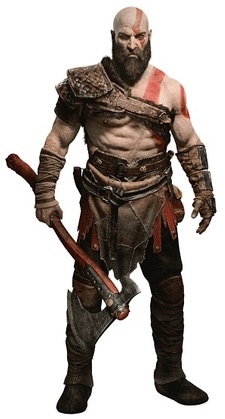
Kratos is a fictional character and the protagonist of Santa Monica Studio’s God of War series, based on Greek mythology and, later, Norse mythology. He first appeared in the 2005 video game God of War, which led to the development of eight additional titles featuring the character as the protagonist. Kratos also appears as the protagonist of the 2010 and 2018 comic series, as well as three novels that retell the events of three of the games. The character was voiced by Terrence C. Carson from 2005 to 2013, with Christopher Judge taking over the role in 2018’s continuation, also titled God of War. Antony Del Rio voiced the character as a child in God of War: Ghost of Sparta.
Read More About Kratos / Source
Zeus
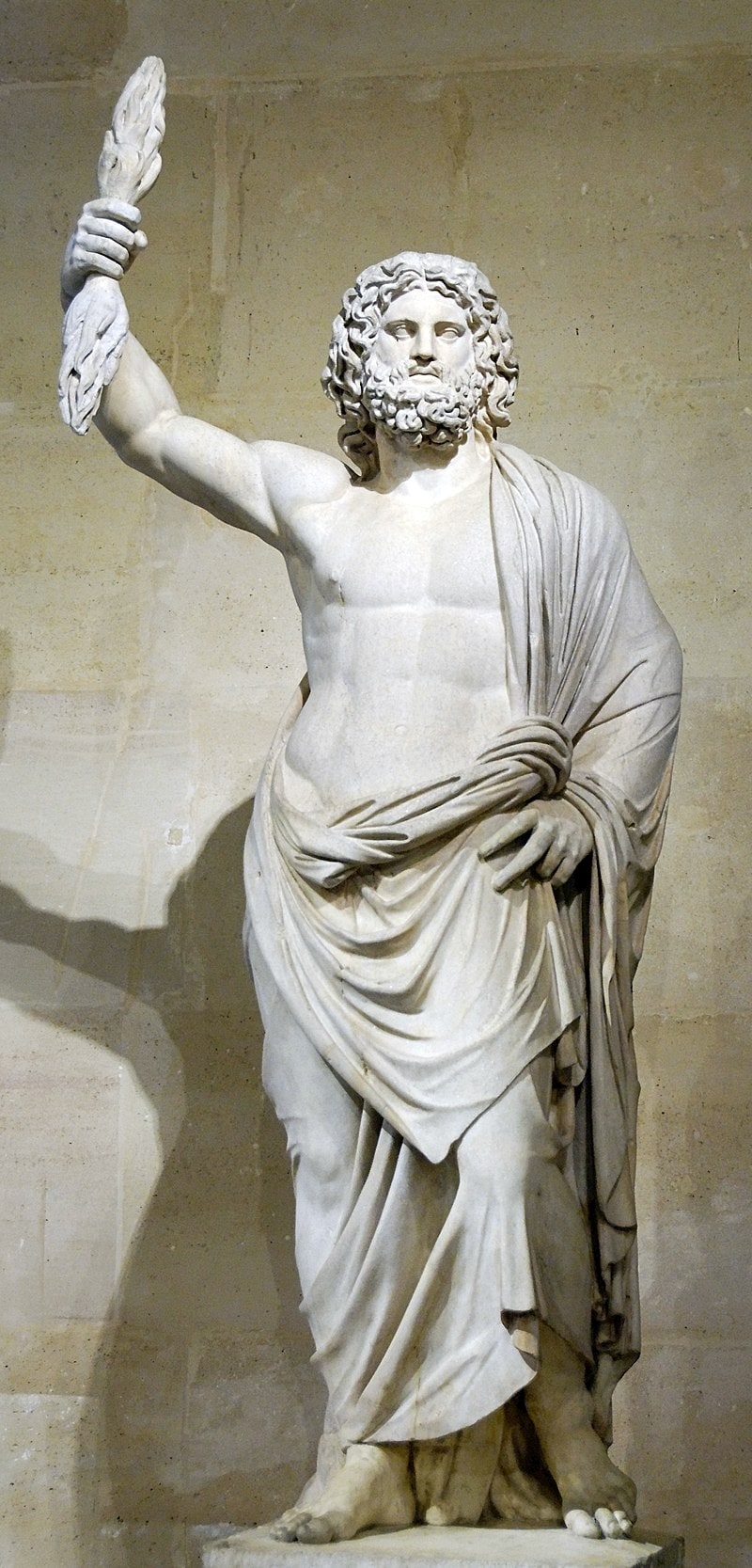
Zeus is the sky and thunder god in ancient Greek religion, who rules as king of the gods of Mount Olympus. His name is cognate with the first element of his Roman equivalent Jupiter. His mythology and powers are similar, though not identical, to those of Indo-European deities such as Jupiter, Perkūnas, Perun, Indra, Dyaus, and Zojz.
Alectrona
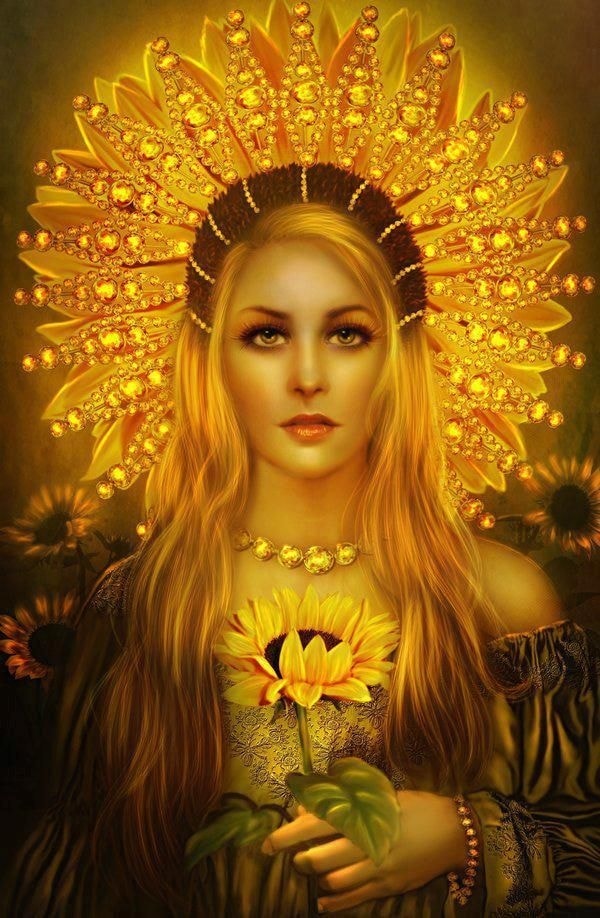
Alectrona (also known as Electryone or Electryo) was the greek goddess of the sun. It is thought that she might have also been the goddess of morning or ‘waking from slumber’. Some believed wholeheartedly that she was the cause of men waking from their sleep every morning. Her father was HELIOS, Titan lord of the sun (and the patron god of the Island of Rhodes), and her mother was Rhode (or Rhodos), a nymph from the same island. She was a sister to the Heliadae, the seven sons of Helios and Rhodos. Her seven brothers were known to be skilled in all manner of seafaring and astrology and they were the ones who started the tradition of offering sacrifices to the goddess ATHENA.
Read More About Alectrona / Source
Lelantos
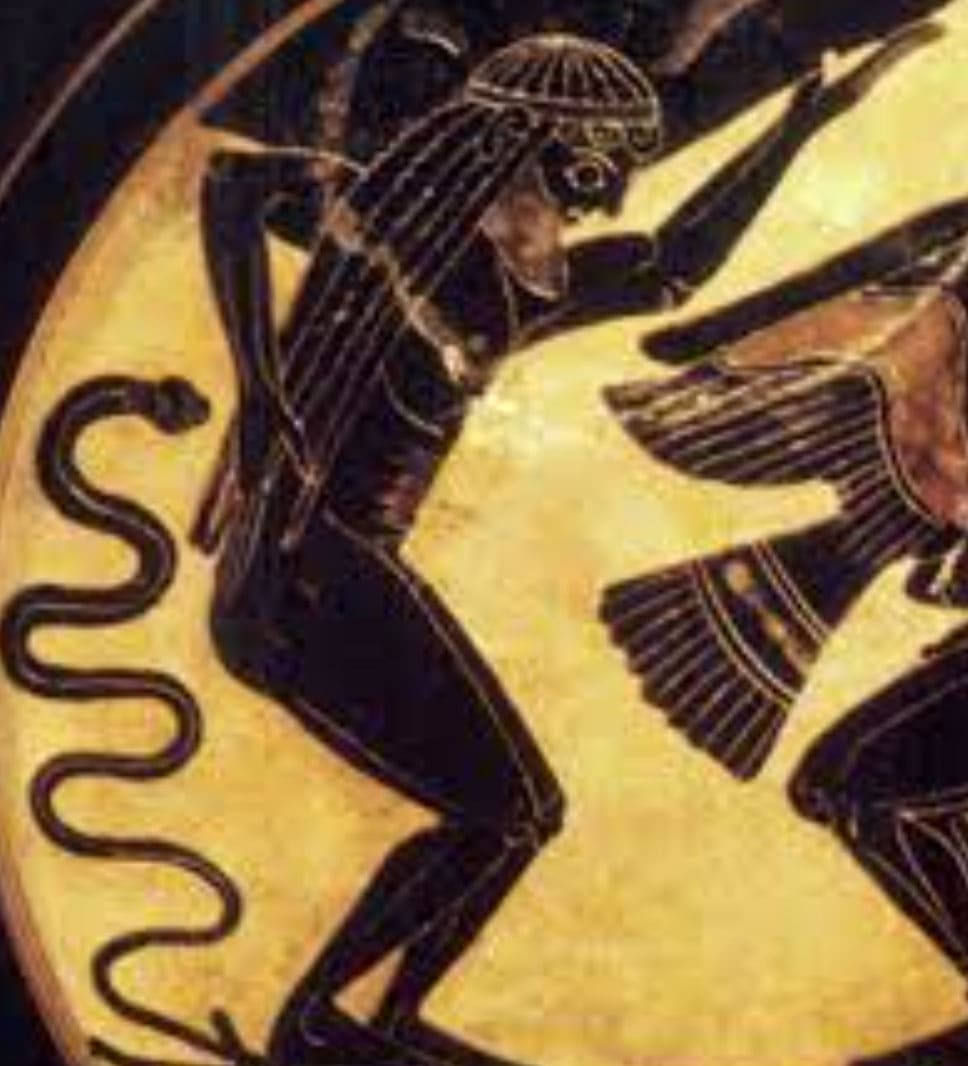
GREEK GODS and GODDESSES have complex connections. While the lineage of most deities is well-known thanks to the likes of Hesiod and other poets, not all family connections are cut and dry. Some details of divine heritage are murky at best, leaving some gods to get lost by the wayside. One such example is Lelantos. Lelalantos is a younger Titanes. He is a second-generation Titan, falling into an awkward period of Greek mythology. He’s wasn’t born to primordial deities and didn’t have a significant role in THE TITANOMACHY or succession myth.
Read More About Lelantos / Source
Hermes
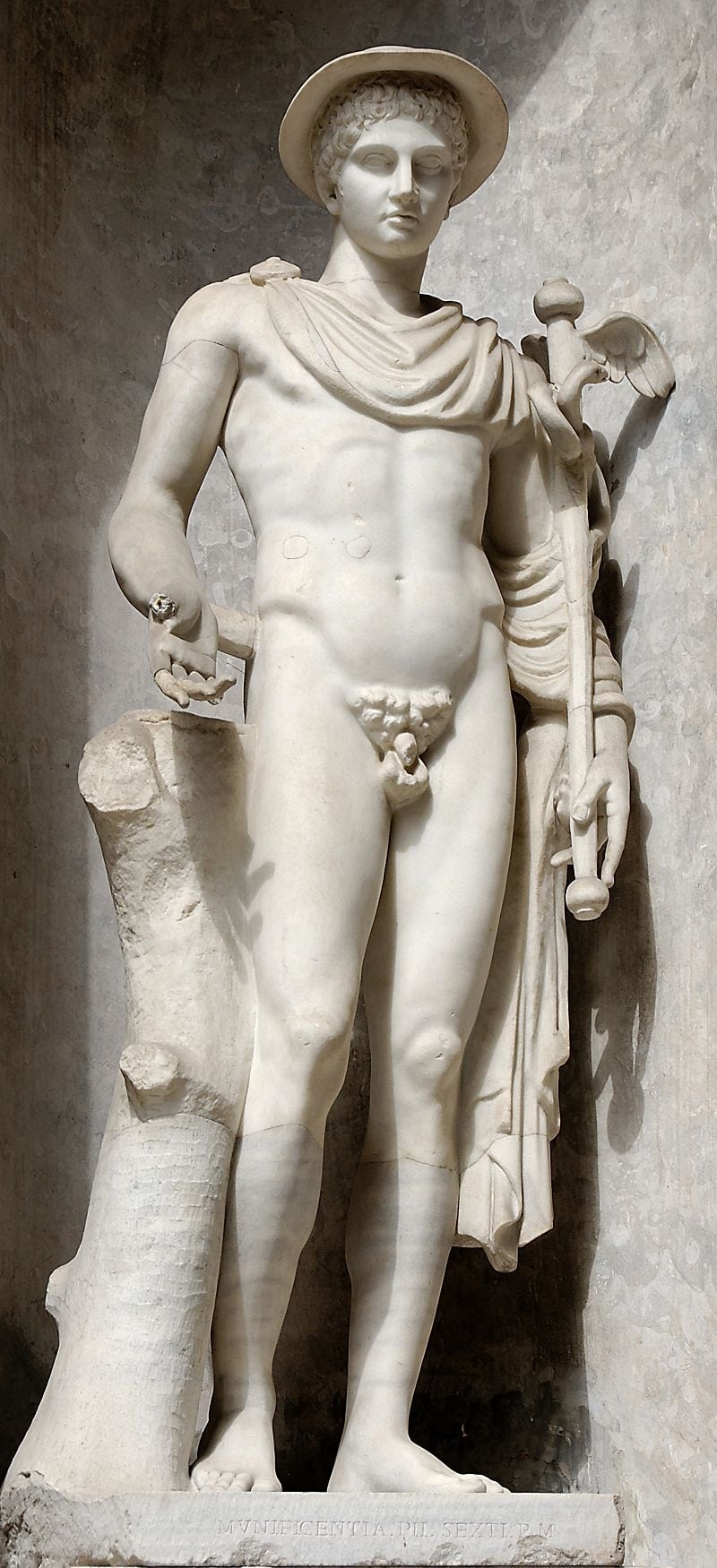
Hermes is an Olympian deity in ancient Greek religion and mythology. Hermes is considered the herald of the gods. He is also considered the protector of human heralds, travellers, thieves, merchants, and orators.He is able to move quickly and freely between the worlds of the mortal and the divine, aided by his winged sandals. Hermes plays the role of the psychopomp or “soul guide”—a conductor of souls into the afterlife.
Read More About Hermes / Source
Atë
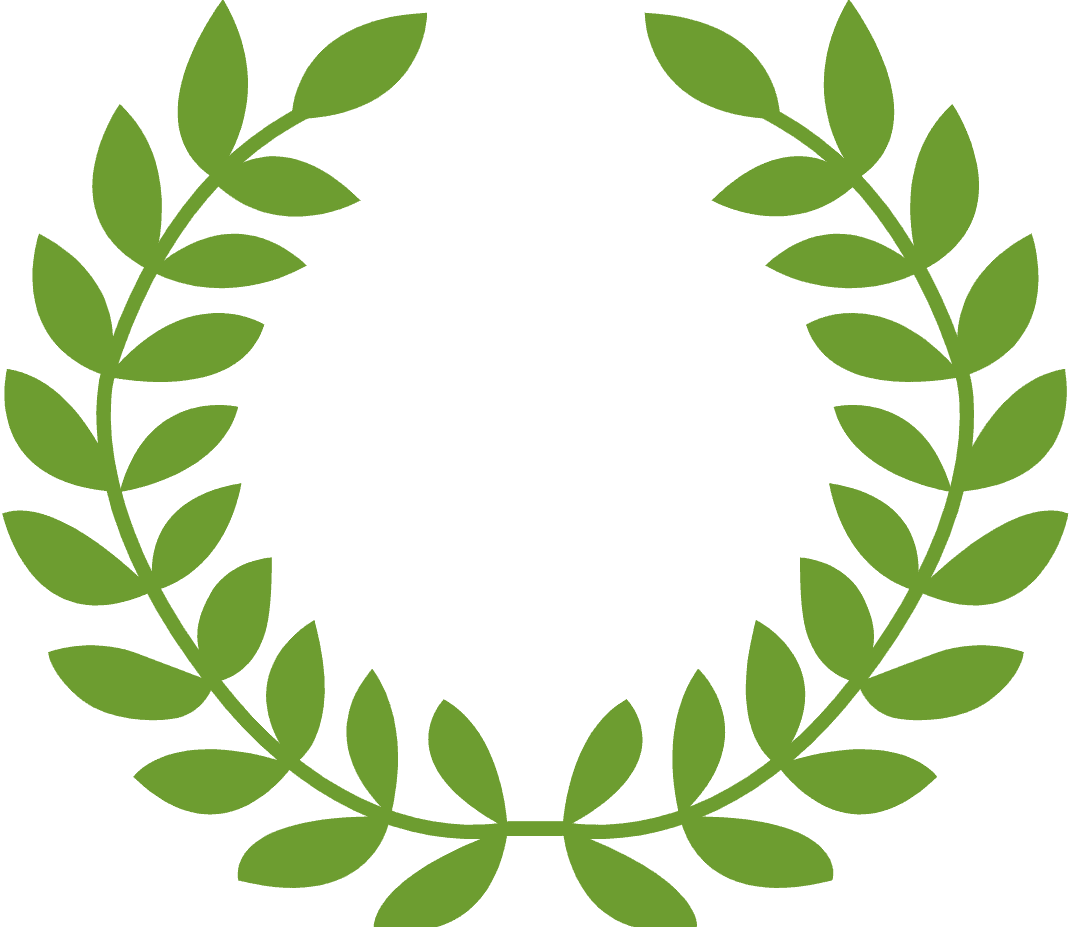
In Greek mythology, Atë, Até or Aite was the goddess of mischief, delusion, ruin, and blind folly, rash action and reckless impulse who led men down the path of ruin. She also led both gods and men to rash and inconsiderate actions and to suffering. Até also refers to an action performed by a hero that leads to their death or downfall.
Bellerophon
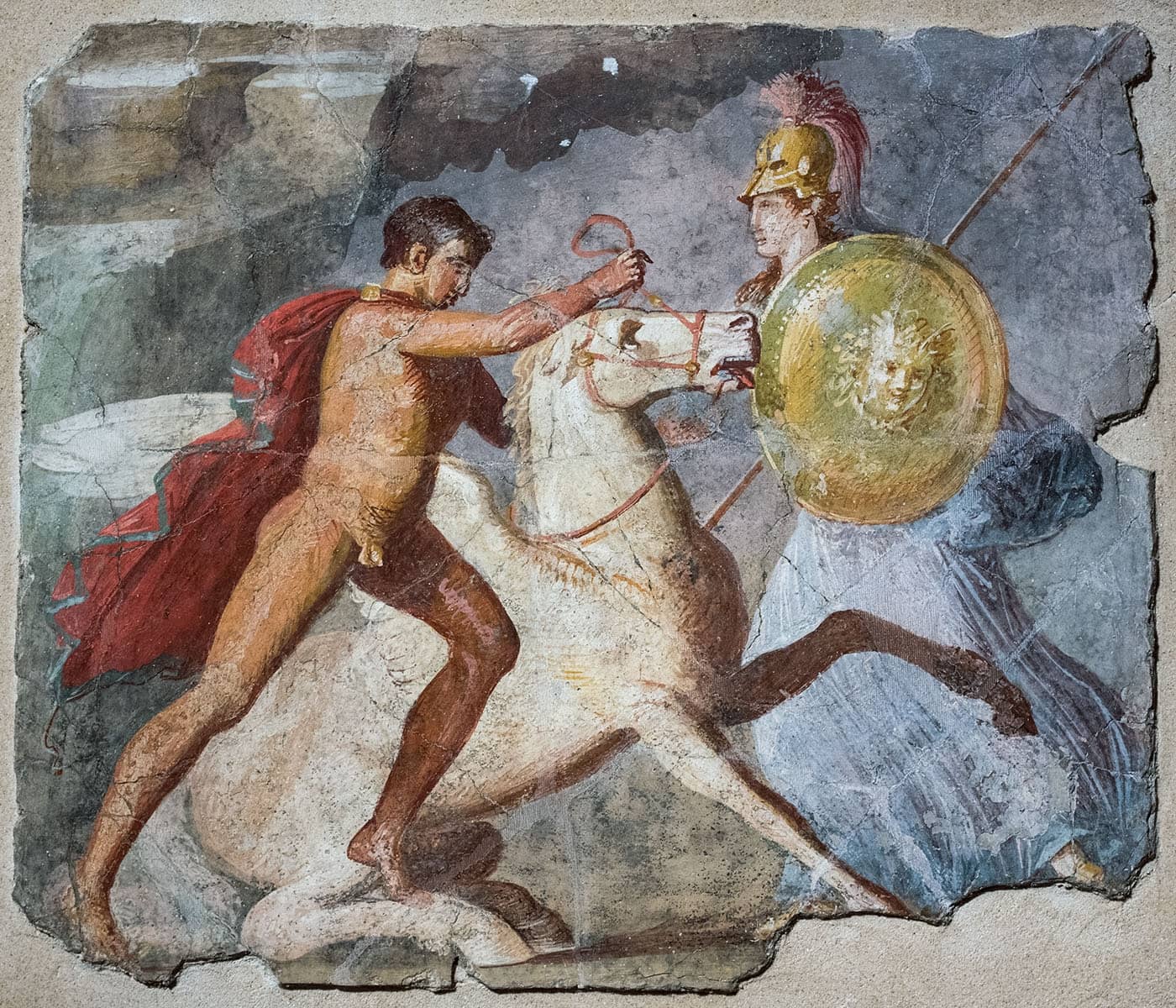
Bellerophon or Bellerophontes born as Hipponous, was a hero of Greek mythology. He was “the greatest hero and slayer of monsters, alongside Cadmus and Perseus, before the days of Heracles”, and his greatest feat was killing the Chimera, a monster that Homer depicted with a lion’s head, a goat’s body, and a serpent’s tail: “her breath came out in terrible blasts of burning flame.”
Read More About Bellerophon / Source
Eros
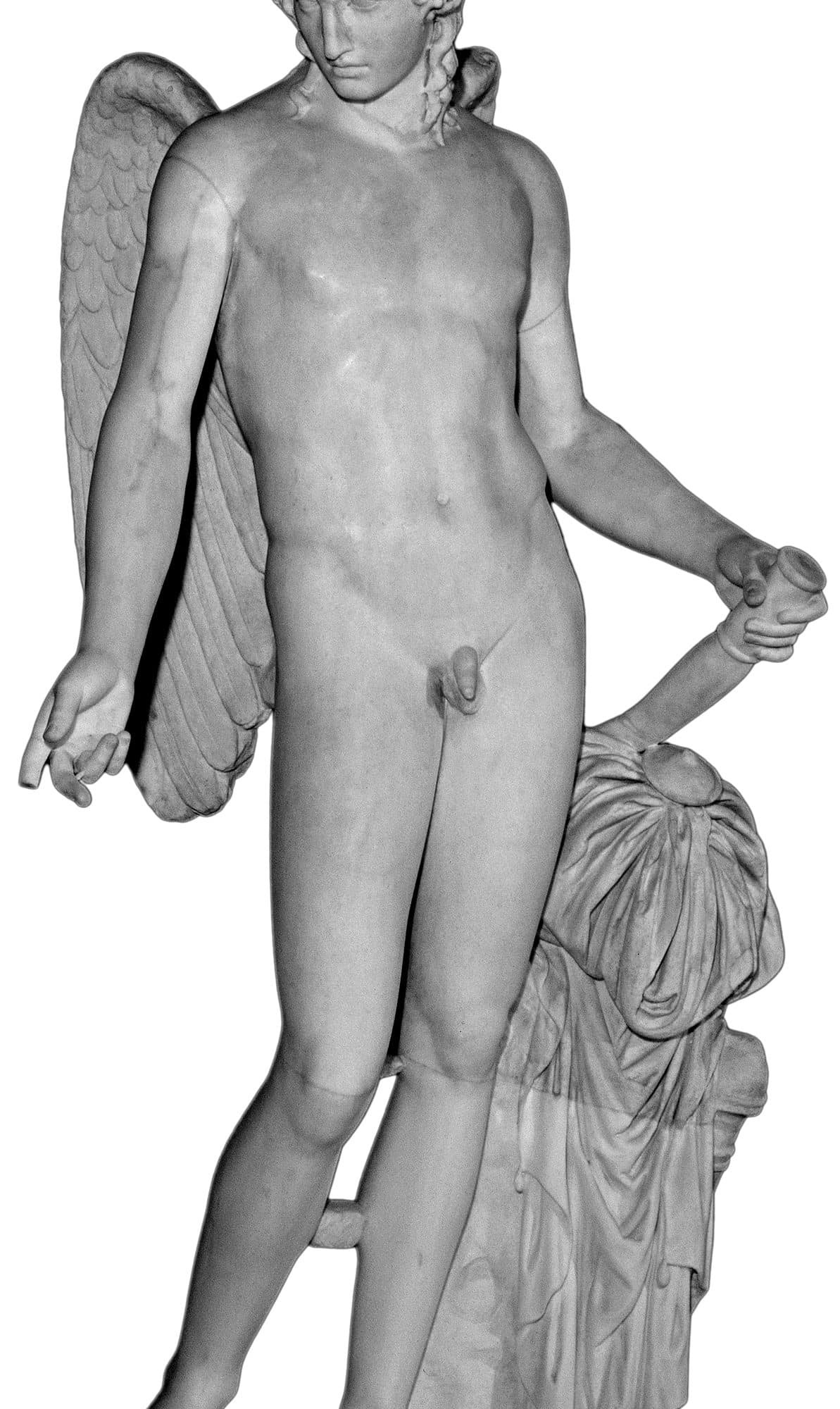
In Greek mythology, Eros (UK: , US: ; Ancient Greek: Ἔρως, romanized: Érōs, lit. ’Love, Desire’) is the Greek god of love and sex. His Roman counterpart was Cupid (“desire”). In the earliest account, he is a primordial god, while in later accounts he is described as one of the children of Aphrodite and Ares and, with some of his siblings, was one of the Erotes, a group of winged love gods.
Leto
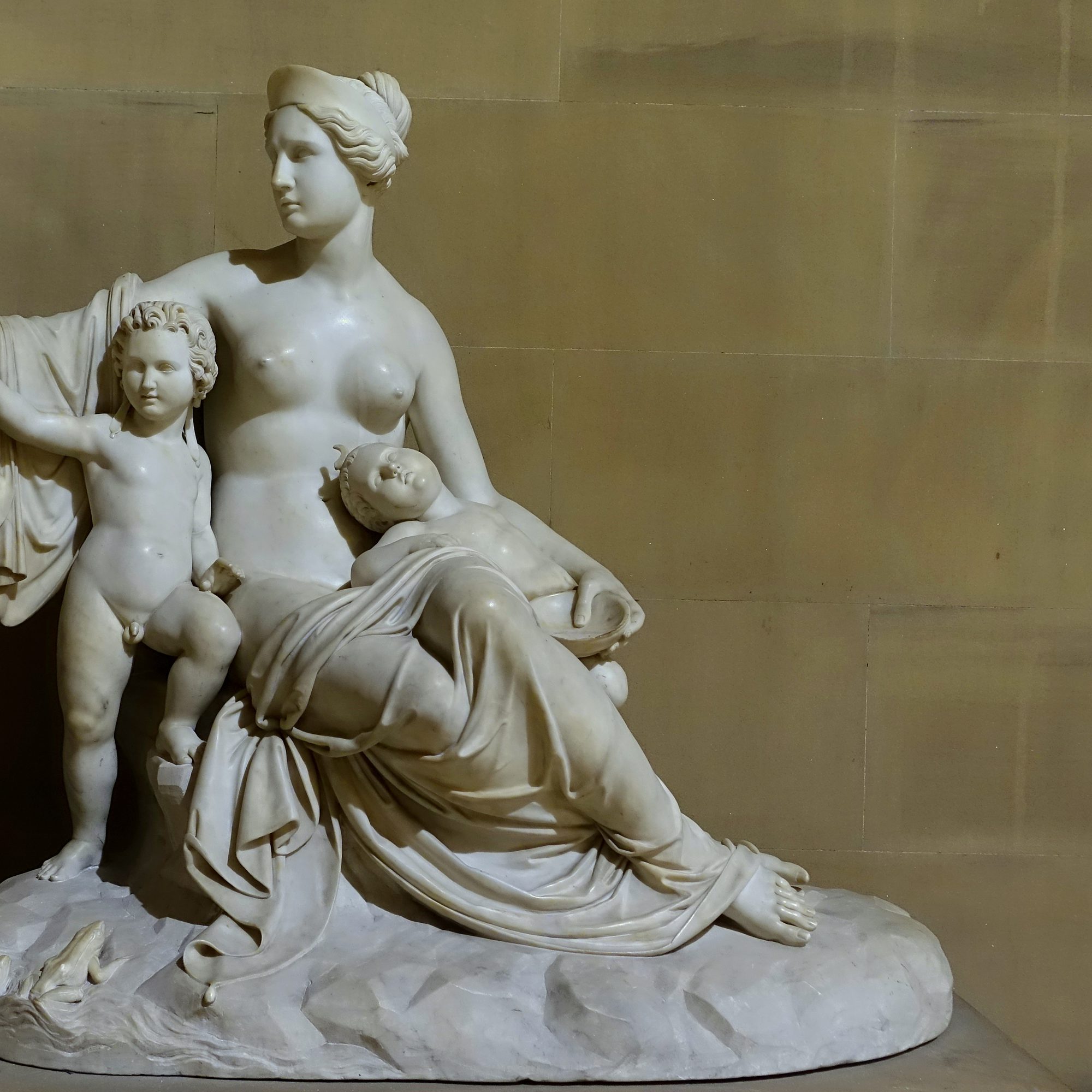
In ancient Greek mythology and religion, Leto is a goddess and the mother of Apollo, the god of music, and Artemis, the goddess of the hunt. She is the daughter of the Titans Coeus and Phoebe, and the sister of Asteria.
Midas
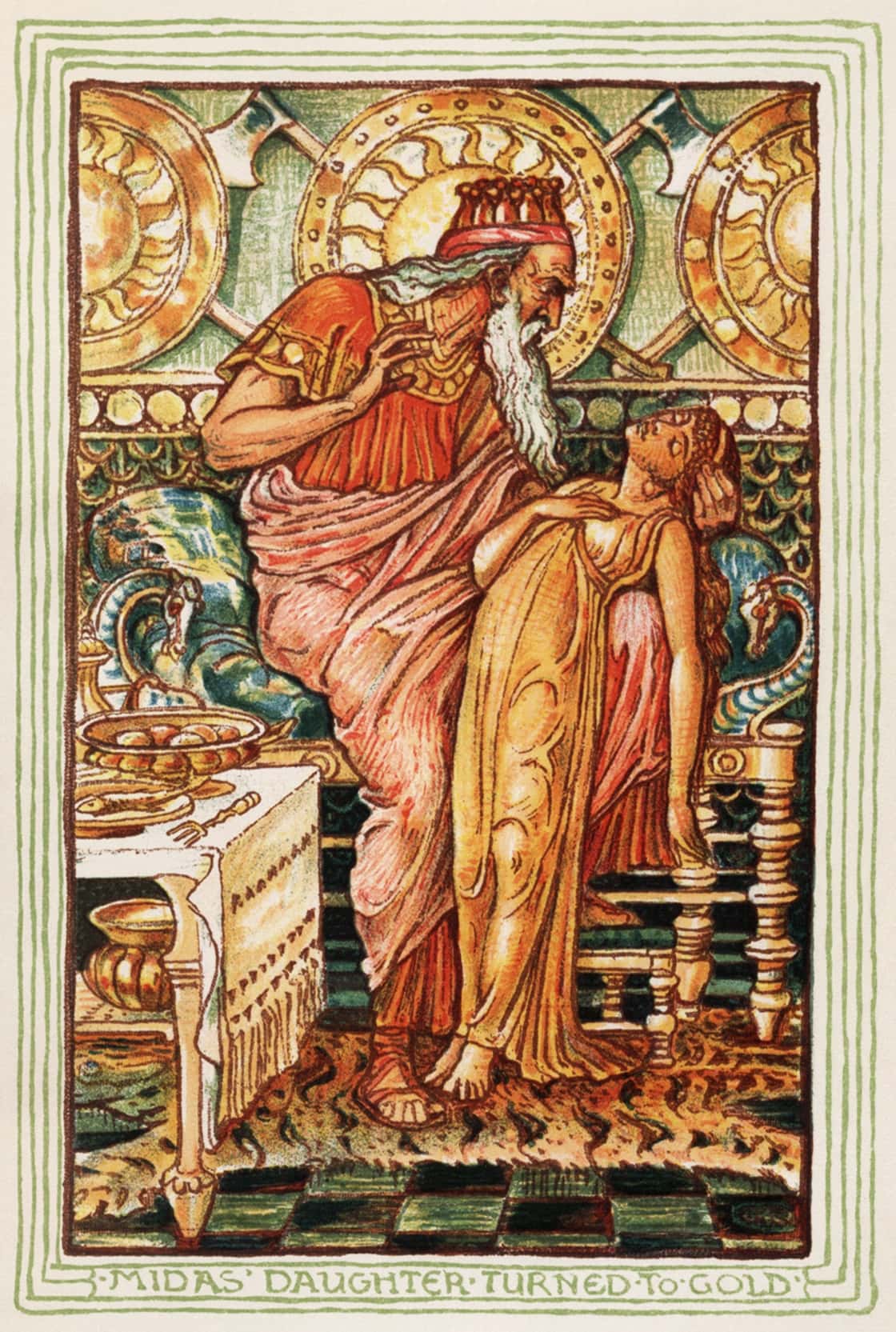
Midas was the name of a king in Phrygia with whom several myths became associated, as well as two later members of the Phrygian royal house. The most famous King Midas is popularly remembered in Greek mythology for his ability to turn everything he touched into gold. This came to be called the golden touch, or the Midas touch. The legends told about this Midas and his father Gordias, credited with founding the Phrygian capital city Gordium and tying the Gordian Knot, indicate that they were believed to have lived sometime in the 2nd millennium BC, well before the Trojan War. However, Homer does not mention Midas or Gordias, while instead mentioning two other Phrygian kings, Mygdon and Otreus.
Read More About Midas / Source
Minos
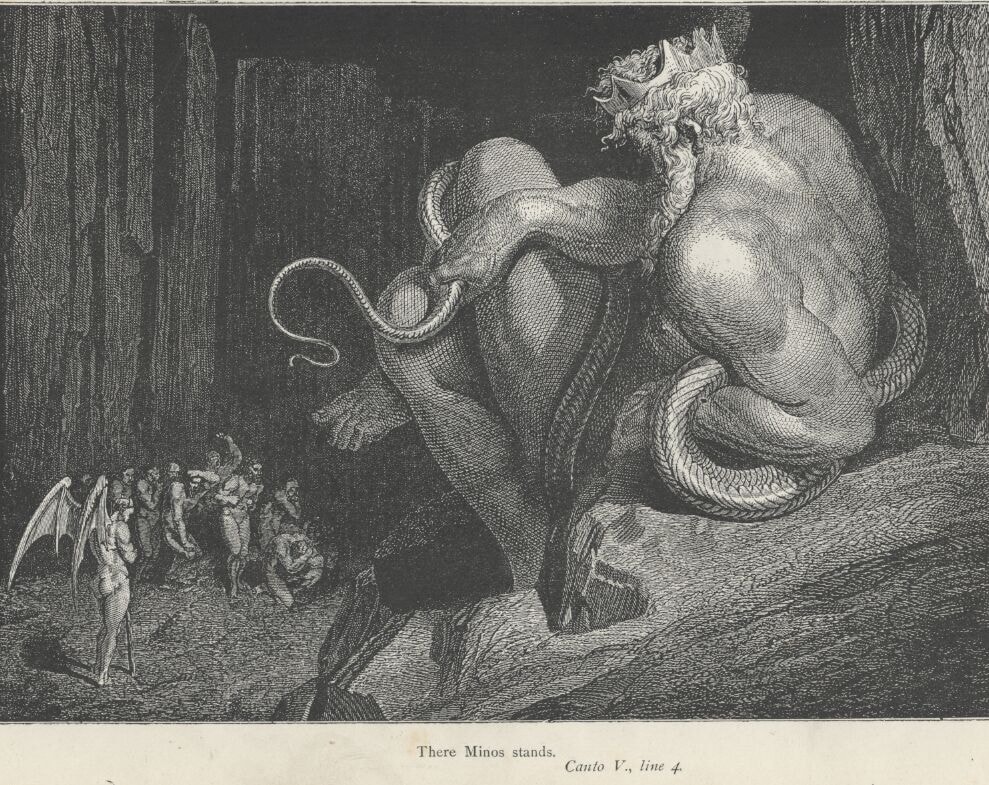
In Greek mythology, Minos was a King of Crete, son of Zeus and Europa. Every nine years, he made King Aegeus pick seven young boys and seven young girls to be sent to Daedalus’s creation, the labyrinth, to be eaten by the Minotaur. After his death, Minos became a judge of the dead in the underworld.
Read More About Minos / Source
Morpheus (Greek God)
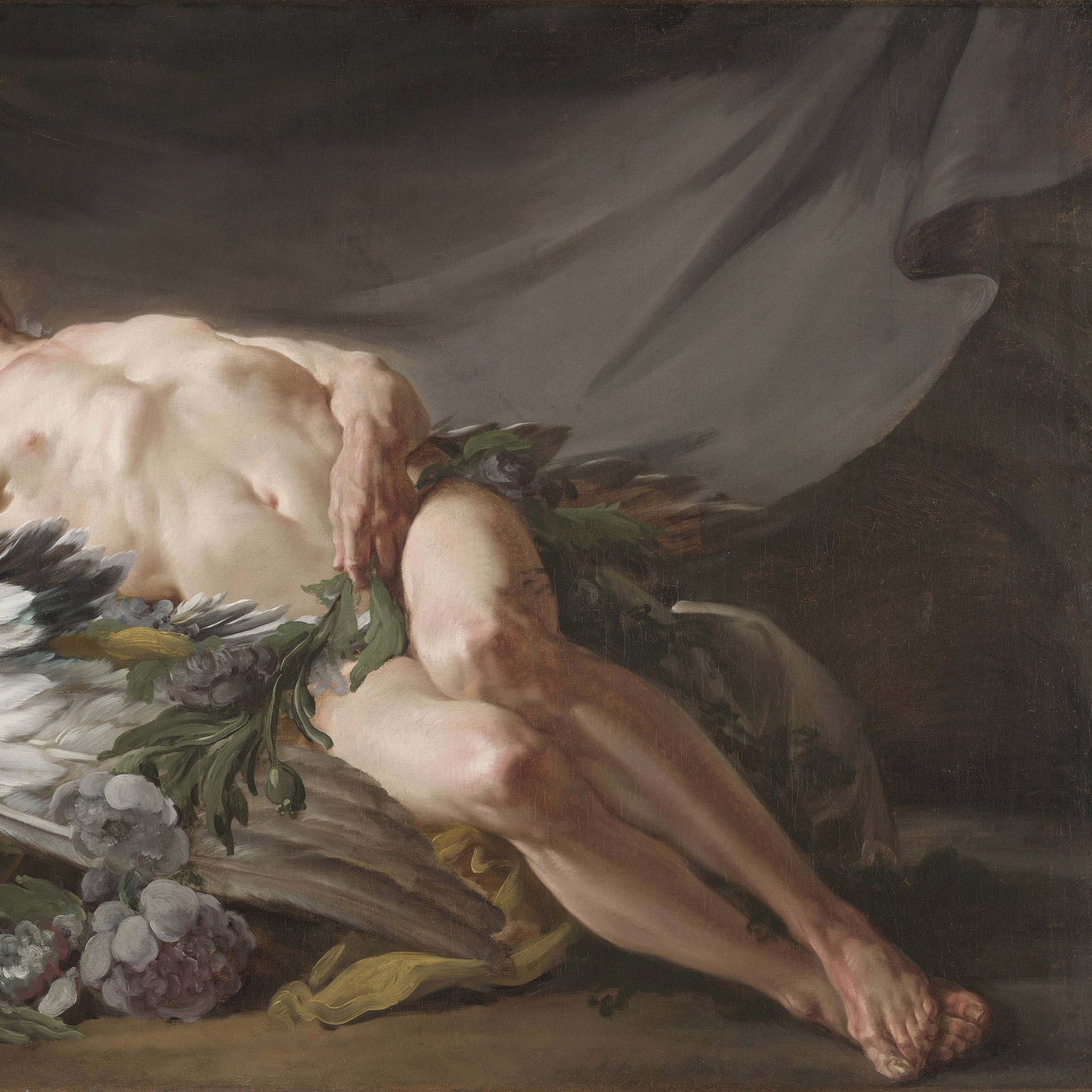
Morpheus (‘Fashioner’, derived from the Ancient Greek: μορφή meaning ‘form, shape’) is a god associated with sleep and dreams. In Ovid’s Metamorphoses he is the son of Somnus and appears in dreams in human form. From the Middle Ages, the name began to stand more generally for the god of dreams, or of sleep.
Read More About Morpheus (Greek God) / Source
Astraea
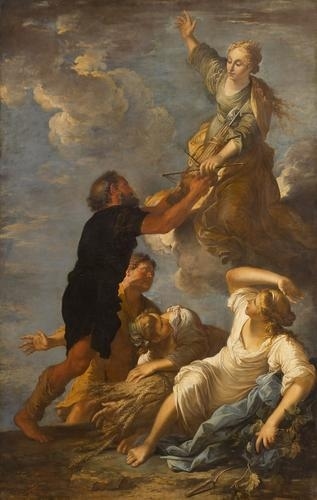
Astraea, Astrea or Astria in ancient Greek religion, is a daughter of Astraeus and Eos. She is the virgin goddess of justice, innocence, purity and precision. She is closely associated with the Greek goddess of justice, Dike (daughter of Zeus and Themis). She is not to be confused with Asteria, the goddess of the stars and the daughter of Coeus and Phoebe. The main belt asteroid 5 Astraea is named after her, and her name was also suggested for the planet Uranus.
Read More About Astraea / Source
Atlas
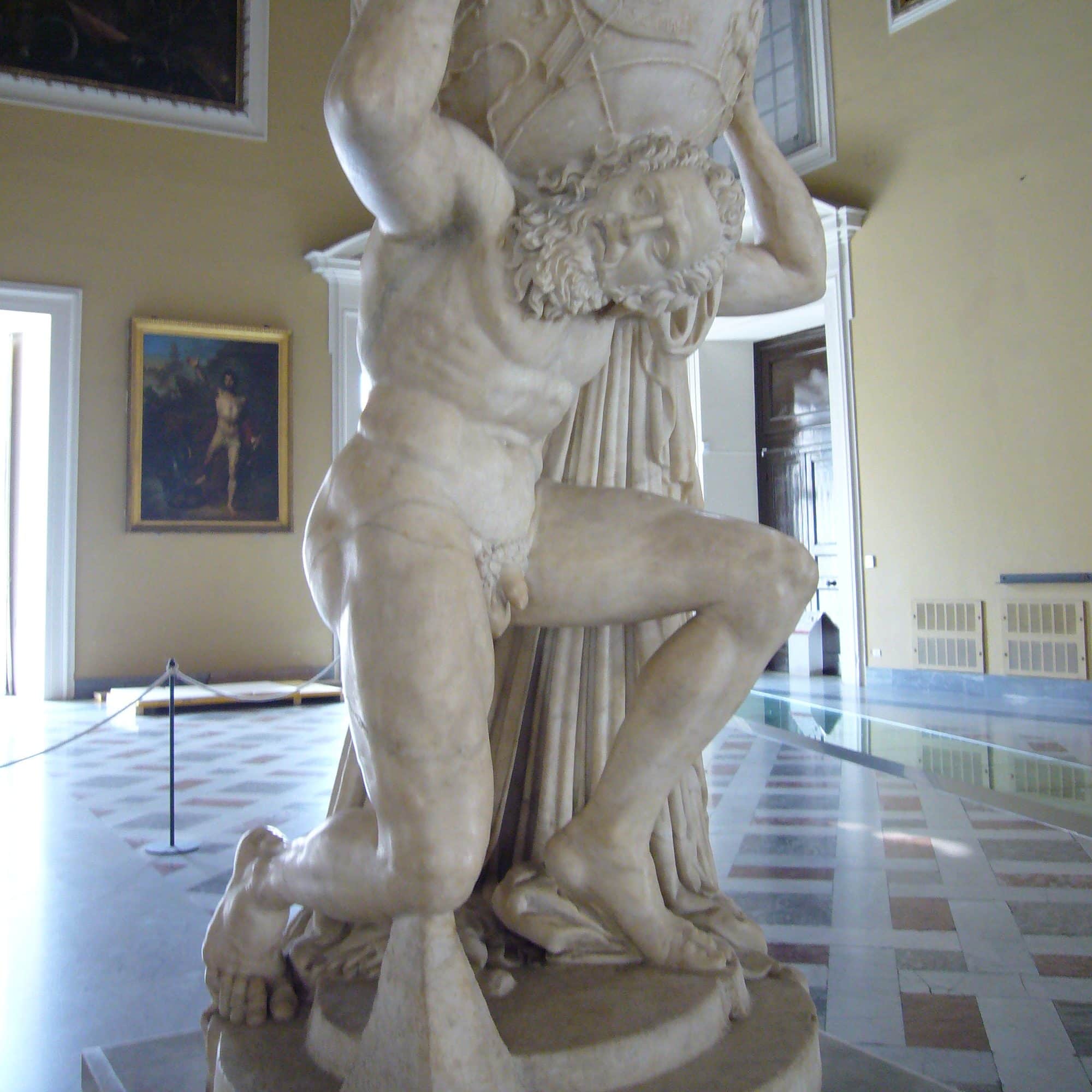
In Greek mythology, Atlas is a Titan condemned to hold up the heavens or sky for eternity after the Titanomachy. Atlas also plays a role in the myths of two of the greatest Greek heroes: Heracles (Hercules in Roman mythology) and Perseus. According to the ancient Greek poet Hesiod, Atlas stood at the ends of the earth in extreme west.Later, he became commonly identified with the Atlas Mountains in northwest Africa and was said to be the first King of Mauretania.Atlas was said to have been skilled in philosophy, mathematics, and astronomy. In antiquity, he was credited with inventing the first celestial sphere. In some texts, he is even credited with the invention of astronomy itself.
Read More About Atlas / Source
Apollo
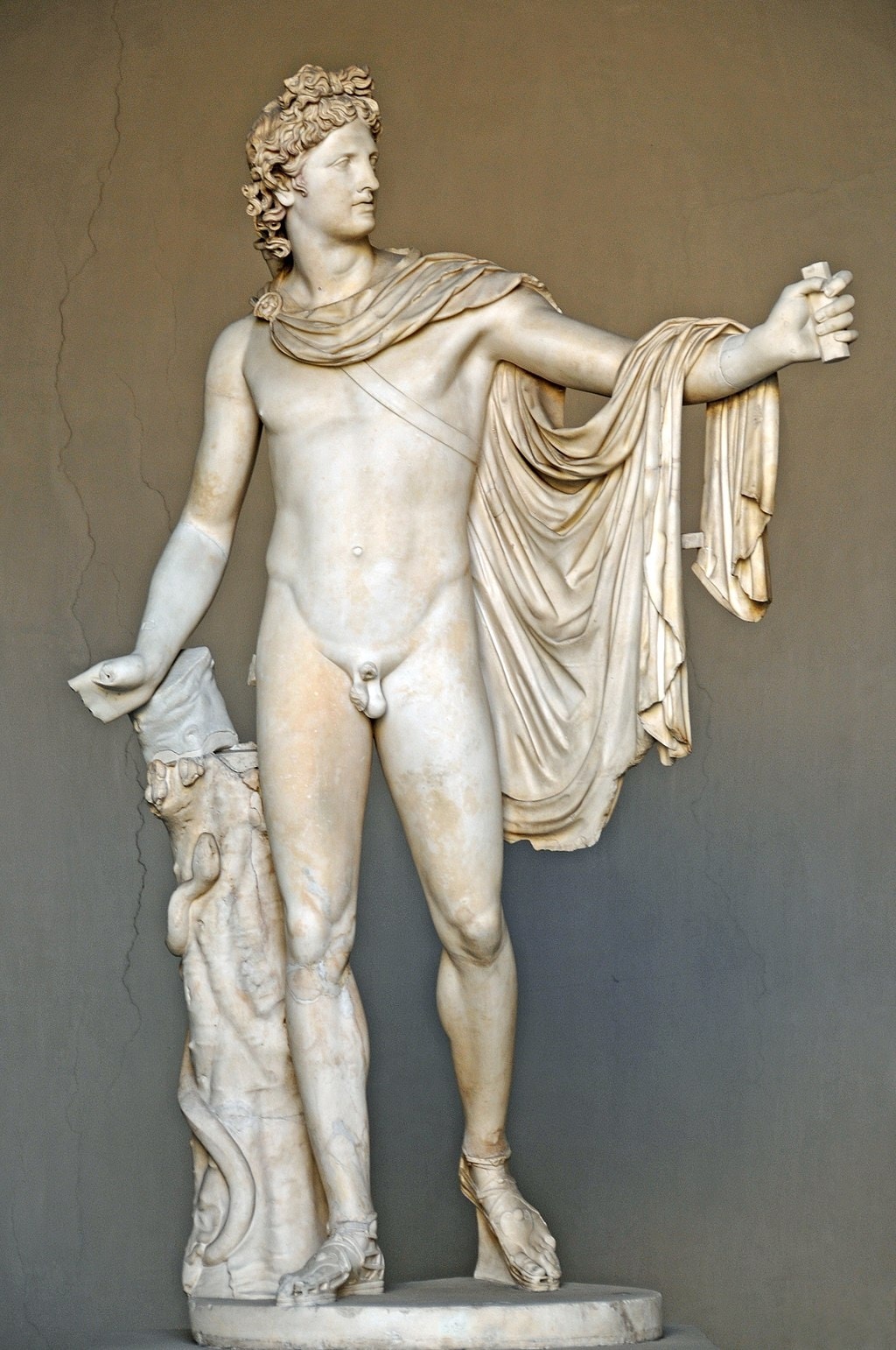
Apollo is one of the Olympian deities in classical Greek and Roman religion and Greek and Roman mythology. The national divinity of the Greeks, Apollo has been recognized as a god of archery, music and dance, truth and prophecy, healing and diseases, the Sun and light, poetry, and more. One of the most important and complex of the Greek gods, he is the son of Zeus and Leto, and the twin brother of Artemis, goddess of the hunt. Seen as the most beautiful god and the ideal of the kouros (ephebe, or a beardless, athletic youth), Apollo is considered to be the most Greek of all the gods. Apollo is known in Greek-influenced Etruscan mythology as Apulu.
Read More About Apollo / Source
Aphrodite
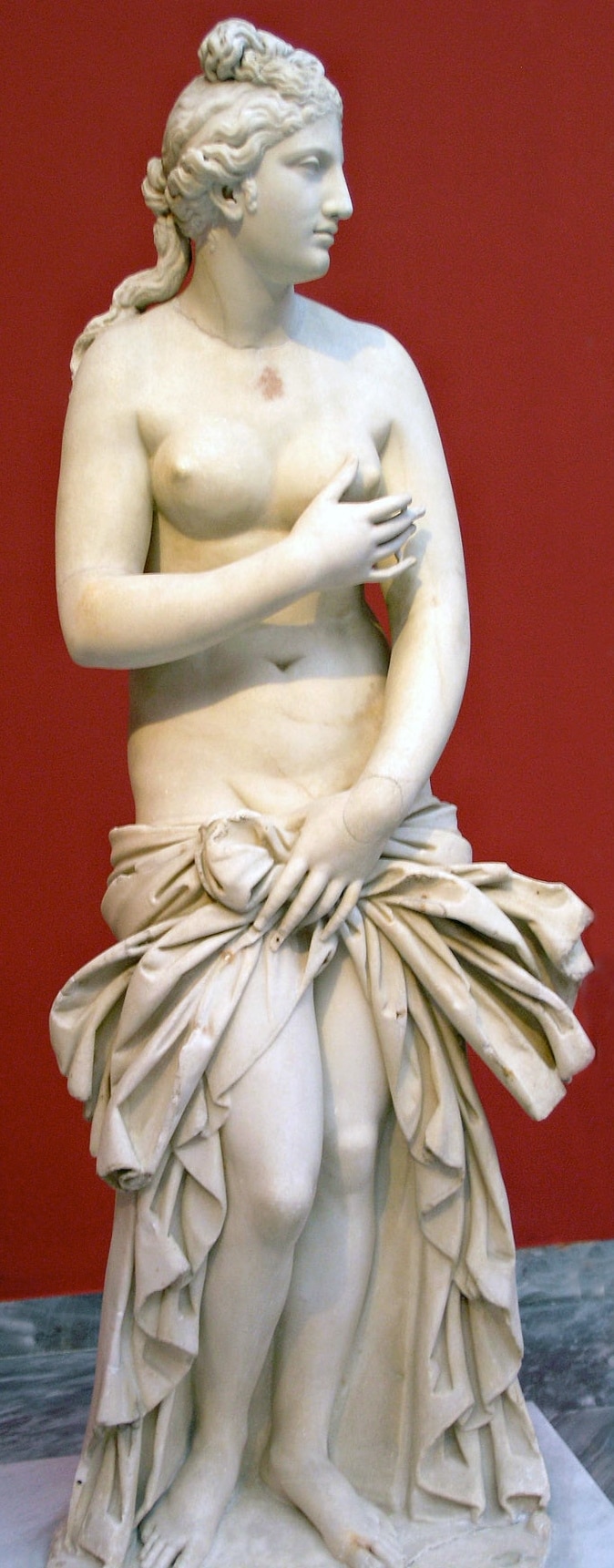
Aphrodite is the ancient Greek goddess of sexual love and beauty, identified with Venus by the Romans. She was known primarily as a goddess of love and fertility and occasionally presided over marriage. Additionally, Aphrodite was widely worshipped as a goddess of the sea and of seafaring; she was also honoured as a goddess of war, especially at Sparta, Thebes, Cyprus, and other places.
Read More About Aphrodite / Source
Ares
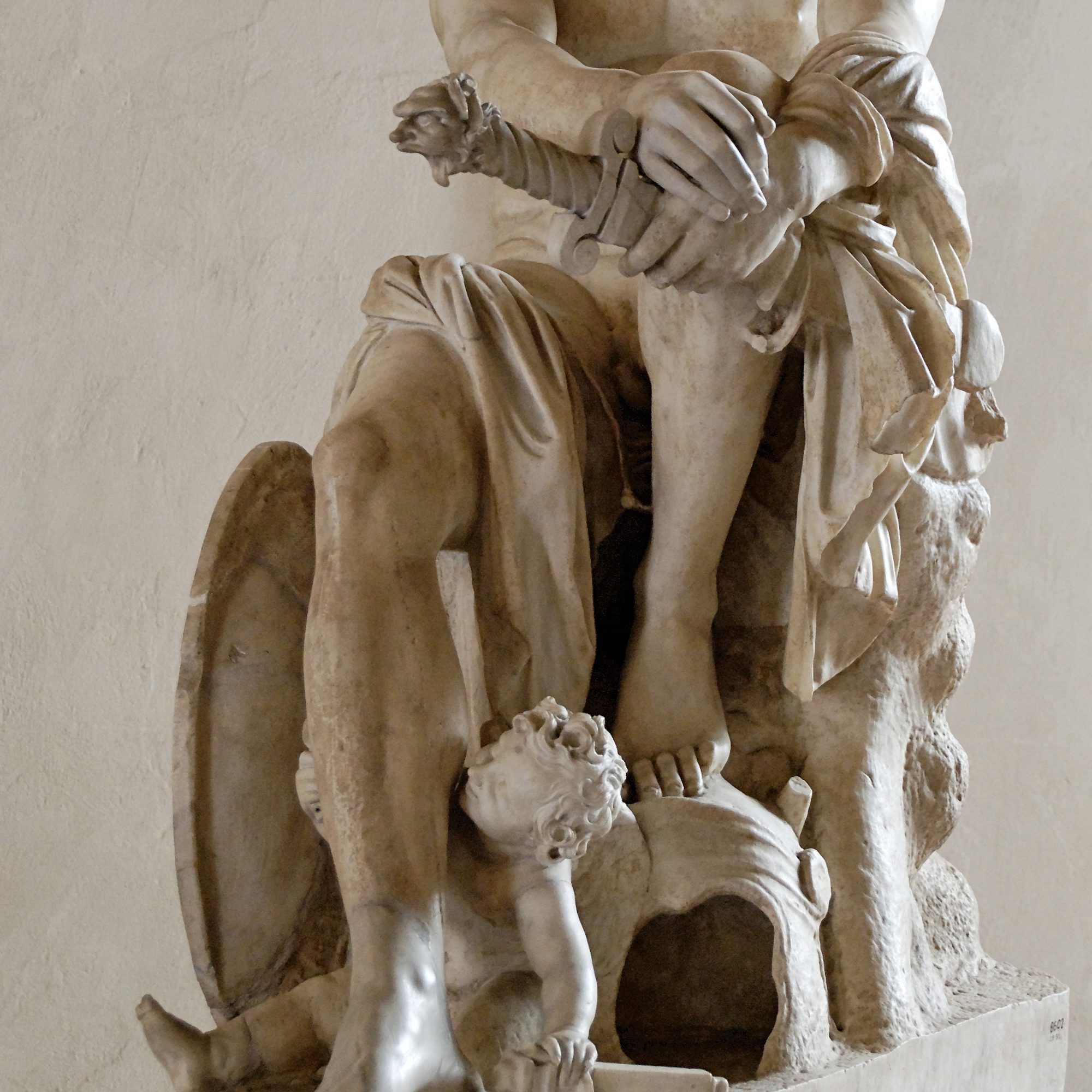
Ares is the Greek god of war and courage. He is one of the Twelve Olympians, and the son of Zeus and Hera. The Greeks were ambivalent towards him. He embodies the physical valor necessary for success in war but can also personify sheer brutality and bloodlust, in contrast to his sister, the armored Athena, whose martial functions include military strategy and generalship. An association with Ares endows places, objects, and other deities with a savage, dangerous, or militarized quality.
Artemis
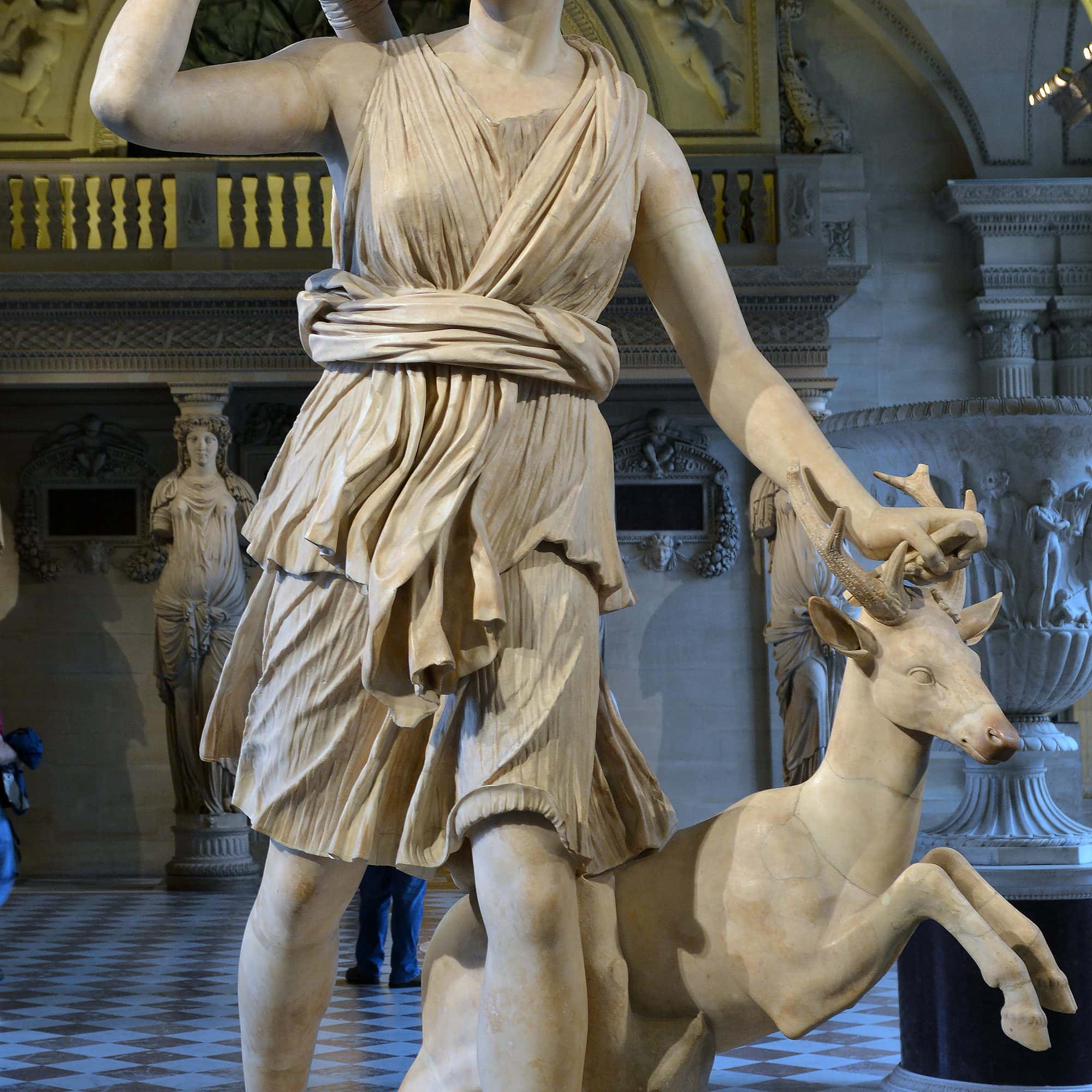
In ancient Greek mythology and religion, Artemis is the goddess of the hunt, the wilderness, wild animals, nature, vegetation, childbirth, care of children, and chastity.She was heavily identified with Selene, the Moon, and Hecate, another Moon goddess, and was thus regarded as one of the most prominent lunar deities in mythology, alongside the aforementioned two.She would often roam the forests of Greece, attended by her large entourage, mostly made up of nymphs, some mortals, and hunters. The goddess Diana is her Roman equivalent.
Read More About Artemis / Source
Athena
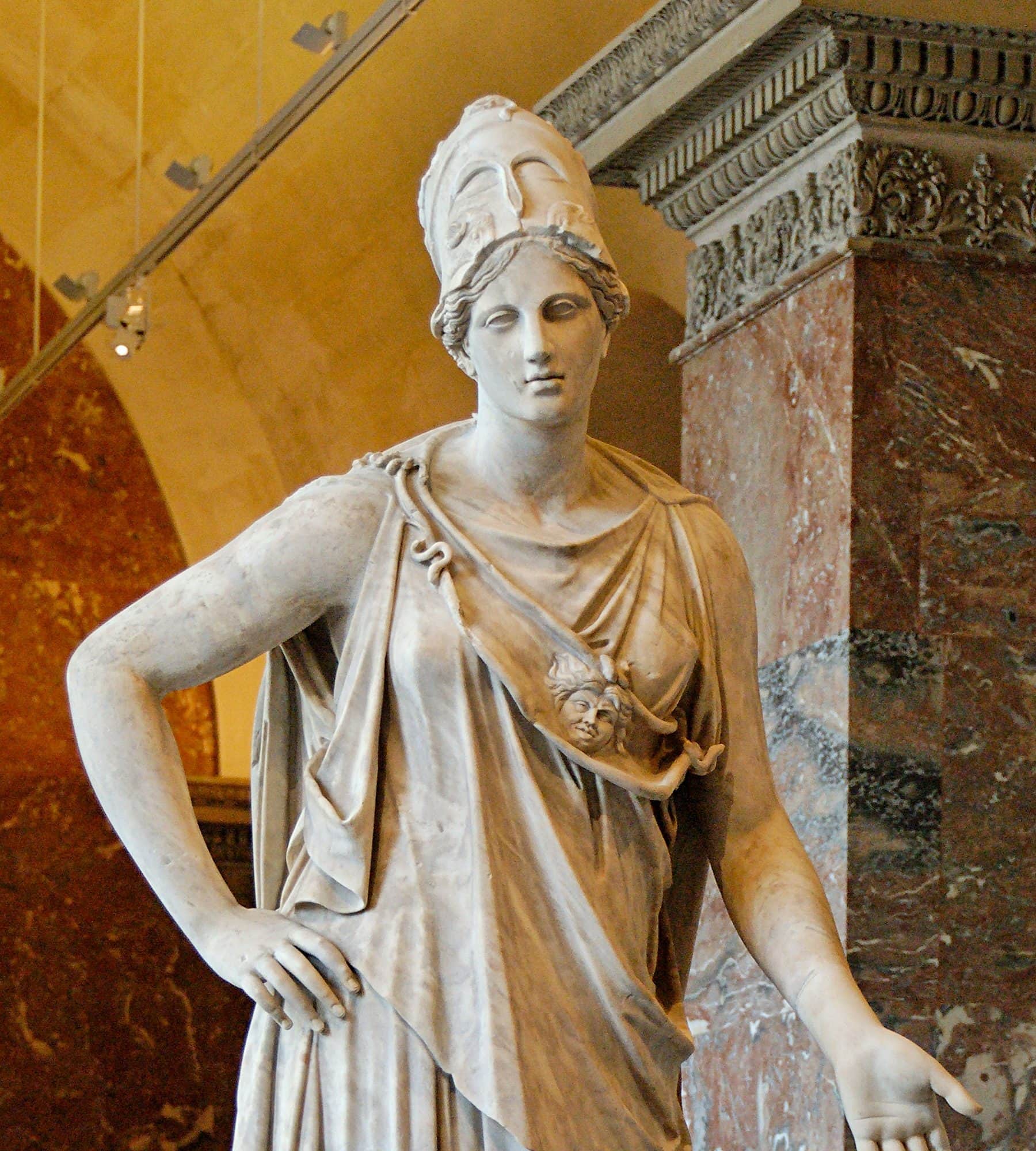
Athena or Athene, often given the epithet Pallas, is an ancient Greek goddess associated with wisdom, warfare, and handicraft who was later syncretized with the Roman goddess Minerva. Athena was regarded as the patron and protectress of various cities across Greece, particularly the city of Athens, from which she most likely received her name. The Parthenon on the Acropolis of Athens is dedicated to her. Her major symbols include owls, olive trees, snakes, and the Gorgoneion. In art, she is generally depicted wearing a helmet and holding a spear.
Read More About Athena / Source
Demeter
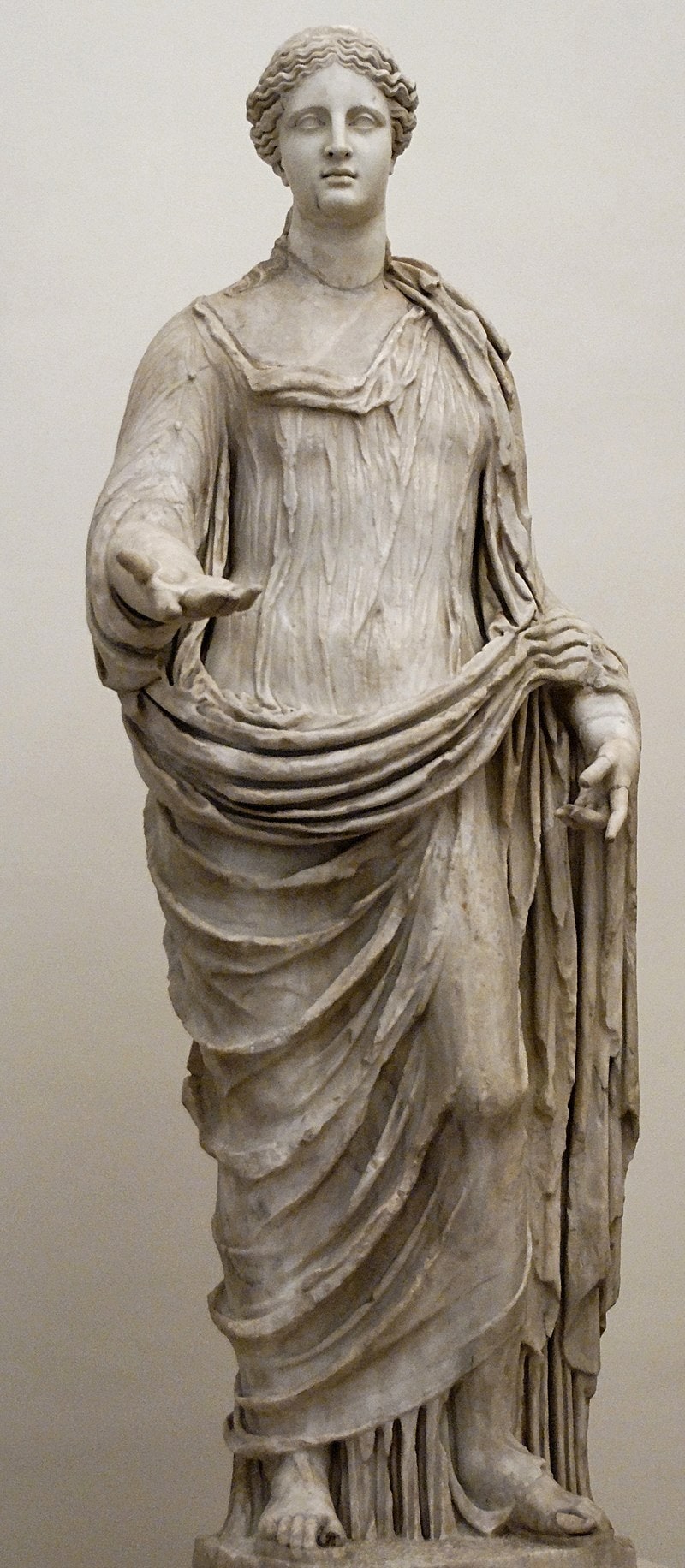
In ancient Greek religion and mythology, Demeter is the Olympian goddess of the harvest and agriculture, presiding over crops, grains, food, and the fertility of the earth. Although she is mostly known as a grain goddess, she also appeared as a goddess of health, birth, and marriage, and had connections to the Underworld. She is also called Deo. In Greek tradition, Demeter is the second child of the Titans Rhea and Cronus, and sister to Hestia, Hera, Hades, Poseidon, and Zeus. Like her other siblings but Zeus, she was swallowed by her father as an infant and rescued by Zeus.
Read More About Demeter / Source
Dionysus
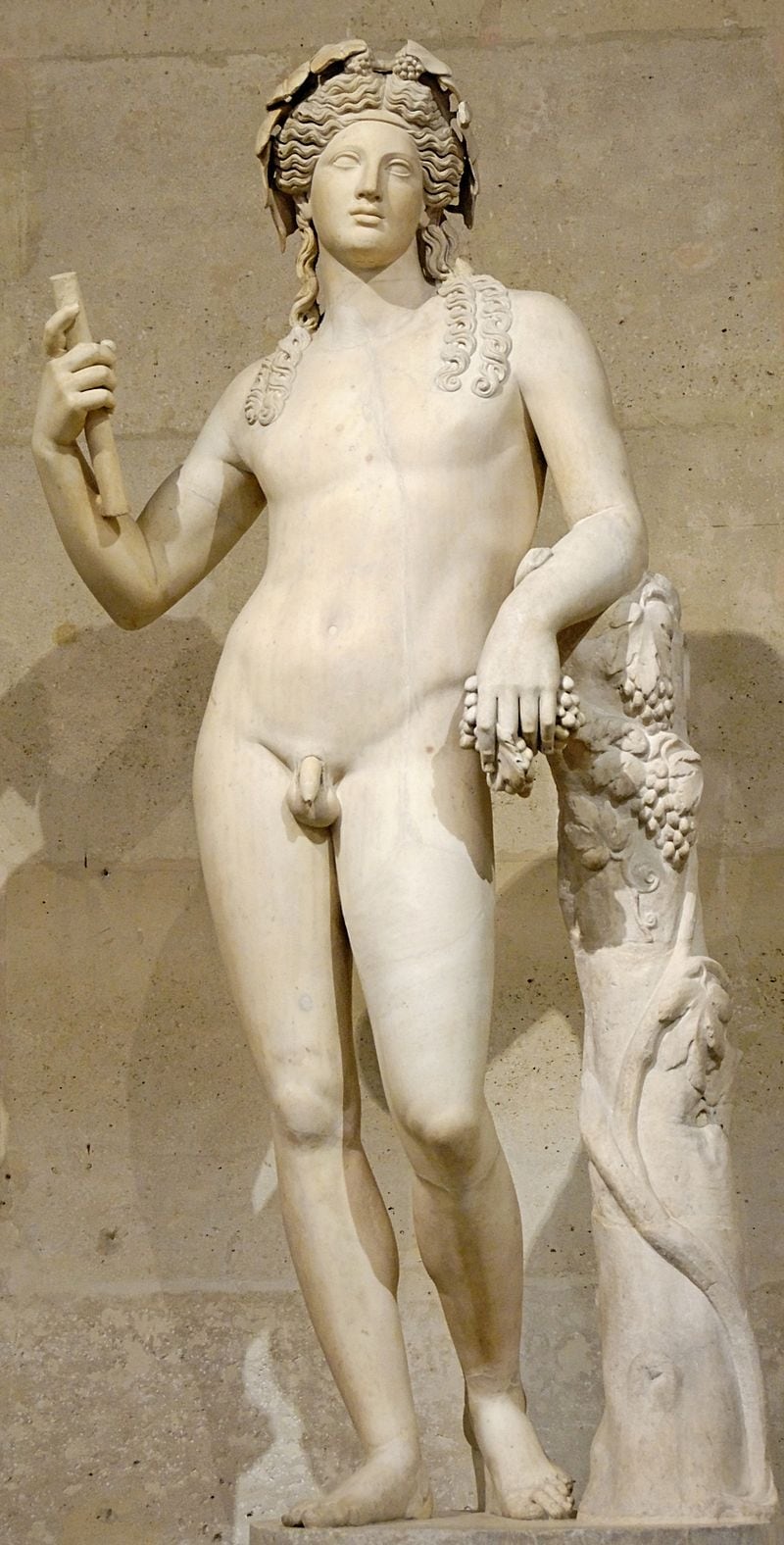
Dionysus is the god of the grape-harvest, winemaking, orchards and fruit, vegetation, fertility, insanity, ritual madness, religious ecstasy, festivity, and theatre in ancient Greek religion and myth.He is also known as Bacchus by the Greeks. This name was later adopted by the Romans; the frenzy that he induces is bakkheia. As Eleutherios (“the liberator”), his wine, music, and ecstatic dance free his followers from self-conscious fear and care, and subvert the oppressive restraints of the powerful. His thyrsus, a fennel-stem sceptre, sometimes wound with ivy and dripping with honey, is both a beneficent wand and a weapon used to destroy those who oppose his cult and the freedoms he represents.Those who partake of his mysteries are believed to become possessed and empowered by the god himself.
Read More About Dionysus / Source
Hades
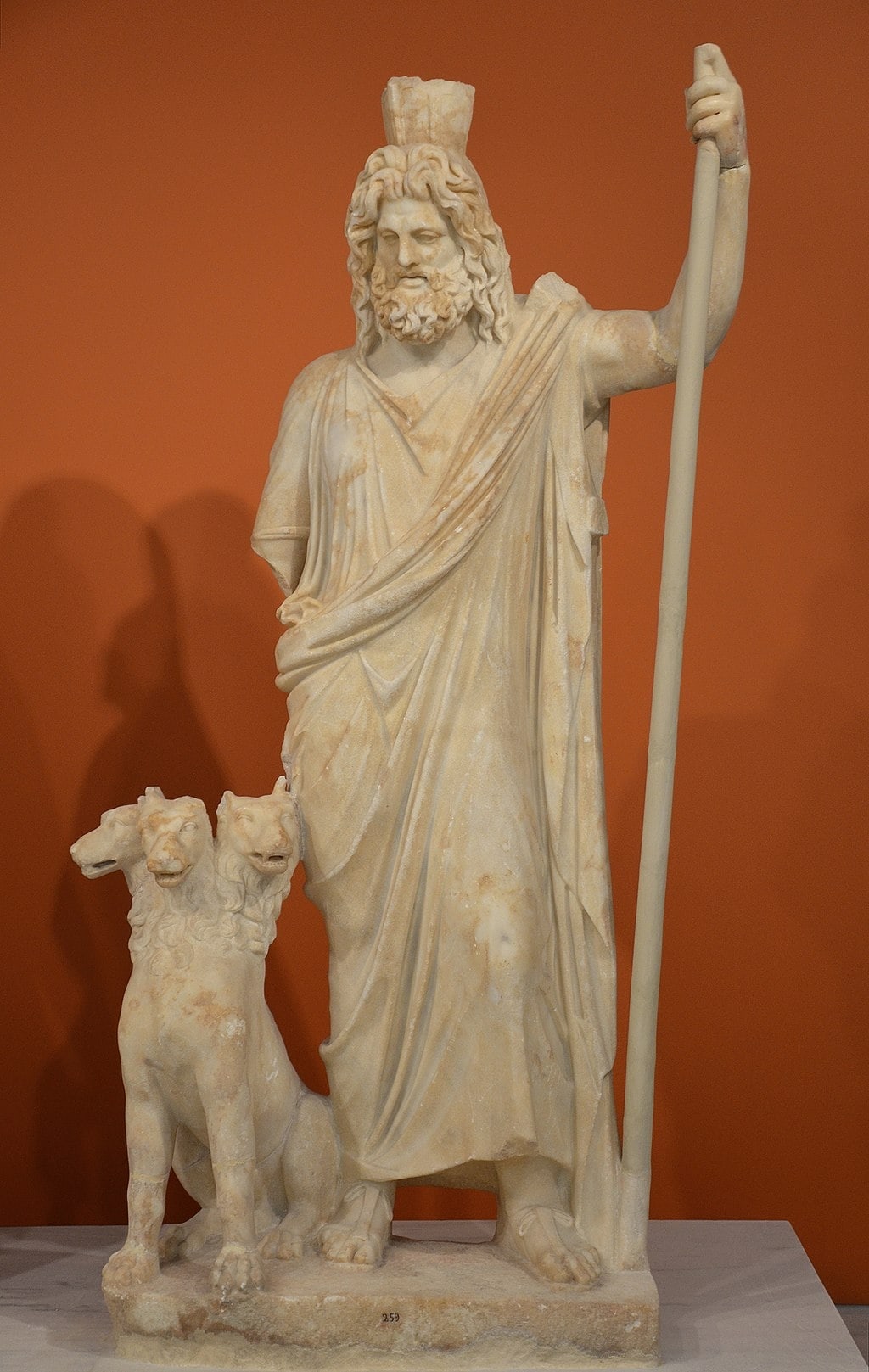
Hades in the ancient Greek religion and myth, is the god of the dead and the king of the underworld, with which his name became synonymous.Hades was the eldest son of Cronus and Rhea, although this also made him the last son to be regurgitated by his father. He and his brothers, Zeus and Poseidon, defeated their father’s generation of gods, the Titans, and claimed rulership over the cosmos. Hades received the underworld, Zeus the sky, and Poseidon the sea, with the solid earth, long the province of Gaia, available to all three concurrently. In artistic depictions, Hades is typically portrayed holding a bident and wearing his helm with Cerberus, the three-headed guard dog of the underworld, standing to his side.
Read More About Hades / Source
Hera
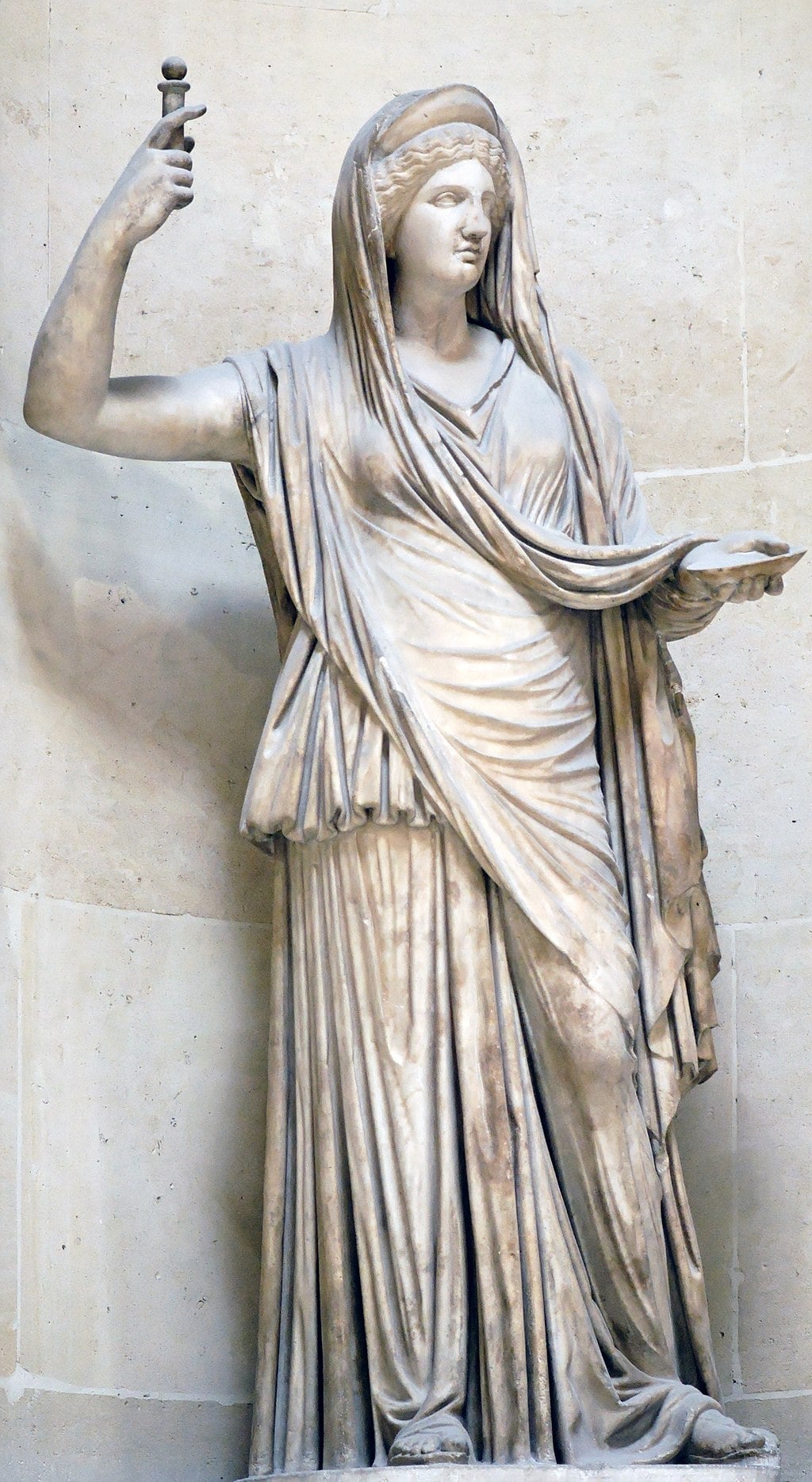
In ancient Greek religion, Hera is the goddess of marriage, women and family, and the protector of women during childbirth. In Greek mythology, she is queen of the twelve Olympians and Mount Olympus, sister and wife of Zeus, and daughter of the Titans Cronus and Rhea. One of her defining characteristics in myth is her jealous and vengeful nature in dealing with any who offend her, especially Zeus’ numerous adulterous lovers and illegitimate offspring.
Hestia
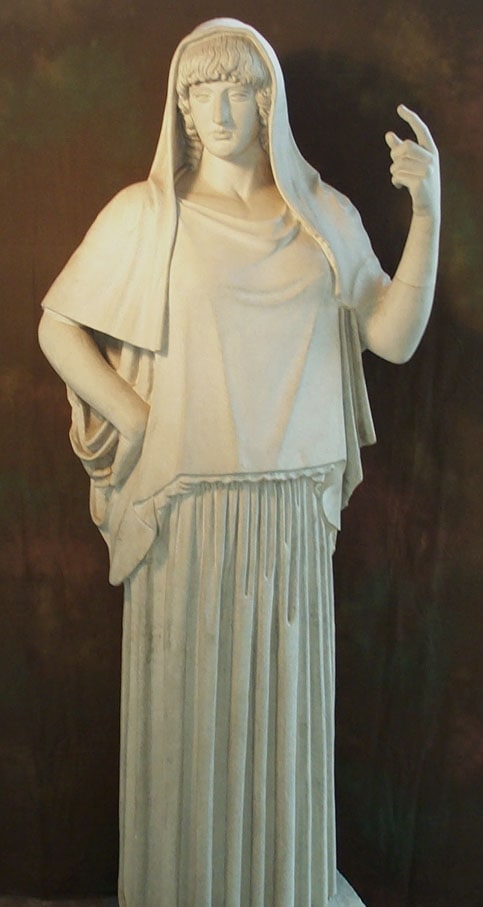
In ancient Greek religion and mythology, Hestia is the virgin goddess of the hearth, the right ordering of domesticity, the family, the home, and the state. In myth, she is the firstborn child of the Titans Cronus and Rhea.
Read More About Hestia / Source
Poseidon
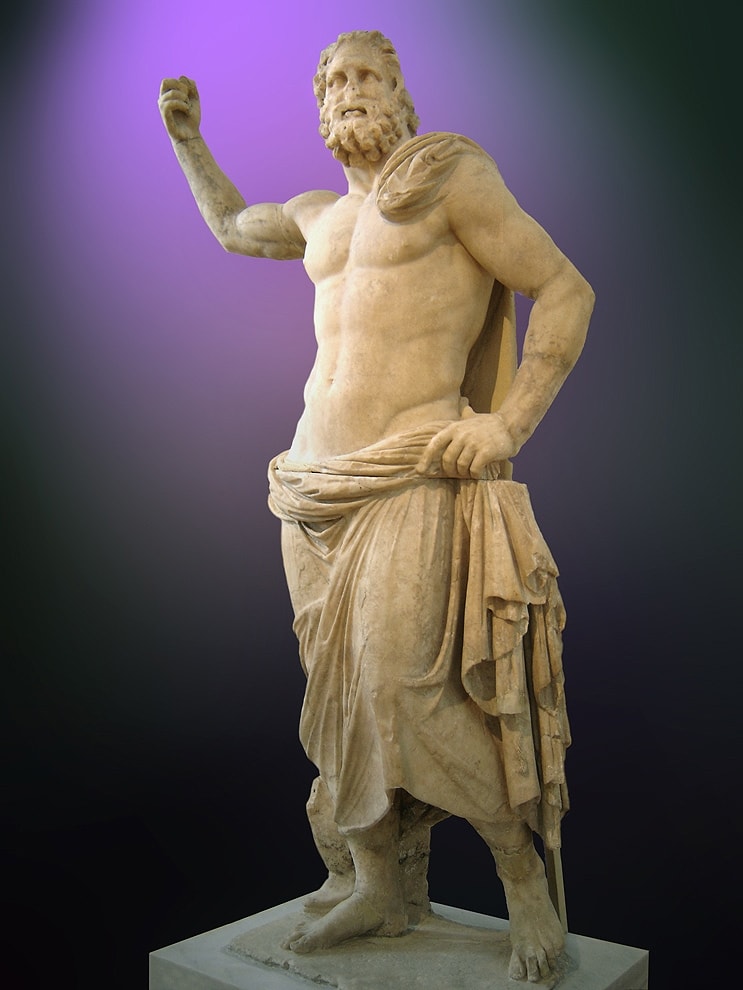
Poseidon was one of the Twelve Olympians in ancient Greek religion and myth, god of the sea, storms, earthquakes and horses.In pre-Olympian Bronze Age Greece, he was venerated as a chief deity at Pylos and Thebes.He also had the cult title “earth shaker”. In the myths of isolated Arcadia he is related with Demeter and Persephone and he was venerated as a horse, however, it seems that he was originally a god of the waters.He is often regarded as the tamer or father of horses, and with a strike of his trident, he created springs which are related to the word horse. His Roman equivalent is Neptune.
Read More About Poseidon / Source
Uranus
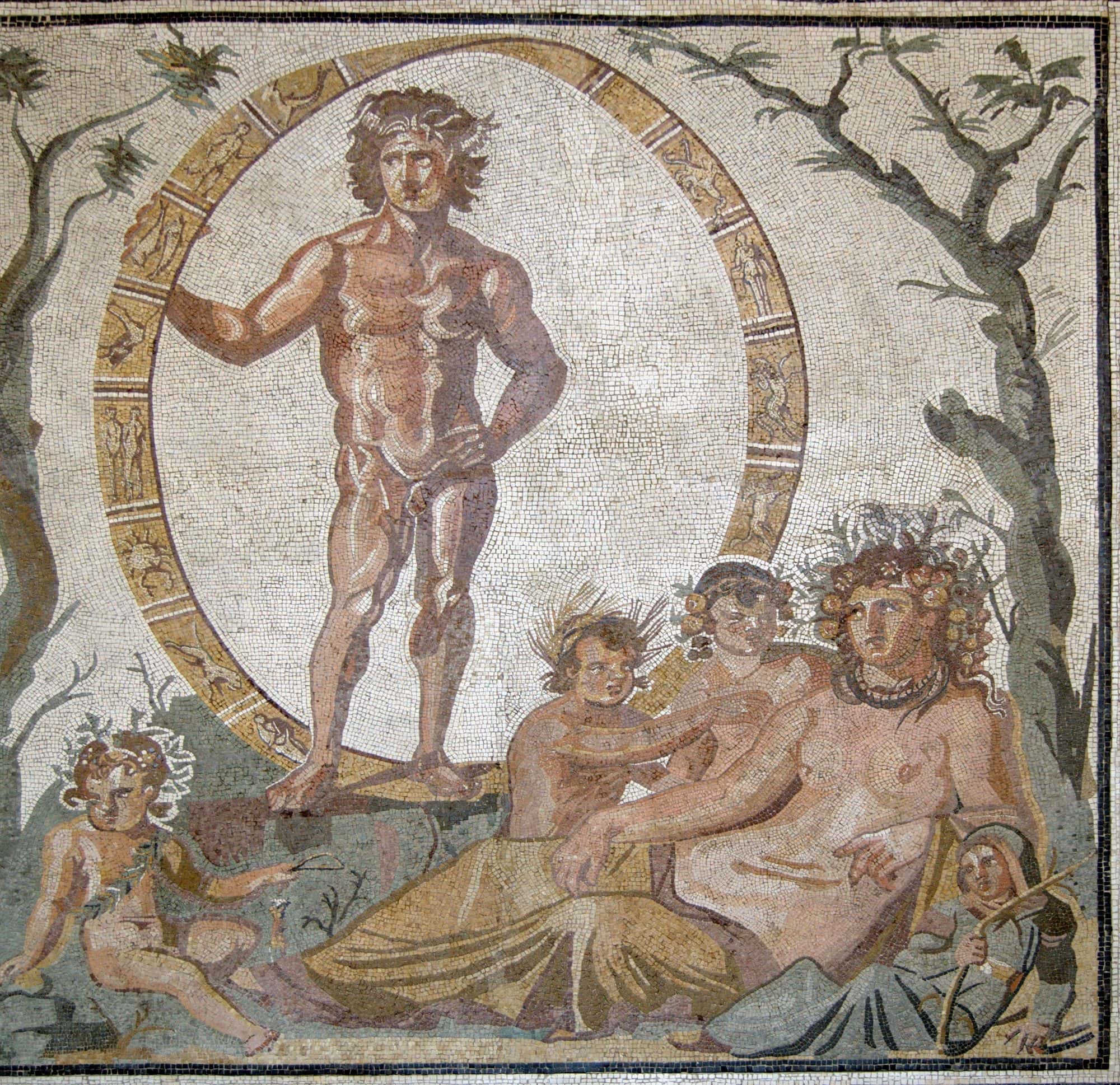
In Greek mythology, Uranus sometimes written Ouranos is the personification of the sky and one of the Greek primordial deities. According to Hesiod, Uranus was the son and husband of Gaia (Earth), with whom he fathered the first generation of Titans. However, no cult addressed directly to Uranus survived into Classical times, and Uranus does not appear among the usual themes of Greek painted pottery. Elemental Earth, Sky, and Styx might be joined, however, in solemn invocation in Homeric epic.Uranus is associated with the Roman god Caelus and the Jewish god Yahweh.
Read More About Uranus / Source
Thanatos
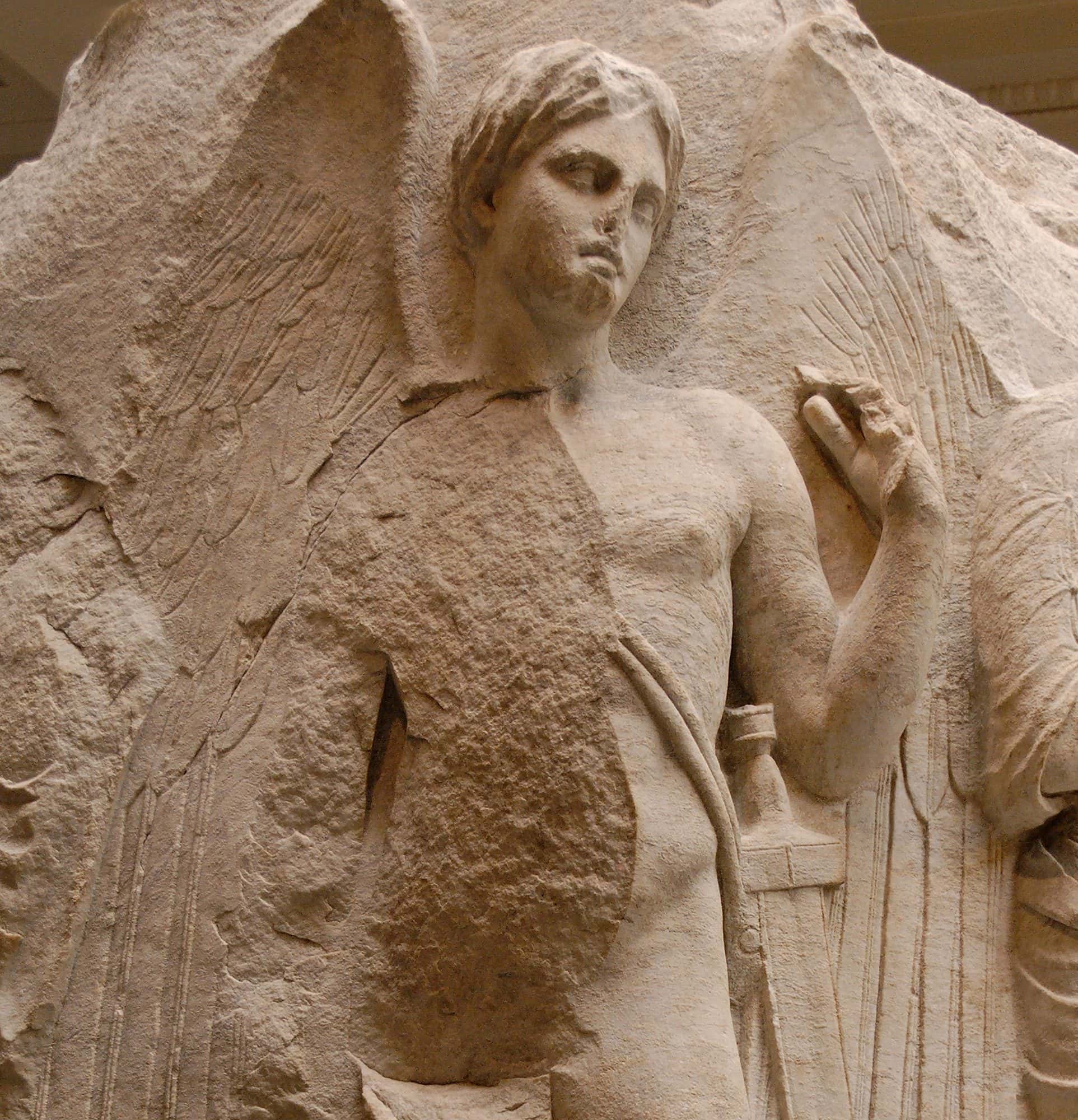
In Greek mythology, Thanatos was the personification of death. He was a minor figure in Greek mythology, often referred to but rarely appearing in person.
Read More About Thanatos / Source
Tartarus
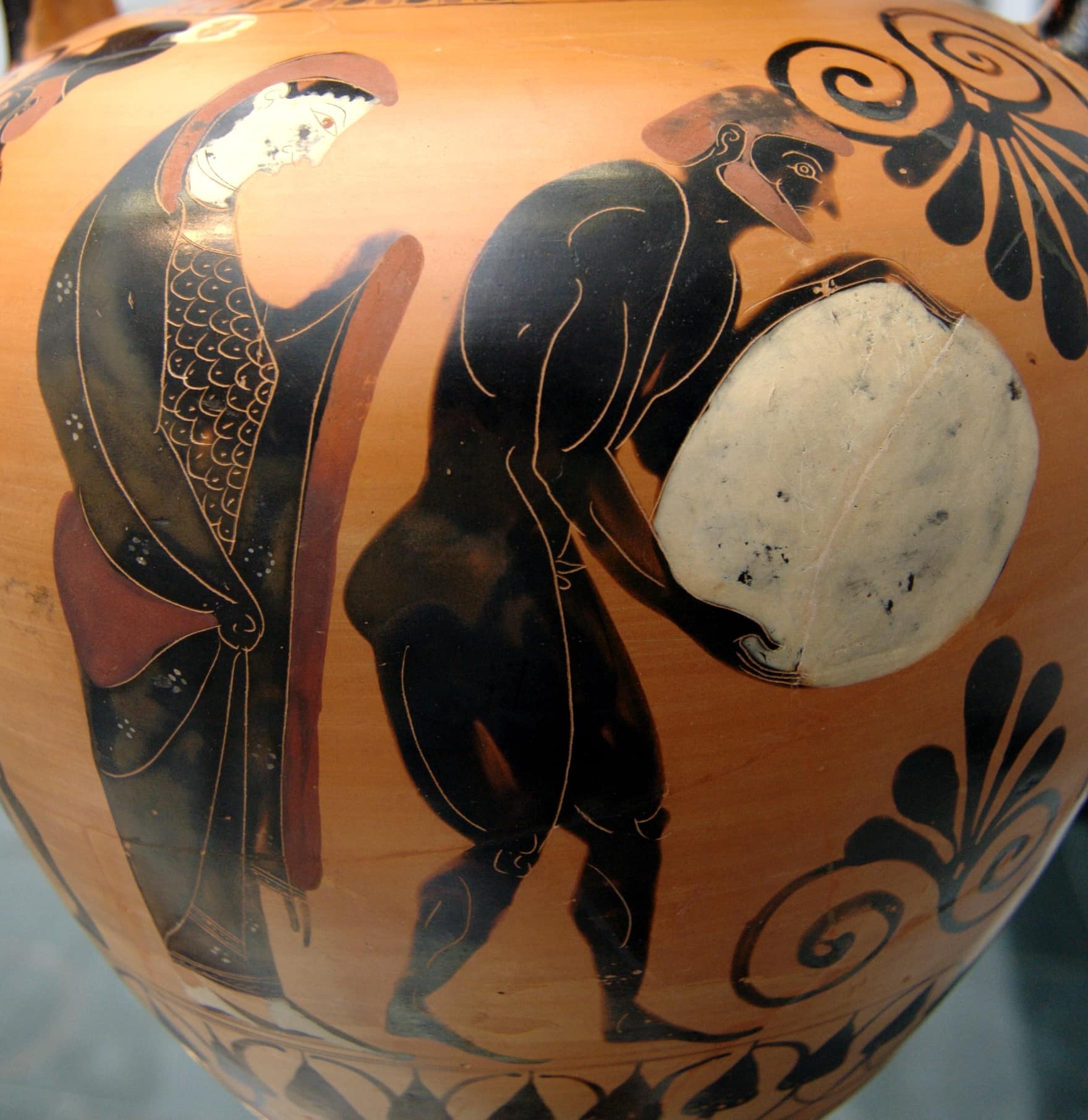
In Greek mythology, Tartarus is the deep abyss that is used as a dungeon of torment and suffering for the wicked and as the prison for the Titans. Tartarus is the place where, according to Plato’s Gorgias (c. 400 BC), souls are judged after death and where the wicked received divine punishment. Tartarus is also considered to be a primordial force or deity alongside entities such as the Earth, Night, and Time.
Read More About Tartarus / Source
Pontus
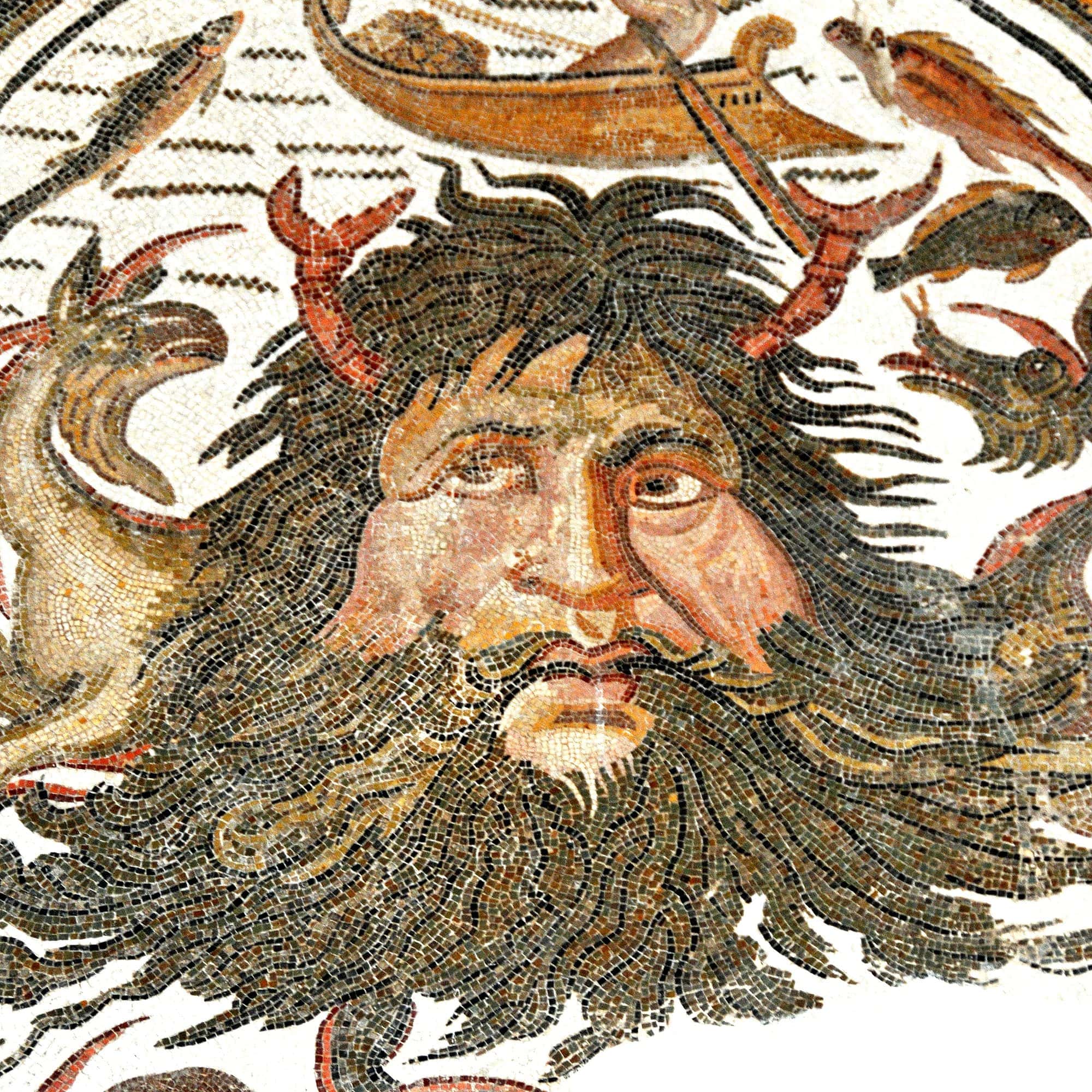
In Greek mythology, Pontus was an ancient, pre-Olympian sea-god, one of the Greek primordial deities. Pontus was Gaia’s son and has no father; according to the Greek poet Hesiod, he was born without coupling, though according to Hyginus, Pontus is the son of Aether and Gaia.
Read More About Pontus / Source
Phanes
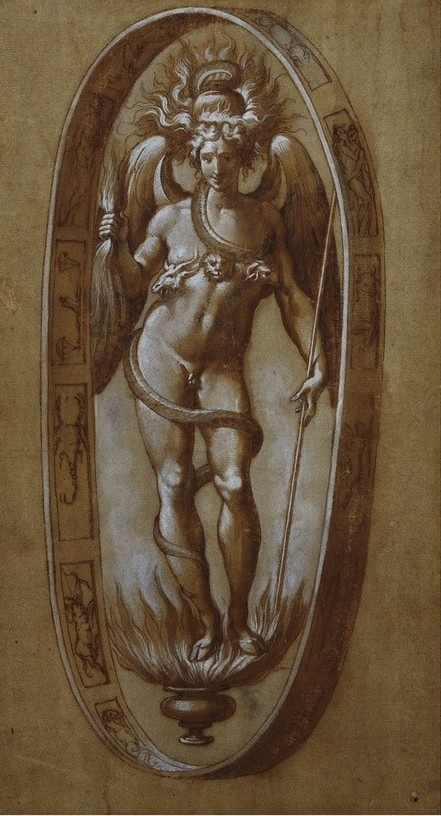
Phanes or Protogonus was the mystic primeval deity of procreation and the generation of new life, who was introduced into Greek mythology by the Orphic tradition; other names for this Classical Greek Orphic concept included Ericapaeus, romanized and Metis.
Read More About Phanes / Source
Nyx
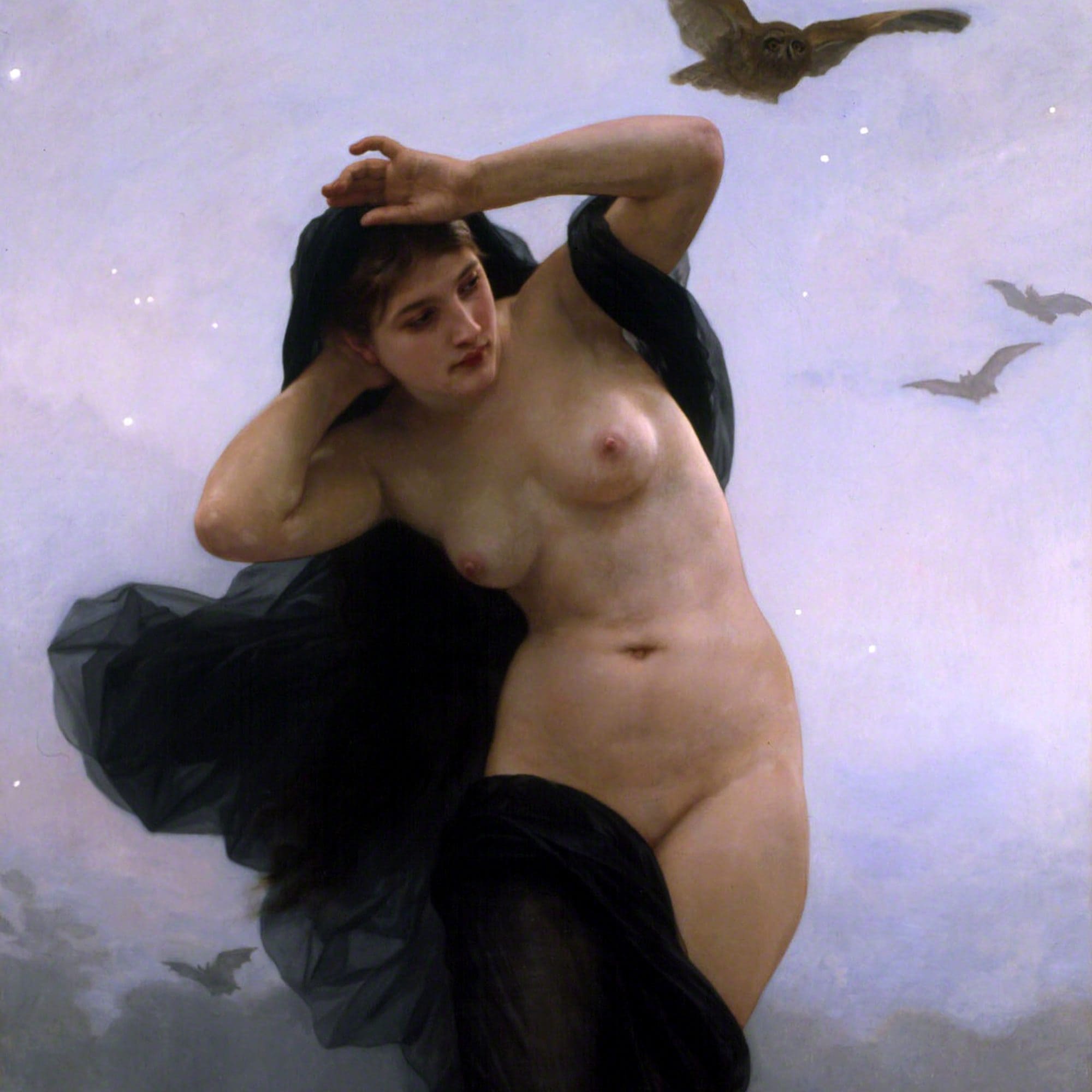
Nyx is the Greek goddess and the personification of the night. A shadowy figure, Nyx stood at or near the beginning of creation and mothered other personified deities such as Hypnos (Sleep) and Thanatos (Death), with Erebus (Darkness). Her Roman equivalent is Nox.
Nemesis
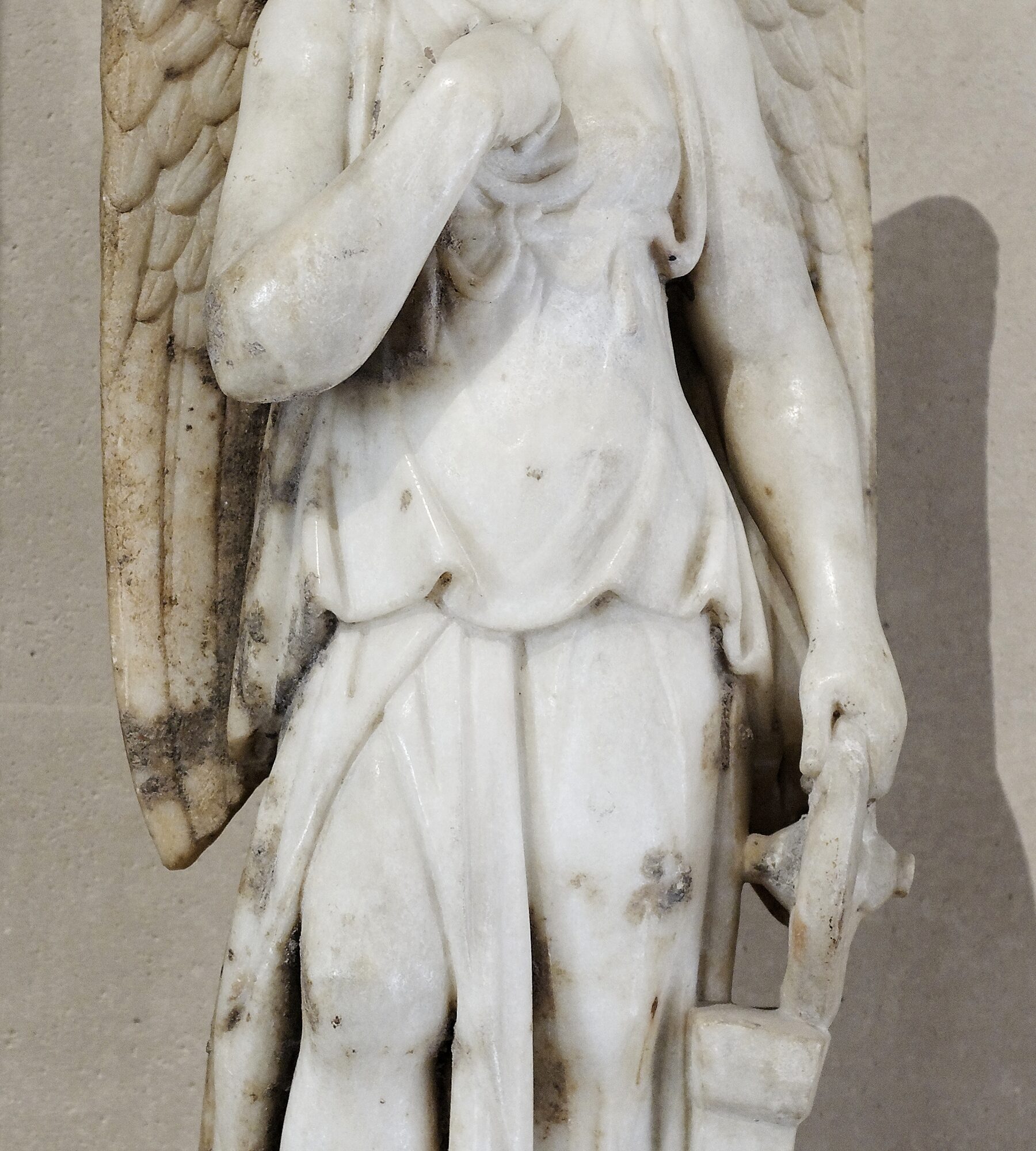
In ancient Greek religion, Nemesis,also called Rhamnousia or Rhamnusia, is the goddess who enacts retribution against those who succumb to hubris, arrogance before the gods.
Read More About Nemesis / Source
Achelous
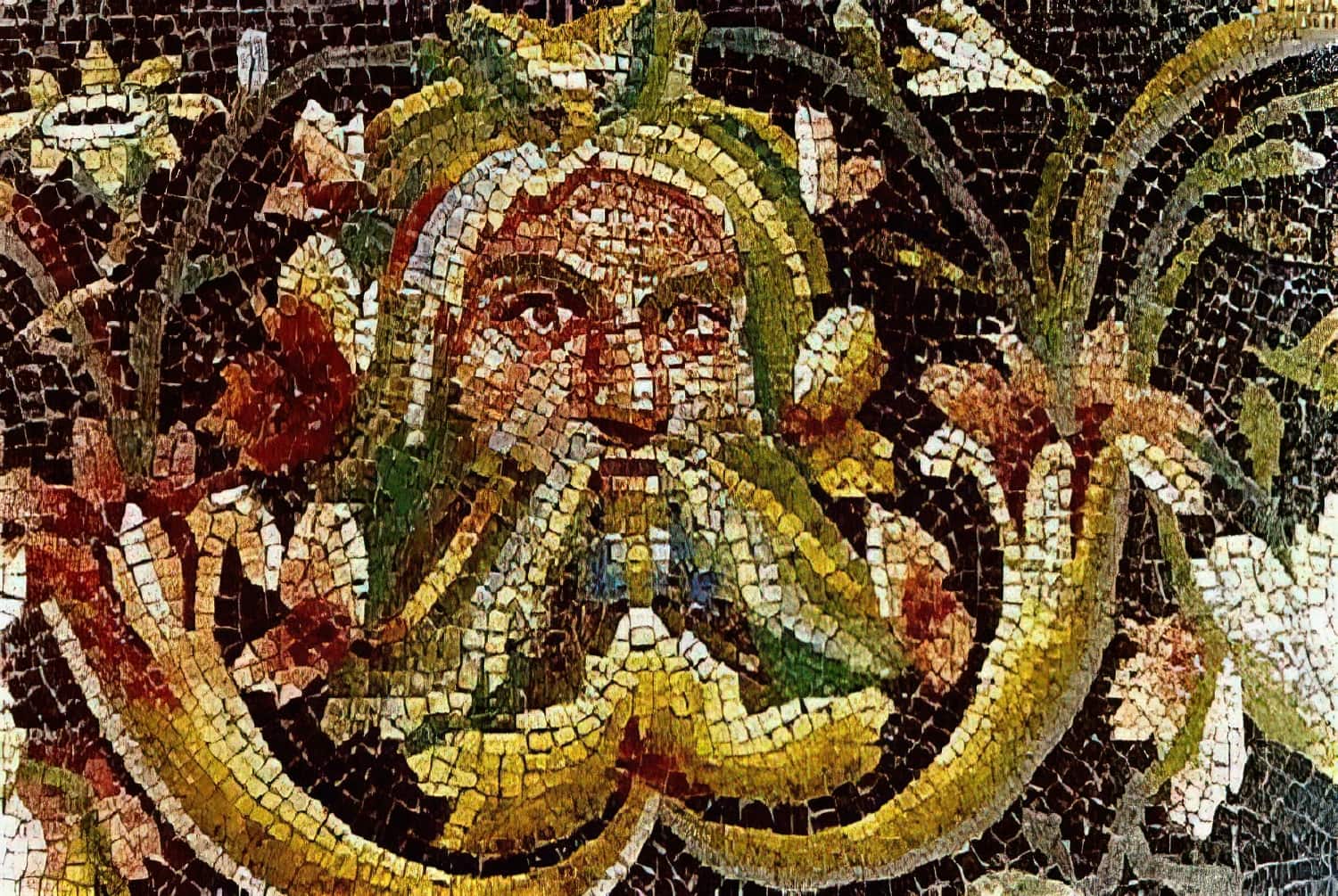
In ancient Greek religion and mythology, Achelous was the god associated with the Achelous River, the largest river in Greece. According to Hesiod, he was the son of the Titans Oceanus and Tethys. He was also said to be the father of the Sirens, several nymphs, and other offspring.
Read More About Achelous / Source
Achilles
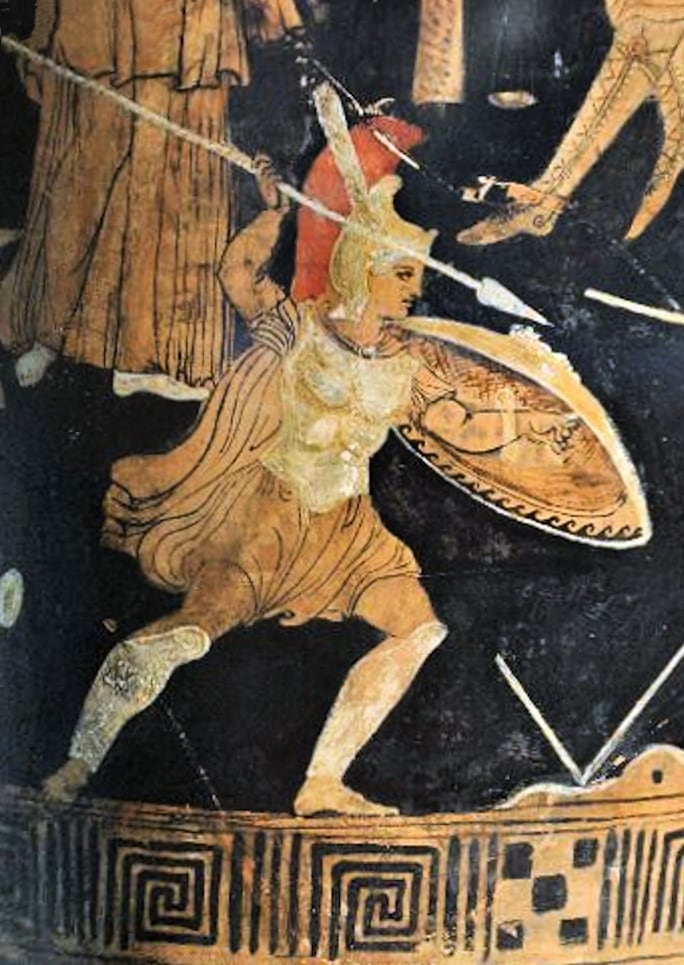
In Greek mythology, Achilles ( ə-KIL-eez) or Achilleus (Greek: Ἀχιλλεύς) was a hero of the Trojan War, the greatest of all the Greek warriors, and the central character of Homer’s Iliad. He was the son of the Nereid Thetis and Peleus, king of Phthia.
Achilles’ most notable feat during the Trojan War was the slaying of the Trojan prince Hector outside the gates of Troy. Although the death of Achilles is not presented in the Iliad, other sources concur that he was killed near the end of the Trojan War by Paris, who shot him with an arrow. Later legends (beginning with Statius’ unfinished epic Achilleid, written in the 1st century AD) state that Achilles was invulnerable in all of his body except for one heel, because when his mother Thetis dipped him in the river Styx as an infant, she held him by one of his heels. Alluding to these legends, the term “Achilles’ heel” has come to mean a point of weakness, especially in someone or something with an otherwise strong constitution. The Achilles tendon is also named after him due to these legends.
Read More About Achilles / Source
Adonis
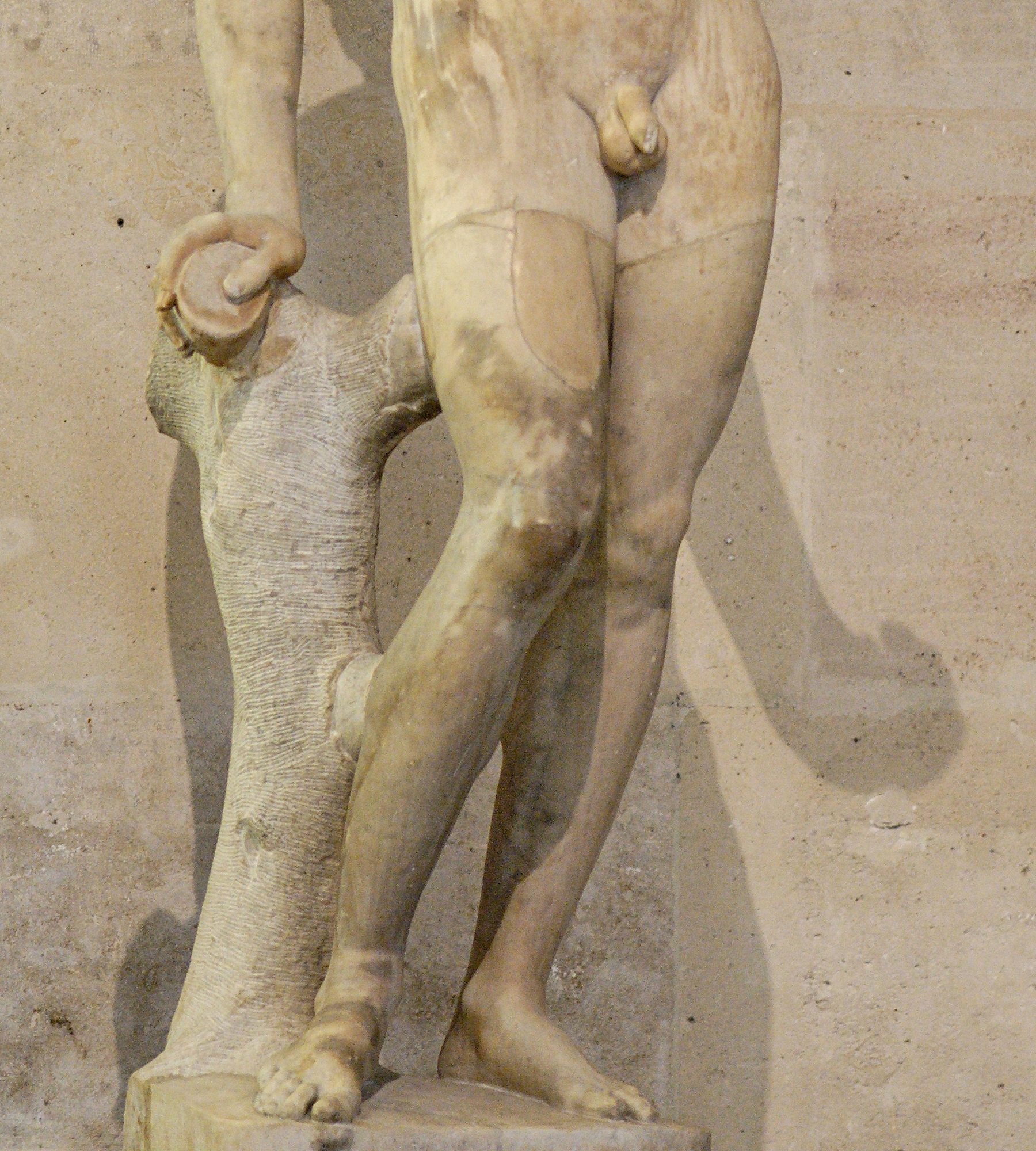
In Greek mythology, Adonis was the mortal lover of the goddess Aphrodite.
Read More About Adonis / Source
Aether
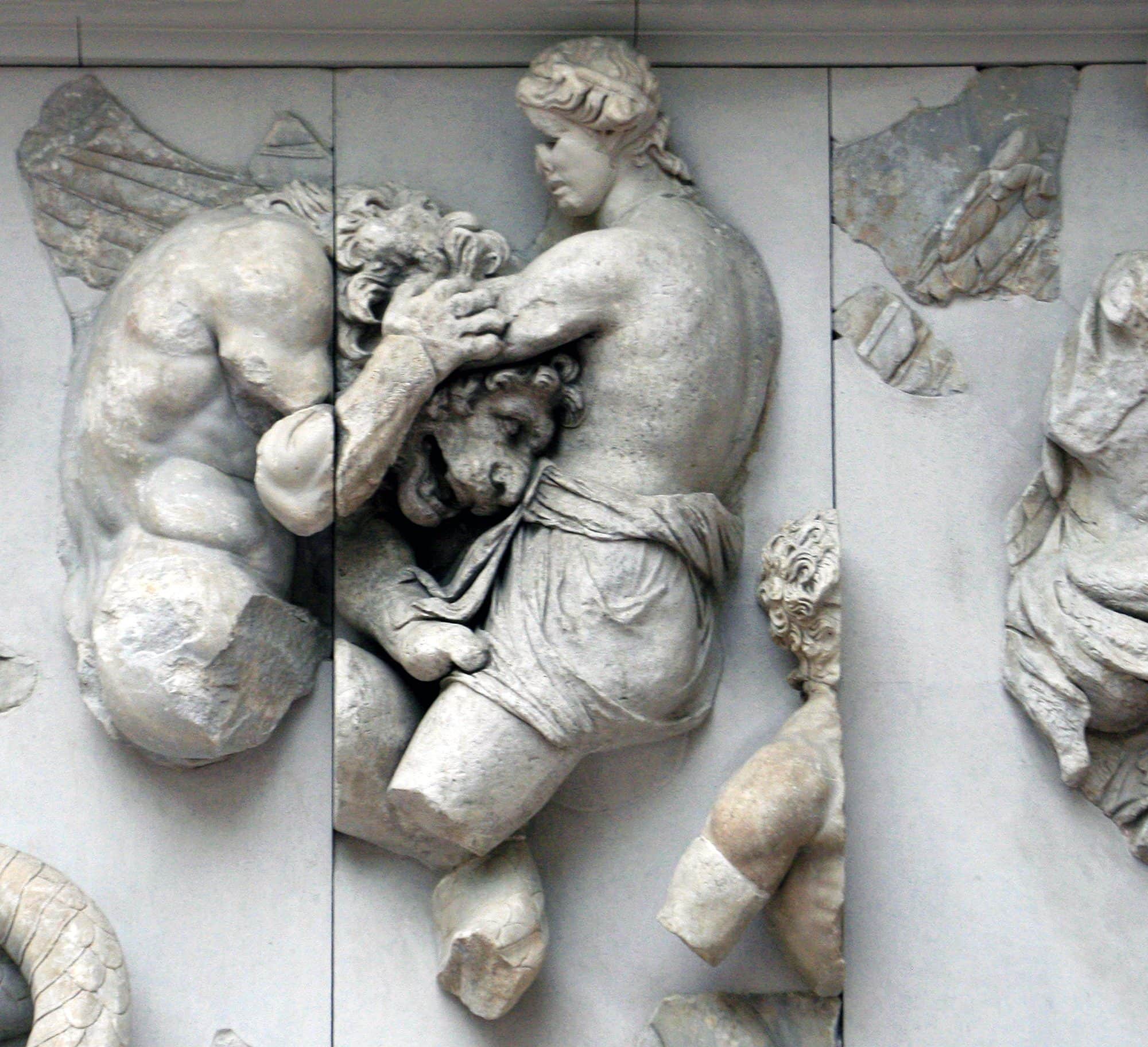
In Greek mythology, Aether, Æther, Aither, or Ether is the personification of the bright upper sky. According to Hesiod, he was the son of Erebus (Darkness) and Nyx (Night), and the brother of Hemera (Day).In Orphic cosmogony Aether was the offspring of Chronus (Time), and the brother of Chaos and Erebus.
Read More About Aether / Source
Aglaea
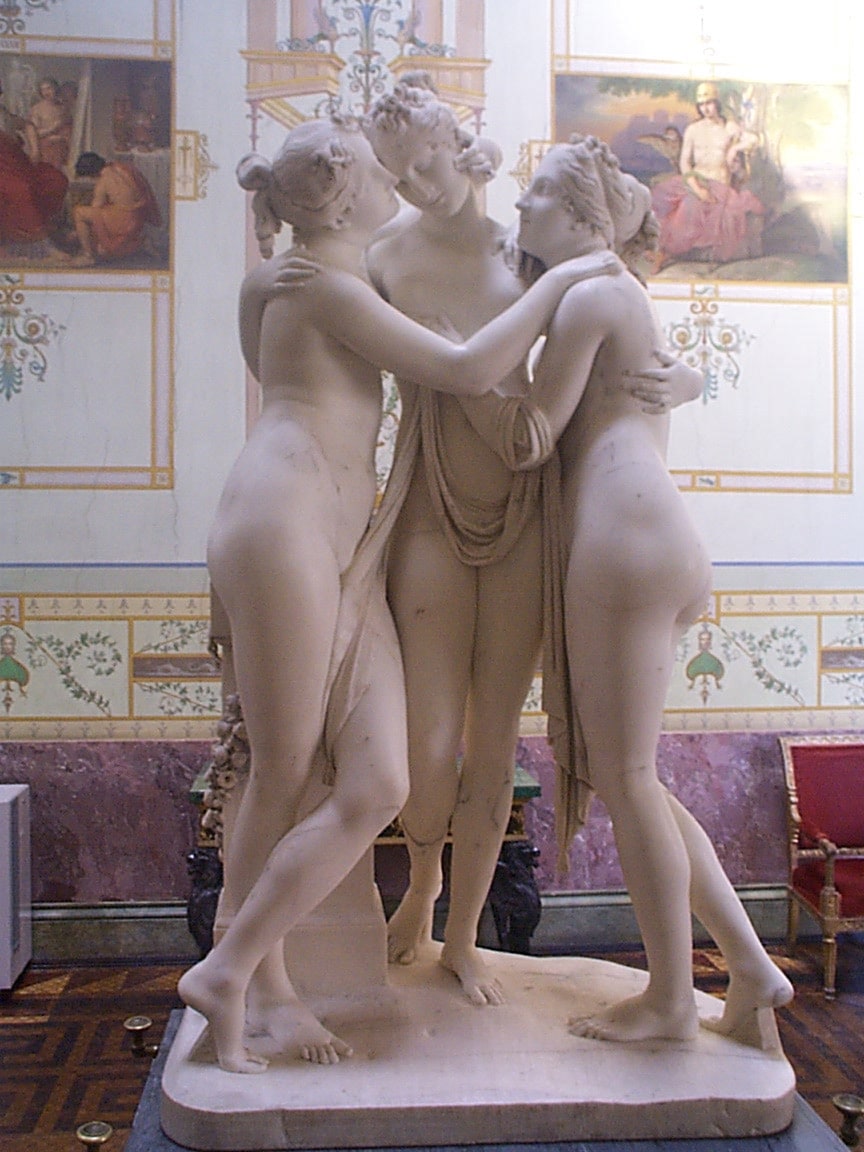
Aglaea or Aglaïa is one of the three Charites or Gratiae (Graces) in Greek mythology.
Read More About Aglaea / Source
Aion
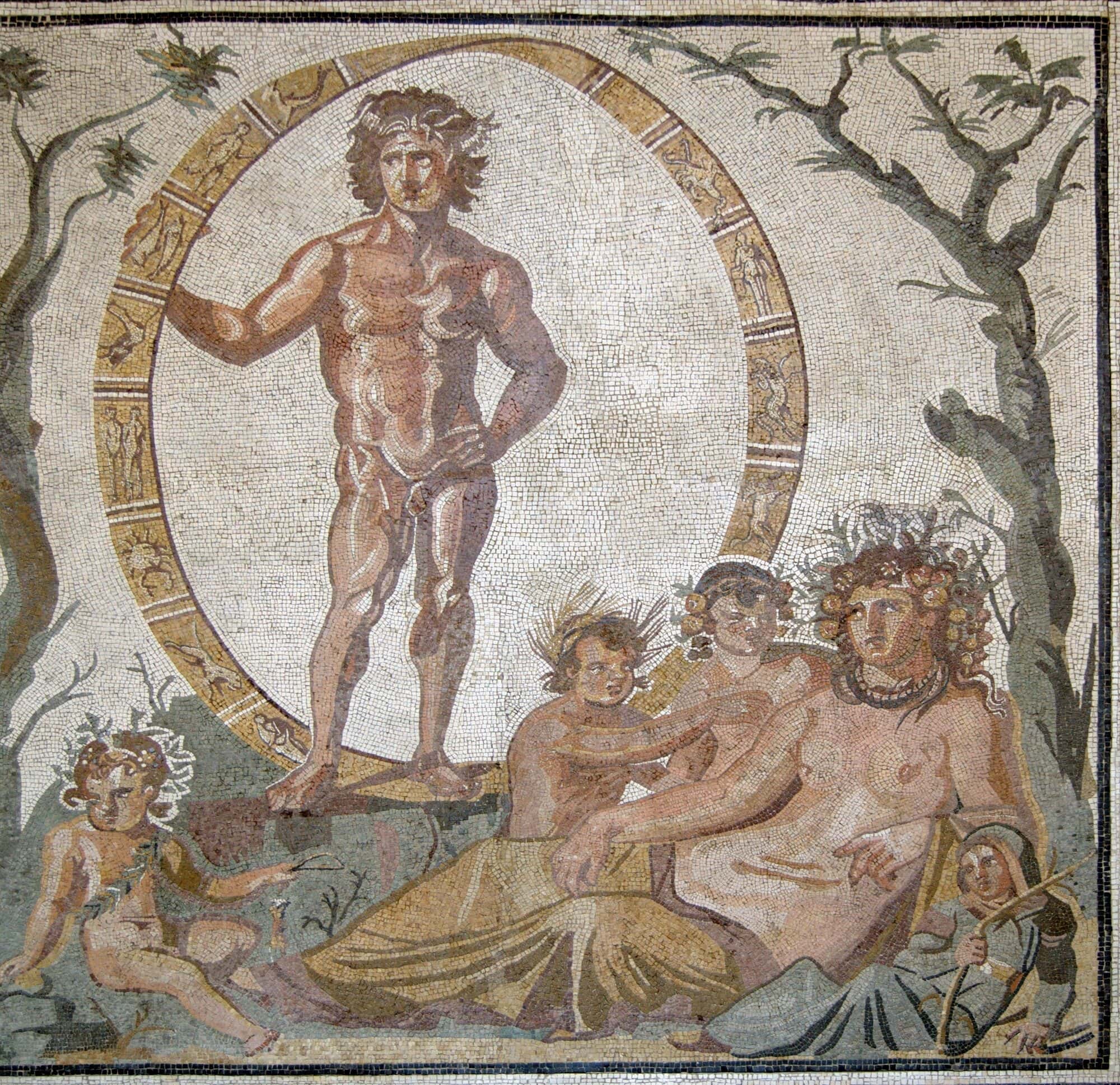
Aion is a Hellenistic deity associated with time, the orb or circle encompassing the universe, and the zodiac. The “time” which Aion represents is perpetual, unbounded, ritual, and cyclic: The future is a returning version of the past, later called aevum. This kind of time contrasts with empirical, linear, progressive, and historical time that Chronos represented, which divides into past, present, and future.
Alecto
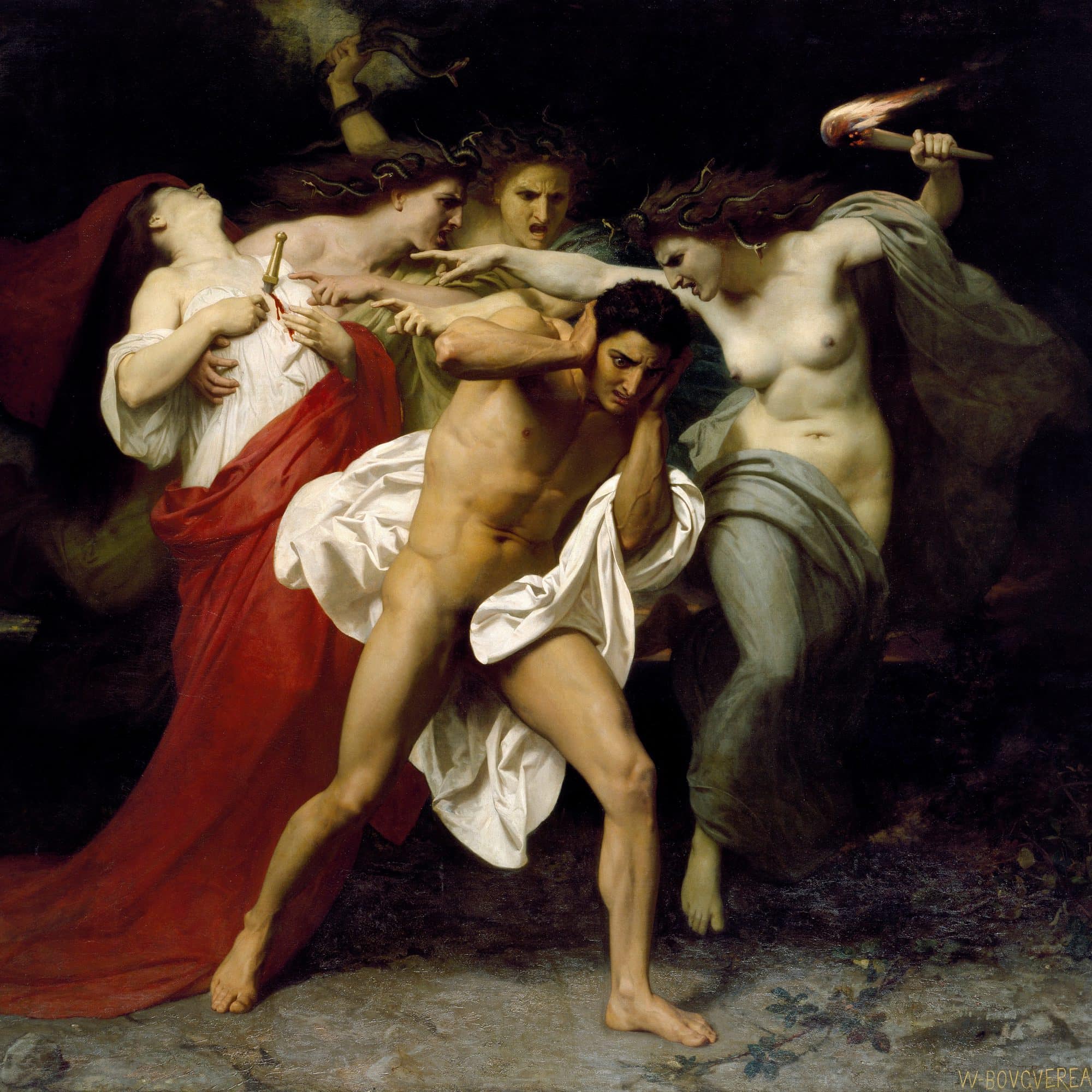
Alecto (Ancient Greek: Ἀληκτώ, romanized: Alēktṓ, lit. ’the implacable or unceasing anger’) is one of the Erinyes (Furies) in Greek mythology.
Read More About Alecto / Source
Amphitrite
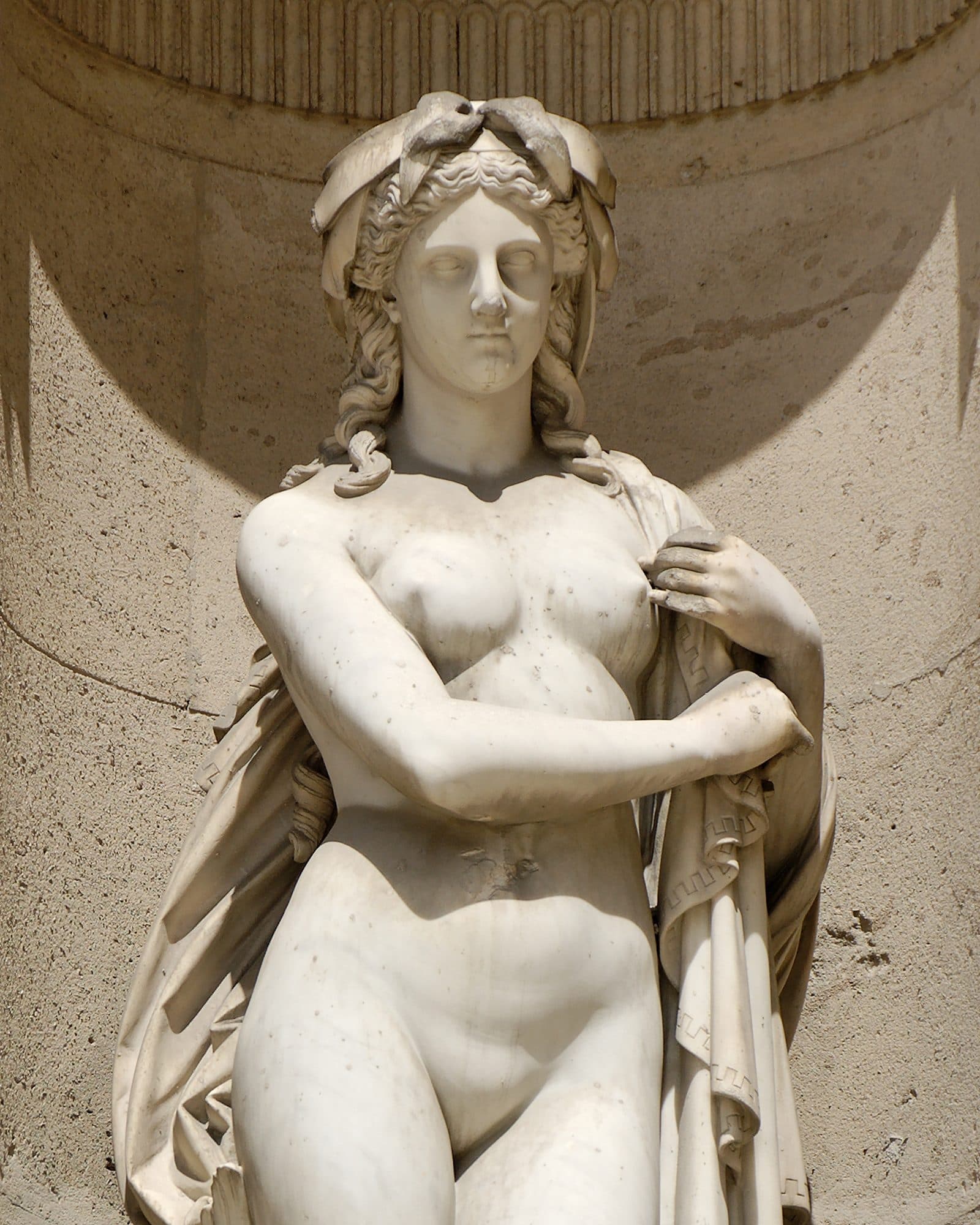
In ancient Greek mythology, Amphitrite was the goddess of the sea, the queen of the sea, and the wife of Poseidon. She was a daughter of Nereus and Doris (or Oceanus and Tethys). Under the influence of the Olympian pantheon, she became the consort of Poseidon and was later used as a symbolic representation of the sea. Her Roman counterpart is Salacia, a comparatively minor figure, and the goddess of saltwater.
Read More About Amphitrite / Source
Ananke
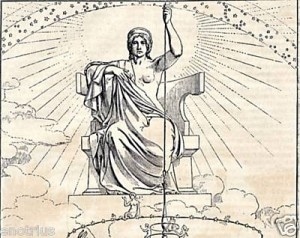
In ancient Greek religion, Ananke is the personification of inevitability, compulsion and necessity. She is customarily depicted as holding a spindle. One of the Greek primordial deities, the births of Ananke and her brother and consort, Chronos (the personification of Time, not to be confused with the Titan Cronus) were thought to mark the division between the eon of Chaos and the beginning of the cosmos. Ananke is considered the most powerful dictator of fate and circumstance. Mortals and gods alike respected her power and paid her homage. Sometimes considered the mother of the Fates, she is thought to be the only being to influence their decisions (according to some sources, excepting Zeus also). According to Schowalter and Friesen, she and the Fates “are all sufficiently tied to early Greek mythology to make their Greek origins likely.”
Read More About Ananke / Source
Antaeus
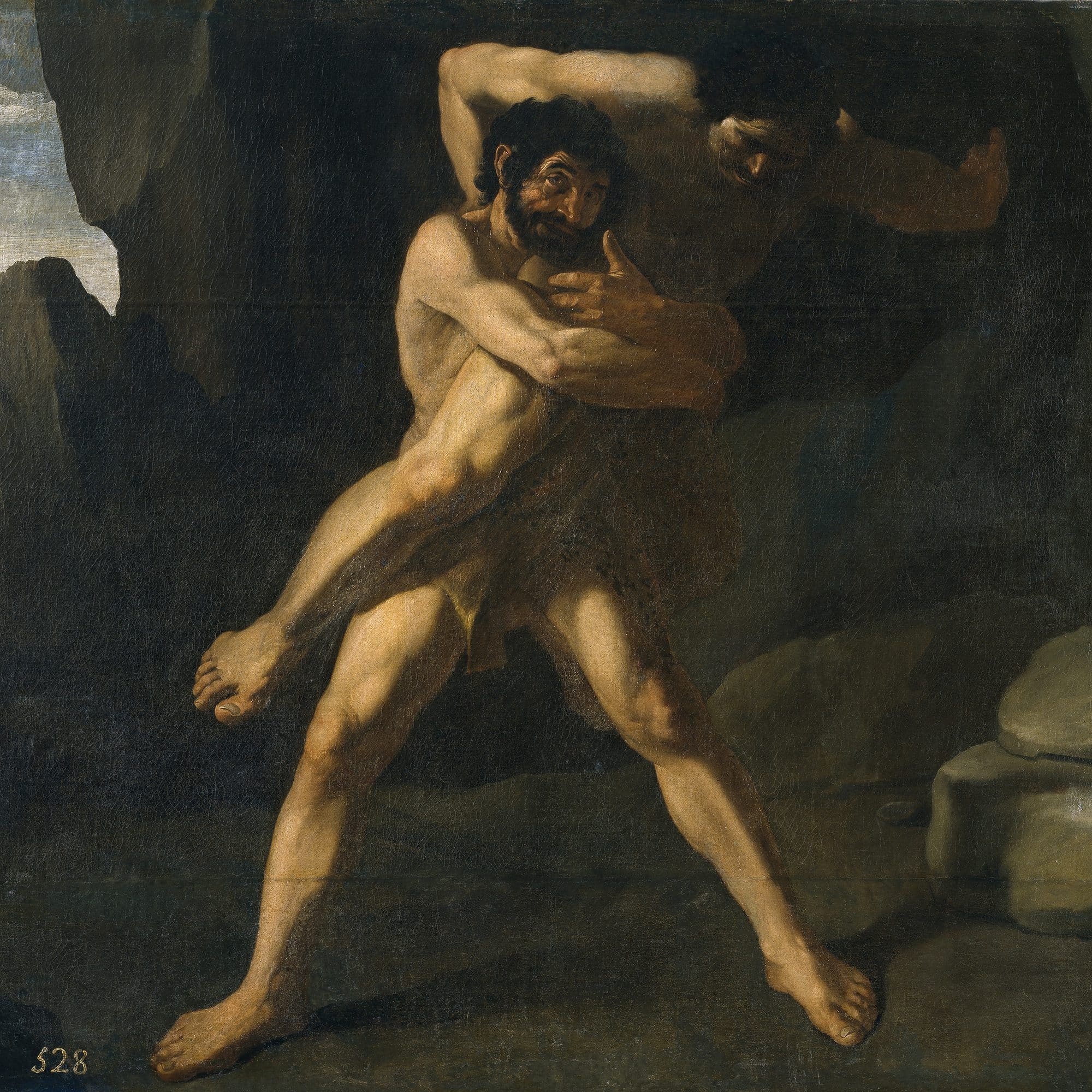
Antaeus (/ænˈtiːəs/; Ancient Greek: Ἀνταῖος Antaîos, lit. “opponent”, derived from ἀντάω, antao – ‘I face, I oppose’), known to the Berbers as Anti, was a figure in Berber and Greek mythology. He was famed for his defeat by Heracles as part of the Labours of Hercules.
Read More About Antaeus / Source
Anteros
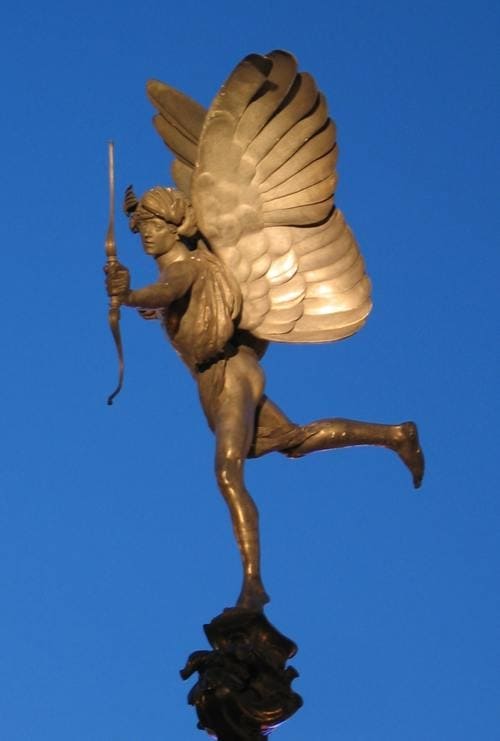
In Greek mythology, Anteros was the god of requited love (literally “love returned” or “counter-love”) and also the punisher of those who scorn love and the advances of others, or the avenger of unrequited love.[citation needed] He is one of the Erotes.
Read More About Anteros / Source
Antheia
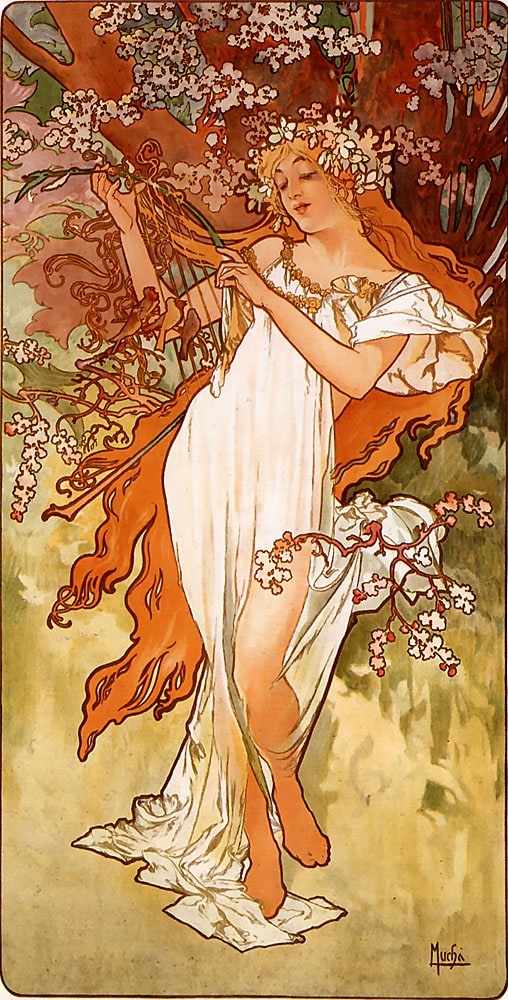
Antheia was one of the Charites, or Graces, of Greek mythology and was the goddess of swamps and flowery wreaths. She is the daughter of Zeus and Eurynome. She was depicted in Athenian vase painting as one of the attendants of Aphrodite.
Read More About Antheia / Source
Apate
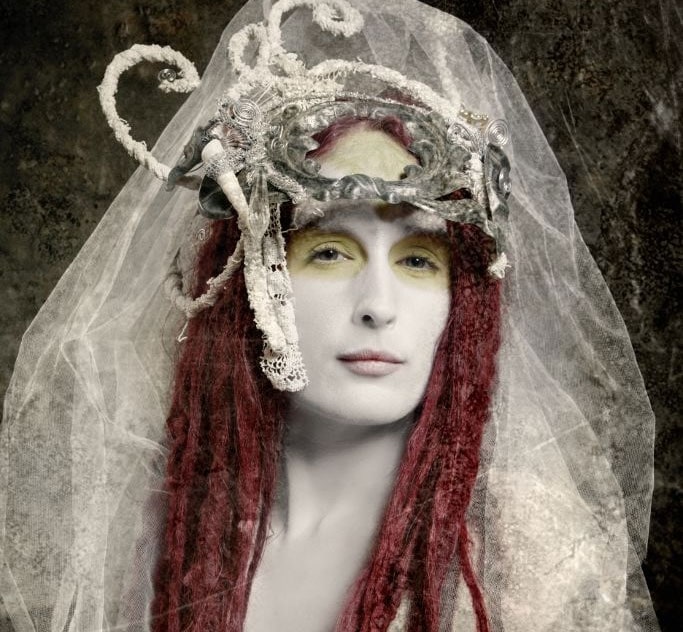
In Greek mythology, Apate was the personification of deceit. Her mother was Nyx, the personification of night. Her Roman equivalent was Fraus (i.e. “fraud”). Her male counterpart was Dolos, daemon of trickery, and her opposite number was Aletheia, the spirit of truth.
Read More About Apate / Source
Aristaeus
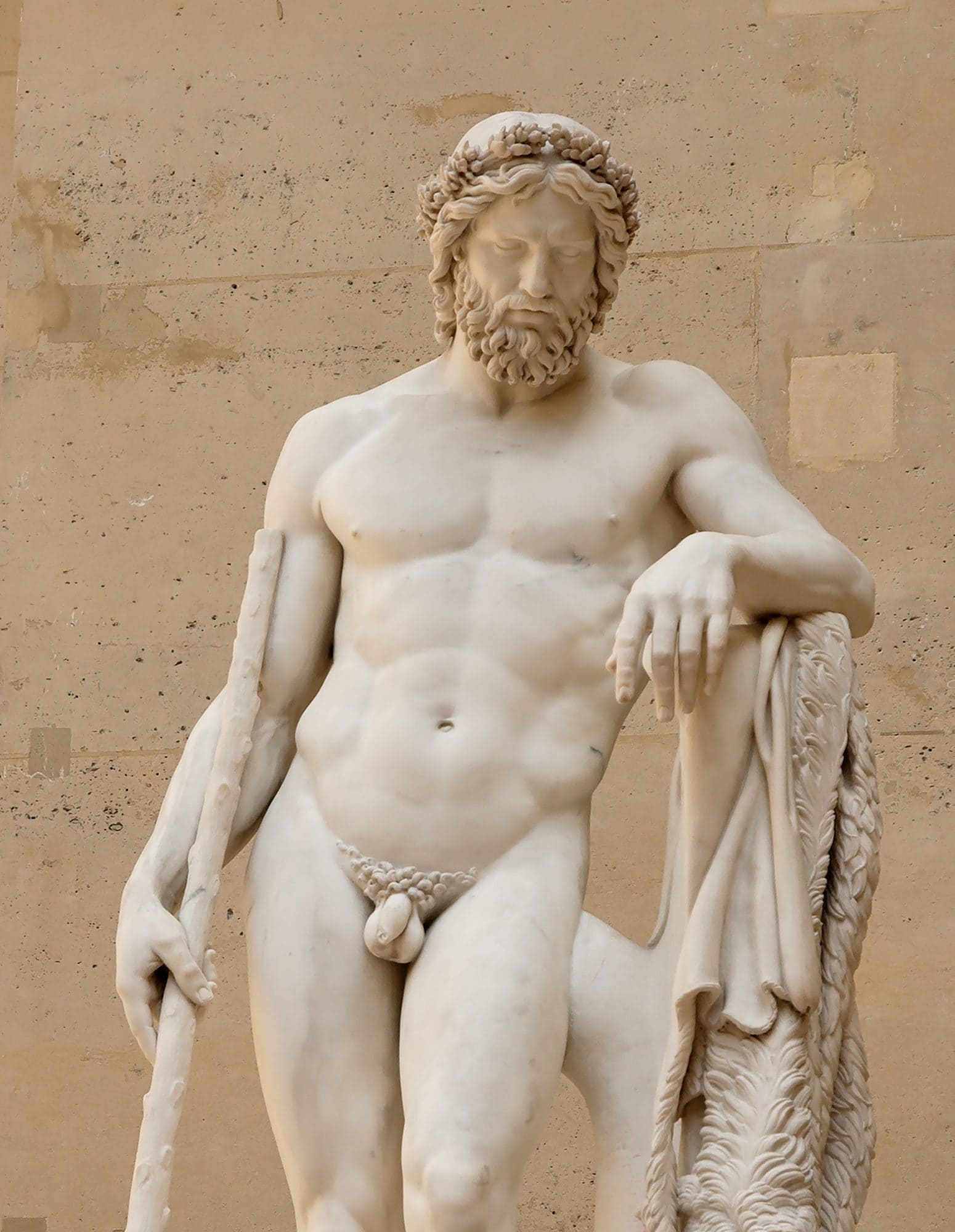
A minor god in Greek mythology, attested mainly by Athenian writers, Aristaeus, was the culture hero credited with the discovery of many useful arts, including bee-keeping;he was the son of the huntress Cyrene and Apollo.
Read More About Aristaeus / Source
Asclepius
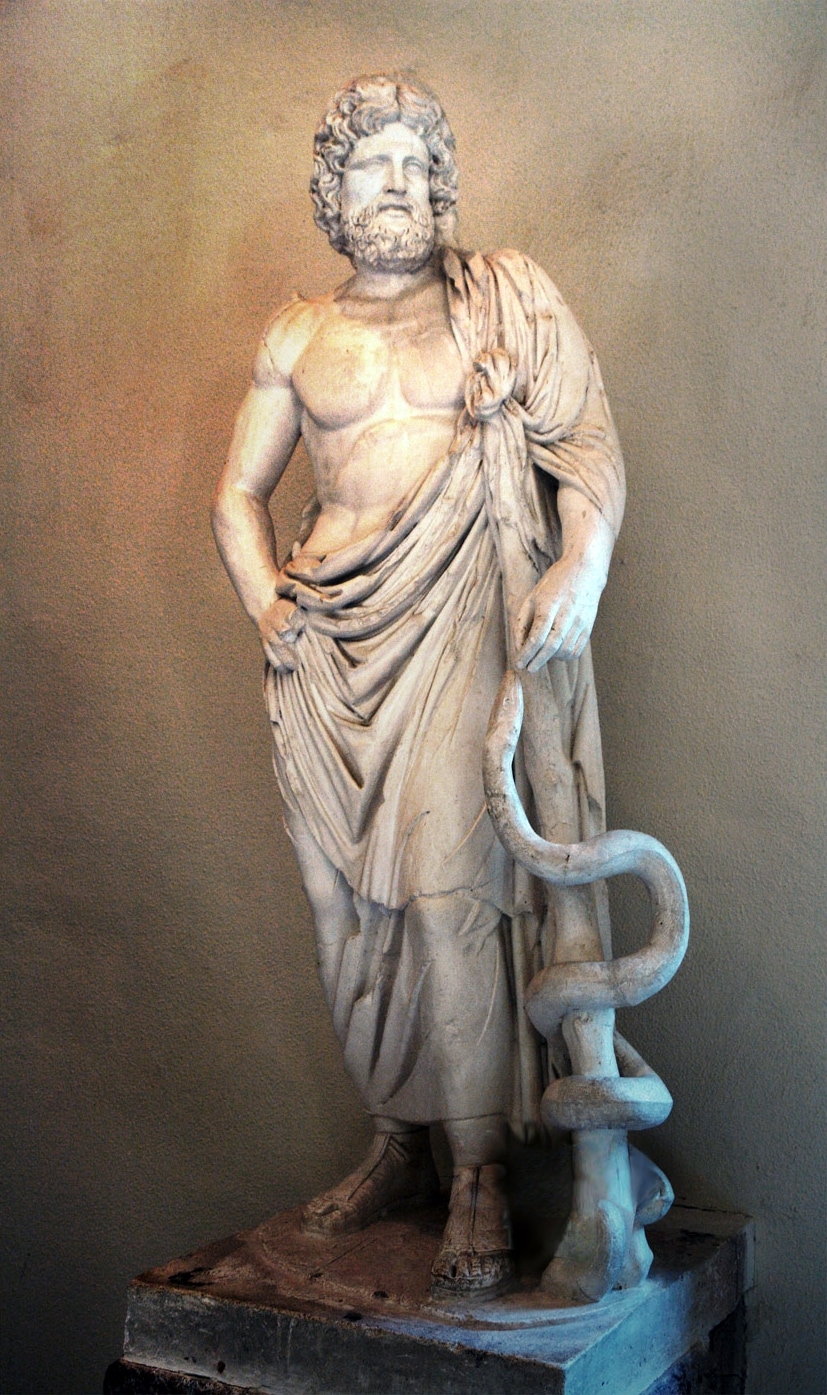
Asclepius is a hero and god of medicine in ancient Greek religion and mythology. He is the son of Apollo and Coronis, or Arsinoe, or of Apollo alone. Asclepius represents the healing aspect of the medical arts; his daughters, the “Asclepiades”, are: Hygieia (“Health, Healthiness”), Iaso (from ἴασις “healing, recovering, recuperation”, the goddess of recuperation from illness), Aceso (from ἄκεσις “healing”, the goddess of the healing process), Aegle (the goddess of good health) and Panacea (the goddess of universal remedy). He has several sons as well. He was associated with the Roman/Etruscan god Vediovis and the Egyptian Imhotep. He shared with Apollo the epithet Paean (“the Healer”).The rod of Asclepius, a snake-entwined staff, (similar to the caduceus) remains a symbol of medicine today. Those physicians and attendants who served this god were known as the Therapeutae of Asclepius.
Read More About Asclepius / Source
Astraeus
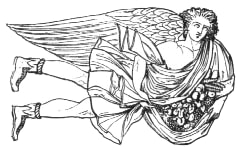
In Greek mythology, Astraeus or Astraios was an astrological deity. Some also associate him with the winds, as he is the father of the four Anemoi (wind deities), by his wife, Eos.
Read More About Astraeus / Source
Atropos
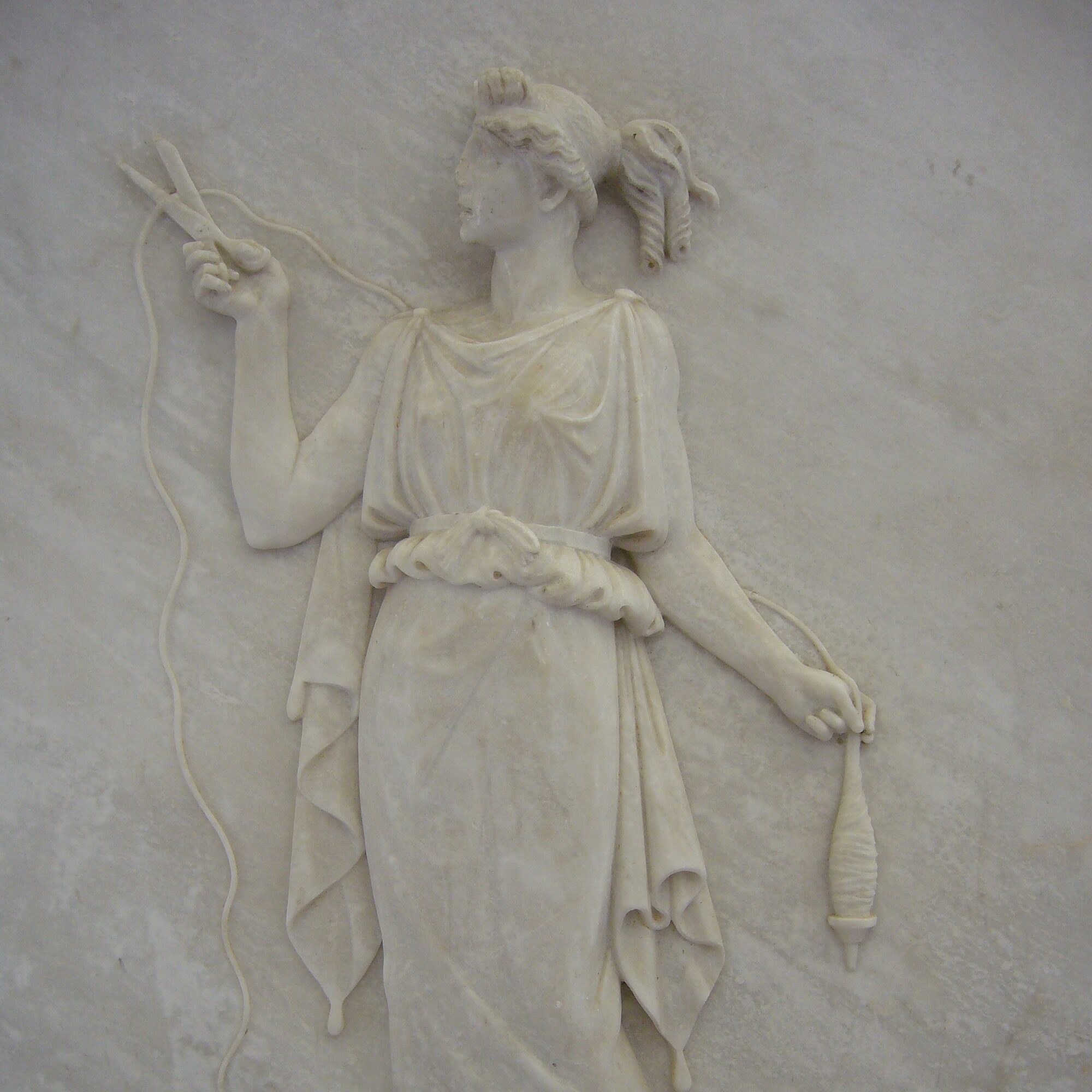
Atropos or Aisa, in Greek mythology, was one of the three Moirai, goddesses of fate and destiny. Her Roman equivalent was Morta. Atropos was the oldest of the Three Fates, and was known as “the Inflexible One.” It was Atropos who chose the manner of death and ended the life of mortals by cutting their threads. She worked along with her two sisters, Clotho, who spun the thread, and Lachesis, who measured the length. Atropos has been featured in several stories such as Atalanta and Achilles.
Read More About Atropos / Source
Attis
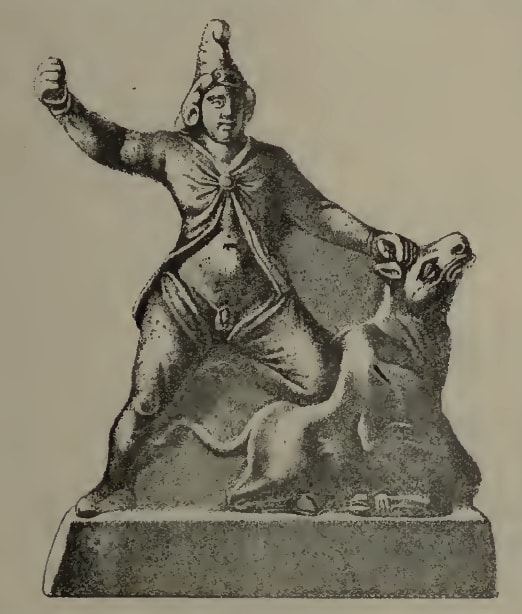
Attis was the consort of Cybele, in Phrygian and Greek mythology. His priests were eunuchs, the Galli, as explained by origin myths pertaining to Attis castrating himself. Attis was also a Phrygian vegetation deity. His self-mutilation, death, and resurrection represents the fruits of the earth, which die in winter only to rise again in the spring. According to Ovid’s Metamorphoses, Attis transformed himself into a pine tree.
Read More About Attis / Source
Bia
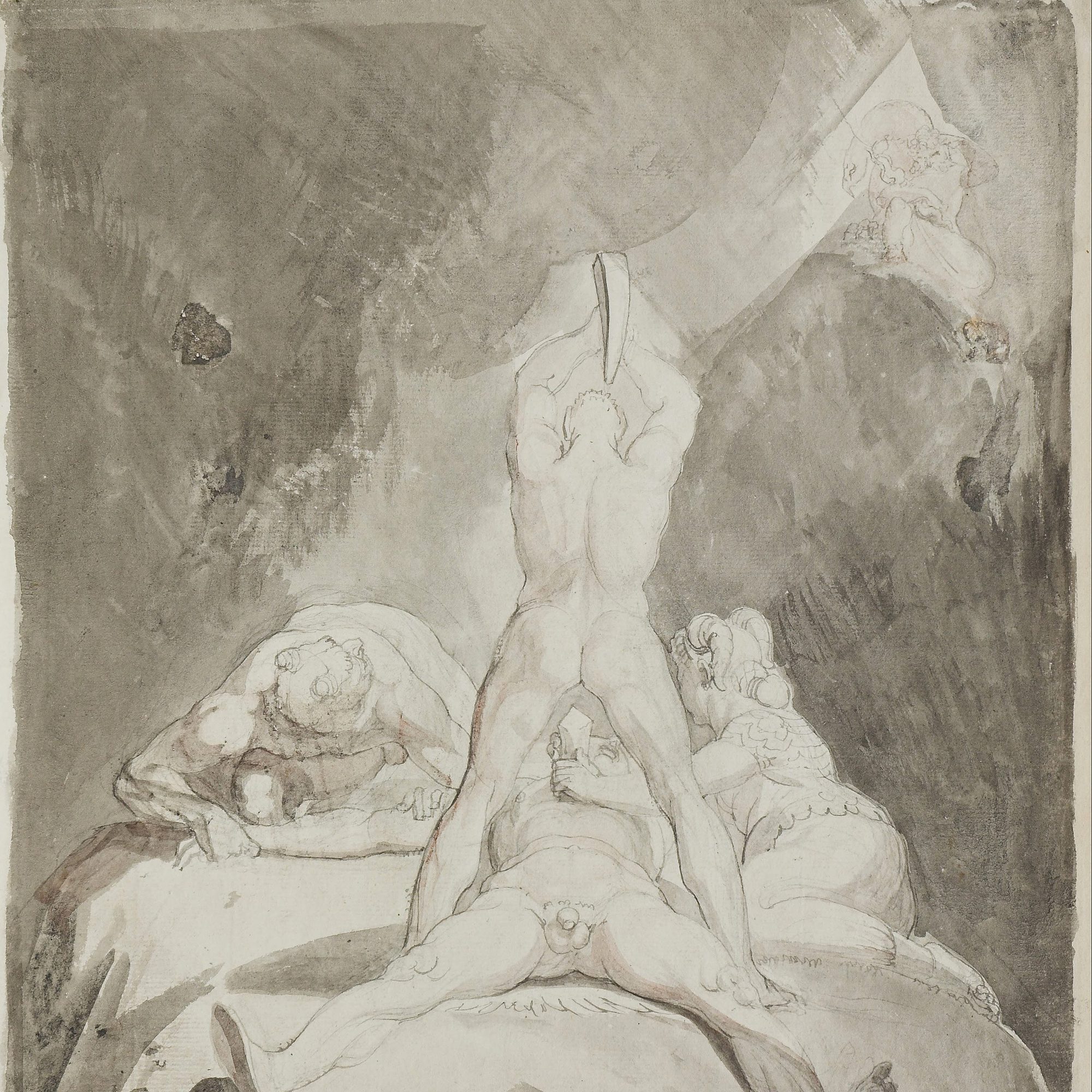
In Greek mythology, Bia (/ˈbaɪə/; Ancient Greek: Βία /ˈvi.ɑː/; means “power, force, strength”) is the personification of force.
Boreas
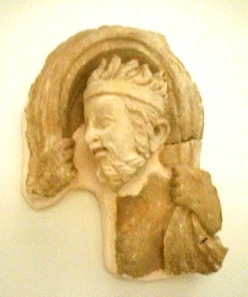
Ancient GREEK MYTHOLOGY features many recognizable figures that inspired legends we continue to tell today. While most are familiar with the famous Twelve Olympians, many lessers gods shaped culture and symbolized many core concepts of nature. One of those gods was Boreas.
Read More About Boreas / Source
Brizo

Very little is known about the Greek goddess Brizo, though she is known as both a dream goddess and a goddess of the ocean within the Greek pantheon. The Greek Myth Index indicates that she was a prophetic goddess whose Greek name stems from the word “brizein” which means “to fall asleep”. Her prophecies were delivered through dreams after her worshippers fell asleep. Brizo’s oracle would then interpret the dreams.. She was particularly attuned to prayers regarding ocean navigation and fishing.
Read More About Brizo / Source
Cadmus
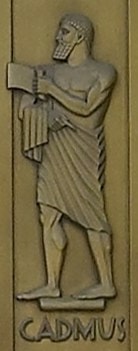
In Greek mythology, Cadmus was the legendary Phoenician founder of Boeotian Thebes. He was the first Greek hero and, alongside Perseus and Bellerophon, the greatest hero and slayer of monsters before the days of Heracles.Commonly stated to be a prince of Phoenicia, the son of king Agenor and queen Telephassa of Tyre, the brother of Phoenix, Cilix and Europa, Cadmus could trace his origins back to Zeus. Originally, he was sent by his royal parents to seek out and escort his sister Europa back to Tyre after she was abducted from the shores of Phoenicia by Zeus.In early accounts, Cadmus and Europa were instead the children of Phoenix. Cadmus founded the Greek city of Thebes, the acropolis of which was originally named Cadmeia in his honour.
Read More About Cadmus / Source
Caerus
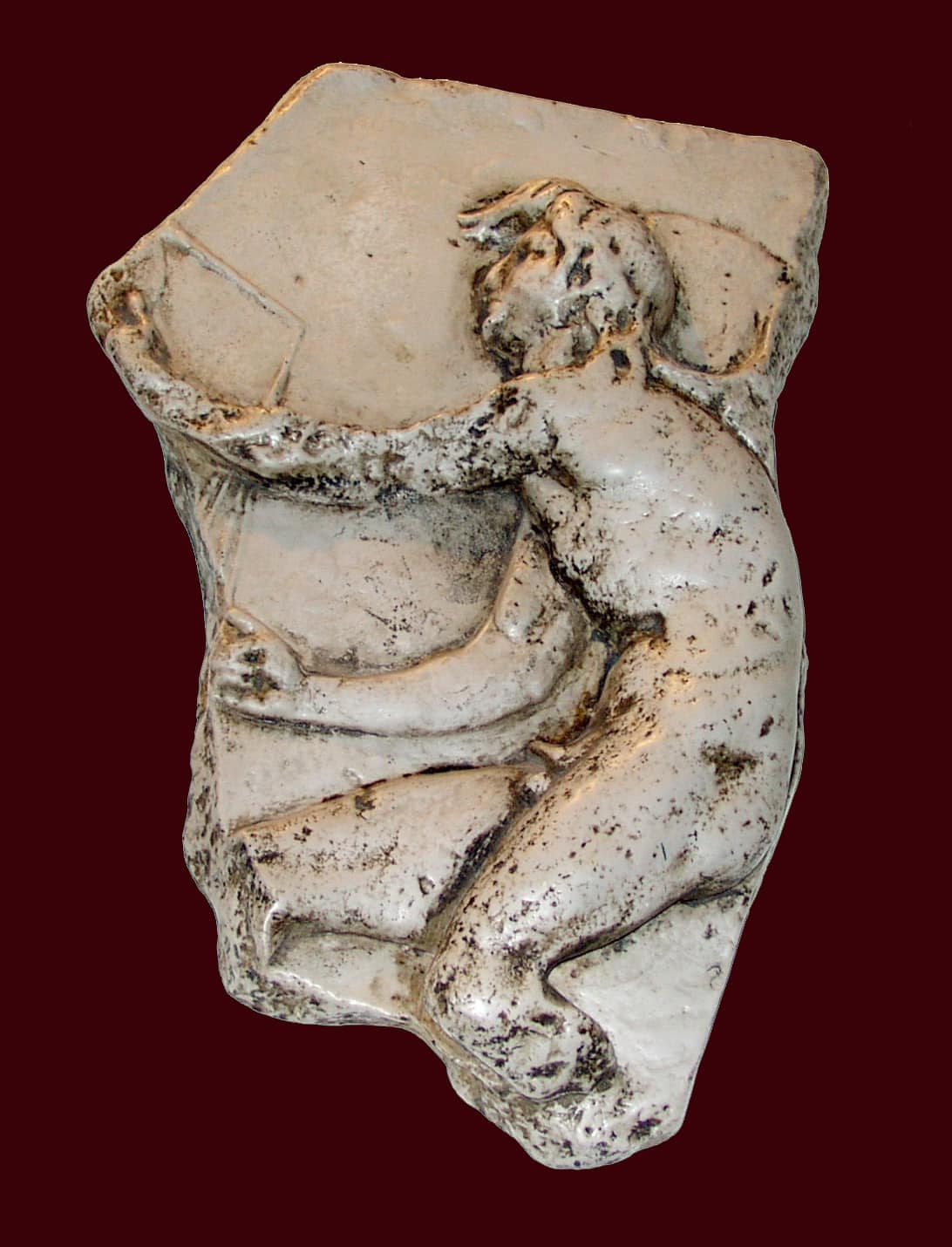
In Greek mythology, Caerus /ˈsɪərəs, ˈsiːrəs/ (Greek: Καιρός, Kairos, the same as kairos) was the personification of opportunity, luck and favorable moments. He was shown with only one lock of hair. His Roman equivalent was Occasio or Tempus. Caerus was the youngest son of Zeus. Caerus and Fortuna became lovers after Caerus neglected to overthrow his father as everyone thought he would.https://en.wikipedia.org/wiki/Caerus
Read More About Caerus / Source
Calliope
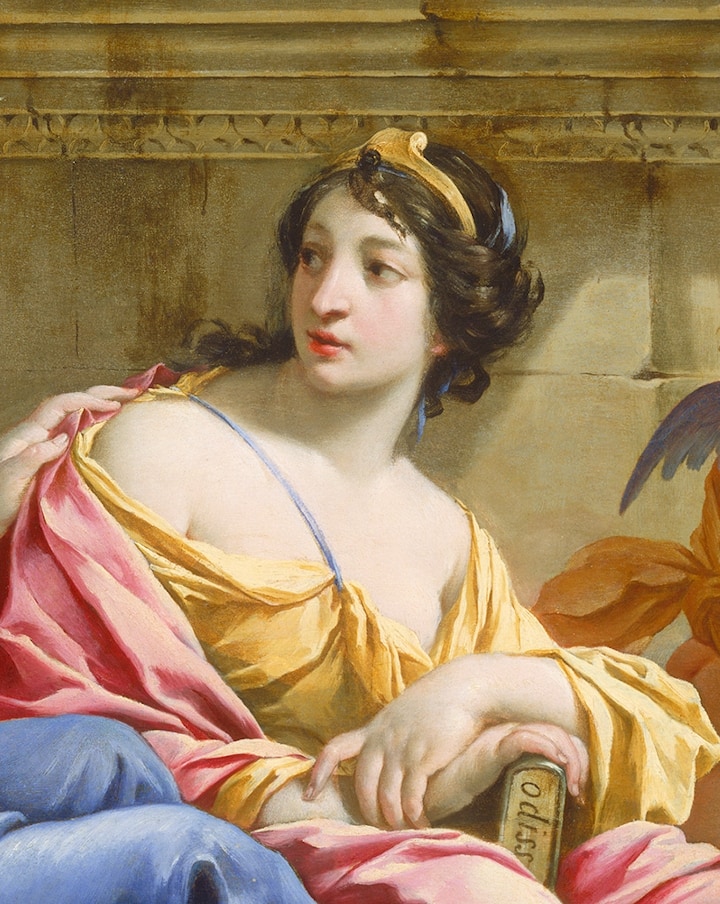
In Greek mythology, Calliope is the Muse who presides over eloquence and epic poetry; so called from the ecstatic harmony of her voice. Hesiod and Ovid called her the “Chief of all Muses”.
Read More About Calliope / Source
Calypso
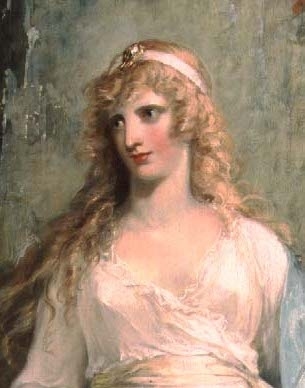
In Greek mythology, Calypso was a nymph who lived on the island of Ogygia, where, according to Homer’s Odyssey, she detained Odysseus for seven years. She promised Odysseus immortality if he would stay with her, but Odysseus preferred to return home.
Read More About Calypso / Source
Castor
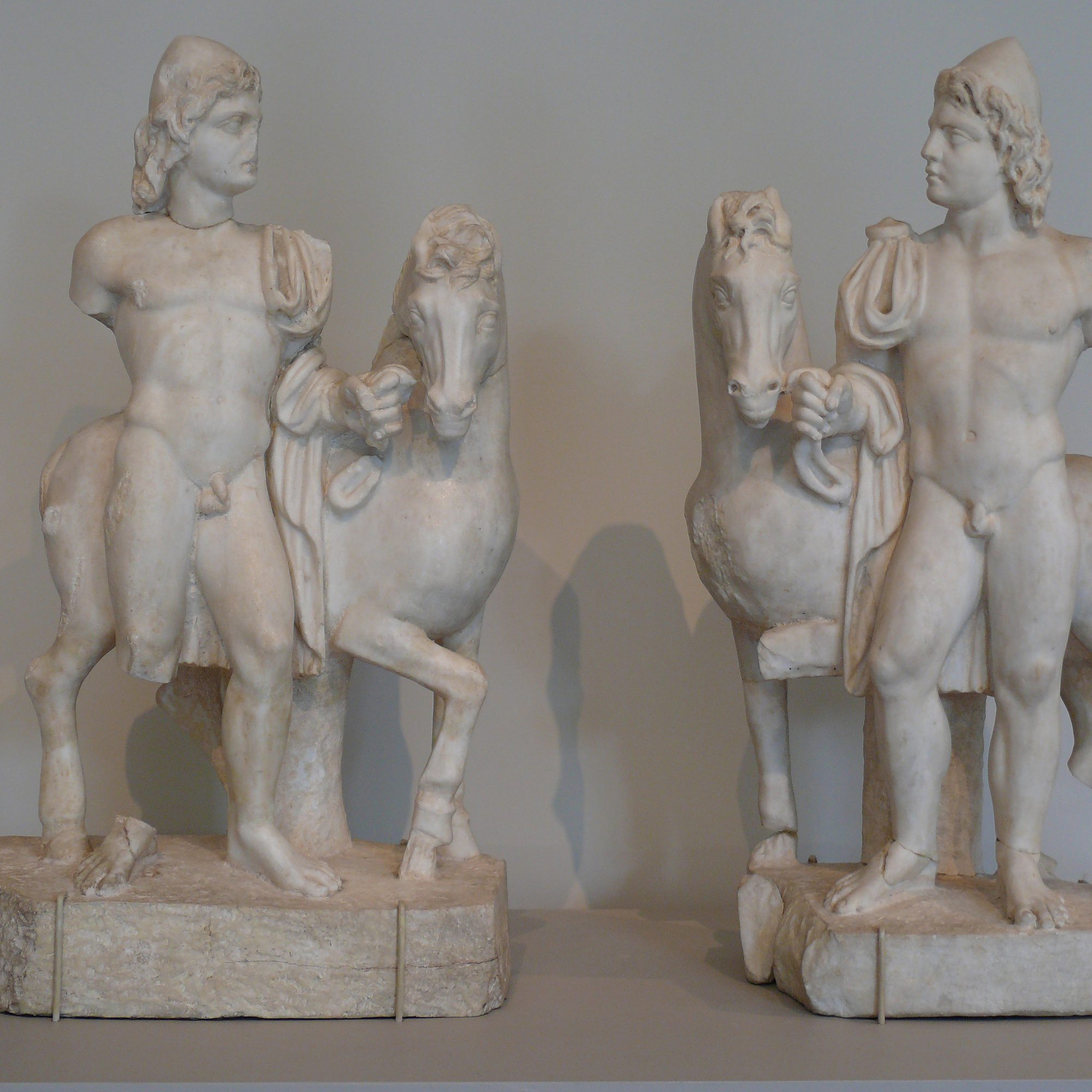
Castor is the twin brother of Polydeuces (POLLUX in Latin), a pair of demigods. The two in collective are known as the DIOSCURI. The twins feature in a number of myths, crossing paths with other notable figures in Greek Mythology like JASON. A major theme in stories featuring Castor and Polydeuces is the idea that Castor is a mortal, while Polydeuces is immortal. This is due to the fact that while they share a mother, their father of Castor is a mortal while Polydeuces’s father is ZEUS.
Read More About Castor / Source
Celaeno
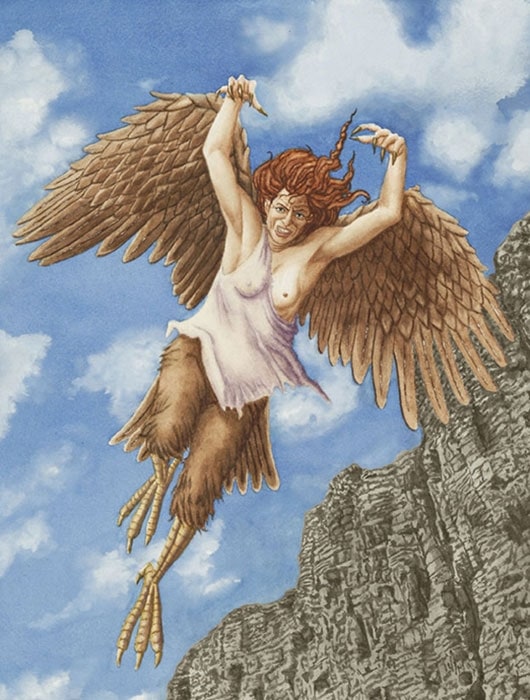
Celaeno is a Greek goddess or demon whose name means “the dark one”. Celaeno is referred to as several different beings throughout GREEK MYTHOLOGY. In some stories, Celaeno is one of the Pleiades. Her name can also be spelled Celeno or Kelaino. In the Pleiades, Celaeno is one of seven daughters. She is the daughter of the titan Atlas, who holds the world on his shoulders, and the ocean goddess Pleione. Her sisters include MAIA, ELECTRA, TAYGETE, Alycone, STEROPE, and Merope.
Read More About Celaeno / Source
Ceto
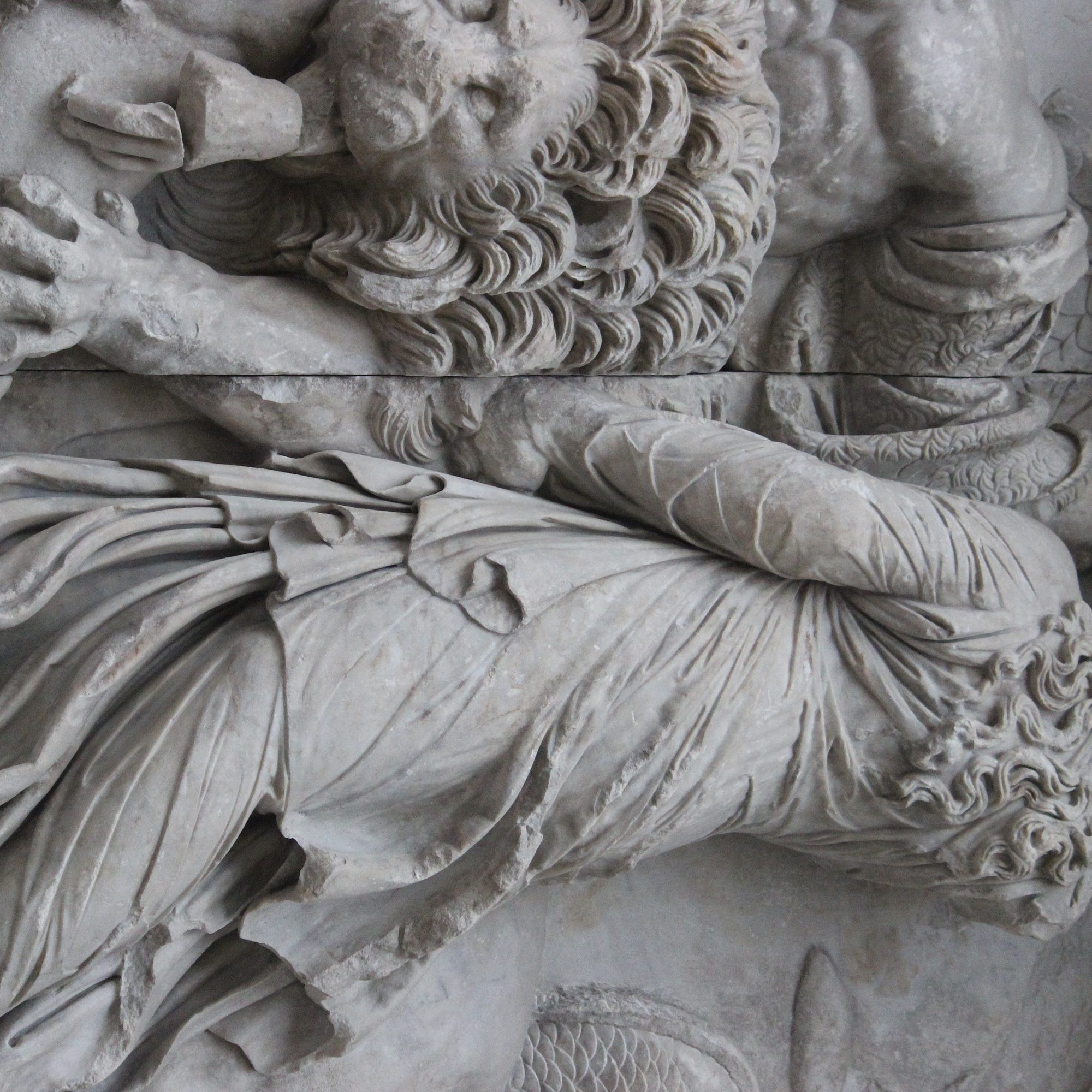
Ceto is a primordial sea goddess in Greek mythology, the daughter of Pontus and his mother, Gaia. As a mythological figure, she is considered to be one of the most ancient deities, and bore a host of monstrous children fathered by Phorcys, another child of Gaia and Pontus. The small Solar System body 65489 Ceto was named after her, and its satellite after Phorcys.
Chaos
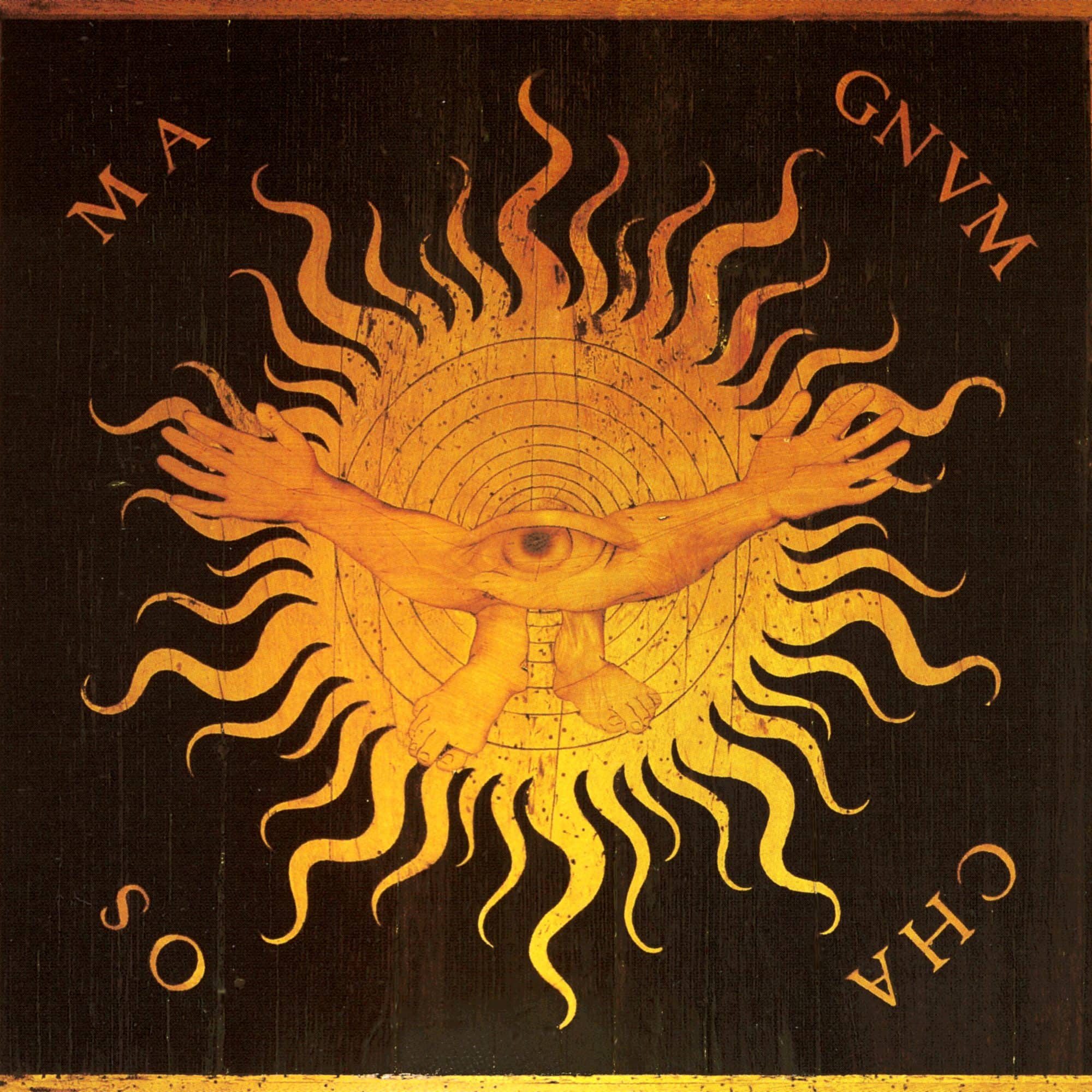
Chaos is the mythological void state preceding the creation of the universe (the cosmos) in Greek creation myths. In Christian theology, the same term is used to refer to the gap or the abyss created by the separation of heaven and earth.
Read More About Chaos / Source
Charon
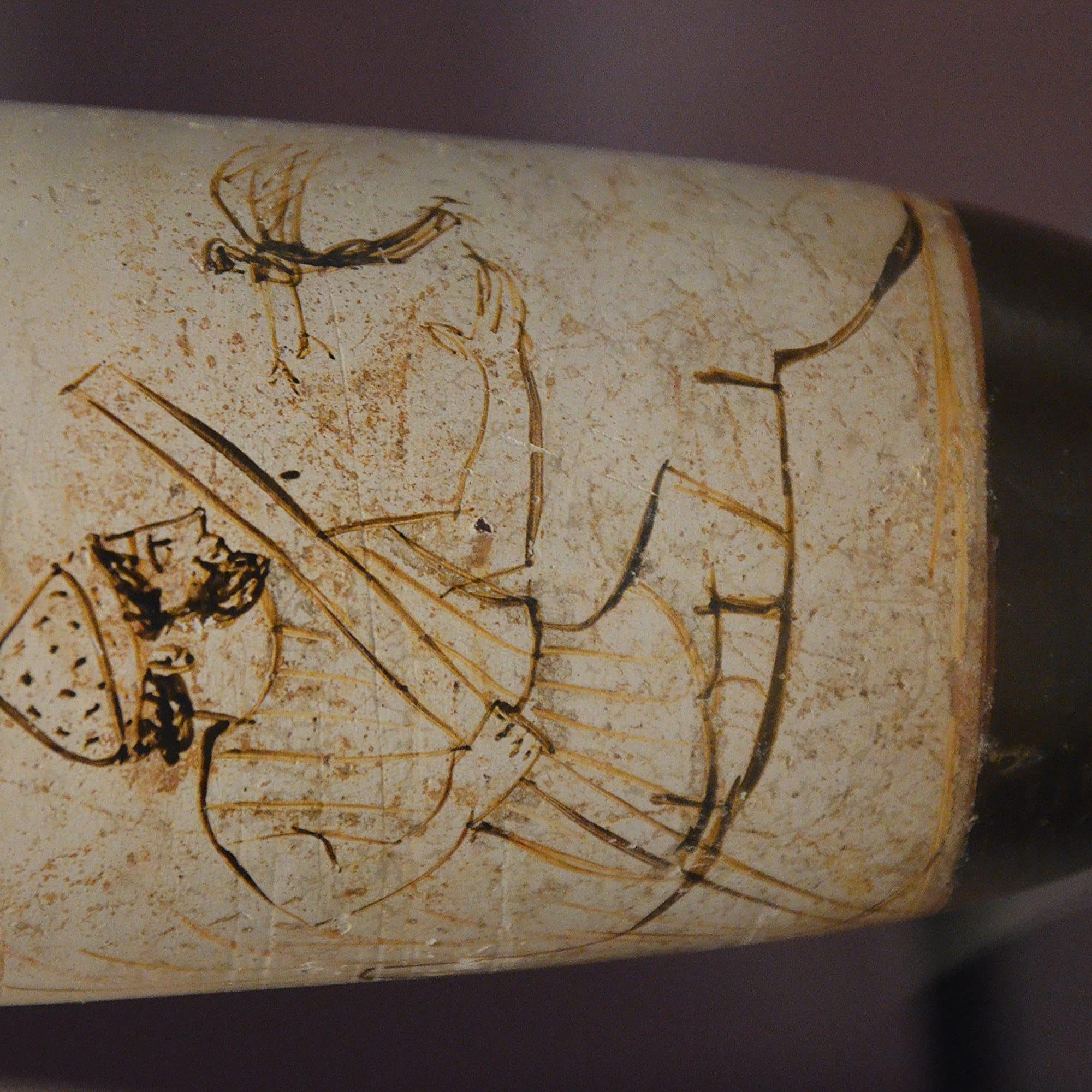
In Greek mythology, Charon or Kharon is a psychopomp, the ferryman of Hades, the Greek underworld. He carries the souls of those who have been given funeral rites across the rivers Acheron and Styx, which separate the worlds of the living and the dead. Archaeology confirms that, in some burials, low-value coins were placed in, on, or near the mouth of the deceased, or next to the cremation urn containing their ashes. This has been taken to confirm that at least some aspects of Charon’s mytheme are reflected in some Greek and Roman funeral practices, or else the coins function as a viaticum for the soul’s journey. In Virgil’s epic poem, Aeneid, the dead who could not pay the fee, and those who had received no funeral rites, had to wander the near shores of the Styx for one hundred years before they were allowed to cross the river.
Read More About Charon / Source
Chronos
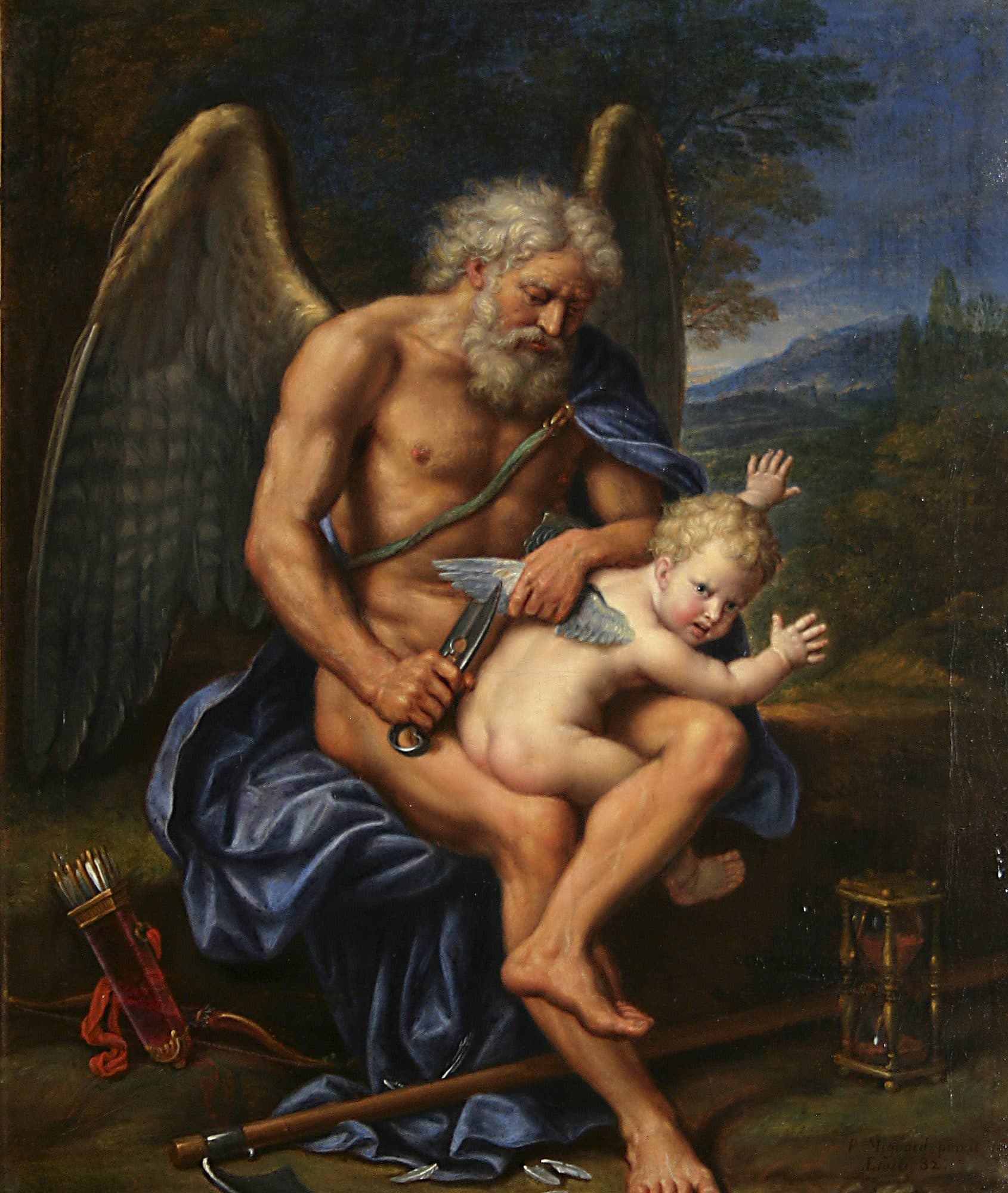
Chronos, also spelled Khronos or Chronus, is a personification of time in pre-Socratic philosophy and later literature.[ Chronos is frequently confused with, or perhaps consciously identified with, the Titan Cronus in antiquity due to the similarity in names. The identification became more widespread during the Renaissance, giving rise to the iconography of Father Time wielding the harvesting scythe.
Read More About Chronos / Source
Circe
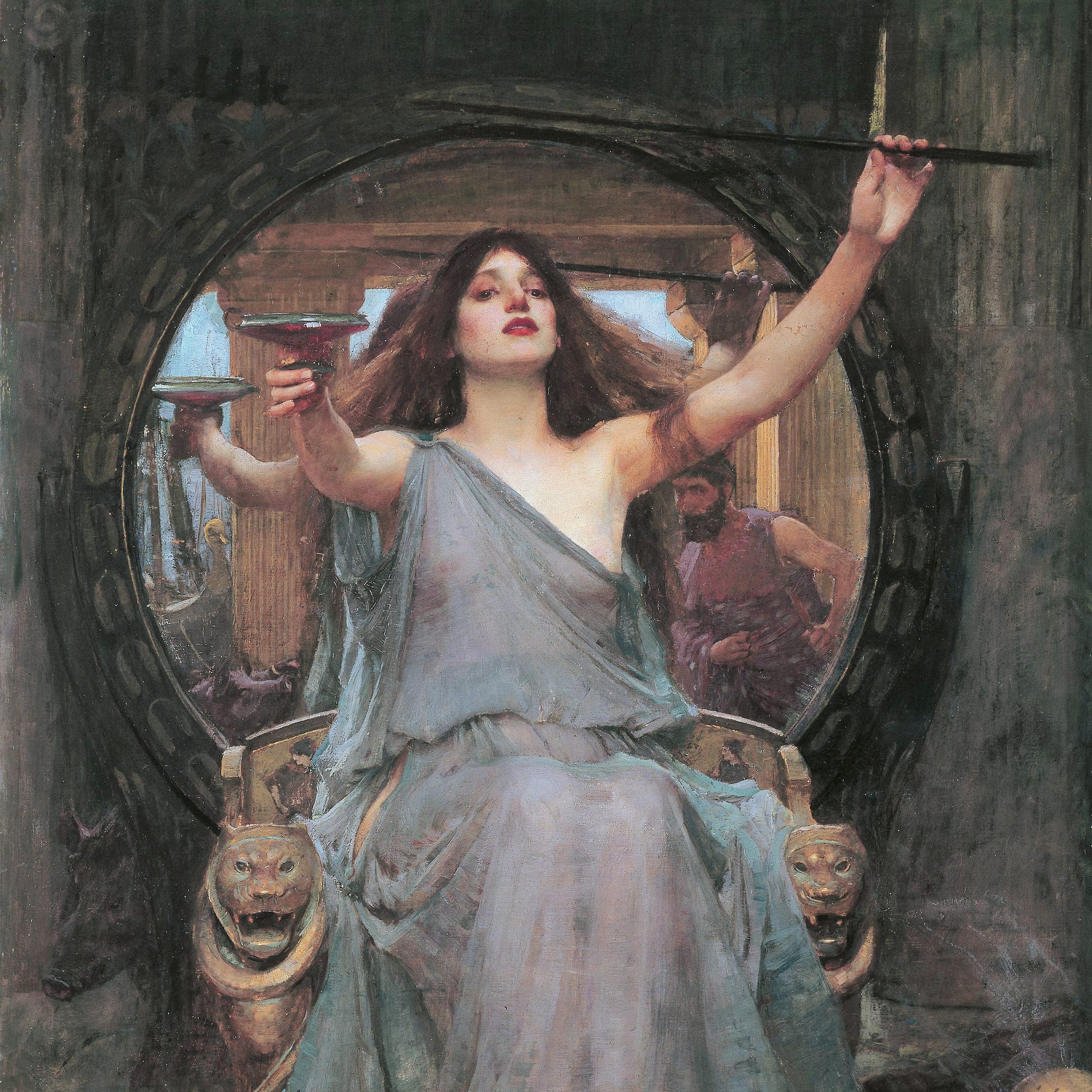
Circe (; Ancient Greek: Κίρκη, pronounced [kírkɛː]) is an enchantress and a minor goddess in ancient Greek mythology and religion. She is either a daughter of the Titan Helios and the Oceanid nymph Perse or the goddess Hecate and Aeëtes. Circe was renowned for her vast knowledge of potions and herbs. Through the use of these and a magic wand or staff, she would transform her enemies, or those who offended her, into animals.
The best known of her legends is told in Homer’s Odyssey when Odysseus visits her island of Aeaea on the way back from the Trojan War and she changes most of his crew into swine. He manages to persuade her to return them to human shape, lives with her for a year and has sons by her, including Latinus and Telegonus. Her ability to change others into animals is further highlighted by the story of Picus, an Italian king whom she turns into a woodpecker for resisting her advances. Another story tells of her falling in love with the sea-god Glaucus, who prefers the nymph Scylla to her. In revenge, Circe poisoned the water where her rival bathed and turned her into a dreadful monster.
Depictions, even in Classical times, diverged from the detail in Homer’s narrative, which was later to be reinterpreted morally as a cautionary story against drunkenness. Early philosophical questions were also raised about whether the change from being a human endowed with reason to being an unreasoning beast might not be preferable after all, and the resulting debate was to have a powerful impact during the Renaissance. Circe was also taken as the archetype of the predatory female. In the eyes of those from a later age, this behaviour made her notorious both as a magician and as a type of sexually-free woman. She has been frequently depicted as such in all the arts from the Renaissance down to modern times.
Western paintings established a visual iconography for the figure, but also went for inspiration to other stories concerning Circe that appear in Ovid’s Metamorphoses. The episodes of Scylla and Picus added the vice of violent jealousy to her bad qualities and made her a figure of fear as well as of desire.
Read More About Circe / Source
Clio
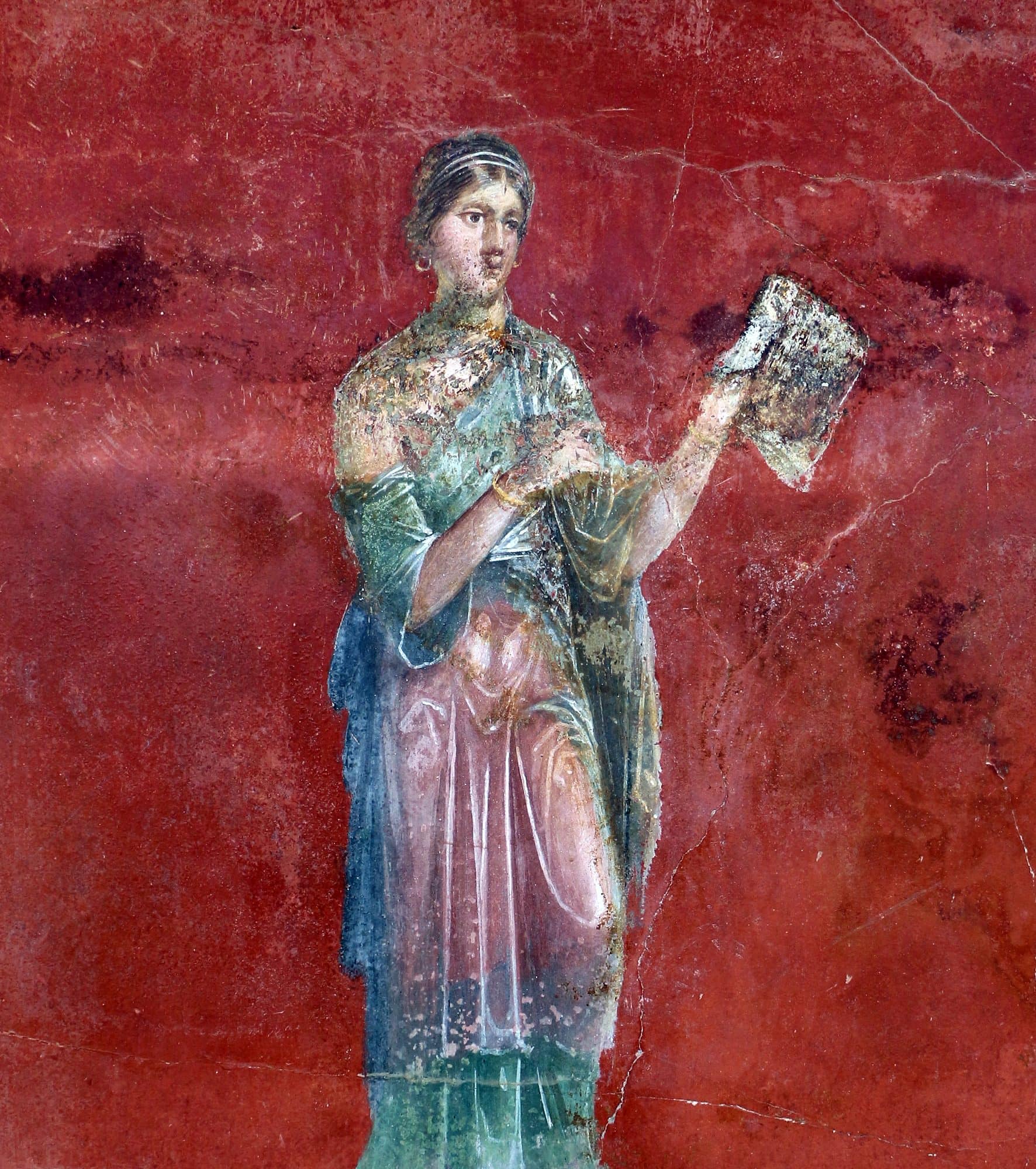
In Greek mythology, Clio , also spelled Kleio, is the muse of history, or in a few mythological accounts, the muse of lyre playing.
Clotho
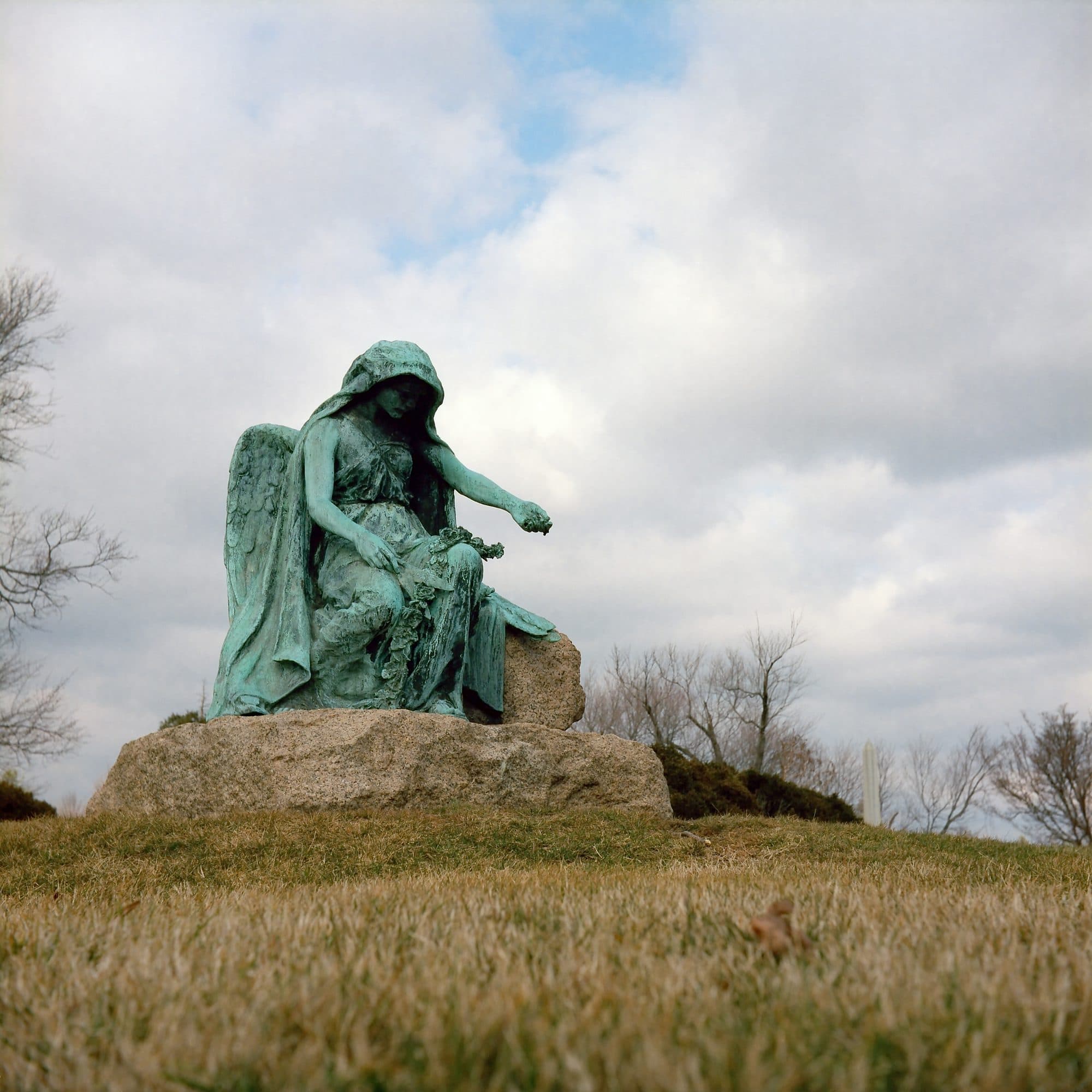
Clotho is a mythological figure. She is the youngest of the Three Fates or Moirai who spins the thread of human life; the other two draw out (Lachesis) and cut (Atropos) in ancient Greek mythology. Her Roman equivalent is Nona. She also made major decisions, such as when a person was born, thus in effect controlling people’s lives. This power enabled her not only to choose who was born, but also to decide when gods or mortals were to be saved or put to death. For example, Clotho brought Pelops back to life when his father killed him.
Read More About Clotho / Source
Coeus
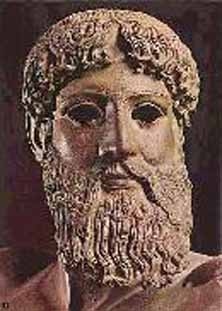
In Greek mythology, Coeus, also called Polus, was one of the Titans, one of the three groups of children born to Uranus (Sky) and Gaia (Earth).
Read More About Coeus / Source
Crius
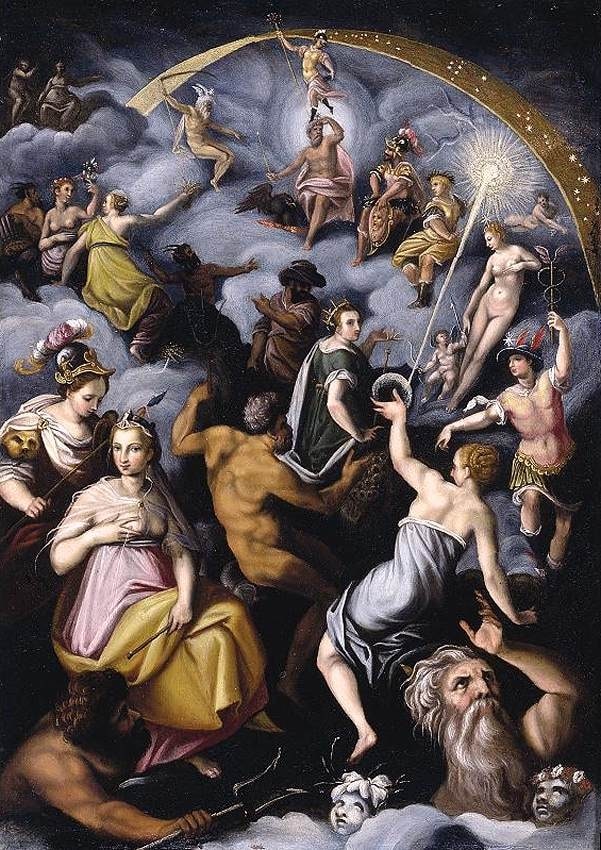
In Greek mythology, Crius was one of the Titans, children of Uranus and Gaia. Like other Titans, Crius is very little characterized, with no unique domain or mythology of his own, instead apparently serving a purely genealogical function in mythology, to provide parentage for other figures.
Read More About Crius / Source
Cronus
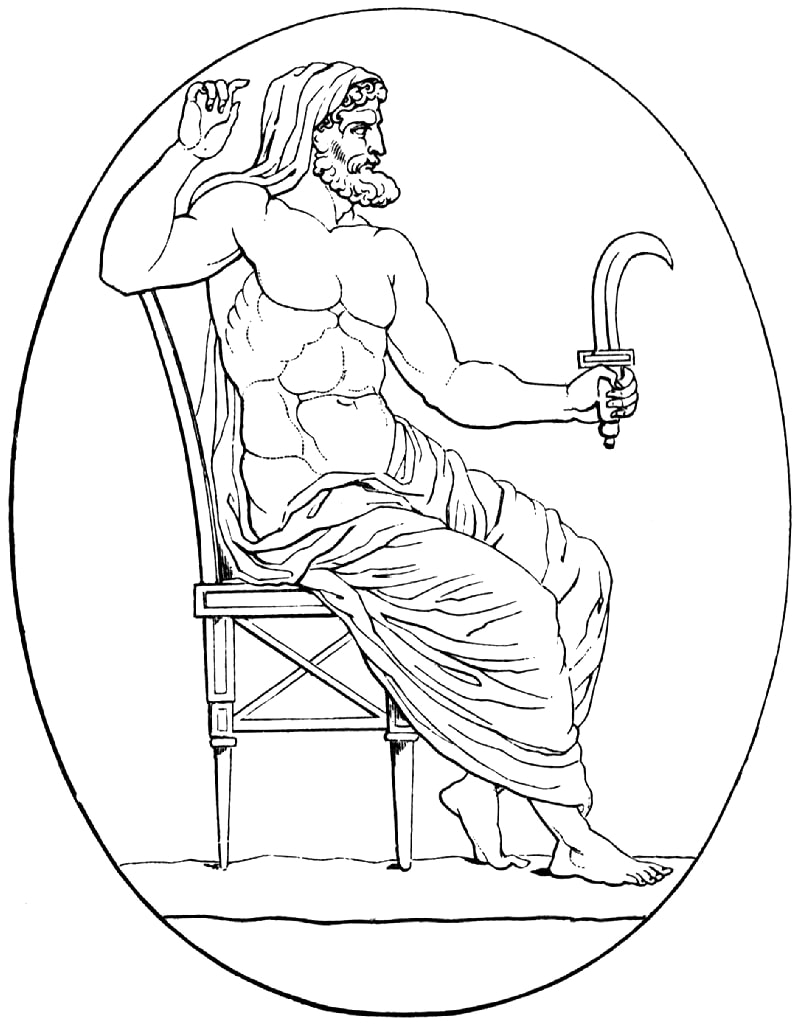
In Ancient Greek religion and mythology, Cronus, Cronos, or Kronos was the leader and youngest of the first generation of Titans, the divine descendants of the primordial Gaia (Mother Earth) and Uranus (Father Sky). He overthrew his father and ruled during the mythological Golden Age, until he was overthrown by his own son Zeus and imprisoned in Tartarus. According to Plato, however, the deities Phorcys, Cronus, and Rhea were the eldest children of Oceanus and Tethys.
Read More About Cronus / Source
Cybele
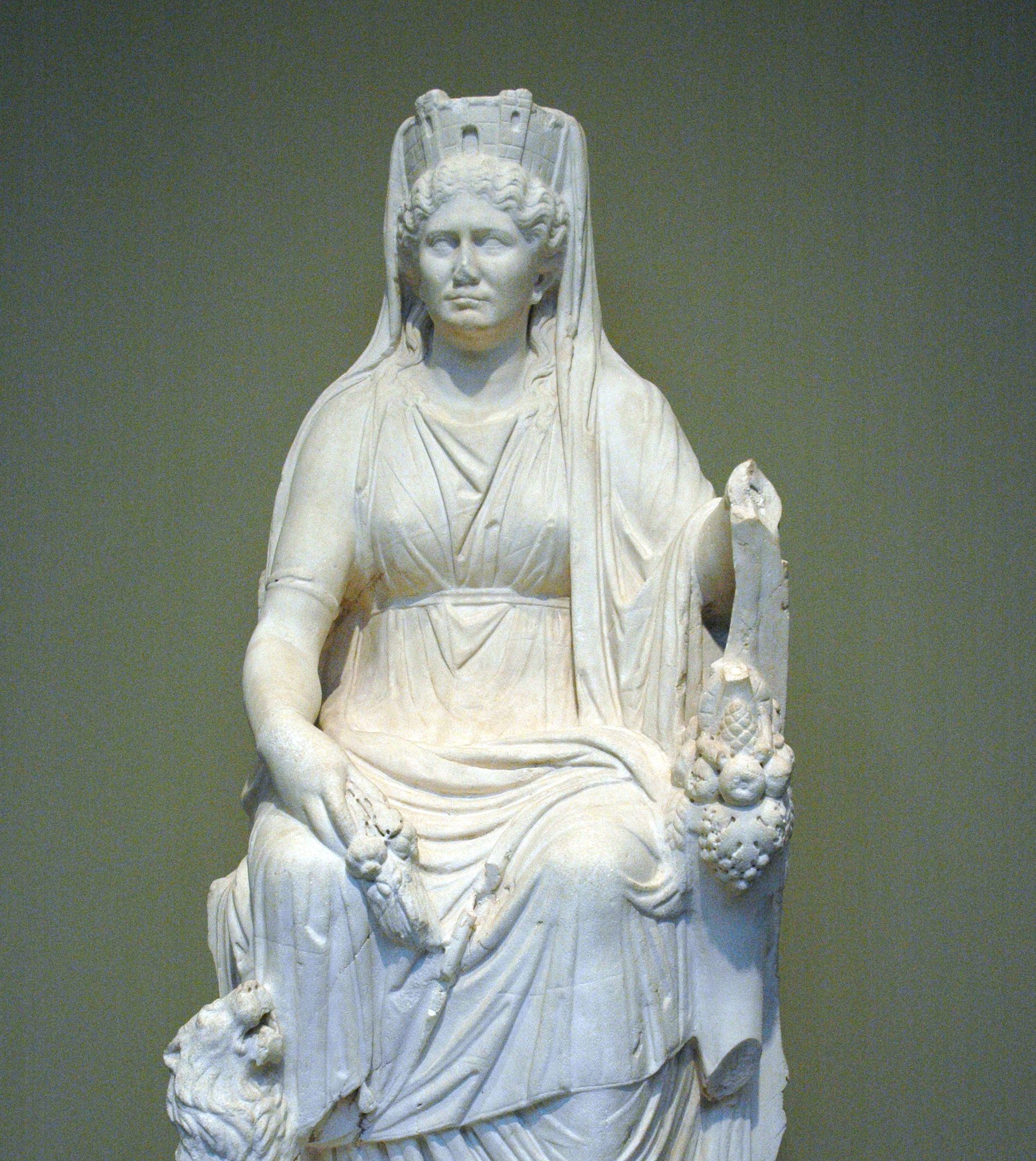
Cybele is an Anatolian mother goddess; she may have a possible forerunner in the earliest neolithic at Çatalhöyük, where statues of plump women, sometimes sitting, have been found in excavations. Phrygia’s only known goddess, she was probably its national deity. Greek colonists in Asia Minor adopted and adapted her Phrygian cult and spread it to mainland Greece and to the more distant western Greek colonies around the 6th century BC.
Read More About Cybele / Source
Deimos
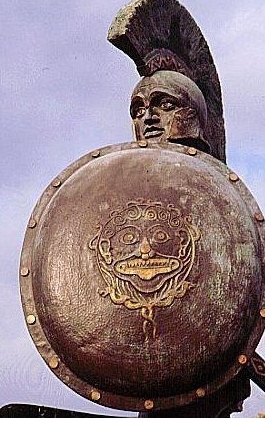
Deimos /ˈdaɪmɒs/ (Ancient Greek: Δεῖμος, pronounced [dêːmos], meaning “dread”) is the personal god of dread and terror in Greek mythology. He was a son of Ares and Aphrodite, and the brother of Phobos. Deimos served to represent the feelings of dread and terror that befell those before a battle, while Phobos personified feelings of fear and panic in the midst of battle.
Read More About Deimos / Source
Dinlas

Dinlas is the Greek god of chaos and hatred, and the son of Aphrodite, the goddess of love, and Ares, the god of war. APHRODITE was not married to Ares, and so Dinlas was illegitimate. Aphrodite was ashamed of him, and abandoned him, banishing him to the underworld.
Read More About Dinlas / Source
Doris
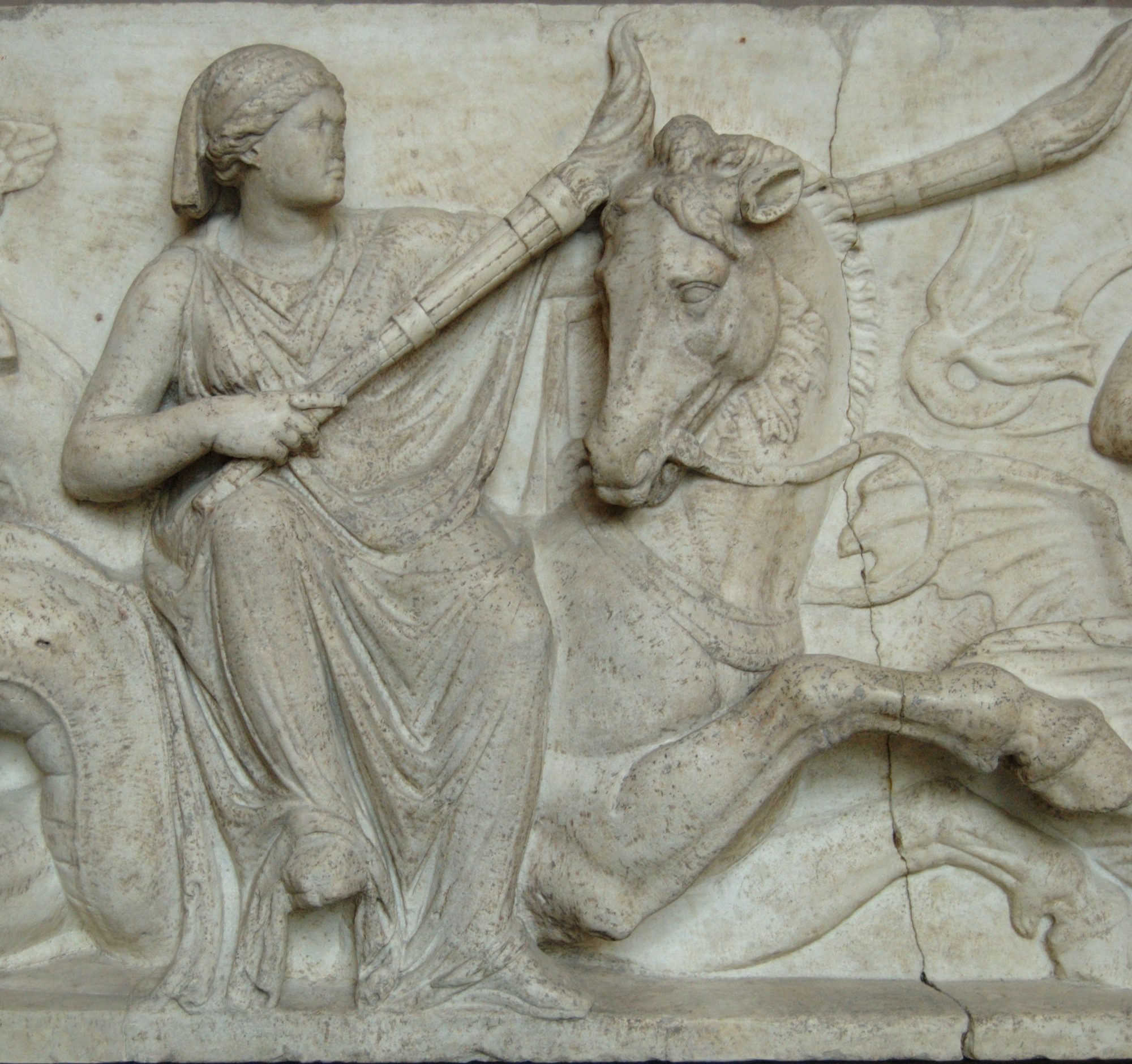
Doris in Greek mythology, was a sea goddess. She was one of the 3,000 Oceanids, daughters of the Titans Oceanus and Tethys.
Read More About Doris / Source
Eileithyia
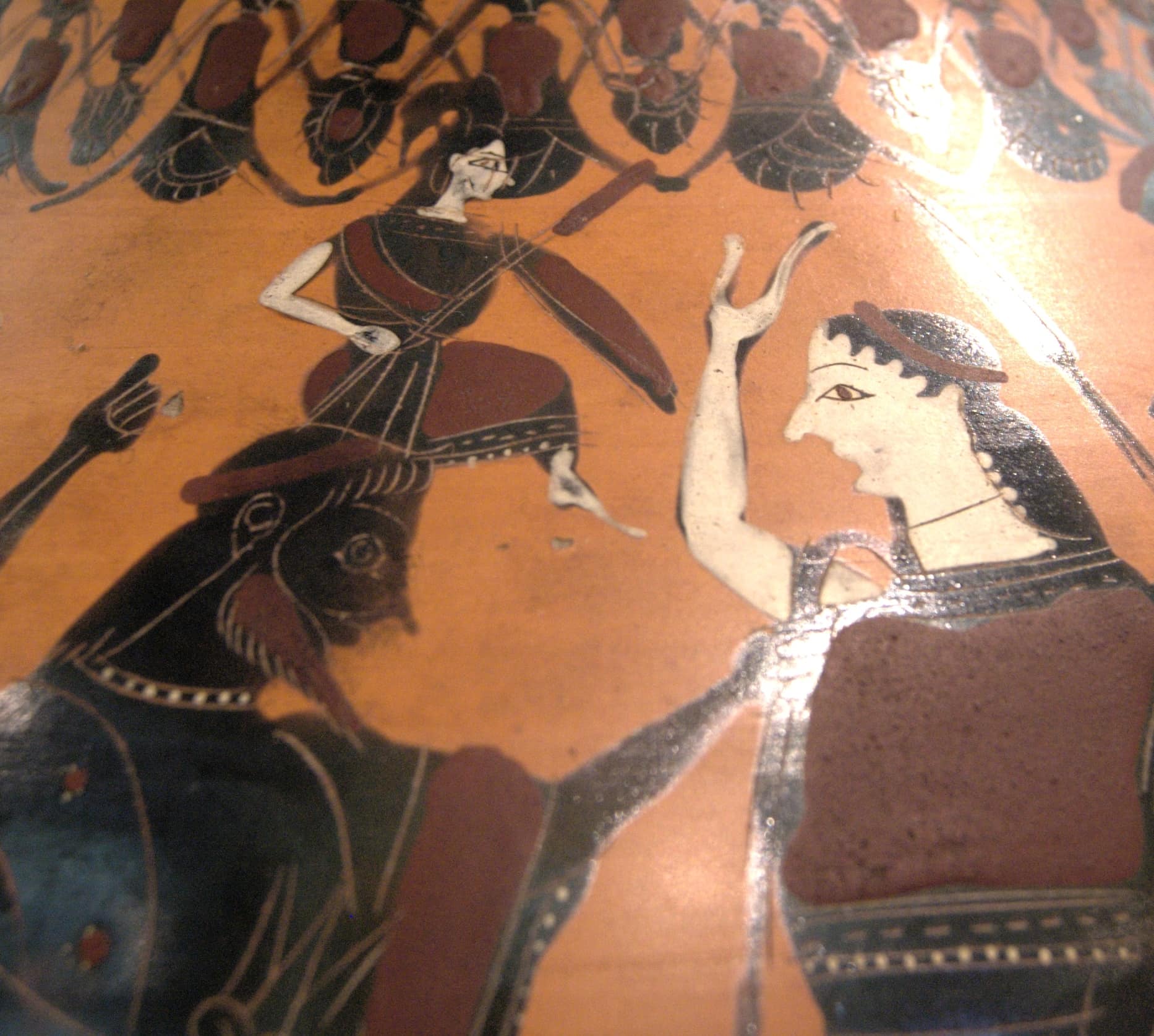
Eileithyia or Ilithyiae or Ilithyia was the Greek goddess of childbirth and midwifery,and the daughter of Zeus and Hera. In the cave of Amnisos (Crete) she was related with the annual birth of the divine child, and her cult is connected with Enesidaon (the earth shaker), who was the chthonic aspect of the god Poseidon. It is possible that her cult is related with the cult of Eleusis. In his Seventh Nemean Ode, Pindar refers to her as the maid to or seated beside the Moirai (Fates) and responsible for the creation of offspring. Her son was Sosipolis, who was worshiped at Elis.
Read More About Eileithyia / Source
Electra (Greek God)
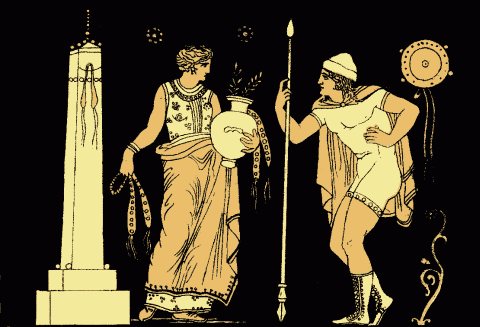
Electra is one of the most popular mythological characters in tragedies.She is the main character in two Greek tragedies, Electra by Sophocles and Electra by Euripides. She is also the central figure in plays by Aeschylus, Alfieri, Voltaire, Hofmannsthal, and Eugene O’Neill.She is a vengeful soul in The Libation Bearers, the second play of Aeschylus’ Oresteia trilogy. She plans out an attack with her brother to kill their mother, Clytemnestra.
Read More About Electra (Greek God) / Source
Elpis (Greek God)

In Greek mythology, Elpis is the spirit of hope. She was depicted as a young woman, usually carrying flowers or a cornucopia in her hands.
Read More About Elpis (Greek God) / Source
Enyo

Enyo is a goddess of war in Greek mythology. She frequently is associated with the war god Ares.
Eos
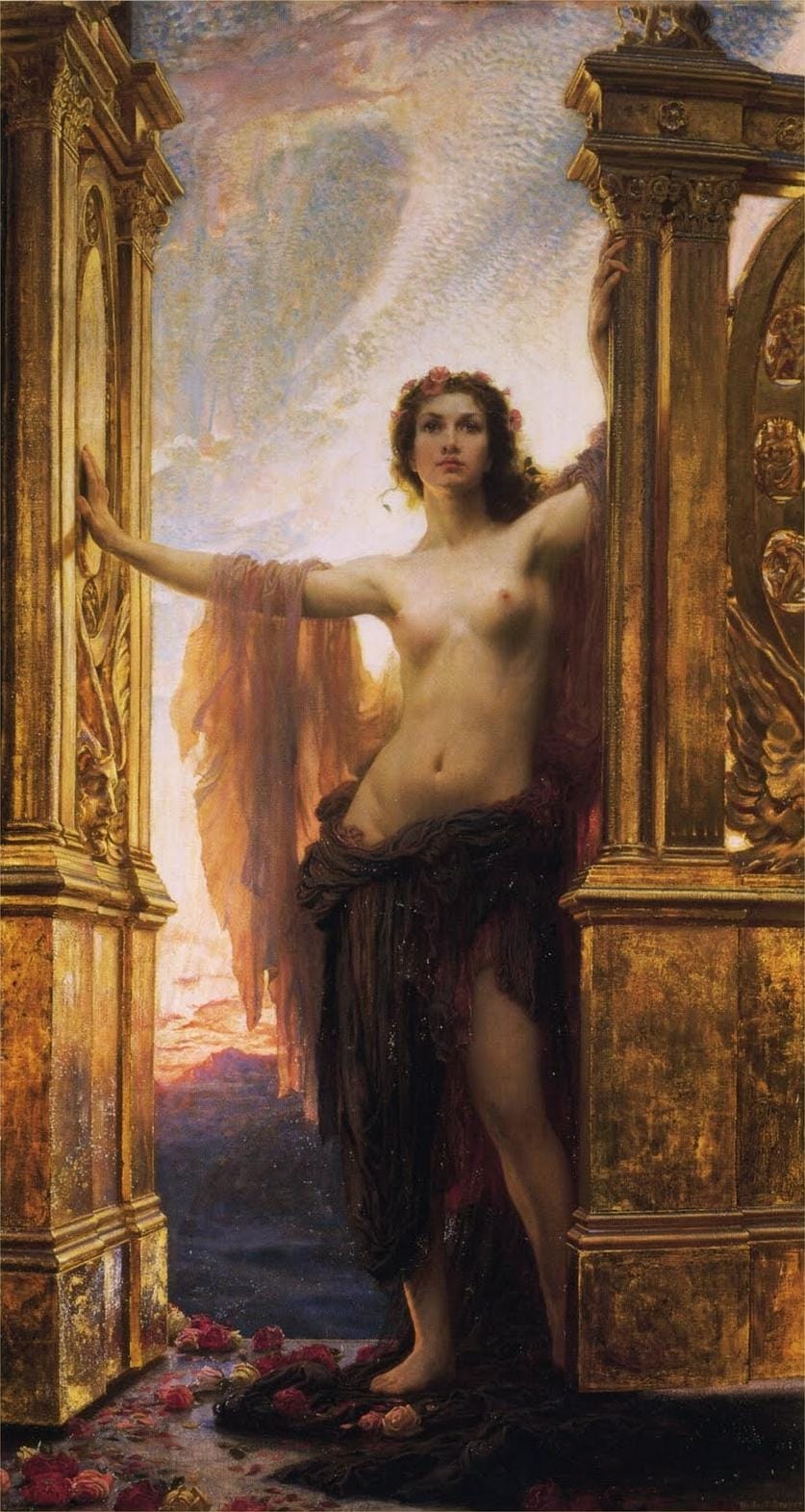
In ancient Greek mythology and religion, Eos is the goddess and personification of the dawn, who rose each morning from her home at the edge of the river Oceanus to deliver light and disperse the night. In Greek tradition and poetry she is characterized as a goddess with a great sexual appetite, who took numerous lovers for her own satisfaction and bore them several children. Like her Roman counterpart Aurora and Rigvedic Ushas, Eos continues the name of an earlier Indo-European dawn goddess, Hausos. Eos, or her earlier Proto-Indo-European (PIE) ancestor, also shares several elements with the love goddess Aphrodite, perhaps signifying Eos’s influence on her or otherwise a common origin for the two goddesses. In surviving tradition, Aphrodite is the culprit behind Eos’ numerous love affairs, having cursed the goddess with insatiable lust for mortal men.
Epimetheus
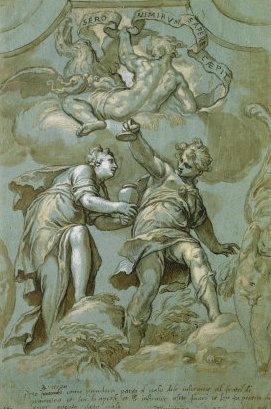
In Greek mythology, Epimetheus was the brother of Prometheus (traditionally interpreted as “foresight”, literally “fore-thinker”), a pair of Titans who “acted as representatives of mankind”. They were the sons of Iapetus, who in other contexts was the father of Atlas. While Prometheus is characterized as ingenious and clever, Epimetheus is depicted as foolish.
Read More About Epimetheus / Source
Erato
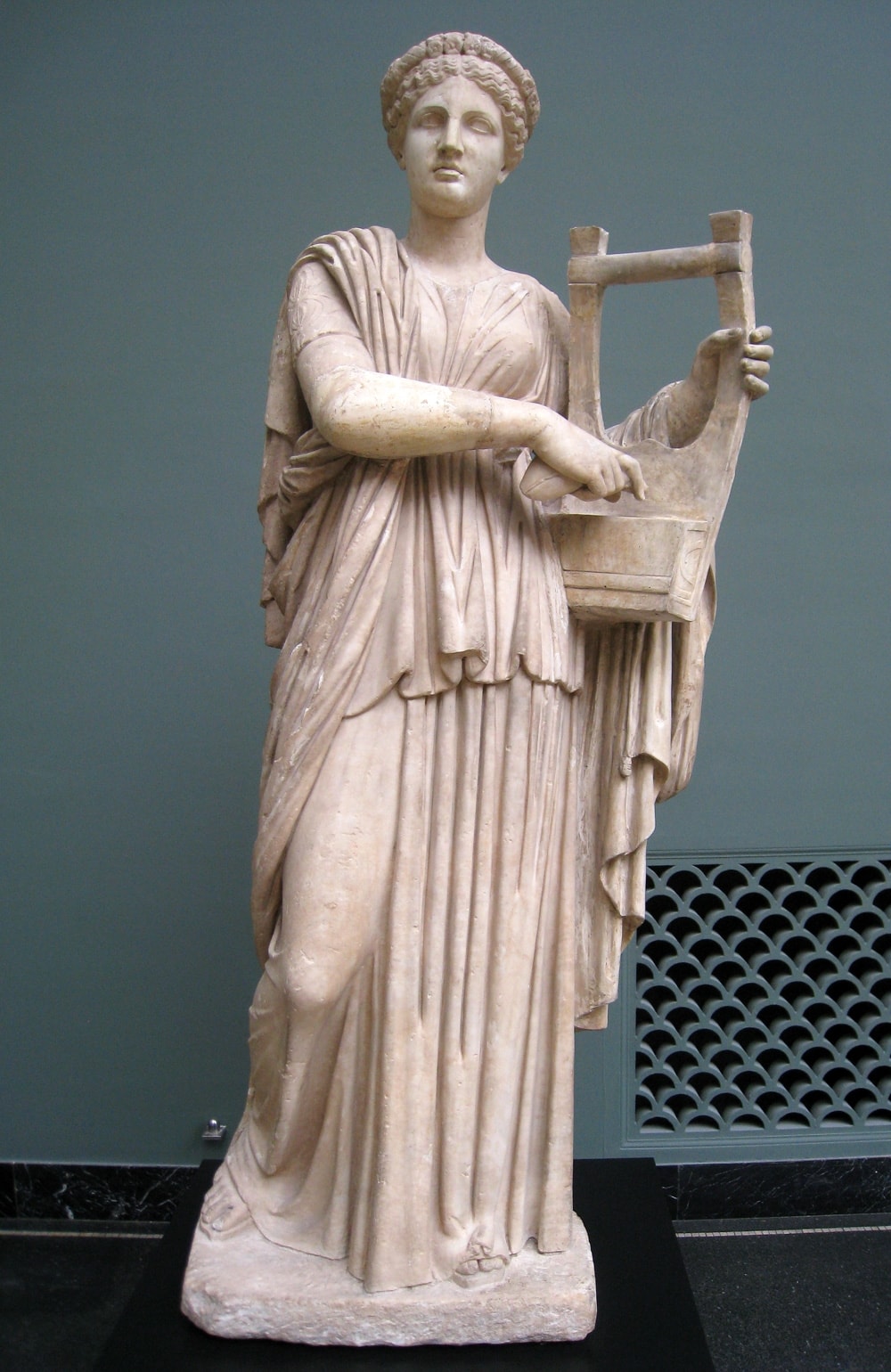
In Greek mythology, Erato is one of the Greek Muses, which were inspirational goddesses of literature, science, and the arts. The name would mean “desired” or “lovely”, if derived from the same root as Eros, as Apollonius of Rhodes playfully suggested in the invocation to Erato that begins Book III of his Argonautica.
Read More About Erato / Source
Erebus
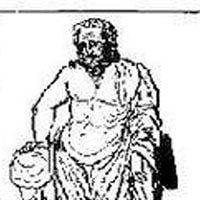
In Greek mythology, Erebus, or Erebos, is the personification of darkness and one of the primordial deities. Hesiod’s Theogony identifies him as one of the first five beings in existence, born of Chaos.
Read More About Erebus / Source
Erinyes
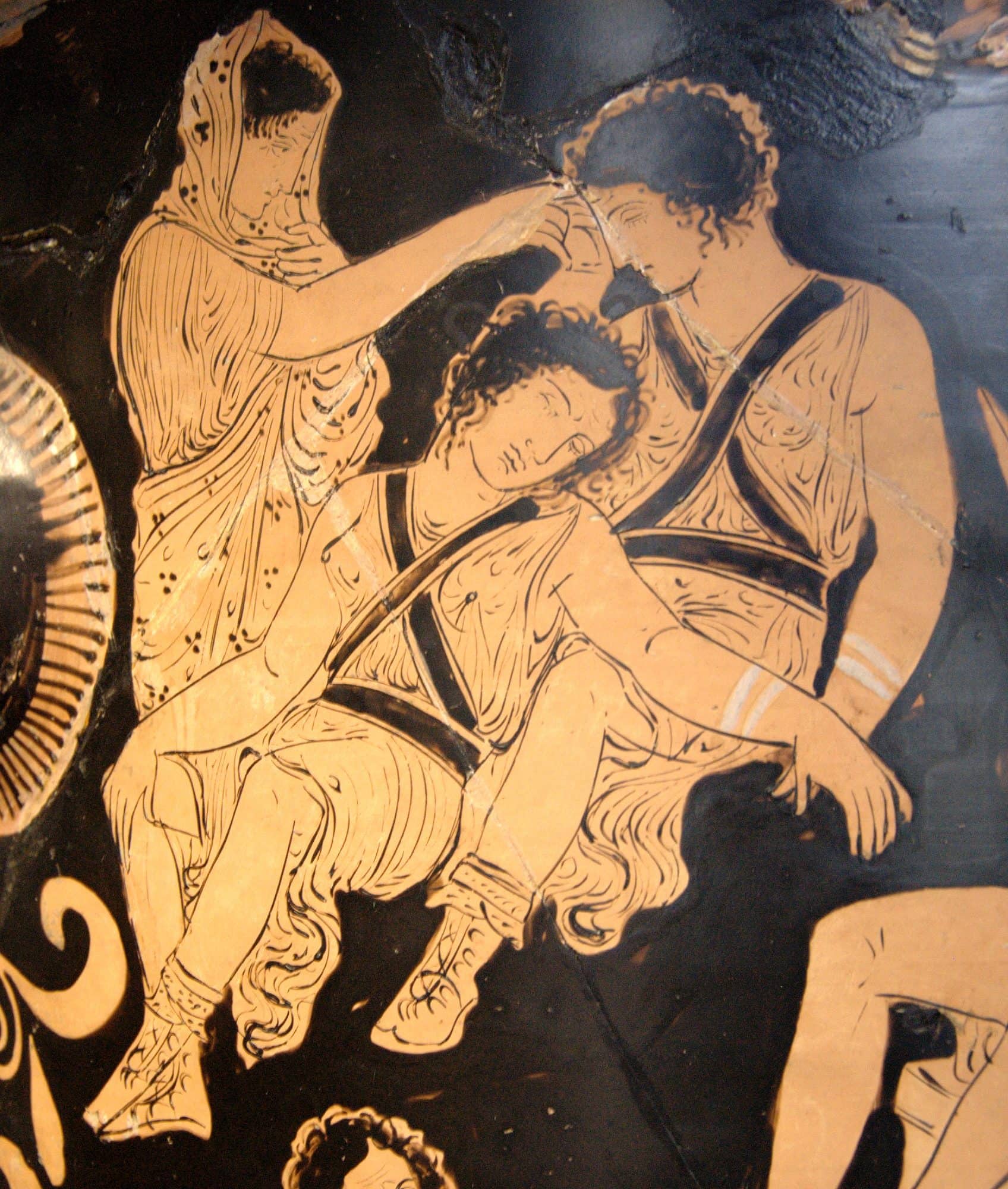
The Erinyes also known as the Furies, and the Eumenides, were female chthonic deities of vengeance in ancient Greek religion and mythology. A formulaic oath in the Iliad invokes them as “the Erinyes, that under earth take vengeance on men, whosoever hath sworn a false oath”.Walter Burkert suggests that they are “an embodiment of the act of self-cursing contained in the oath”. They correspond to the Dirae in Roman mythology. The Roman writer Maurus Servius Honoratus wrote (ca. 400 AD) that they are called “Eumenides” in hell, “Furiae” on Earth, and “Dirae” in heaven.
Read More About Erinyes / Source
Eris
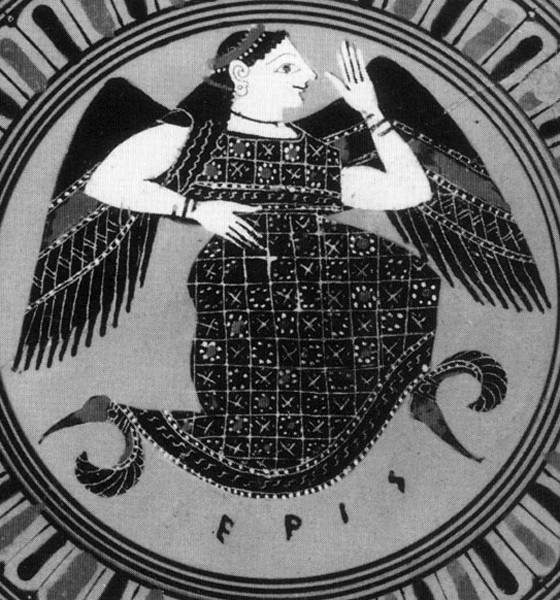
Eris is the Greek goddess of strife and discord. Her Roman equivalent is Discordia, which means the same. Eris’s Greek opposite is Harmonia, whose Roman counterpart is Concordia.Homer equated her with the war-goddess Enyo, whose Roman counterpart is Bellona. The dwarf planet Eris is named after the goddess.
Euphrosyne
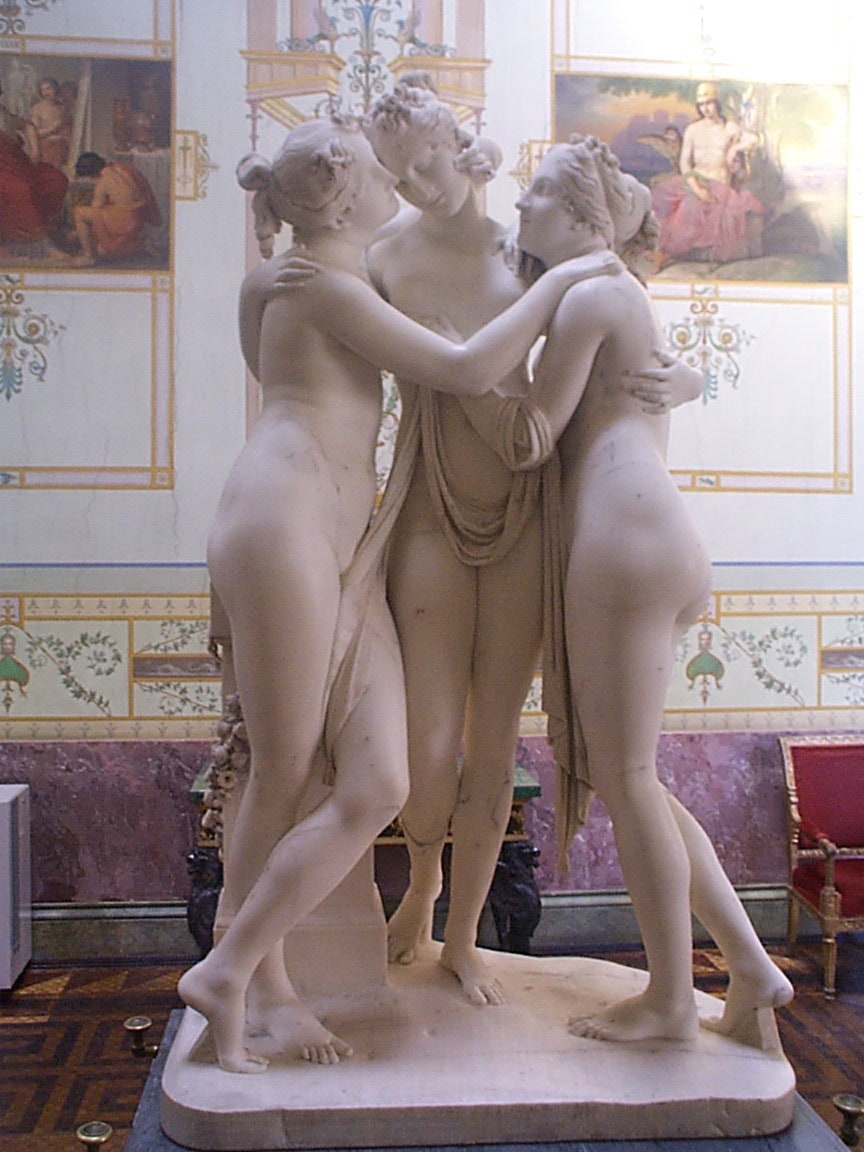
Euphrosyne in ancient Greek religion and mythology, was one of the Charites, known in ancient Rome as the Gratiae (Graces). She was sometimes called Euthymia (Εὐθυμία) or Eutychia (Εὐτυχία).
Read More About Euphrosyne / Source
Eurus
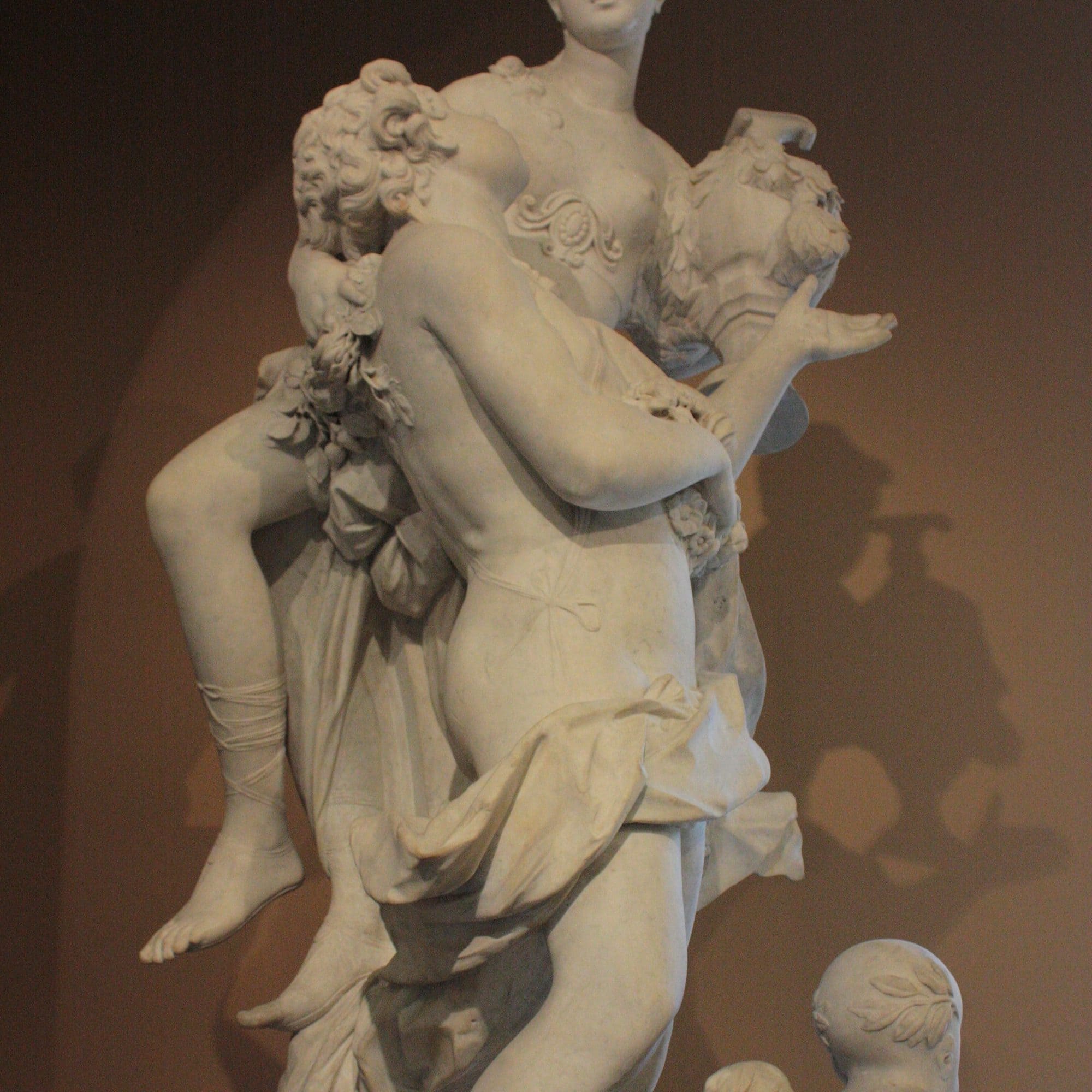
In Greek mythology, Eurus, or Euros was the god of the east or southeast wind. He was the brother of BOREAS, the north wind, ZEPHYRUS, the west wind and NOTUS, the south wind. His other brothers were Kaikias, the god of the northeast wind; Apeliotes, who was also a god of the east wind; Lips, the god of the southwest wind and Skeiron, the god of the northwest wind. Together, they were called the ANEMOI. They are depicted as young men with wings who were bearded or clean-shaven. They were also depicted as horses. Their parents were Astreus and Eos. Eos was the beautiful goddess of the dawn while Astreus was a Titan, the race of gods that came after the PRIMORDIAL GODS and before the Olympians. It is unclear whether Astreus was a first or second generation Titan. In Roman mythology, Eurus’ counterpart is called Vulturnus.
Read More About Eurus / Source
Euterpe
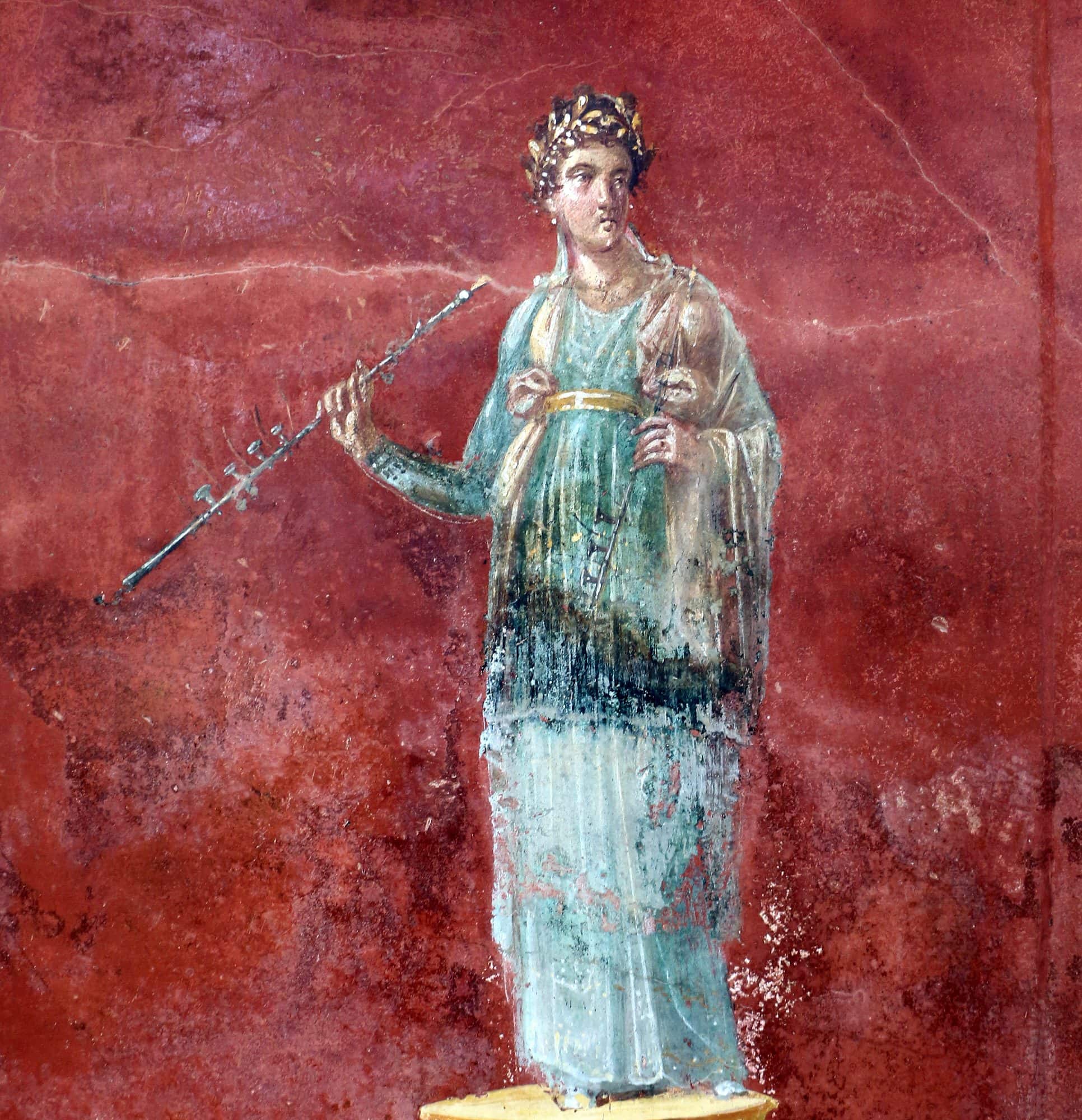
Euterpe was one of the Muses in Greek mythology, presiding over music. In late Classical times, she was named muse of lyric poetry. She has been called “Giver of delight” by ancient poets.
Read More About Euterpe / Source
Gaia
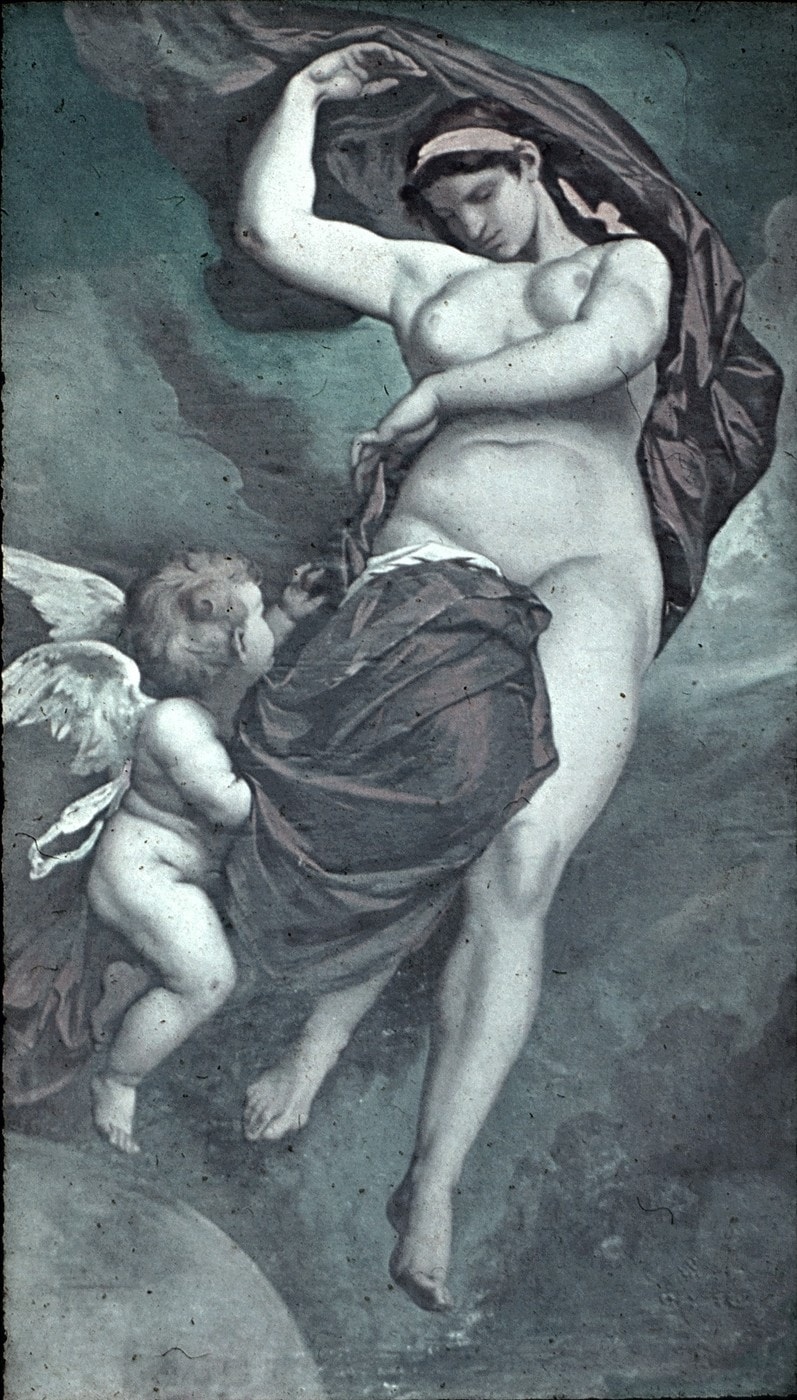
In Greek mythology, Gaia also spelled Gaea is the personification of the Earth and one of the Greek primordial deities. Gaia is the ancestral mother—sometimes parthenogenic—of all life. She is the mother of Uranus (the sky), from whose sexual union she bore the Titans (themselves parents of many of the Olympian gods), the Cyclopes, and the Giants; as well as of Pontus (the sea), from whose union she bore the primordial sea gods. Her equivalent in the Roman pantheon was Terra.
Ganymede
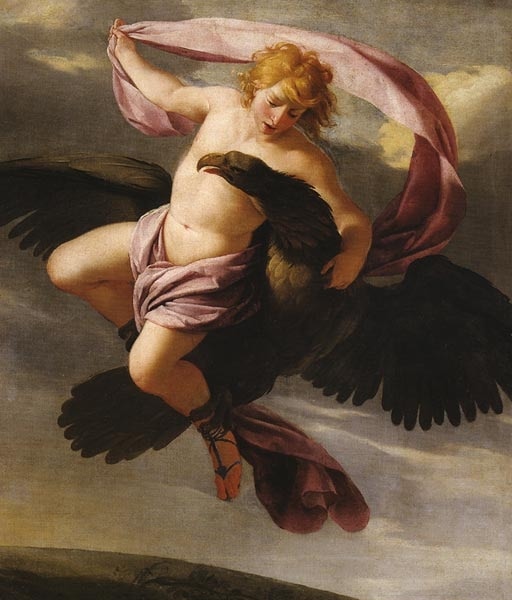
In Greek mythology, Ganymede or Ganymedes is a divine hero whose homeland was Troy. Homer describes Ganymede as the most beautiful of mortals and tells the story of how he was abducted by the gods to serve as Zeus’s cup-bearer in Olympus.
Read More About Ganymede / Source
Geras
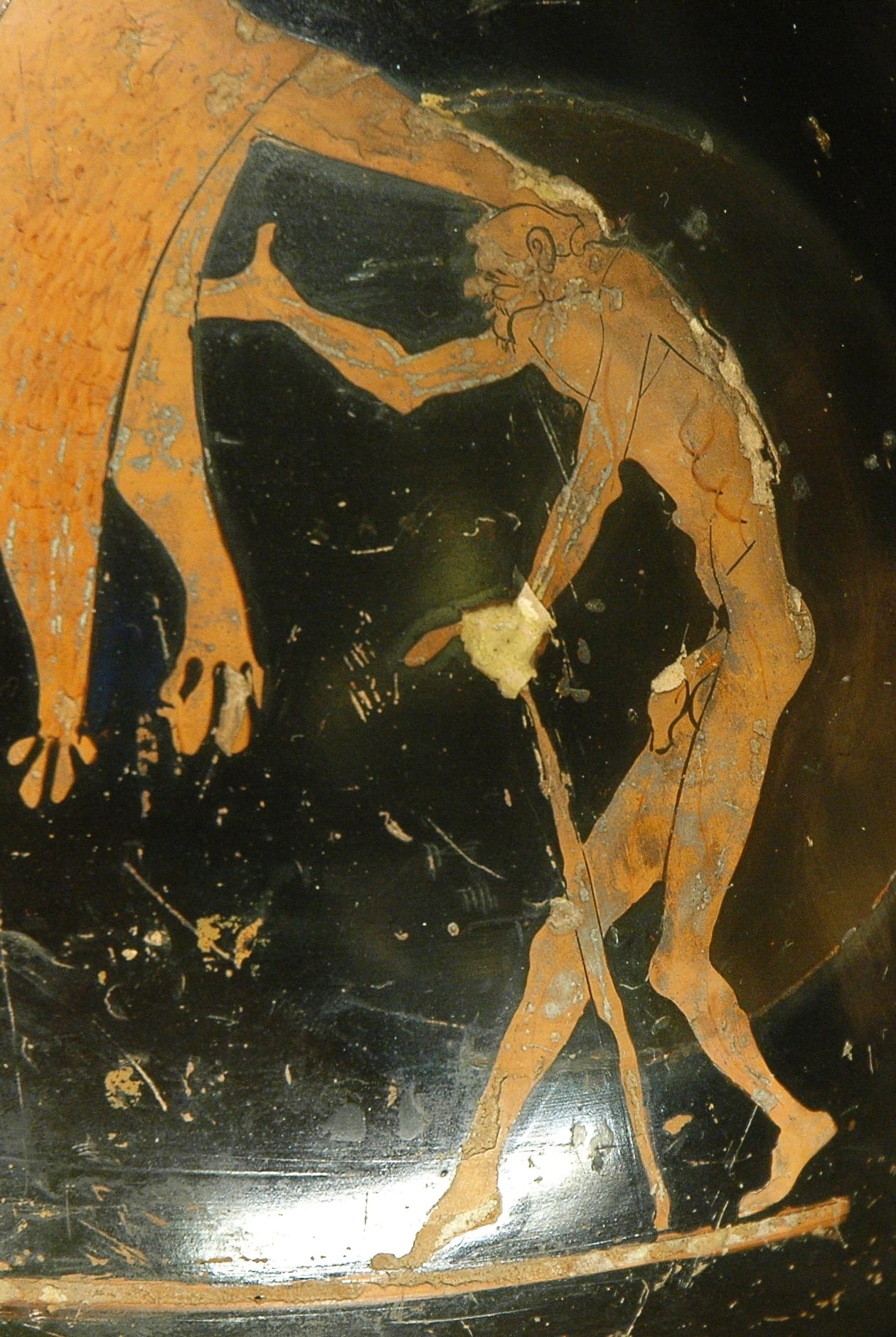
In Greek mythology, Geras /ˈdʒɪərəs/ (Ancient Greek: Γῆρας, romanized: Gễras), also written Gēras, was the god of old age. He was depicted as a tiny, shriveled old man. Gēras’s opposite was Hebe, the goddess of youth. His Roman equivalent was Senectus. He is known primarily from vase depictions that show him with the hero Heracles; the mythic story that inspired these depictions has been lost.
Read More About Geras / Source
Glaucus
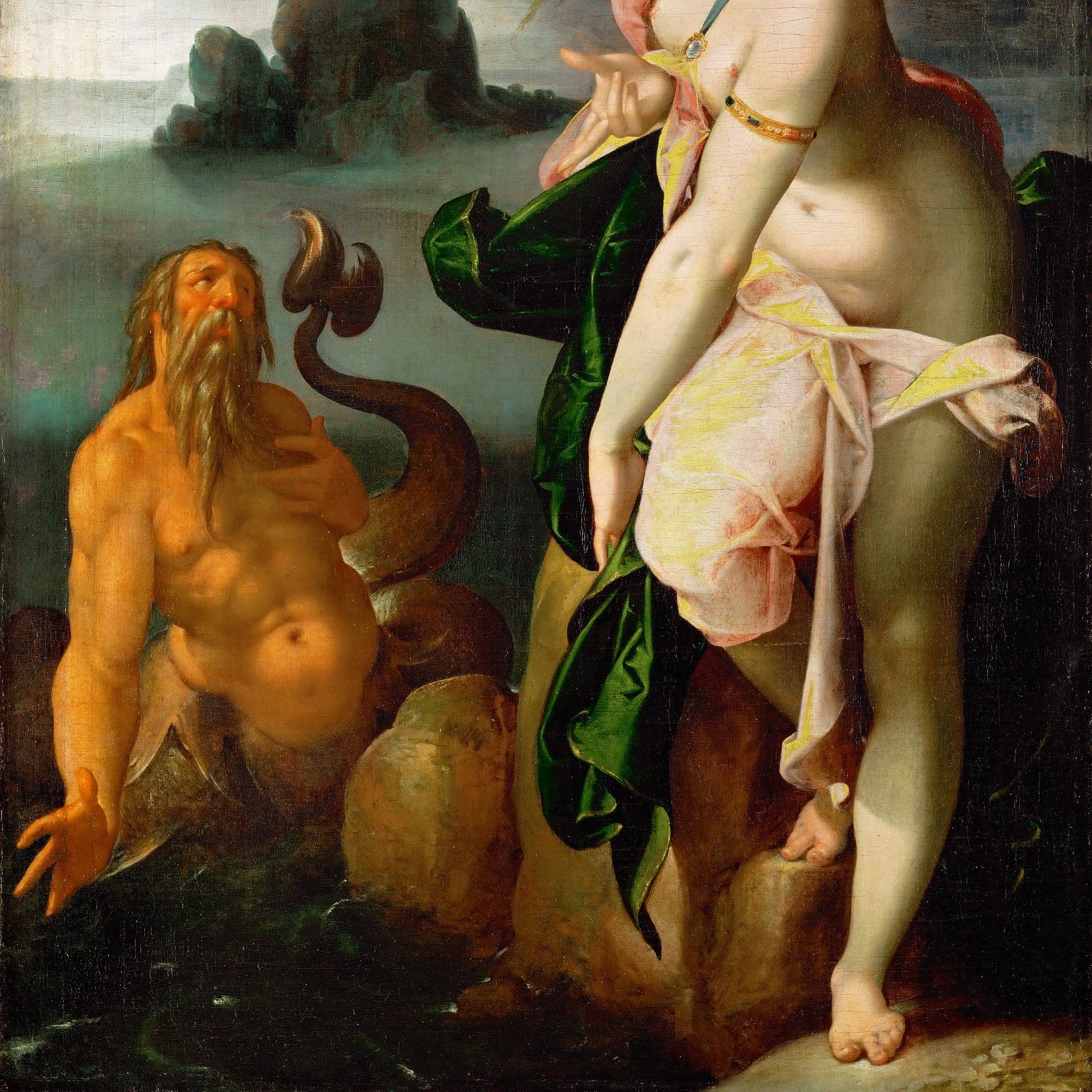
In Greek mythology, Glaucus (/ˈɡlɔːkəs/; Ancient Greek: Γλαῦκος, romanized: Glaûkos, lit. ’glimmering’) was a Greek prophetic sea-god, born mortal and turned immortal upon eating a magical herb. It was believed that he came to the rescue of sailors and fishermen in storms, having earlier earned a living from the sea himself.
Read More About Glaucus / Source
Charites
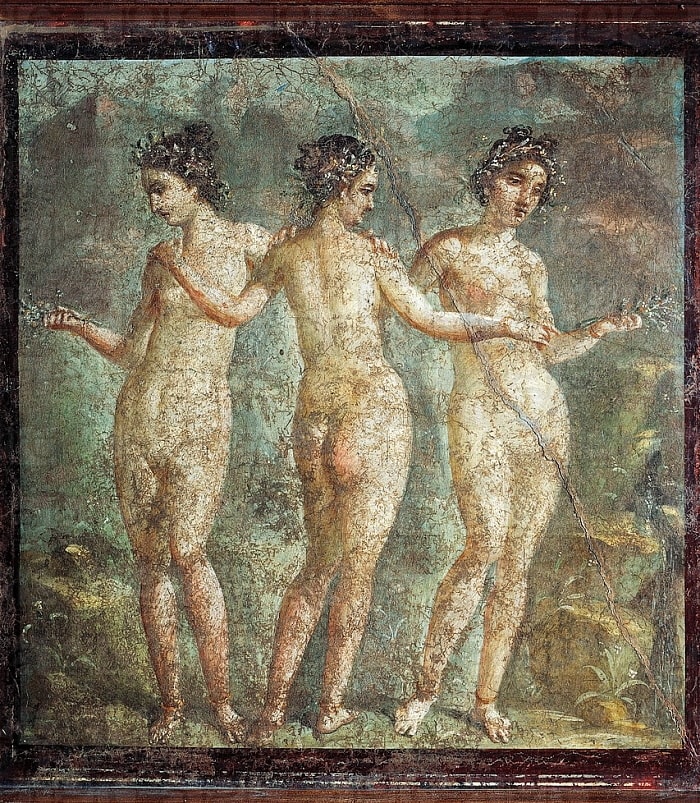
In Greek mythology, the Charites /ˈkærɪtiːz/ (Χάριτες [kʰárites]), singular Charis, or Graces, were three or more goddesses of charm, beauty, nature, human creativity, goodwill, and fertility. Hesiod names three – Aglaea (“Shining”), Euphrosyne (“Joy”), and Thalia (“Blooming”) – and names Aglaea as the youngest and the wife of Hephaestus.In Roman mythology they were known as the Gratiae, the “Graces”. Some sources use the appellation “Charis” as the name of one of the Charites, and equate her with Aglaea, as she too is referred to as the wife of Hephaestus.
Read More About Charites / Source
Harmonia

In Greek mythology, Harmonia (/hɑːrˈmoʊniə/; Ancient Greek: Ἁρμονία /harmoˈnia/, “harmony”, “agreement”) is the immortal goddess of harmony and concord. Her Roman counterpart is Concordia. Her Greek opposite is Eris, whose Roman counterpart is Discordia.
Read More About Harmonia / Source
Hebe
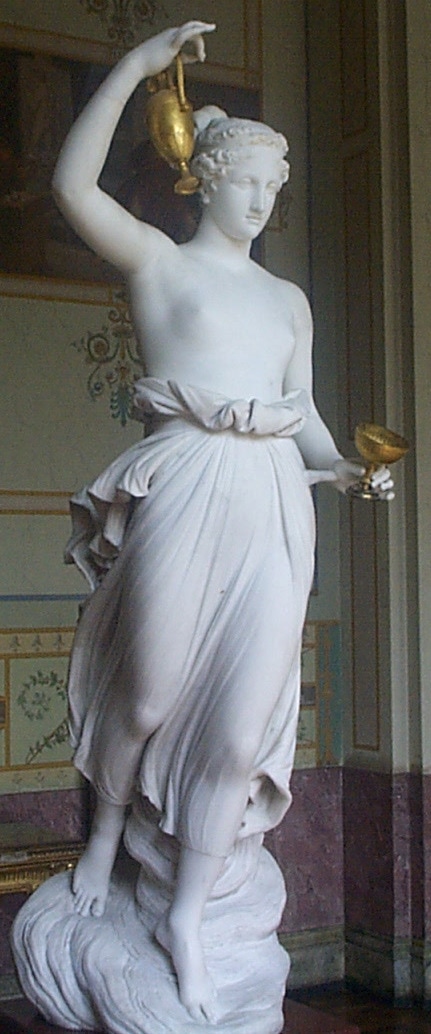
Hebe, in ancient Greek religion and mythology, is the goddess of youth or the prime of life. She is the beautiful daughter of Zeus and his wife, Hera. Hebe was the cupbearer for the gods and goddesses of Mount Olympus, serving their nectar and ambrosia until she married Heracles (Roman equivalent: Hercules); her successor was the divine hero Ganymede. Another title of hers for this reason is Ganymeda, meaning “Gladdening Princess”. Hebe was worshipped as the goddess of forgiveness or mercy at Sicyon.
Hecate
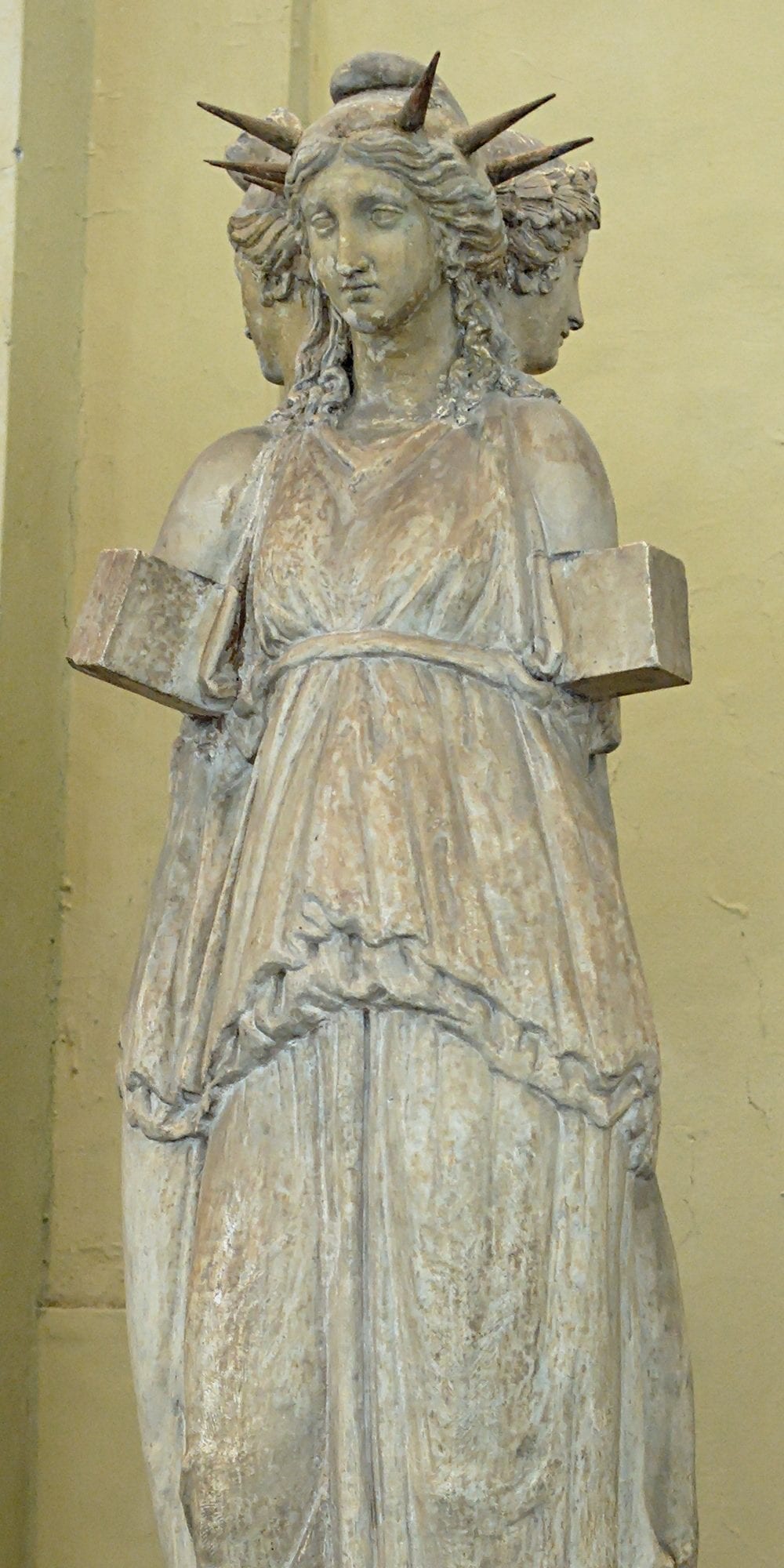
Hecate or Hekate is a goddess in ancient Greek religion and mythology, most often shown holding a pair of torches, a key, snakes, or accompanied by dogs, and in later periods depicted as three-formed or triple-bodied. She is variously associated with crossroads, entrance-ways, night, light, magic, witchcraft, the Moon, knowledge of herbs and poisonous plants, graves, ghosts, necromancy, and sorcery. Her earliest appearance in literature was in Hesiod’s Theogony in the 8th century BCE as a goddess of great honour with domains in sky, earth, and sea. Her place of origin is debated by scholars, but she had popular followings amongst the witches of Thessaly and an important sanctuary among the Carian Greeks of Asia Minor in Lagina.
Read More About Hecate / Source
Helios
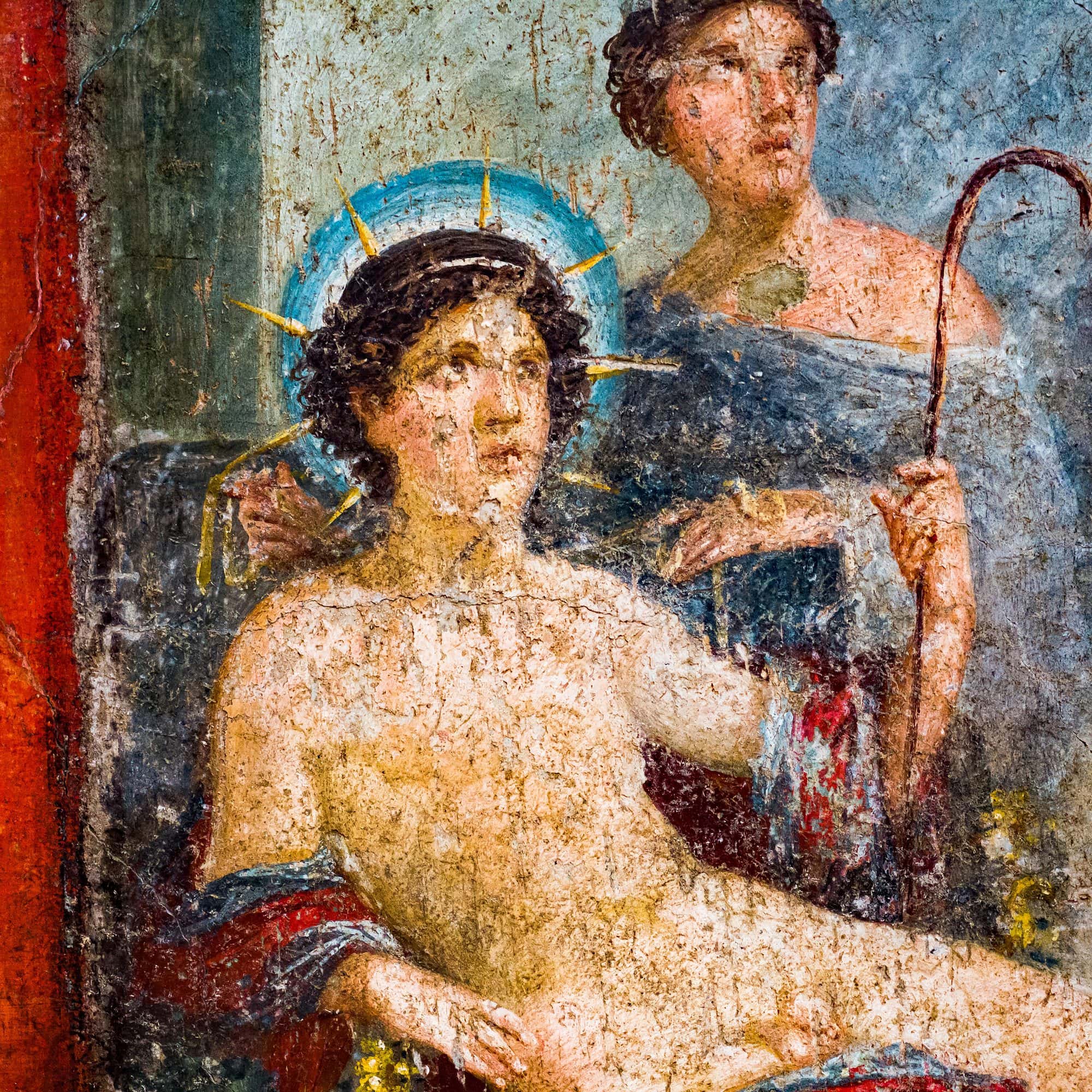
In ancient Greek religion and mythology, Helios is the god and personification of the Sun (Solar deity). His name is also Latinized as Helius, and he is often given the epithets Hyperion (“the one above”) and Phaethon (“the shining”). Helios is often depicted in art with a radiant crown and driving a horse-drawn chariot through the sky. He was a guardian of oaths and also the god of sight. Though Helios was a relatively minor deity in Classical Greece, his worship grew more prominent in late antiquity thanks to his identification with several major solar divinities of the Roman period, particularly Apollo and Sol. The Roman Emperor Julian made Helios the central divinity of his short-lived revival of traditional Roman religious practices in the 4th century AD.
Read More About Helios / Source
Hemera
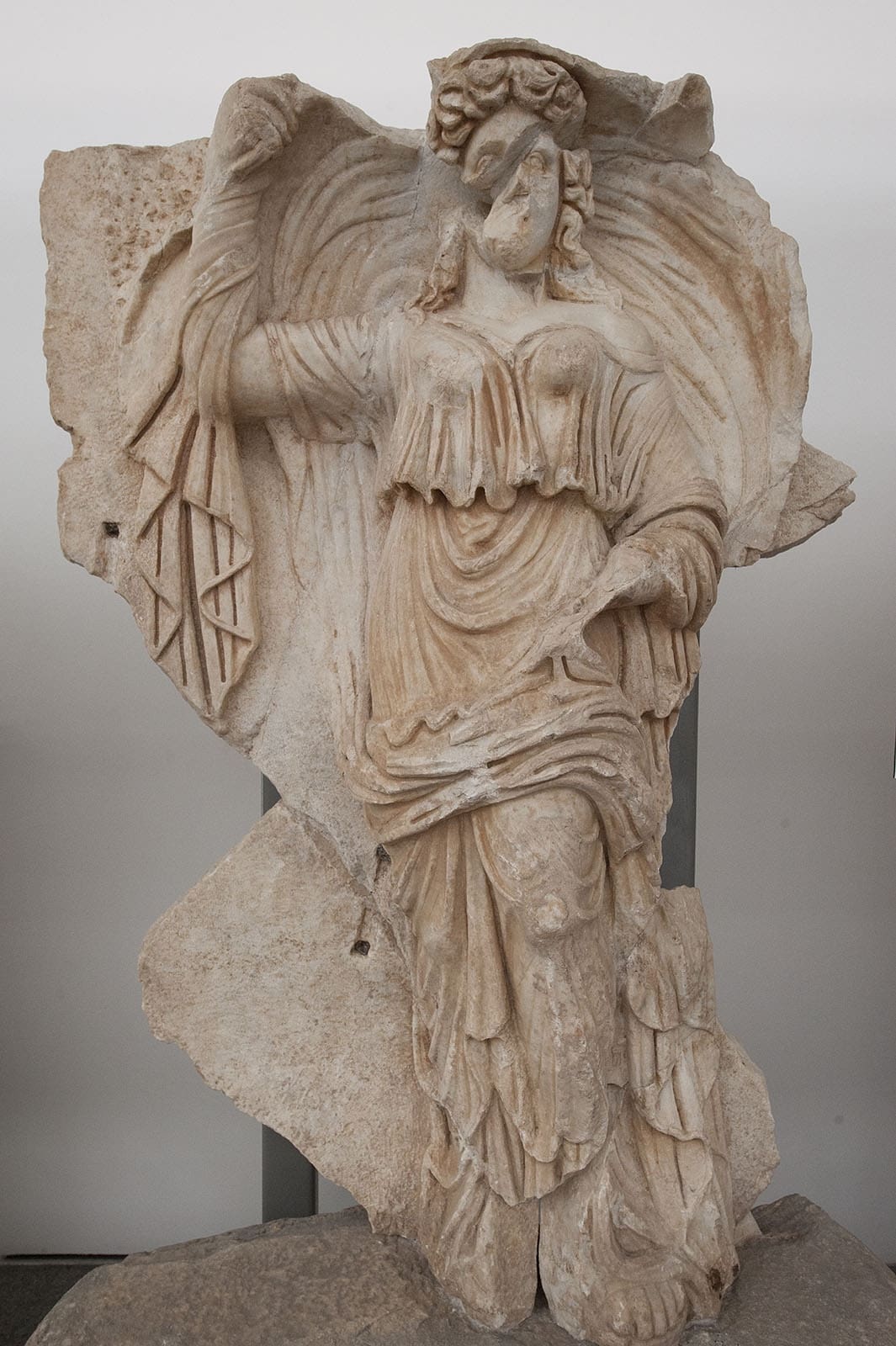
In Greek mythology, Hemera was the personification of day. According to Hesiod, she was the daughter of Erebus (Darkness) and Nyx (Night), and the sister of Aether. Though separate entities in Hesiod’s Theogony, Hemera and Eos (Dawn) were often identified with each other.
Read More About Hemera / Source
Heracles
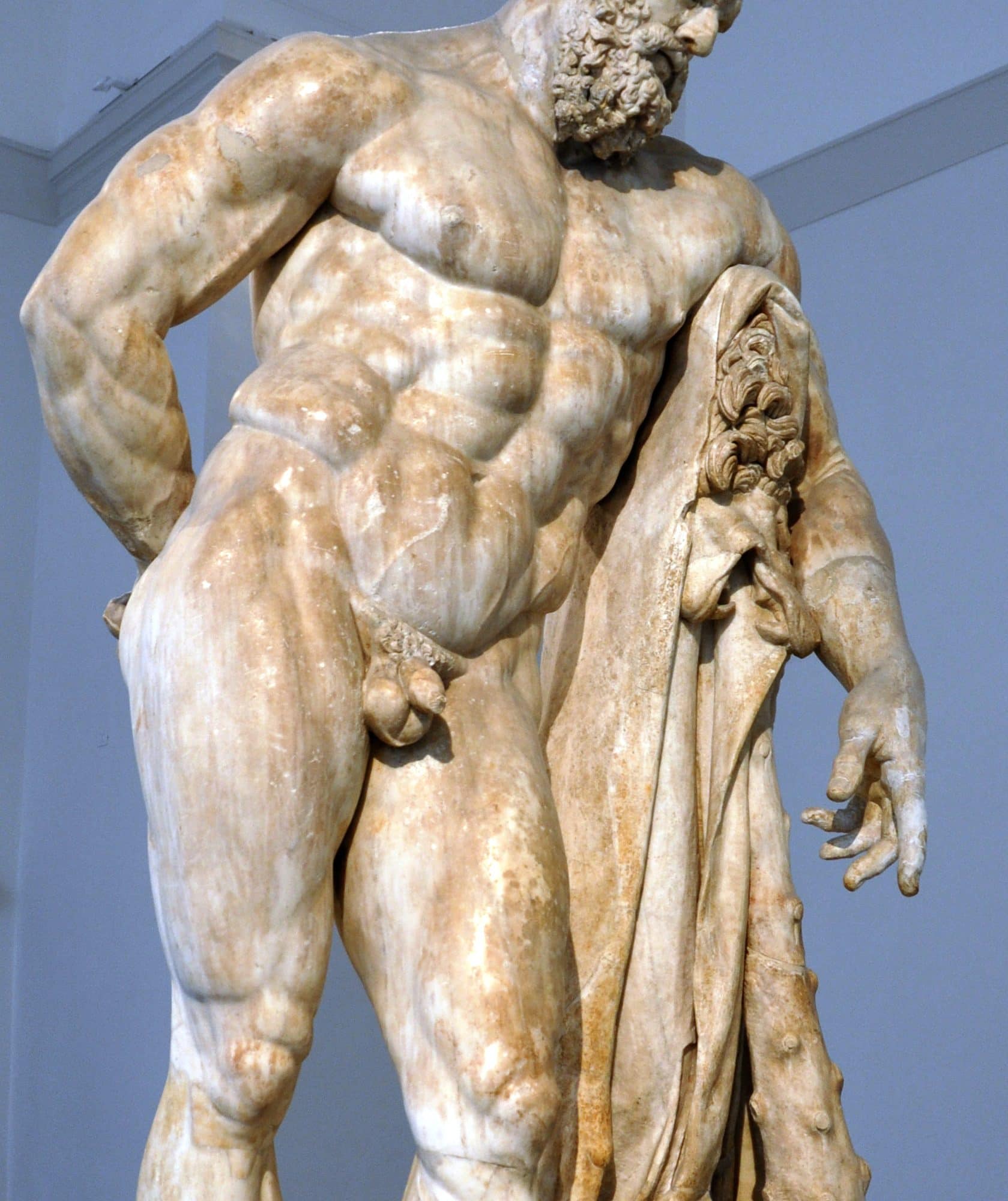
Heracles was a divine hero in Greek mythology, the son of Zeus and Alcmene, and the foster son of Amphitryon. He was a great-grandson and half-brother (as they are both sired by the god Zeus) of Perseus, and similarly a half-brother of Dionysus. He was the greatest of the Greek heroes, the ancestor of royal clans who claimed to be Heracleidae (Ἡρακλεῖδαι), and a champion of the Olympian order against chthonic monsters. In Rome and the modern West, he is known as Hercules, with whom the later Roman emperors, in particular Commodus and Maximian, often identified themselves. The Romans adopted the Greek version of his life and works essentially unchanged, but added anecdotal detail of their own, some of it linking the hero with the geography of the Central Mediterranean. Details of his cult were adapted to Rome as well.
Read More About Heracles / Source
Hesperus
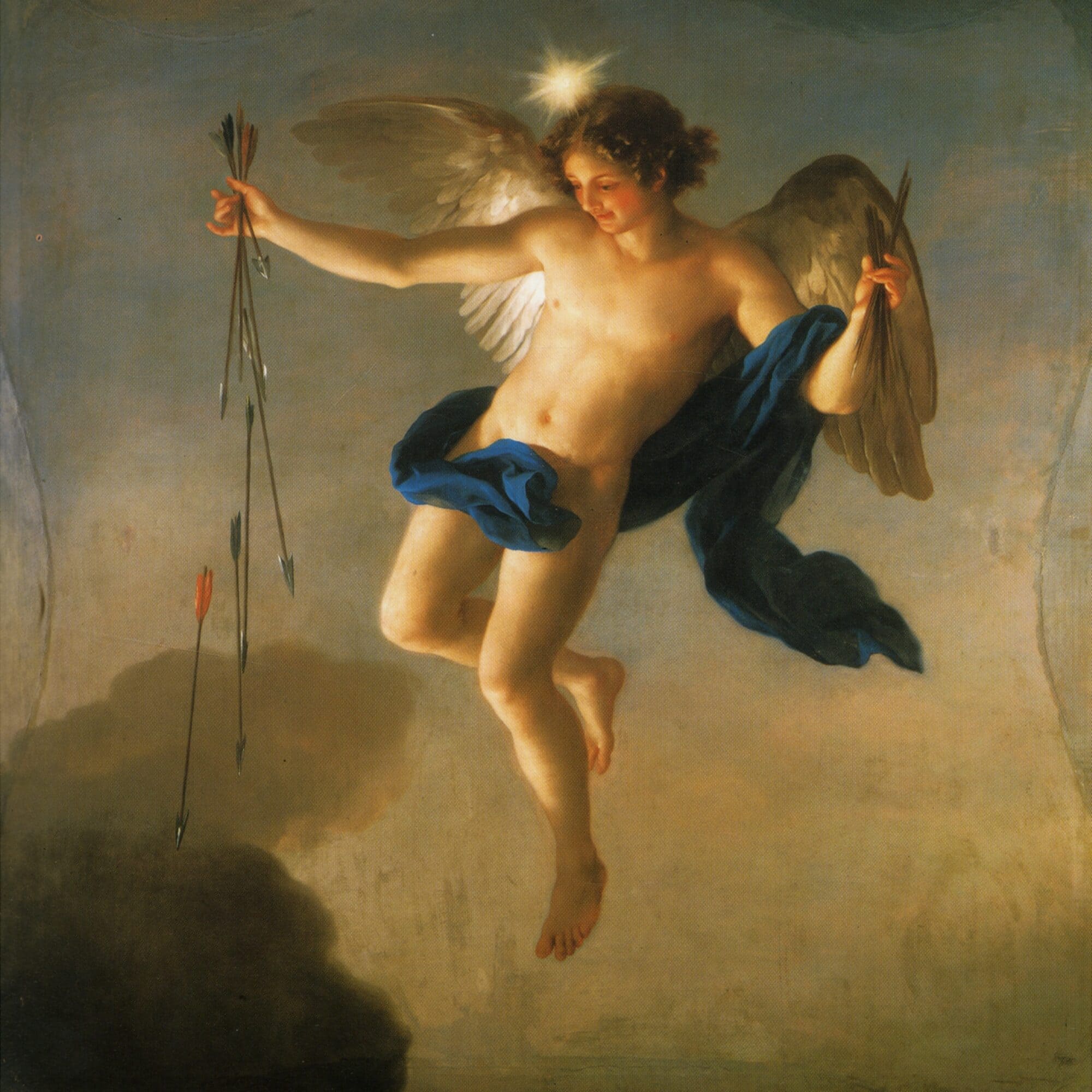
In Greek mythology, Hesperus is the Evening Star, the planet Venus in the evening. He is one of the Astra Planeta. A son of the dawn goddess Eos (Roman Aurora), he is the half-brother of her other son, Phosphorus (also called Eosphorus; the “Morning Star”). Hesperus’ Roman equivalent is Vesper (cf. “evening”, “supper”, “evening star”, “west”). By one account, Hesperus’ father was Cephalus, a mortal, while Phosphorus was the star god Astraios. Other sources, however, state that Hesperus was the brother of Atlas, and thus the son of Iapetus.
Read More About Hesperus / Source
Hygieia
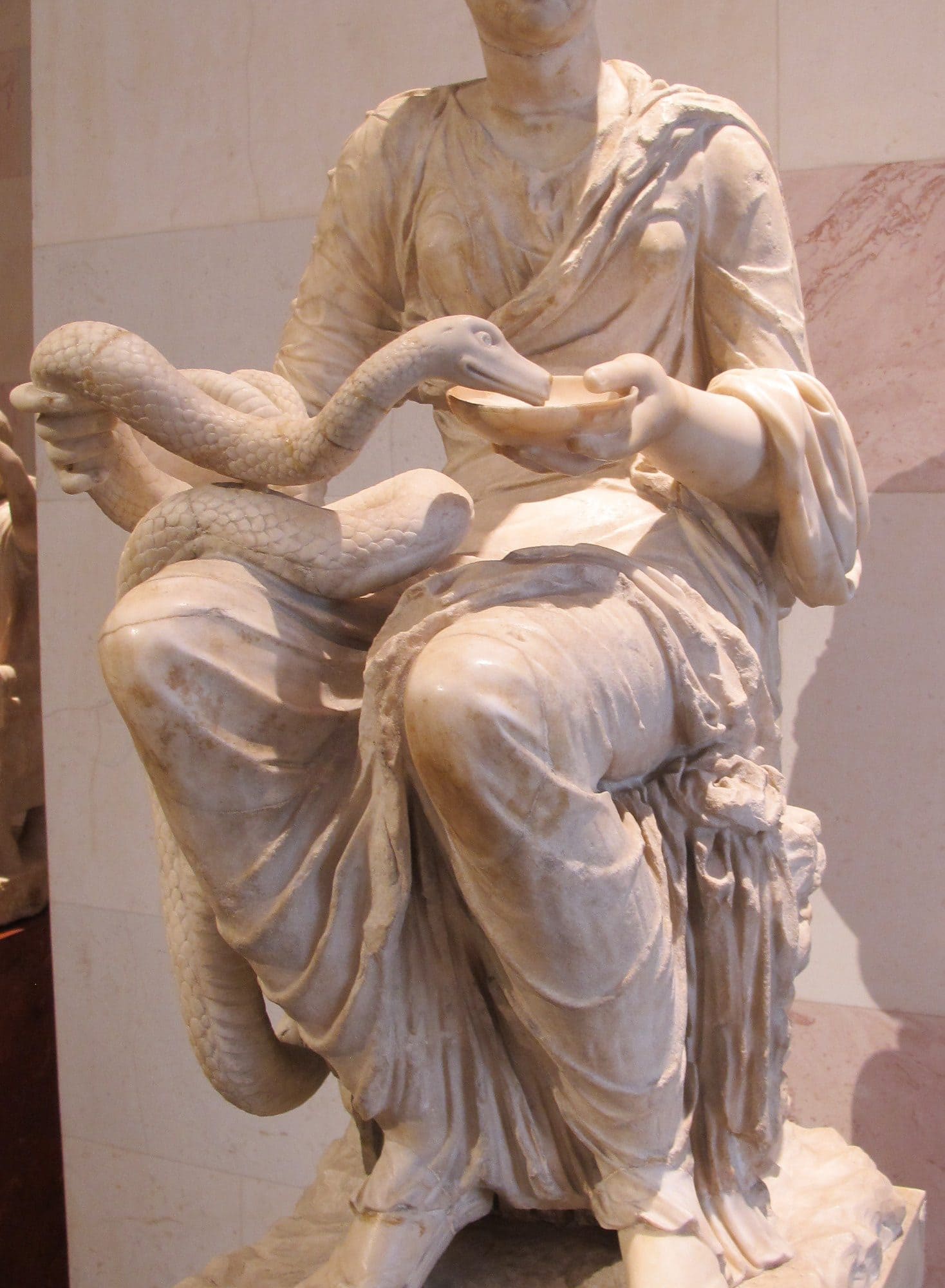
Hygieia is a goddess from Greek, as well as Roman, mythology. Hygieia is a goddess of health, cleanliness and hygiene. Her name is the source for the word “hygiene”.
Read More About Hygieia / Source
Hymenaios
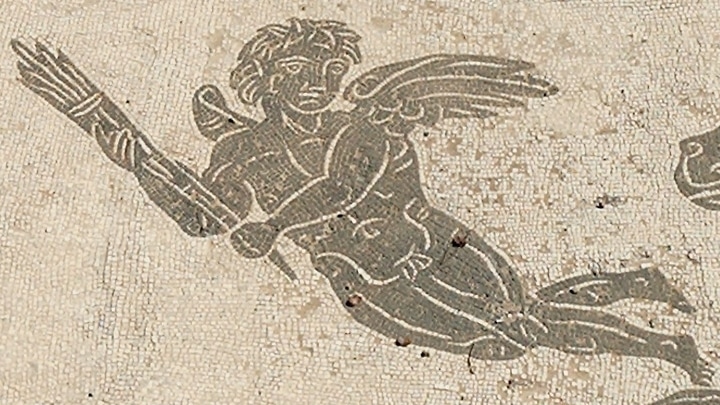
Hymen, Hymenaios or Hymenaeus, in Hellenistic religion, is a god of marriage ceremonies, inspiring feasts and song. Related to the god’s name, a hymenaios is a genre of Greek lyric poetry sung during the procession of the bride to the groom’s house in which the god is addressed, in contrast to the Epithalamium, which is sung at the nuptial threshold. He is one of the winged love gods, the Erotes. Hymen is the son of Apollo and one of the muses, Clio or Calliope or Urania or Terpsichore.
Read More About Hymenaios / Source
Hyperion (Greek God)
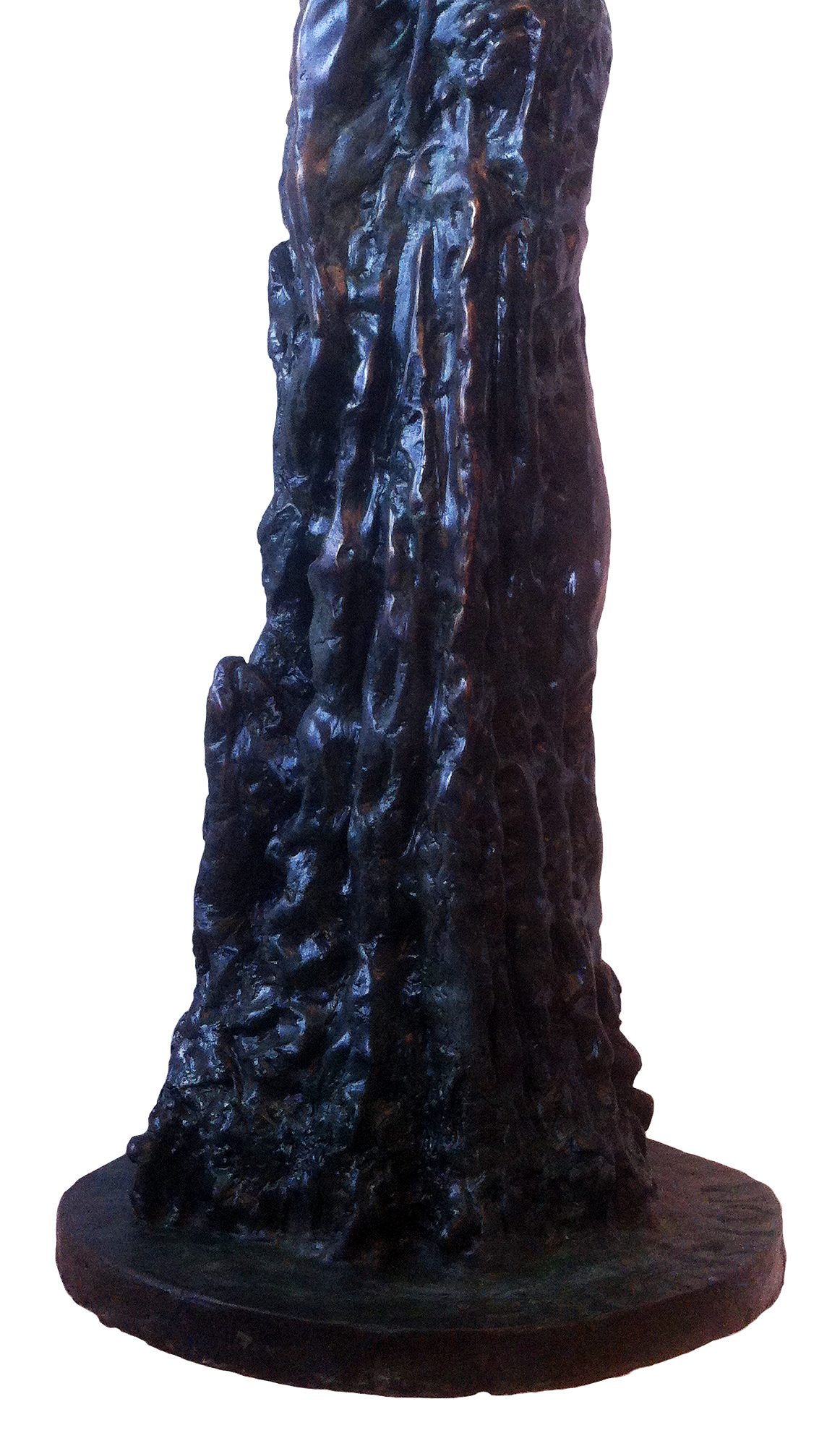
In Greek mythology, Hyperion was one of the twelve Titan children of Gaia (the Earth) and Uranus (the Sky). With his sister, the Titaness Theia, Hyperion fathered Helios (the Sun), Selene (the Moon) and Eos (the Dawn).
Read More About Hyperion (Greek God) / Source
Hypnos
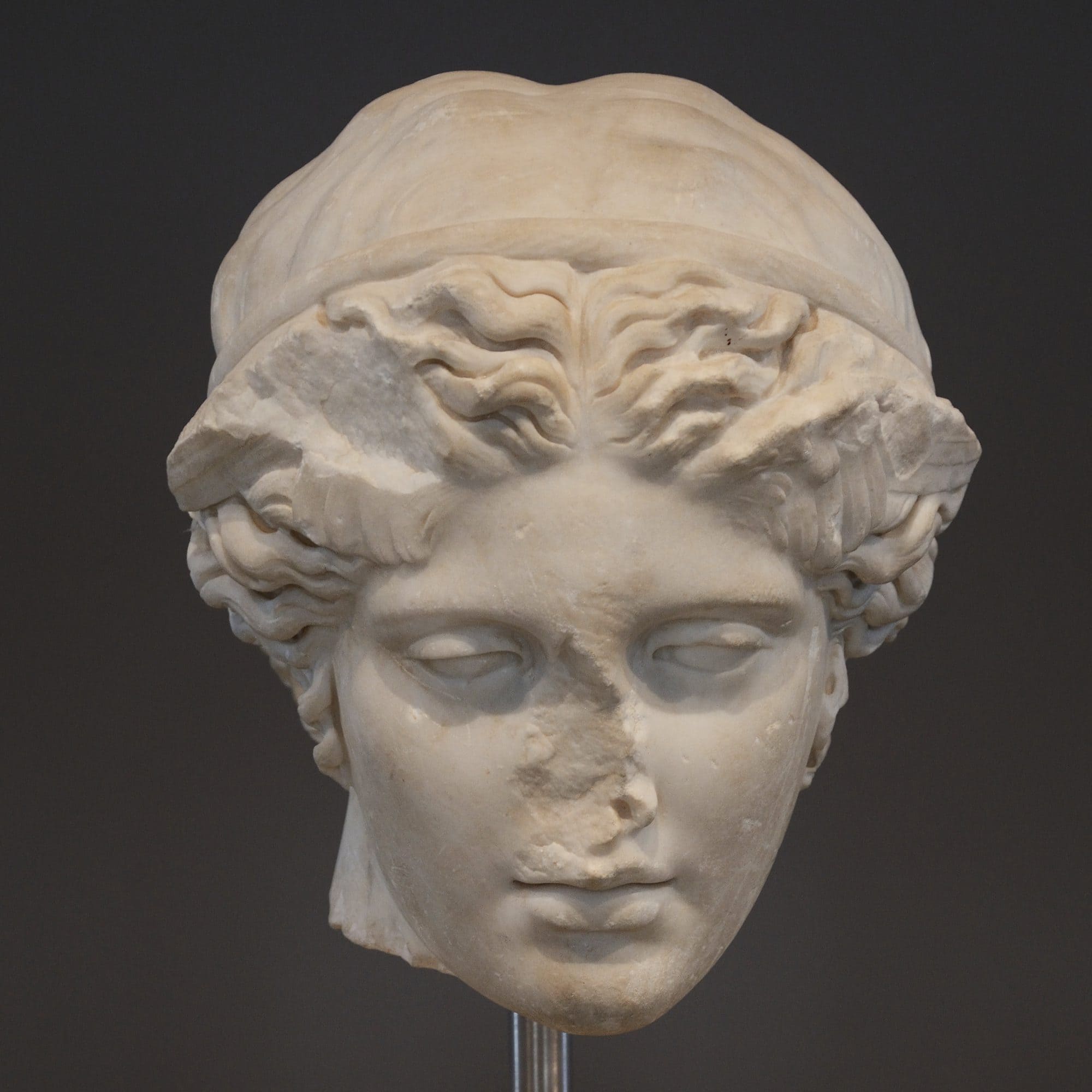
In Greek mythology, Hypnos (/ˈhɪpnɒs/; Ancient Greek: Ὕπνος means ‘sleep’) also spelled Hypnus is the personification of sleep; the Roman equivalent is known as Somnus. His name is the origin of the word hypnosis.Pausanias wrote that Hypnos was a dearest friend of the Muses.
Read More About Hypnos / Source
Iapetus
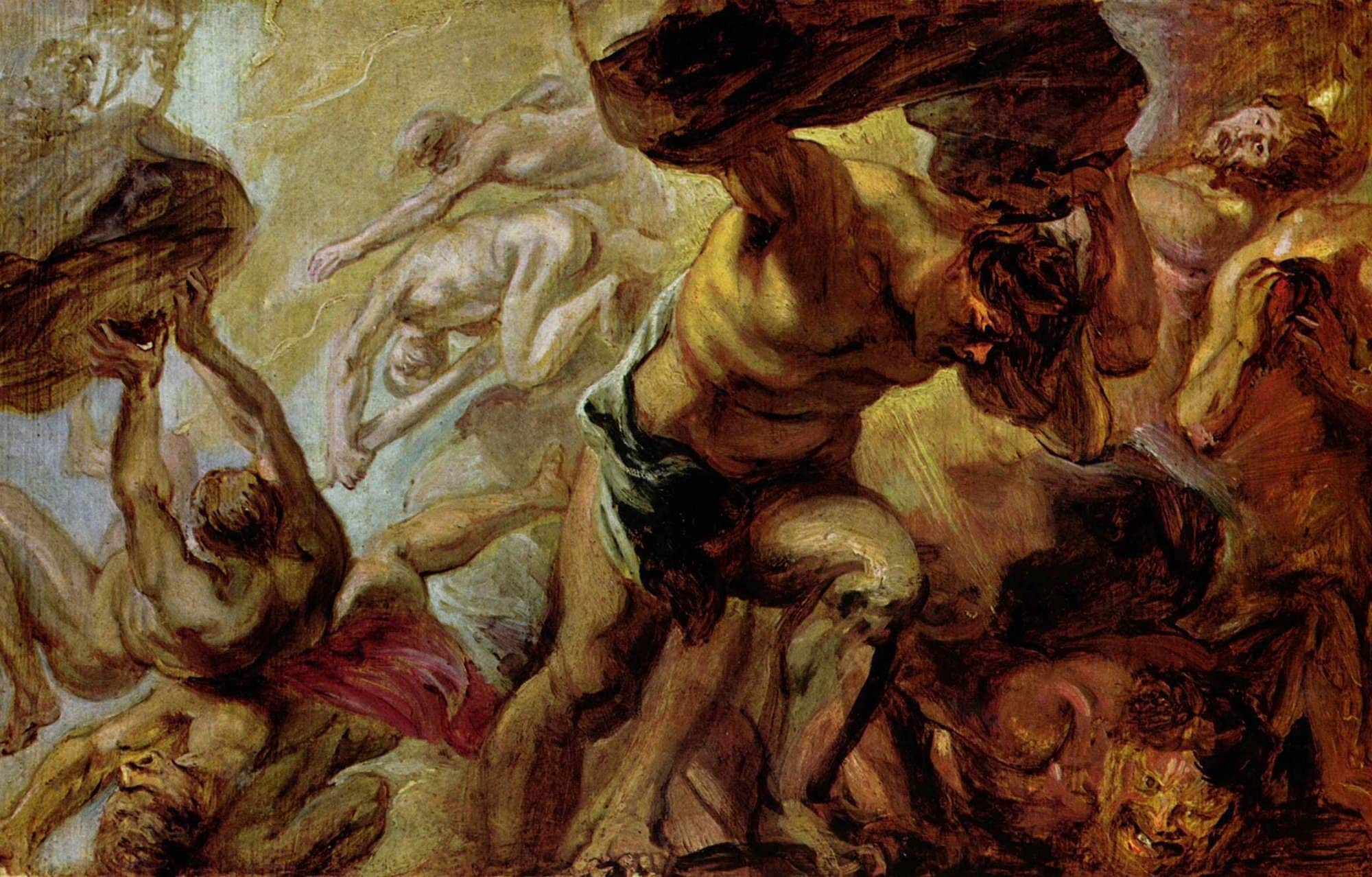
In Greek mythology, Iapetus also Japetus, is a Titan, the son of Uranus and Gaia and father of Atlas, Prometheus, Epimetheus, and Menoetius. He was also called the father of Buphagus and Anchiale in other sources.
Read More About Iapetus / Source
Iris
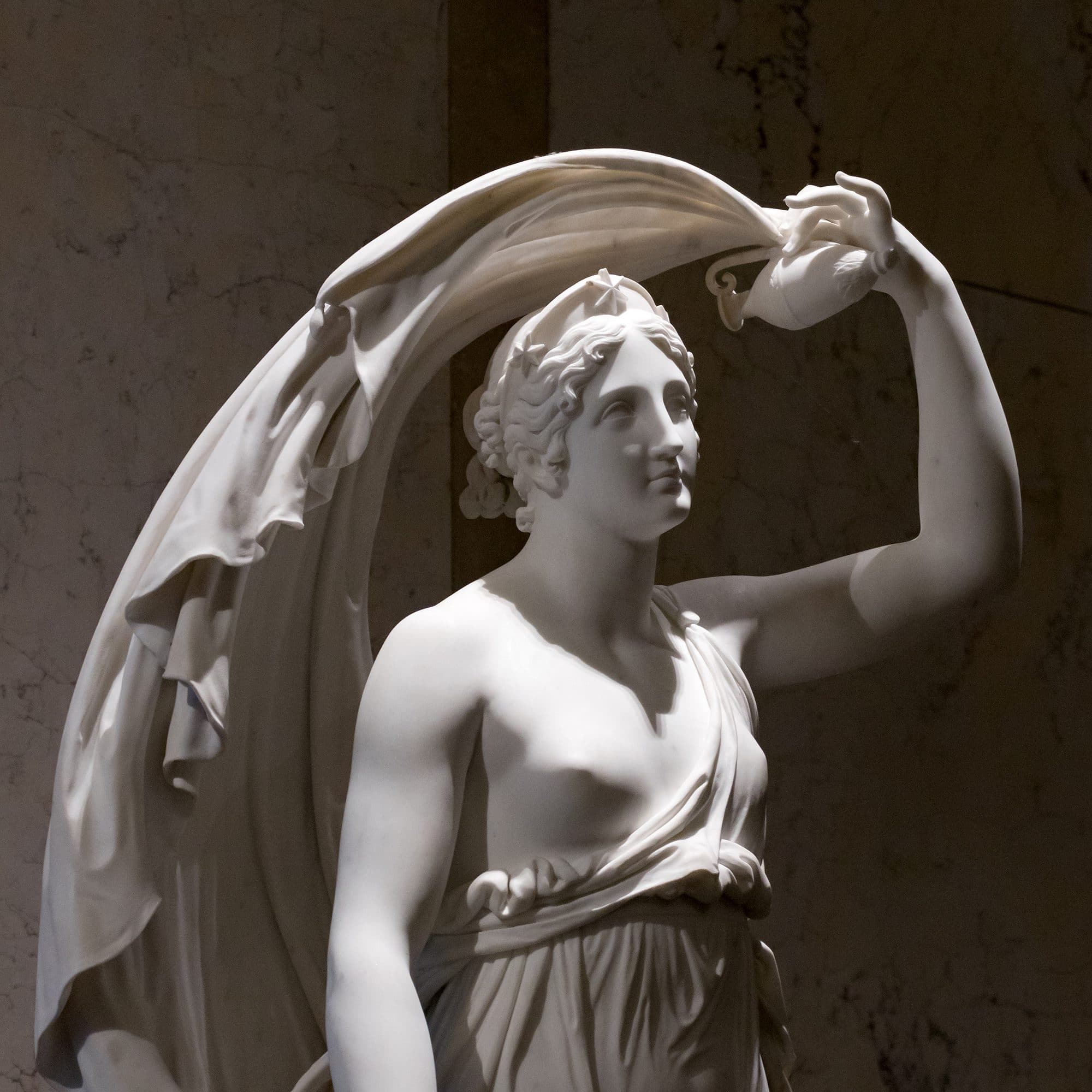
In ancient Greek religion and mythology, Iris is a daughter of the gods Thaumas and Electra, the personification of the rainbow and messenger of the gods, a servant to the Olympians and especially Queen Hera. Iris appears in several stories carrying messages from and to the gods or running errands but has no unique mythology of her own. Similarly, very little to none of a historical cult and worship of Iris is attested in surviving records, with only a few traces surviving from the island of Delos. In ancient art, Iris is depicted as a winged young woman carrying a caduceus, the symbol of the messengers, and a pitcher of water for the gods. Iris was traditionally seen as the consort of Zephyrus, the god of the west wind and one of the four Anemoi, by whom she is the mother of Pothos in some versions.
Jason
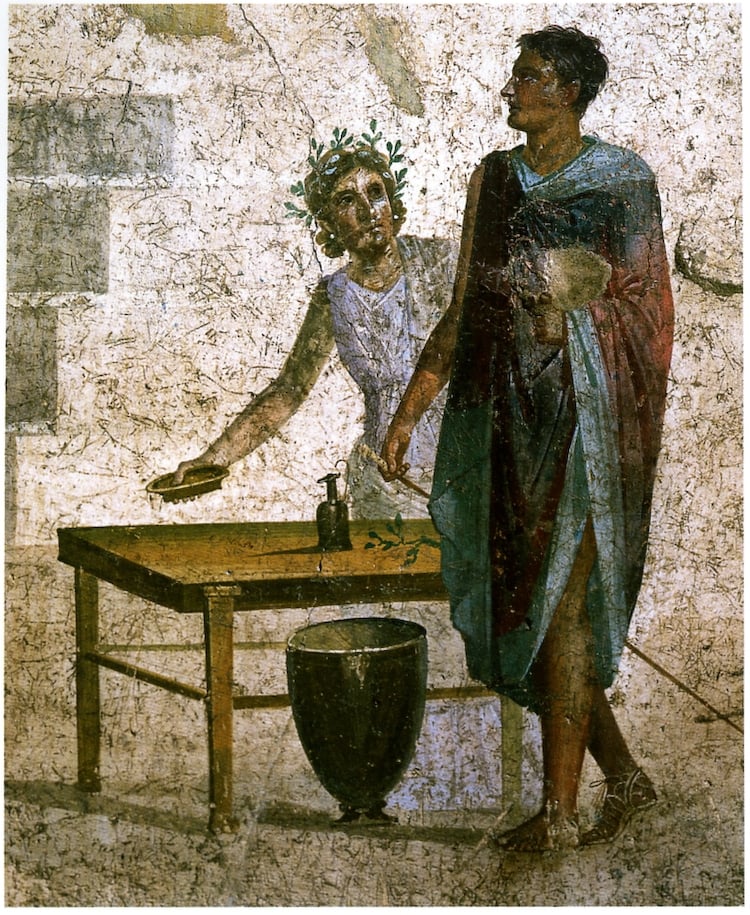
Jason was an ancient Greek mythological hero and leader of the Argonauts, whose quest for the Golden Fleece featured in Greek literature. He was the son of Aeson, the rightful king of Iolcos. He was married to the sorceress Medea. He was also the great-grandson of the messenger god Hermes, through his mother’s side.
Read More About Jason / Source
Keres
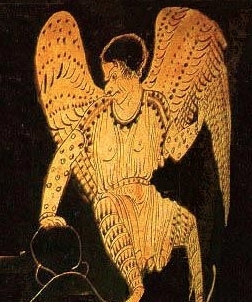
In Greek mythology, the Keres were female death-spirits. They were the goddesses who personified violent death and who were drawn to bloody deaths on battlefields.Although they were present during death and dying, they did not have the power to kill. All they could do was wait and then feast on the dead. The Keres were daughters of Nyx, and as such the sisters of beings such as Moirai,who controlled the fate of souls, and Thanatos, the god of peaceful death. Some later authorities, such as Cicero, called them by a Latin name, Tenebrae (“the Darknesses”), and named them daughters of Erebus and Nyx.
Read More About Keres / Source
Kotys
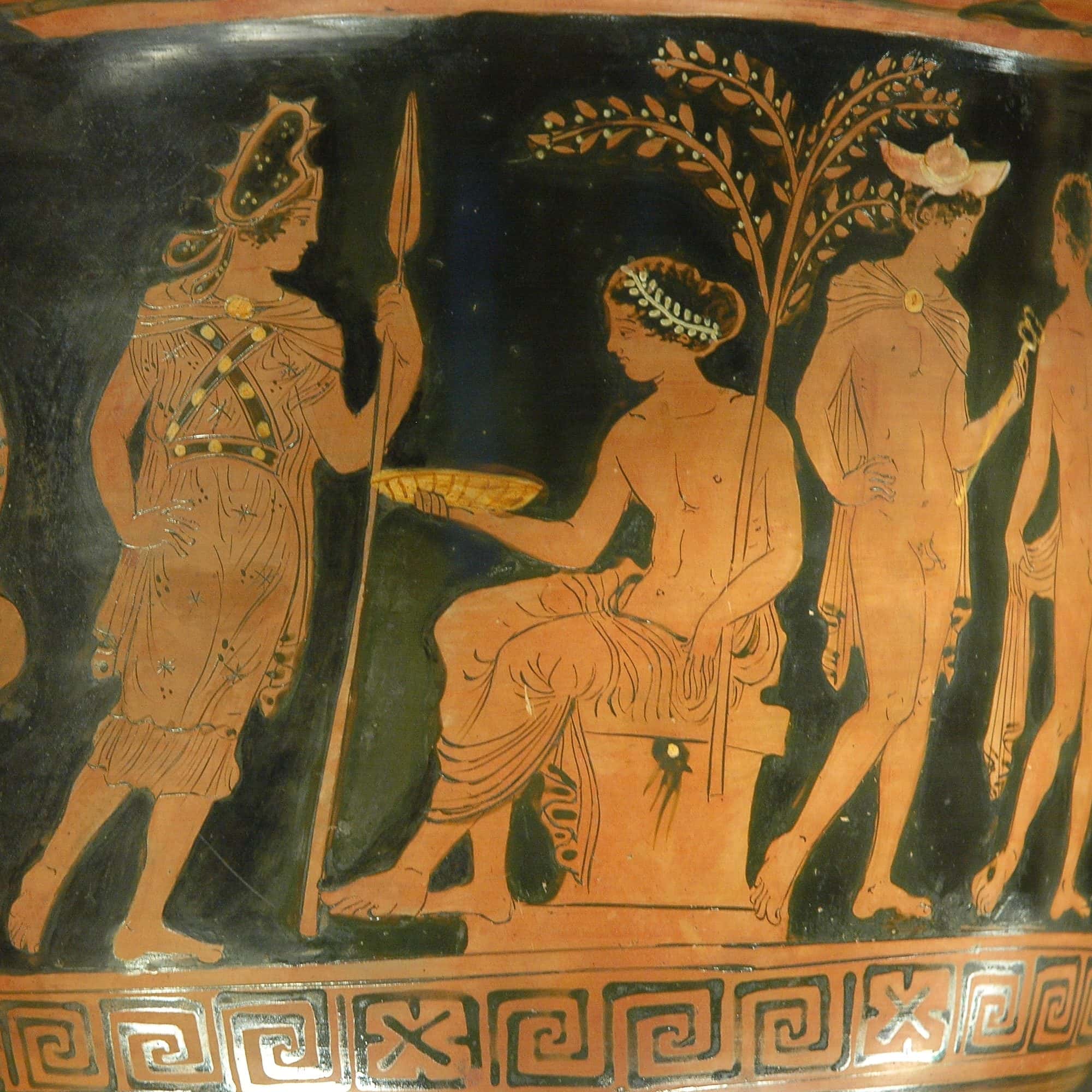
Kotys also called Kotytto (Κοτυττώ), was a Thracian goddess whose festival, the Cotyttia, resembled that of the Phrygian Cybele, and was celebrated on hills with riotous proceedings and orgiastic rites, especially at night.
Read More About Kotys / Source
Lachesis
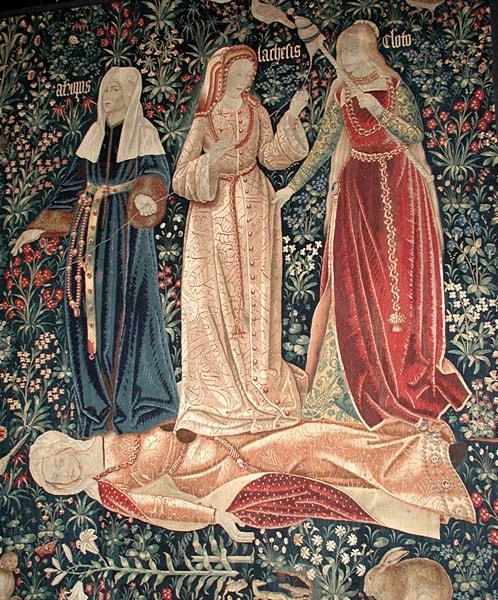
Lachesis (/ˈlækɪsɪs/ LAK-iss-iss; Ancient Greek: Λάχεσις, romanized: Lákhesis, lit. ’disposer of lots’; from λαγχάνω lanchánō, ‘to obtain by lot, by fate, or by the will of the gods’), in ancient Greek religion, was the second of the Three Fates, or Moirai; the others were her sisters, Clotho and Atropos. Normally seen clothed in white, Lachesis is the measurer of the thread spun on Clotho’s spindle, and in some texts, determines Destiny, or thread of life. Her Roman equivalent was Decima. Lachesis was the apportioner, deciding how much time for life was to be allowed for each person or being. She measured the thread of life with her rod. She is also said to choose a person’s destiny after a thread was measured. In mythology, it is said that she appears with her sisters within three days of a baby’s birth to decide the baby’s fate.
Read More About Lachesis / Source
Maia
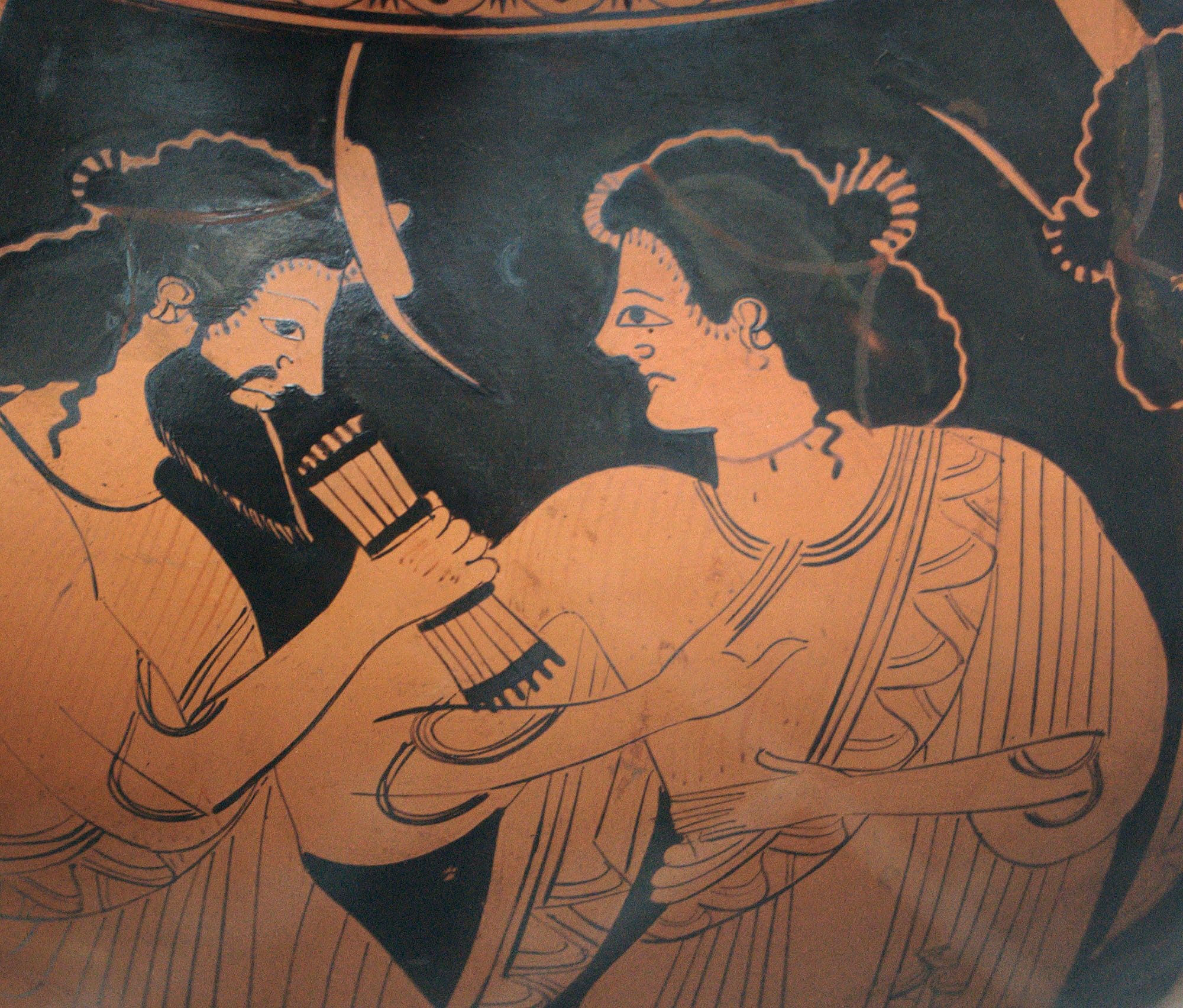
Maia in ancient Greek religion and mythology, is one of the Pleiades and the mother of Hermes, one of the major Greek gods, by Zeus, the king of Olympus.
Megara
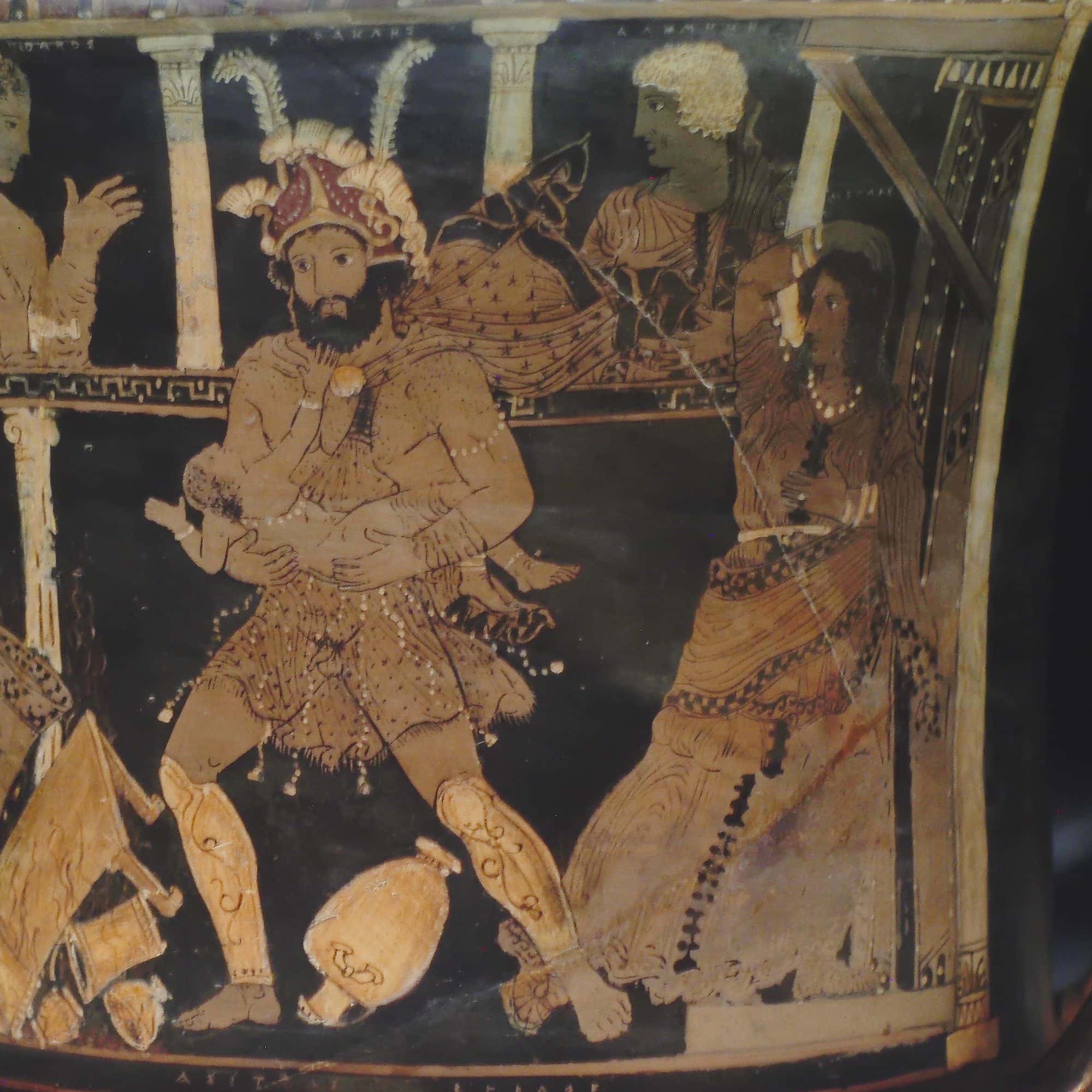
In Greek mythology, Megara (/ˈmɛɡərə/; Ancient Greek: Μεγάρα) was a Theban princess and the first wife of the hero Heracles.
Read More About Megara / Source
Megaera
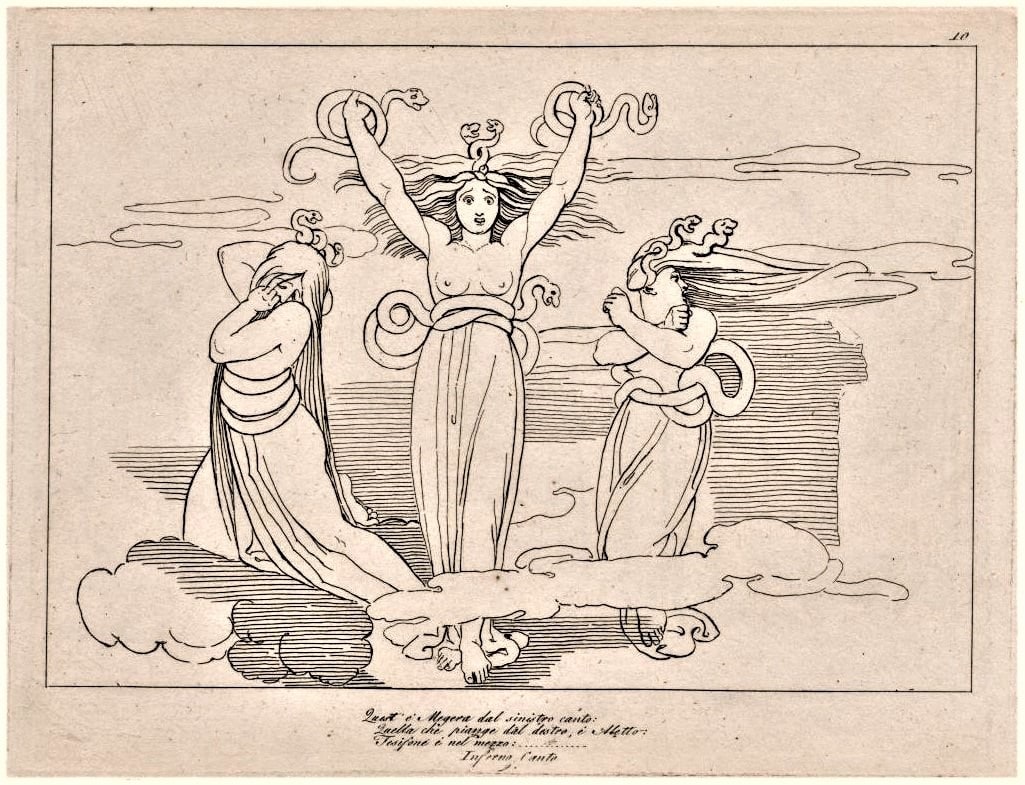
Megaera is one of the Erinyes, Eumenides or “Furies” in Greek mythology. Bibliotheca Classica states “According to the most received opinions, they were three in number, Tisiphone, “Megaera … daughter of Nyx and Acheron”,and Alecto”.
Read More About Megaera / Source
Melpomene
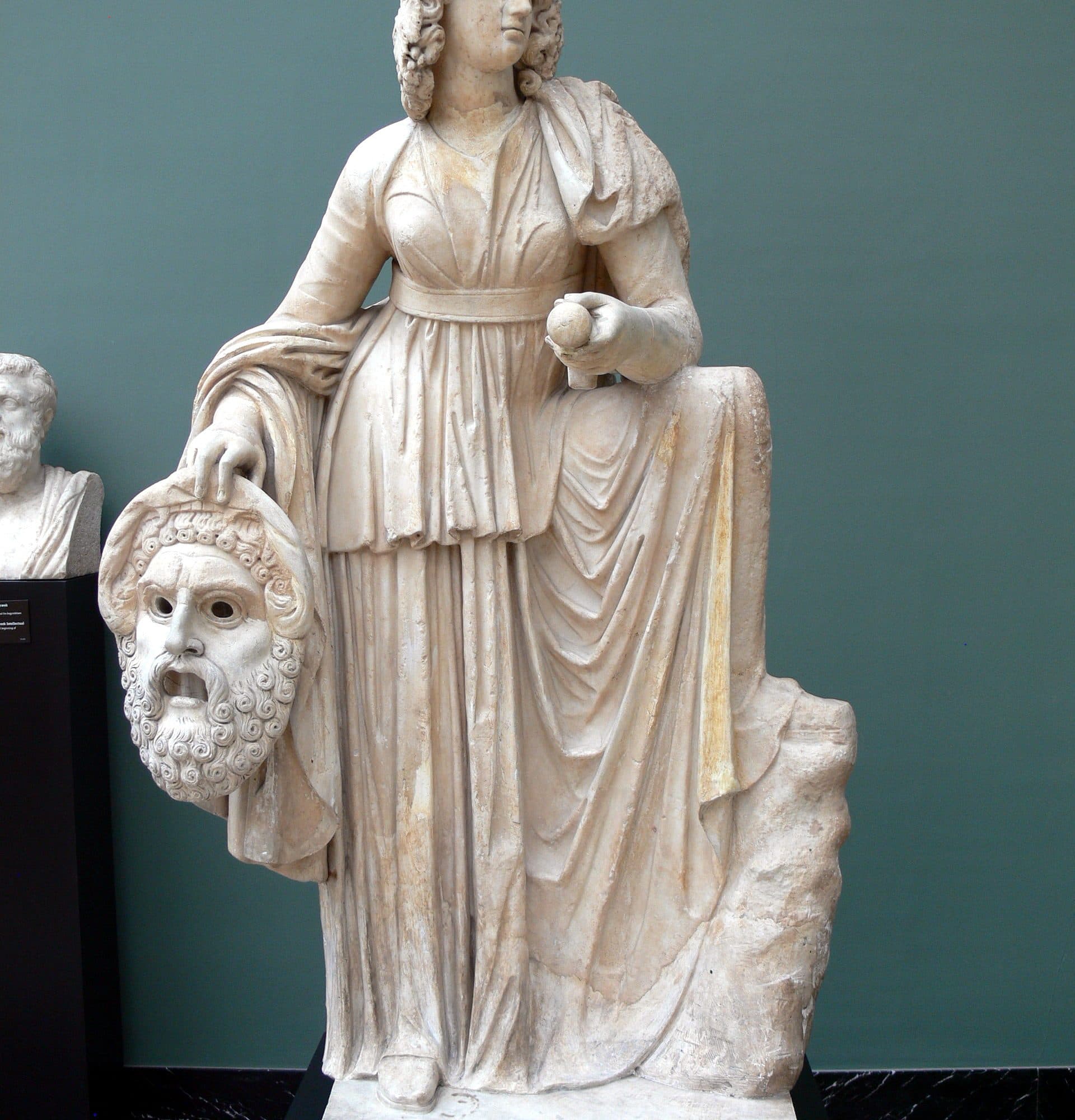
In Greek mythology, Melpomene (/mɛlˈpɒmɪniː/; Ancient Greek: Μελπομένη, romanized: Melpoménē, lit. ’to sing’ or ‘the one that is melodious’), initially the muse of chorus, eventually became the muse of tragedy, and is now best known in that association.
Read More About Melpomene / Source
Menoetius
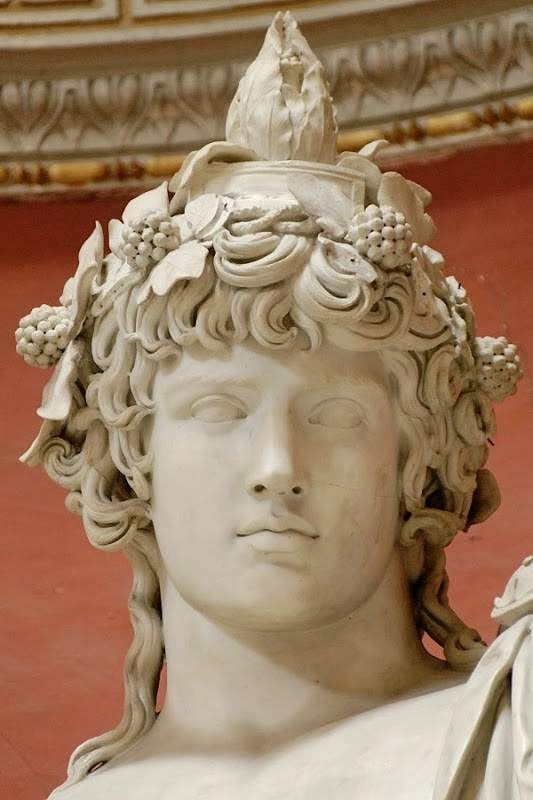
In GREEK MYTHOLOGY, many GODS and GODDESSES represented more than just the foundations of the physical world. Some personified human emotions, strengths, and weaknesses. One god, Menoetius, embodied a negative character flaw that ultimately led to his demise!
Read More About Menoetius / Source
Merope

Merope plays a special role in the history of the Greek gods and goddesses. The ancient Greeks considered her a “nymph”. Nymphs usually resembled beautiful maidens in appearance. They served as minor goddesses associated with natural forces: rivers, trees, lakes, mountains, and other important landmarks. Nymphs served as nannies caring for the Greek god of the vineyards, Dionysius (also called “Bacchus” by the Romans), during his infancy.
Read More About Merope / Source
Metis
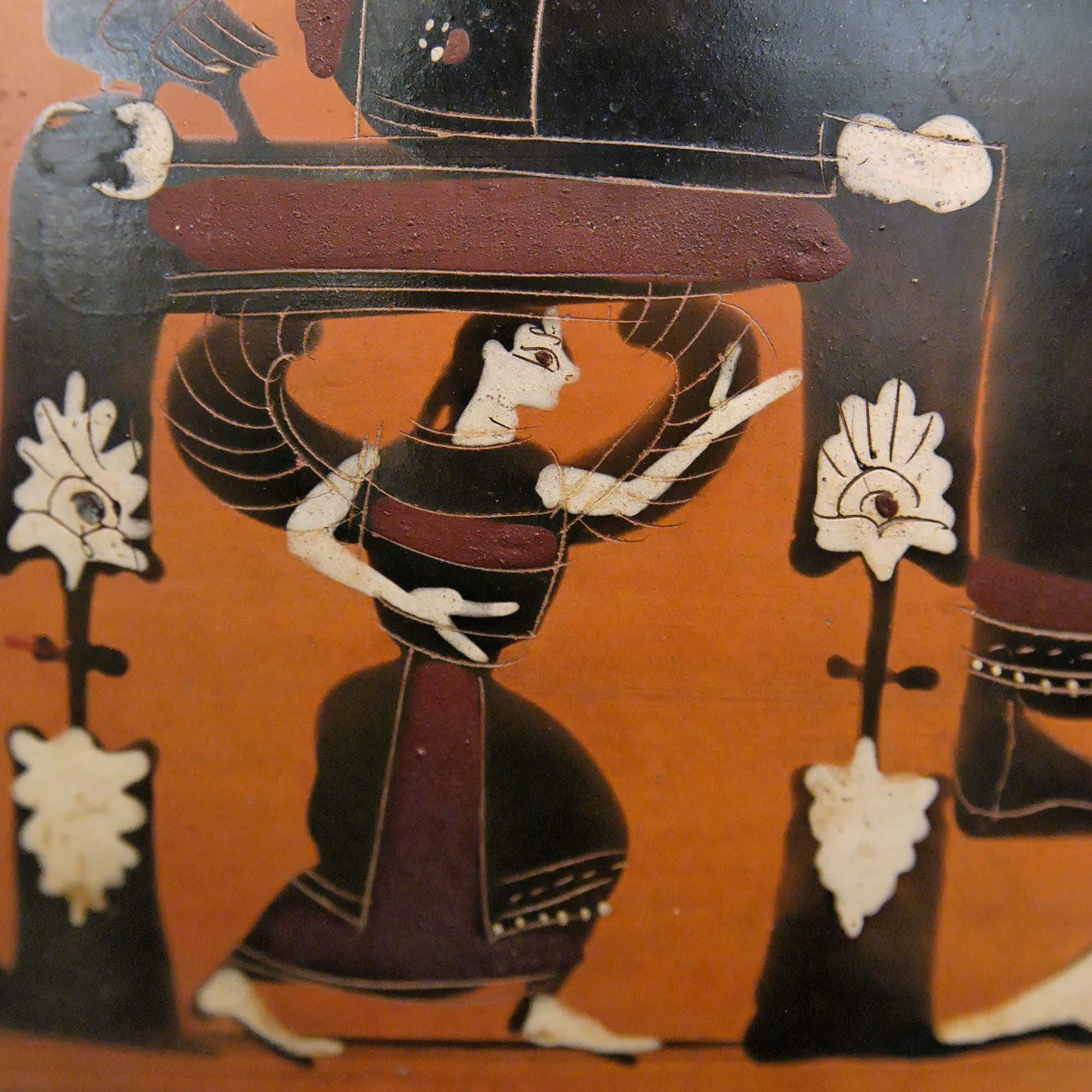
Metis, in ancient Greek religion and mythology, was a Oceanid nymph, one of the daughters of the Titans Oceanus and Tethys. Metis is notable for helping a young Zeus free his siblings from his father Cronus’ belly by supplying him with a special drug. After Zeus became king, he and Metis were married, and she bore him a daughter, Athena, the goddess of wisdom. After hearing a prophecy stating that after Metis gave birth to Athena, she would have a son mightier than Zeus who would overthrow him, Zeus tricked the still pregnant Metis and swallowed her whole.
Read More About Metis / Source
Mnemosyne
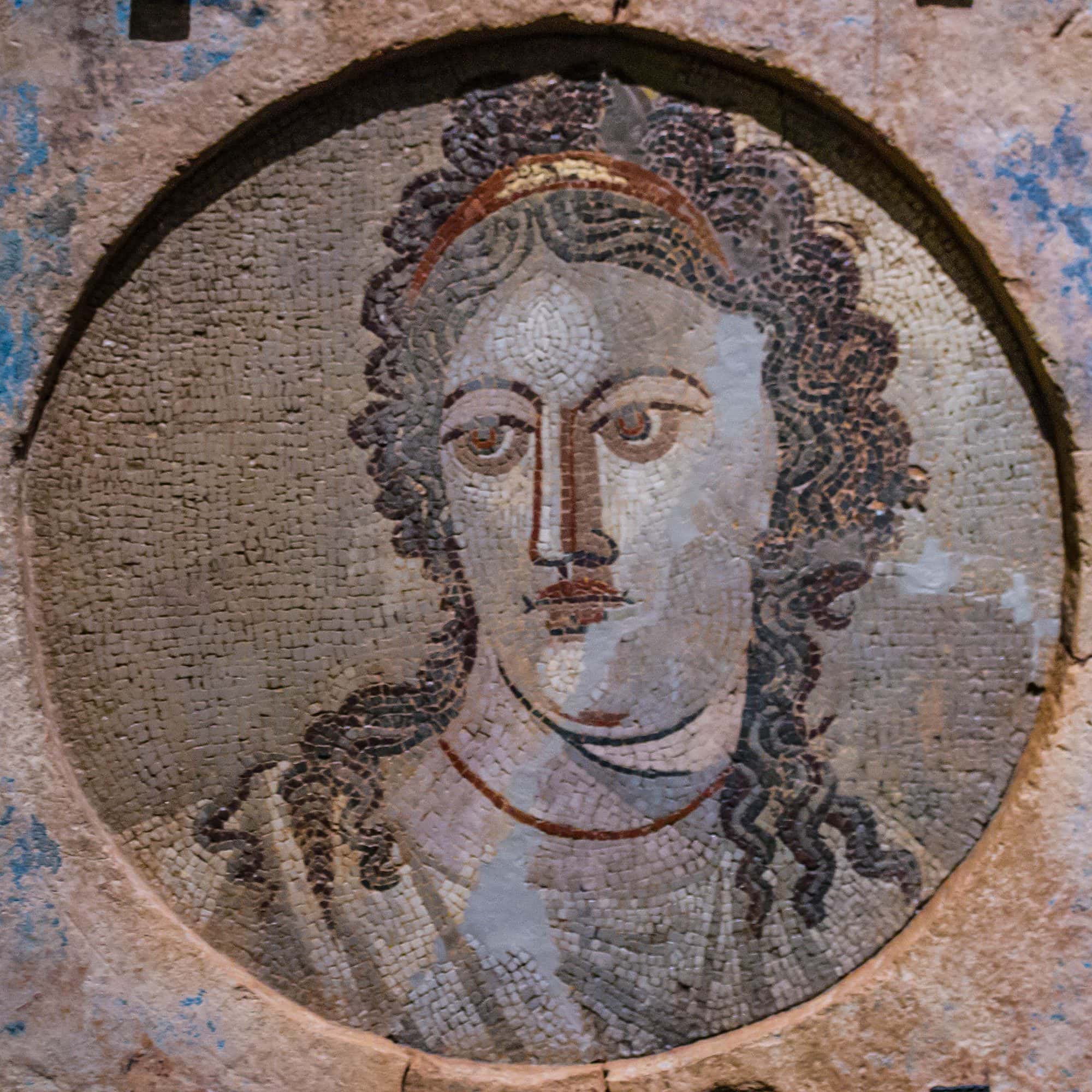
In Greek mythology and ancient Greek religion, Mnemosyne is the goddess of memory and the mother of the nine Muses by her nephew Zeus. In the Greek tradition, Mnemosyne is one of the Titans, the twelve divine children of the earth-goddess Gaia and the sky-god Uranus. The term Mnemosyne is derived from the same source as the word mnemonic, that being the Greek word mnēmē, which means “remembrance, memory”.
Read More About Mnemosyne / Source
Momus
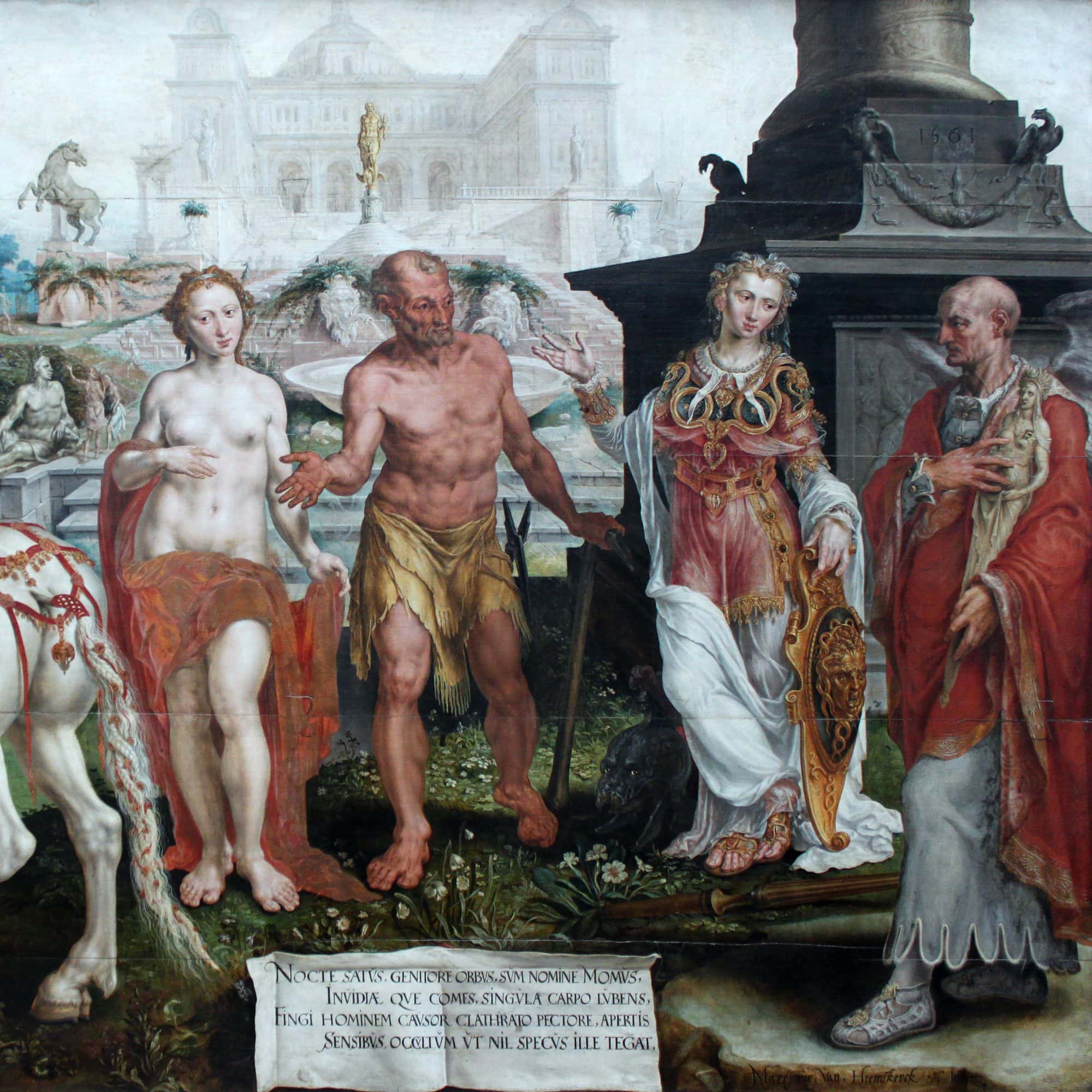
Momus in Greek mythology was the personification of satire and mockery, two stories about whom figure among Aesop’s Fables. During the Renaissance, several literary works used him as a mouthpiece for their criticism of tyranny, while others later made him a critic of contemporary society. Onstage he finally became the figure of harmless fun.
Read More About Momus / Source
Moros

In Greek mythology, Moros /ˈmɔːrɒs/ or Morus /ˈmɔːrəs/ (Ancient Greek: Μόρος means ‘doom, fate’) is the ‘hateful’ personified spirit of impending doom, who drives mortals to their deadly fate. It was also said that Moros gave people the ability to foresee their death. His Roman equivalent was Fatum.
Read More About Moros / Source
Muses
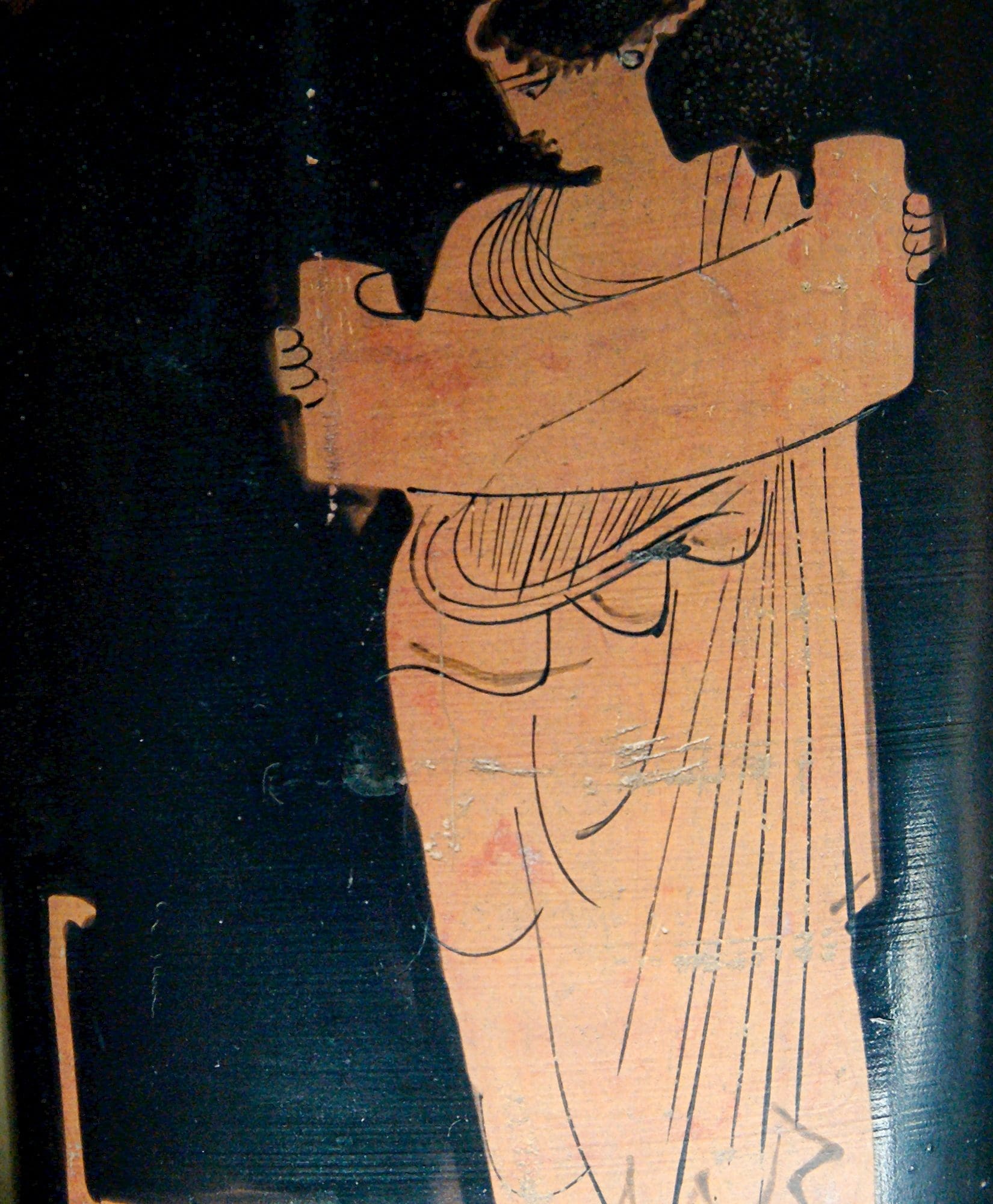
In ancient Greek religion and mythology, the Muses (Ancient Greek: Μοῦσαι, romanized: Moûsai, Greek: Μούσες, romanized: Múses) are the inspirational goddesses of literature, science, and the arts. They were considered the source of the knowledge embodied in the poetry, lyric songs, and myths that were related orally for centuries in ancient Greek culture.
Read More About Muses / Source
Narcissus
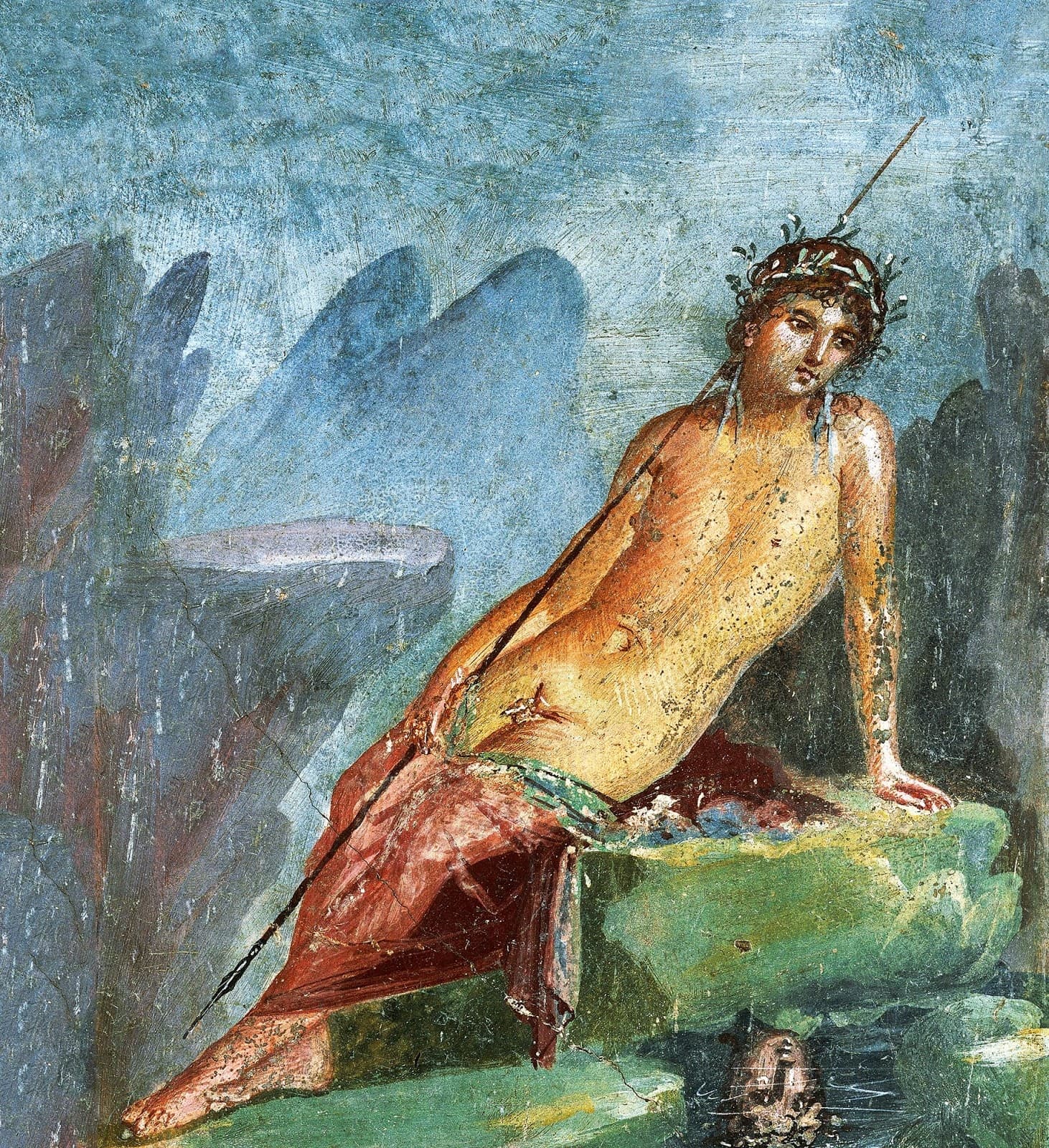
In Greek mythology, Narcissus (/nɑːrˈsɪsəs/; Ancient Greek: Νάρκισσος Nárkissos) was a hunter from Thespiae in Boeotia (alternatively Mimas or modern day Karaburun, Izmir) who was known for his beauty. According to Tzetzes, he rejected all romantic advances, eventually falling in love with his own reflection in a pool of water, staring at it for the remainder of his life. After he died, in his place sprouted a flower bearing his name.
Read More About Narcissus / Source
Nereus
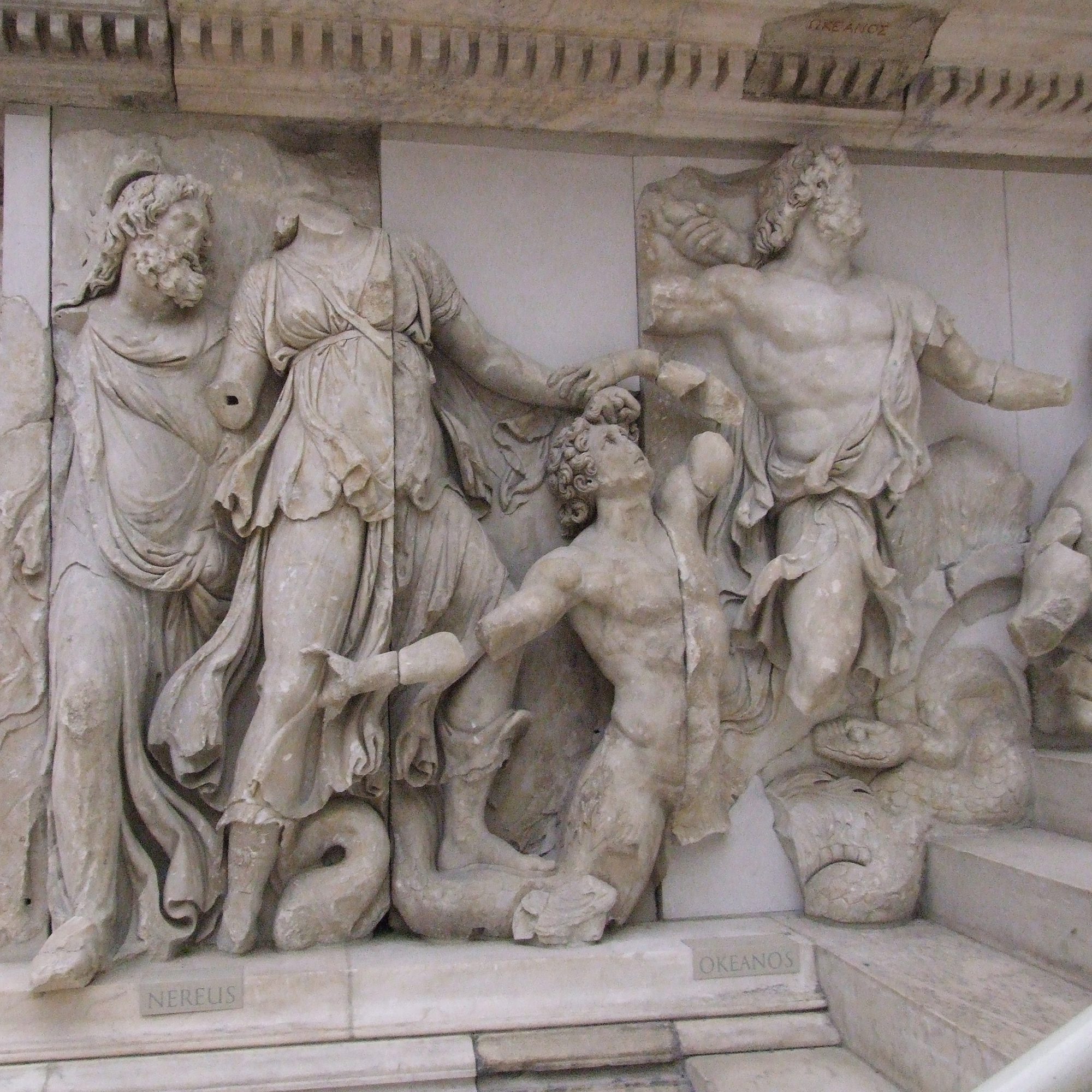
In Greek mythology, Nereus was the eldest son of Pontus (the Sea) and Gaia (the Earth), with Pontus himself being a son of Gaia. Nereus and Doris became the parents of 50 daughters (the Nereids) and a son (Nerites), with whom Nereus lived in the Aegean Sea.
Read More About Nereus / Source
Nike
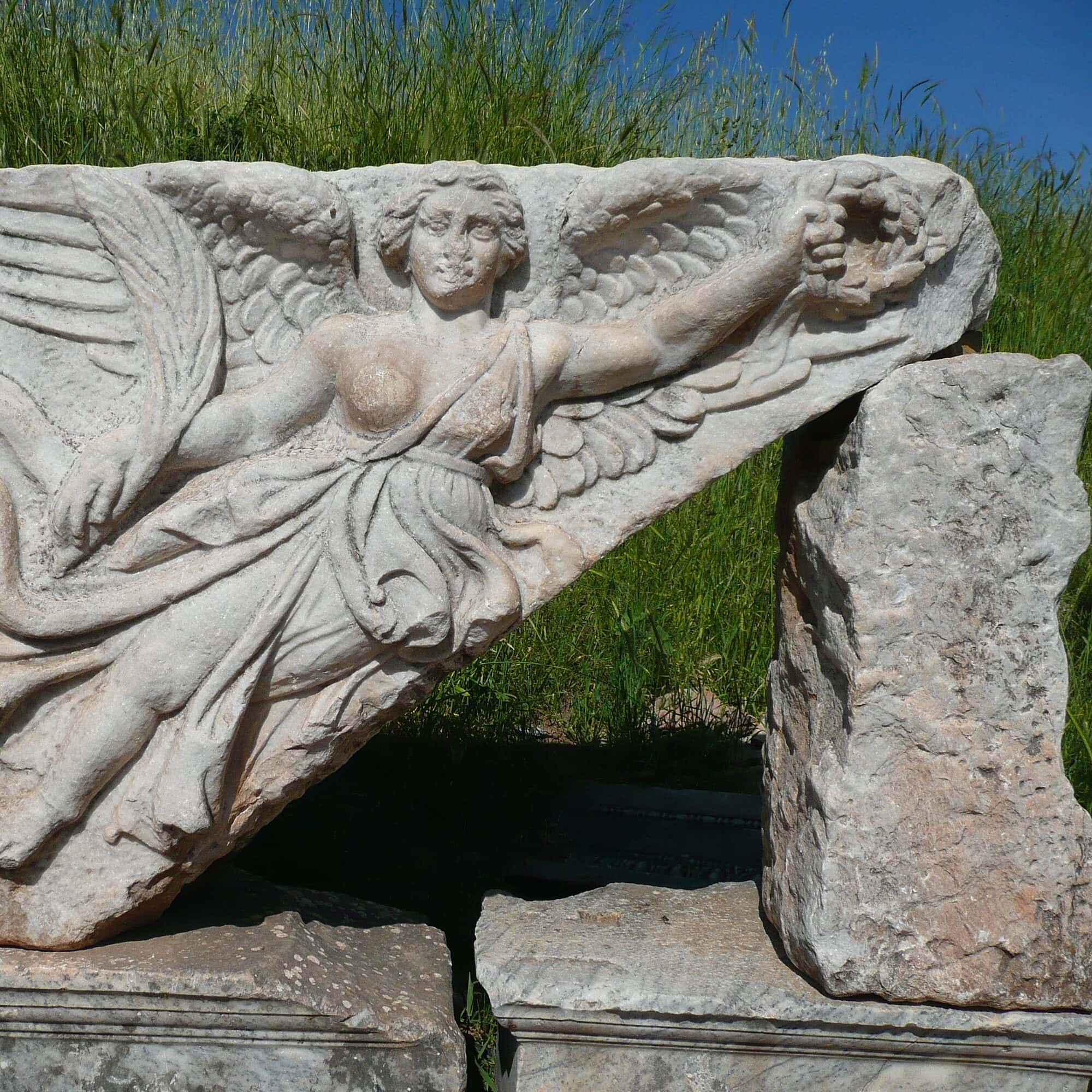
In Greek mythology, Nike ( (listen); Ancient Greek: Νίκη, lit. ’victory’, ancient: [nǐː.kɛː], modern: [ˈni.ci]) was a goddess who personified victory in any field including art, music, war, and athletics. She is often portrayed in Greek art as Winged Victory in the motion of flight; however, she can also appear without wings as “Wingless Victory” when she is being portrayed as an attribute of another deity such as Athena. In Greek literature Nike is described as both an attribute and attendant to the gods Zeus and Athena. Nike gained this honored role beside Zeus during the Titanomachy where she was one of the first gods to offer her allegiance to Zeus. At Athens, Nike became a servant to Athena as well as an attribute of her due to the prominent status Athena held in her patron city. The fusion of the two goddesses at Athens has contributed to the ambiguity surrounding Nike’s origins. It is unclear whether she originated from a character trait of the Greek goddess Athena or has always existed as an independent deity. Her origin story in Greek mythology is also slightly ambiguous, with the Theogony claiming Nike to be the daughter of Styx and Pallas while the Homeric Hymns describe Ares as being Nike’s father. Her Roman equivalent was Victoria.
Notus
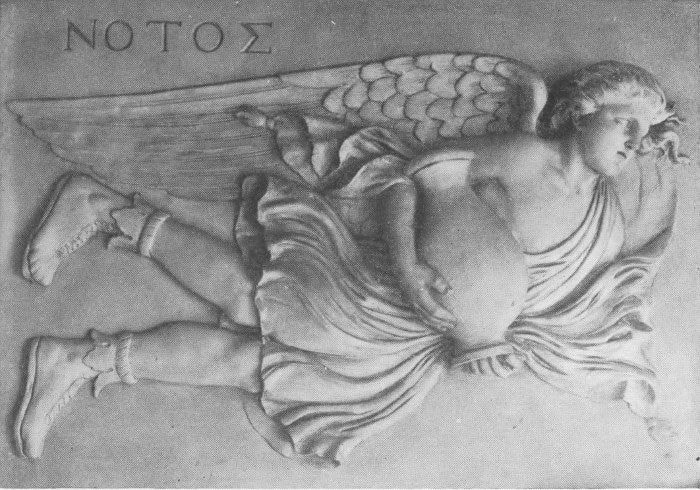
In ancient Greek, people believed in mythical beings and each aspect of their lives was associated with them. One of the Greek gods was Notus. Notus was known as the god of the south wind. This wind god was also linked to the southwest winds. He was one of the four wind gods who were collectively referred to as ANEMOI.
Read More About Notus / Source
Oceanus
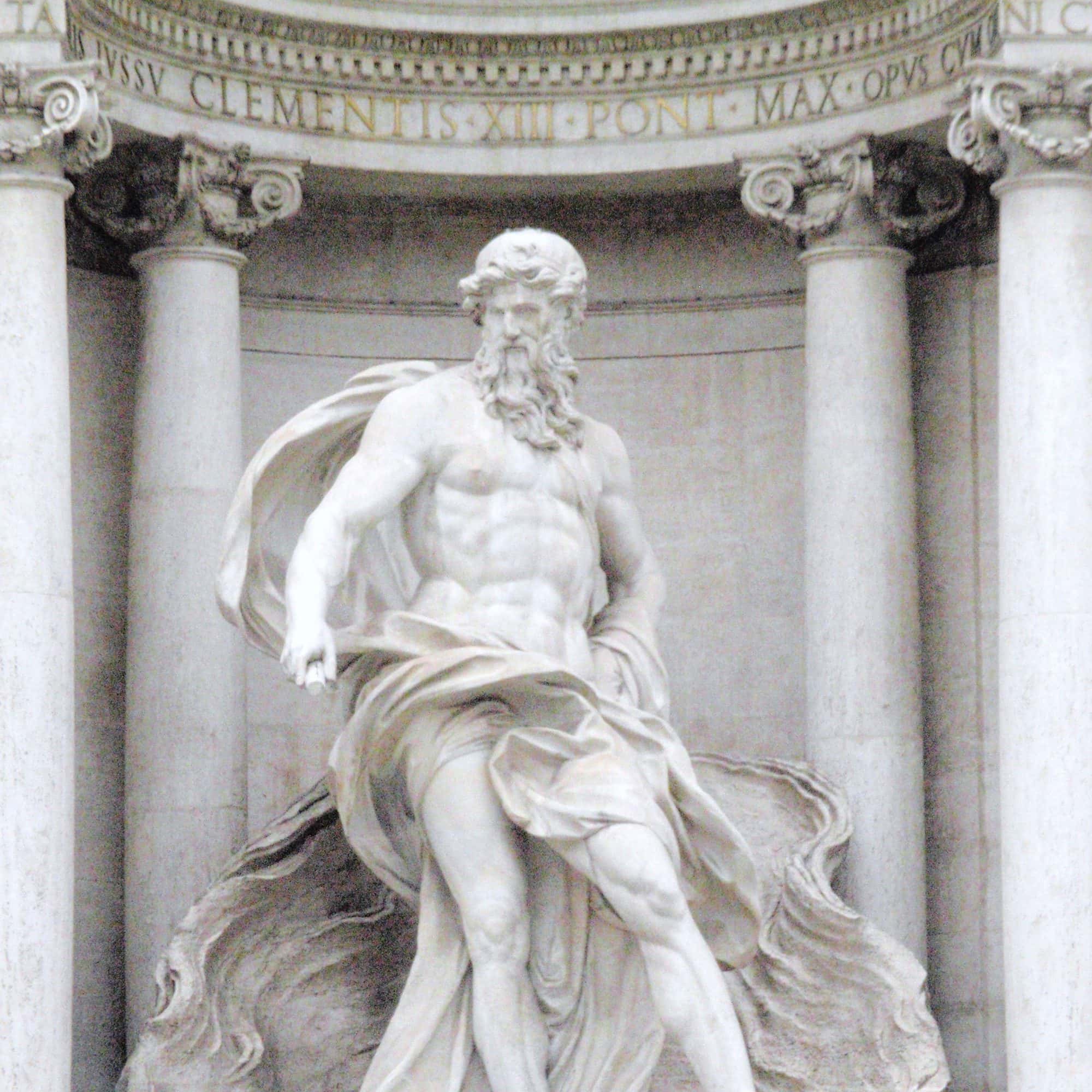
In Greek mythology, Oceanus was a Titan son of Uranus and Gaia, the husband of his sister the Titan Tethys, and the father of the river gods and the Oceanids, as well as being the great river which encircled the entire world.
Read More About Oceanus / Source
Odysseus
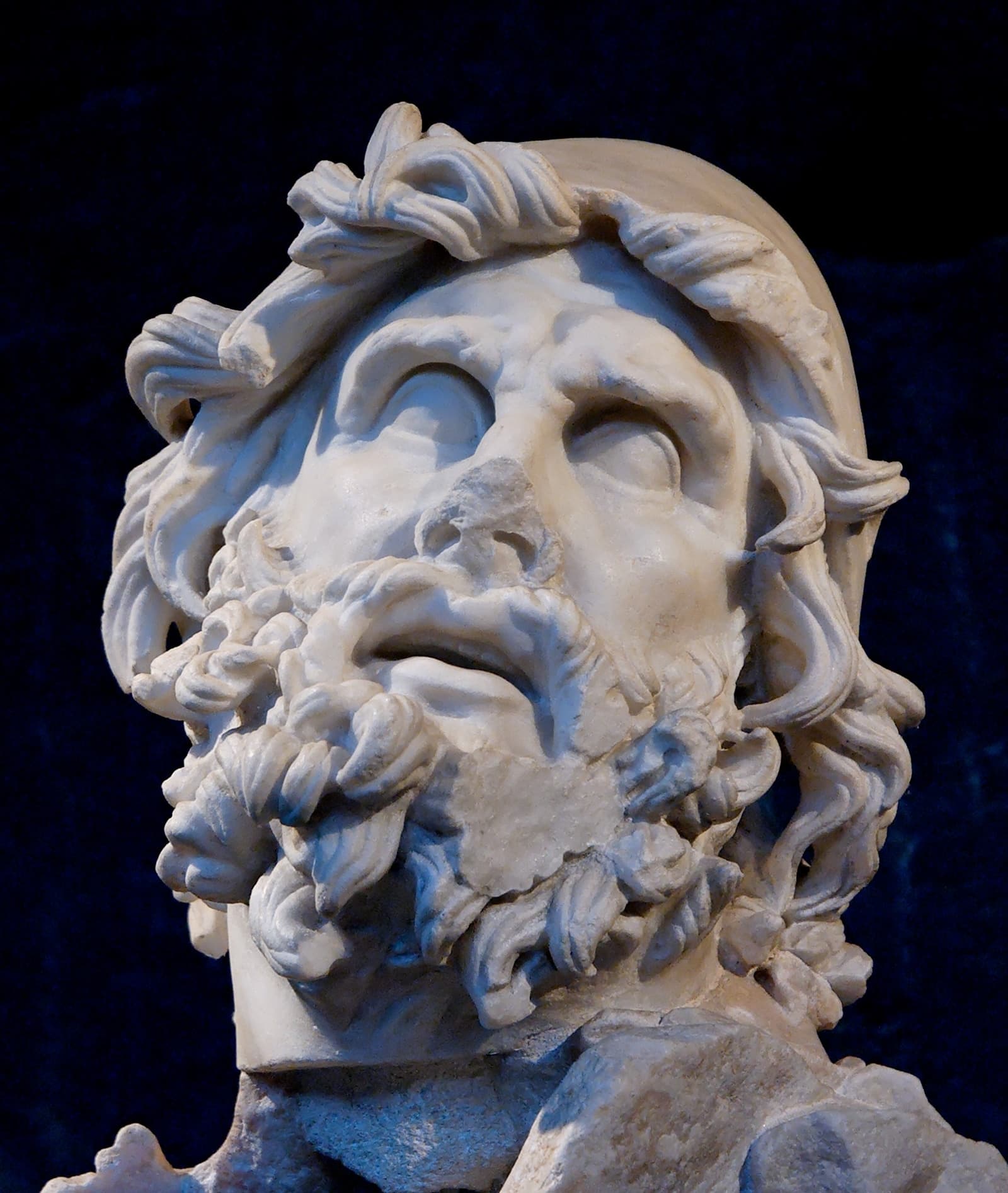
Odysseus also known by the Latin variant Ulysses is a legendary Greek king of Ithaca and the hero of Homer’s epic poem the Odyssey. Odysseus also plays a key role in Homer’s Iliad and other works in that same epic cycle.
Read More About Odysseus / Source
Oedipus
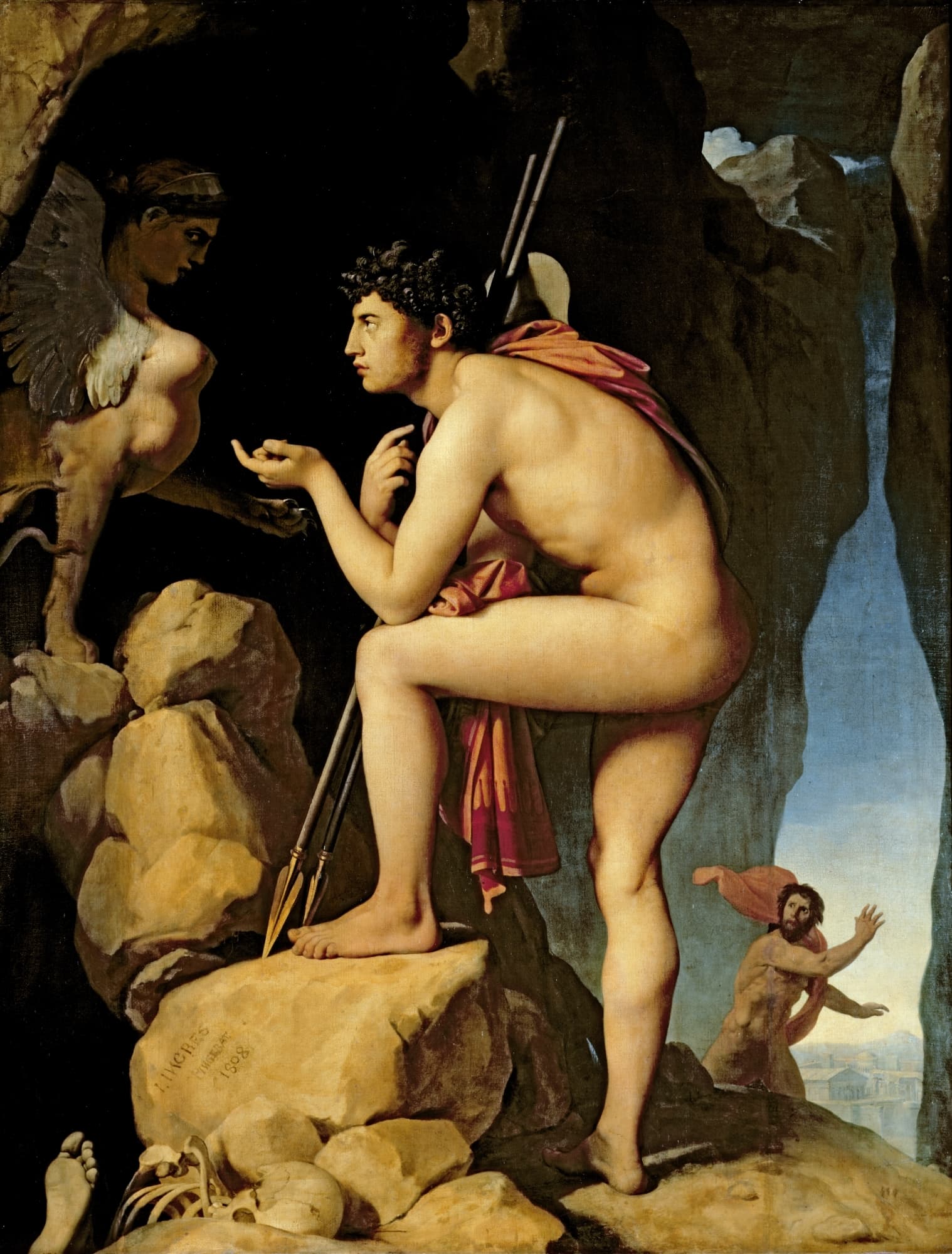
Oedipus (UK: , also US: ; Greek: Οἰδίπους “swollen foot”) was a mythical Greek king of Thebes. A tragic hero in Greek mythology, Oedipus accidentally fulfilled a prophecy that he would end up killing his father and marrying his mother, thereby bringing disaster to his city and family.
The story of Oedipus is the subject of Sophocles’ tragedy Oedipus Rex, which is followed in the narrative sequence by Oedipus at Colonus and then Antigone. Together, these plays make up Sophocles’ three Theban plays. Oedipus represents two enduring themes of Greek myth and drama: the flawed nature of humanity and an individual’s role in the course of destiny in a harsh universe.
In the best-known version of the myth, Oedipus was born to King Laius and Queen Jocasta of Thebes. Laius wished to thwart the prophecy, so he sent a shepherd-servant to leave Oedipus to die on a mountainside. However, the shepherd took pity on the baby and passed him to another shepherd who gave Oedipus to King Polybus and Queen Merope to raise as their own. Oedipus learned from the oracle at Delphi of the prophecy that he would end up killing his father and marrying his mother but, unaware of his true parentage, believed he was fated to murder Polybus and marry Merope, so left for Thebes. On his way, he met an older man and killed him in a quarrel. Continuing on to Thebes, he found that the king of the city (Laius) had recently been killed and that the city was at the mercy of the Sphinx. Oedipus answered the monster’s riddle correctly, defeating it and winning the throne of the dead king – and the hand in marriage of the king’s widow, who was also (unbeknownst to him) his mother Jocasta.
Years later, to end a plague on Thebes, Oedipus searched to find who had killed Laius and discovered that he himself was responsible. Jocasta, upon realizing that she had married her own son, hanged herself. Oedipus then seized two pins from her dress and blinded himself with them.
The legend of Oedipus has been retold in many versions and was used by Sigmund Freud to name and give mythic precedent to the Oedipus complex.
Read More About Oedipus / Source
Ophion
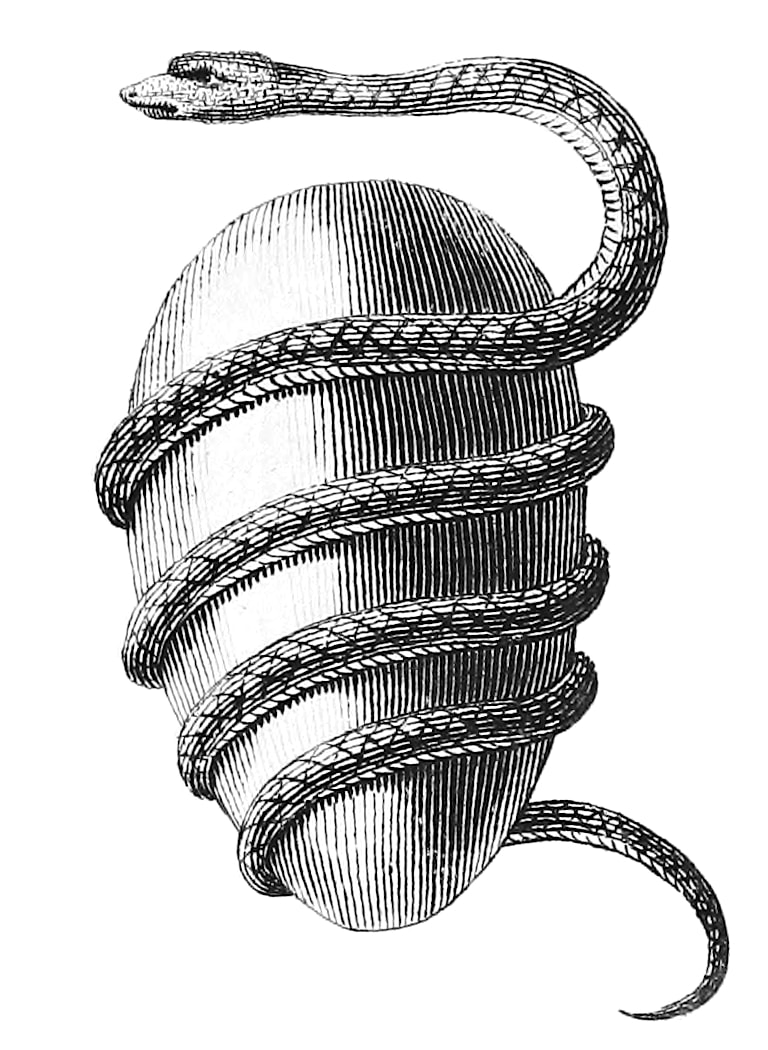
In some versions of Greek mythology, Ophion (/oʊˈfaɪən/; Greek: Ὀφίων “serpent”; gen.: Ὀφίωνος), also called Ophioneus (Ὀφιονεύς) ruled the world with Eurynome before the two of them were cast down by Cronus and Rhea.
Read More About Ophion / Source
Orpheus
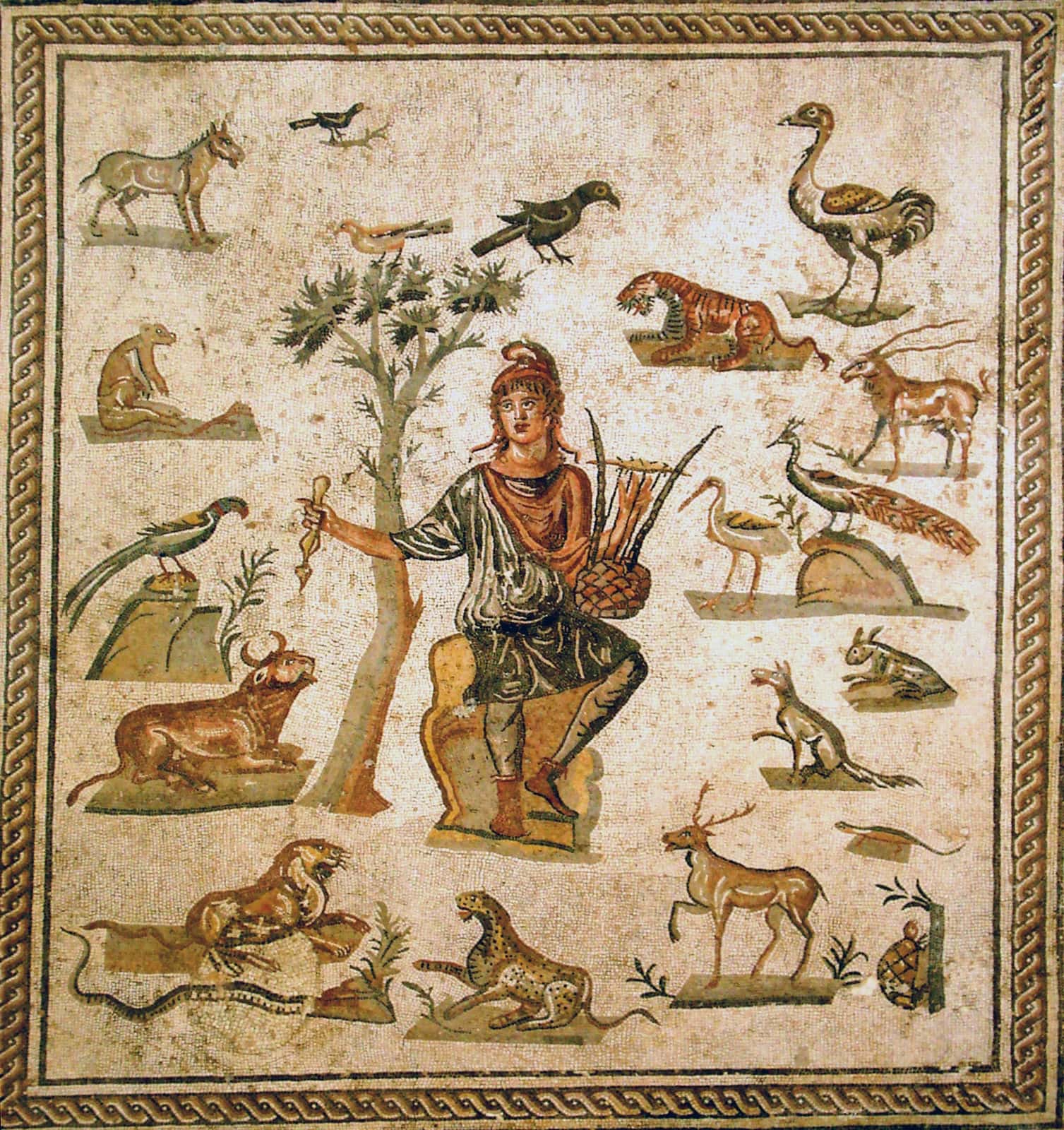
Orpheus is a Thracian bard, legendary musician and prophet in ancient Greek religion. He was also a renowned poet and, according to the legend, travelled with Jason and the Argonauts in search of the Golden Fleece, and even descended into the Underworld of Hades, to recover his lost wife Eurydice.
Read More About Orpheus / Source
Paean
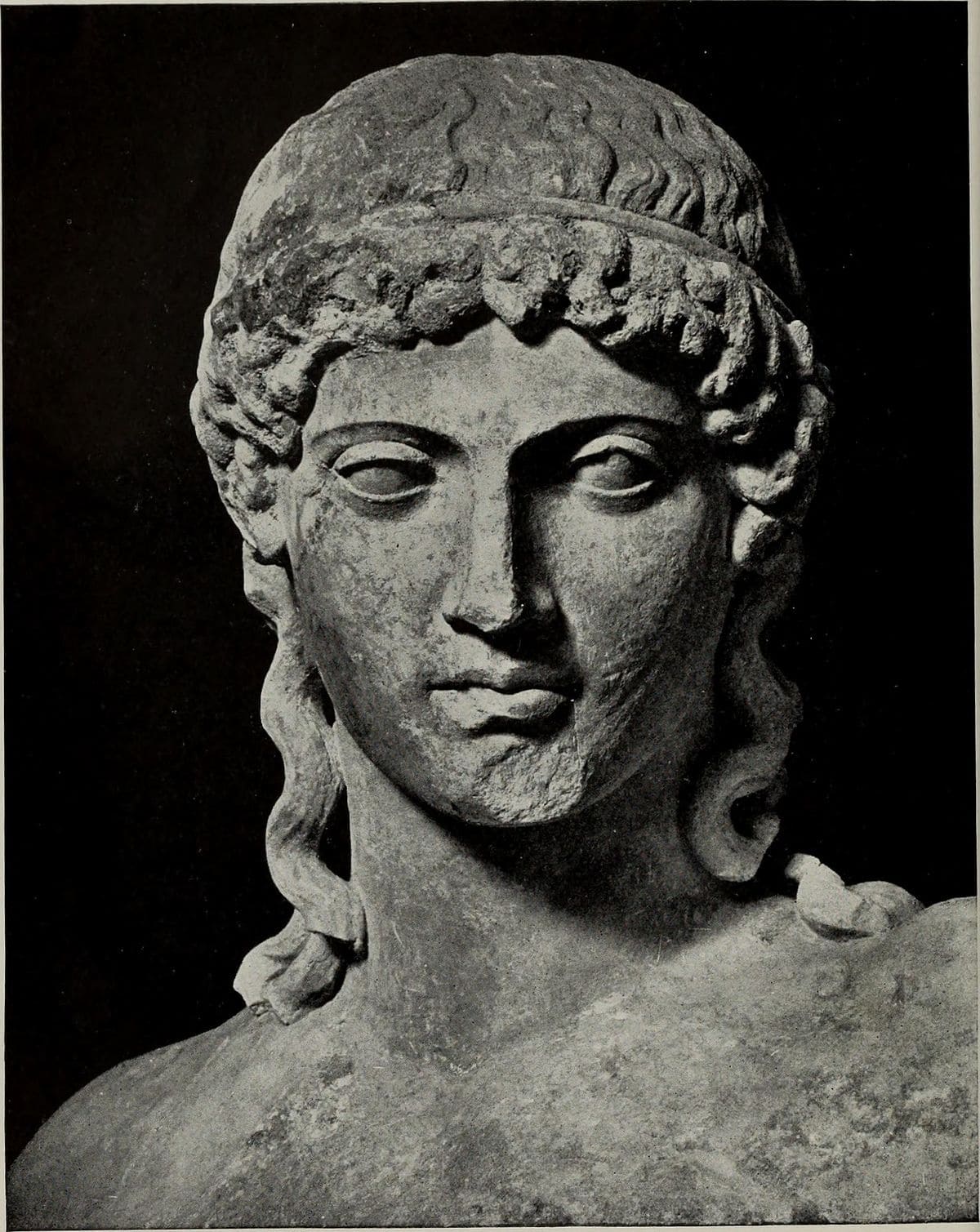
In Greek mythology, Paean was the physician of the OLYMPIAN GODS. The name came from the Greek root meaning “the healing”. In Homer’s Illiad, Paean was brought to treat Ares, the god of war, when he was wounded by Diomedes, the hero of the epic. In Homer’s other epic, The Odyssey, Paean also treated HADES after he was wounded by HERACLES‘ arrow. Later, Paean’s status as a god was no longer mentioned, and the word “Paean” became a common name for the god Apollo and then for ASCLEPIUS, the god of healing. Some scholars trace the name to the Mycenaean Greek word for Apollo.
Read More About Paean / Source
Pallas
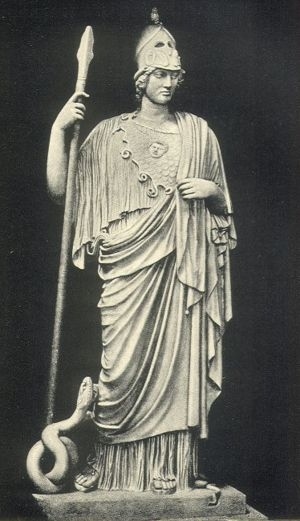
Pallas is one of the ancient Greek Titans and he is the son of CRIUS and EURYBIA. He was the Greek god of warcraft. He existed before Zeus as well as the Olympians. Pallas was the brother of the other second generation Titans, ASTRAEUS, and PERSES. He was married to STYX (the goddess of hatred) and they are both said to have sired NIKE, ZELOS, BIA ,and KRATOS. The names of the third Titan generation meant victory, zeal, force, and power respectively. Styx was an OCEANIDE whose parents were Oceanus and TETHYS. A river in TARTARUS was named after her (River Styx). Some sources claim that Pallas and Styx were also the parents to Scylla, Fontes (“The Fountains”) as well as Lacus (“The Lakes”).
Read More About Pallas / Source
Pan
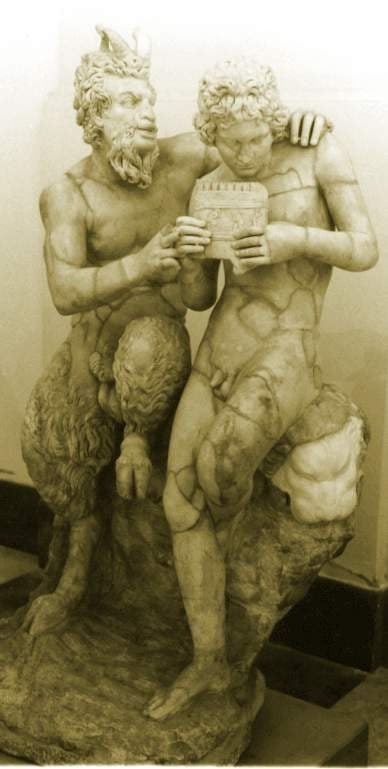
In ancient Greek religion and mythology, Pan is the god of the wild, shepherds and flocks, rustic music and impromptus, and companion of the nymphs. He has the hindquarters, legs, and horns of a goat, in the same manner as a faun or satyr. With his homeland in rustic Arcadia, he is also recognized as the god of fields, groves, wooded glens, and often affiliated with sex; because of this, Pan is connected to fertility and the season of spring.
Pegasus
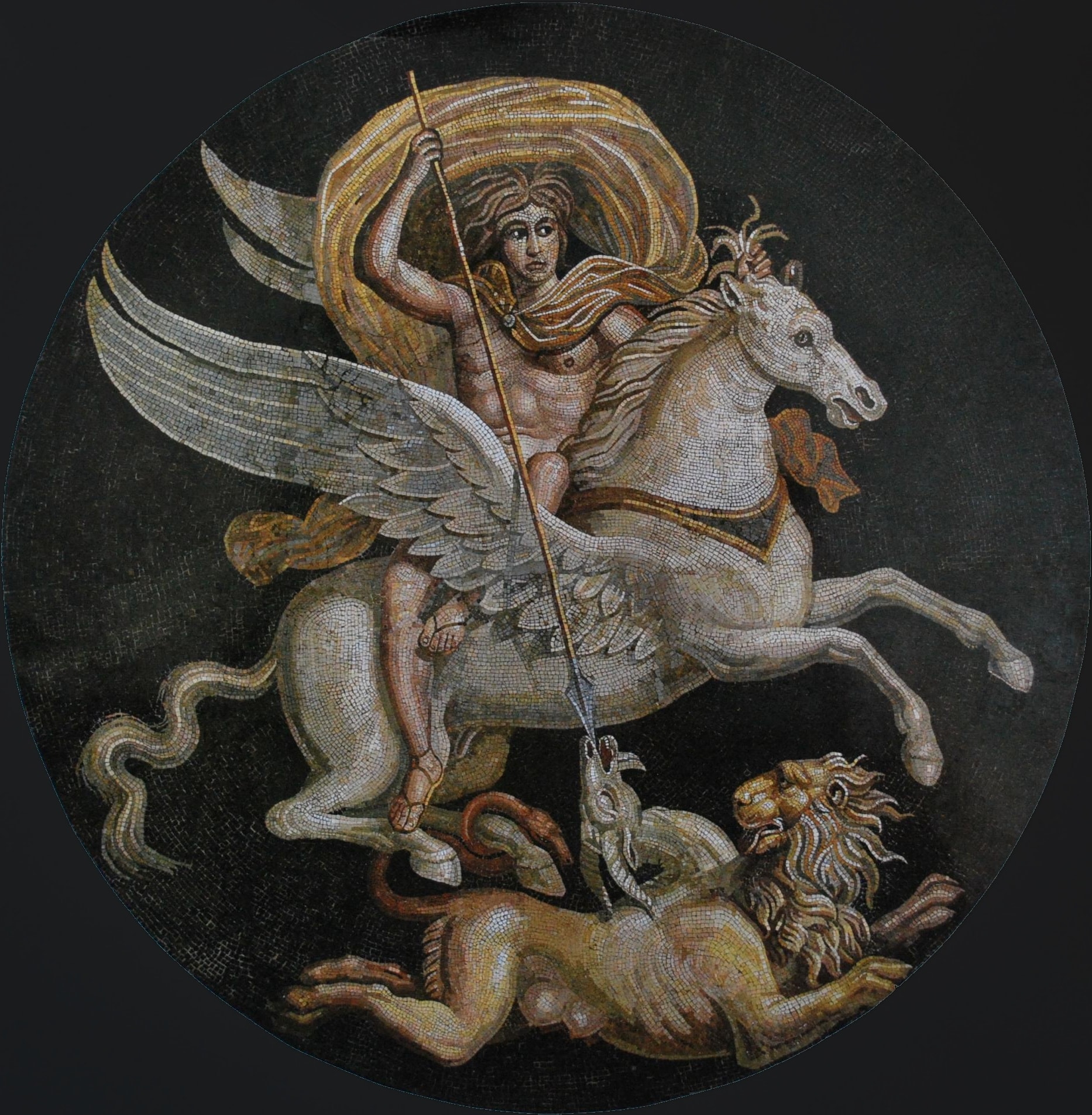
Pegasus is one of the best known creatures in Greek mythology. He is a winged divine stallion usually depicted as pure white in color. He was sired by Poseidon, in his role as horse-god, and foaled by the Gorgon Medusa. He was the brother of Chrysaor, born at a single birthing when his mother was decapitated by Perseus. Greco-Roman poets wrote about his ascent to heaven after his birth and his obeisance to Zeus, king of the gods, who instructed him to bring lightning and thunder from Olympus.
Read More About Pegasus / Source
Peitho
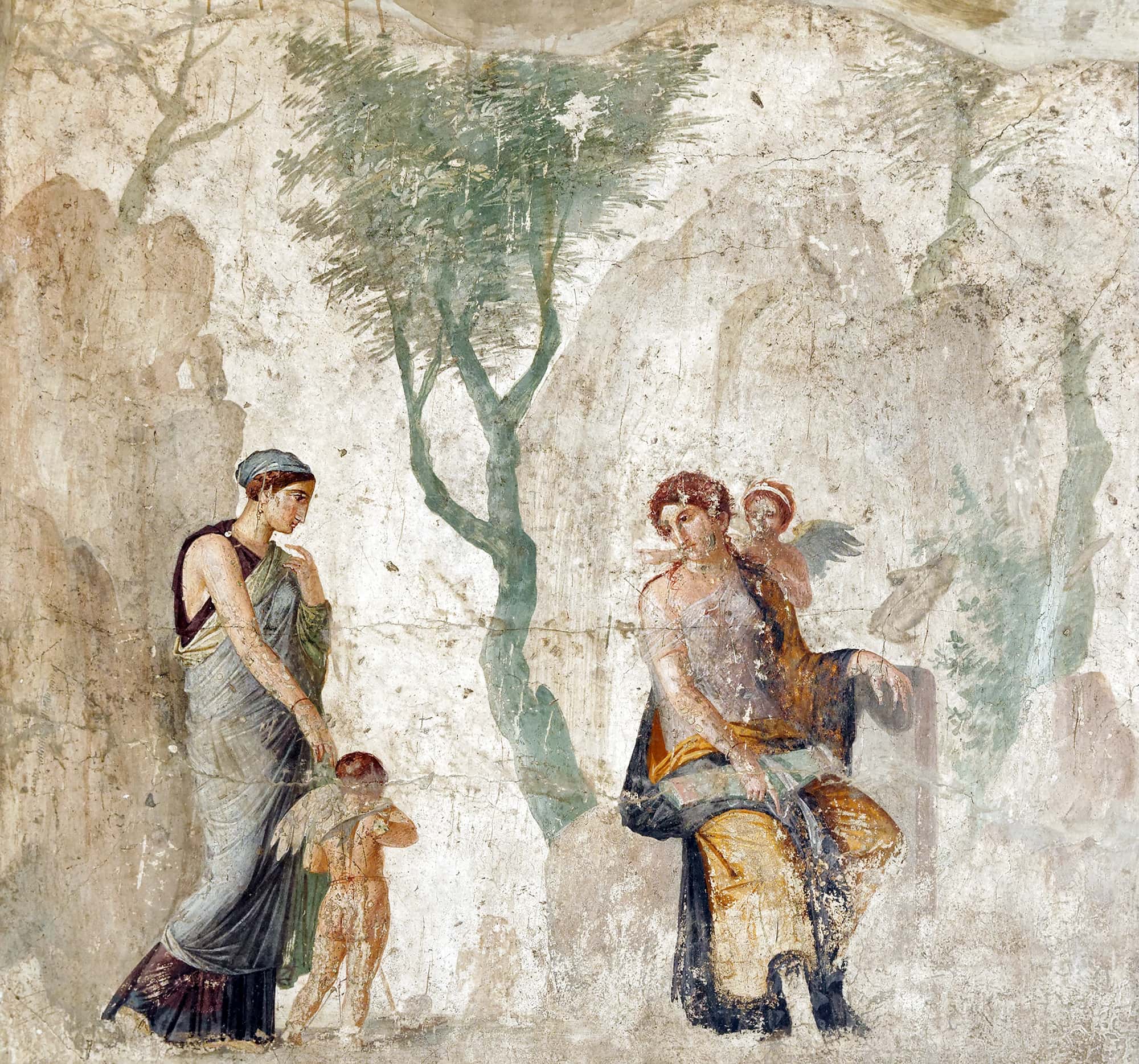
In Greek mythology, Peitho is the goddess who personifies persuasion and seduction. Her Roman equivalent is Suada or Suadela. She is the goddess of charming speech. She is typically presented as an important companion of Aphrodite. Her opposite is Bia, the personification of force.As a personification, she was sometimes imagined as a goddess and sometimes an abstract power with her name used both as a common and proper noun. There is evidence that Peitho was referred to as a goddess before she was referred to as an abstract concept, which is rare for a personification. Peitho represents both sexual and political persuasion. She is associated with the art of rhetoric.
Read More About Peitho / Source
Persephone
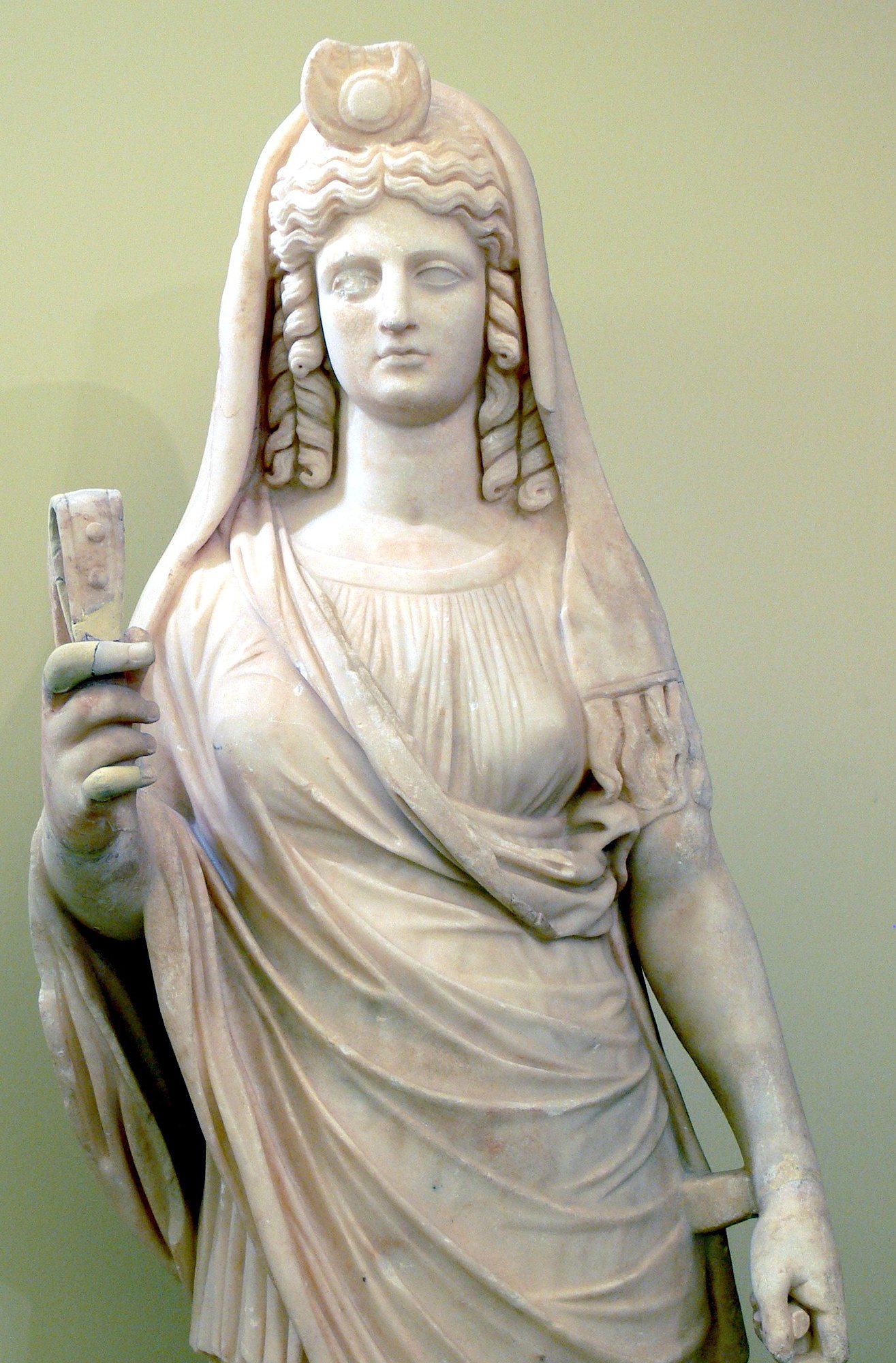
In ancient Greek mythology and religion, Persephone (/pərˈsɛfəniː/ pər-SEF-ə-nee; Greek: Περσεφόνη, romanized: Persephónē), also called Kore or Cora (/ˈkɔːriː/ KOR-ee; Greek: Κόρη, romanized: Kórē, lit. ’the maiden’), is the daughter of Zeus and Demeter. She became the queen of the underworld after her abduction by her uncle Hades, the king of the underworld.
Read More About Persephone / Source
Perses
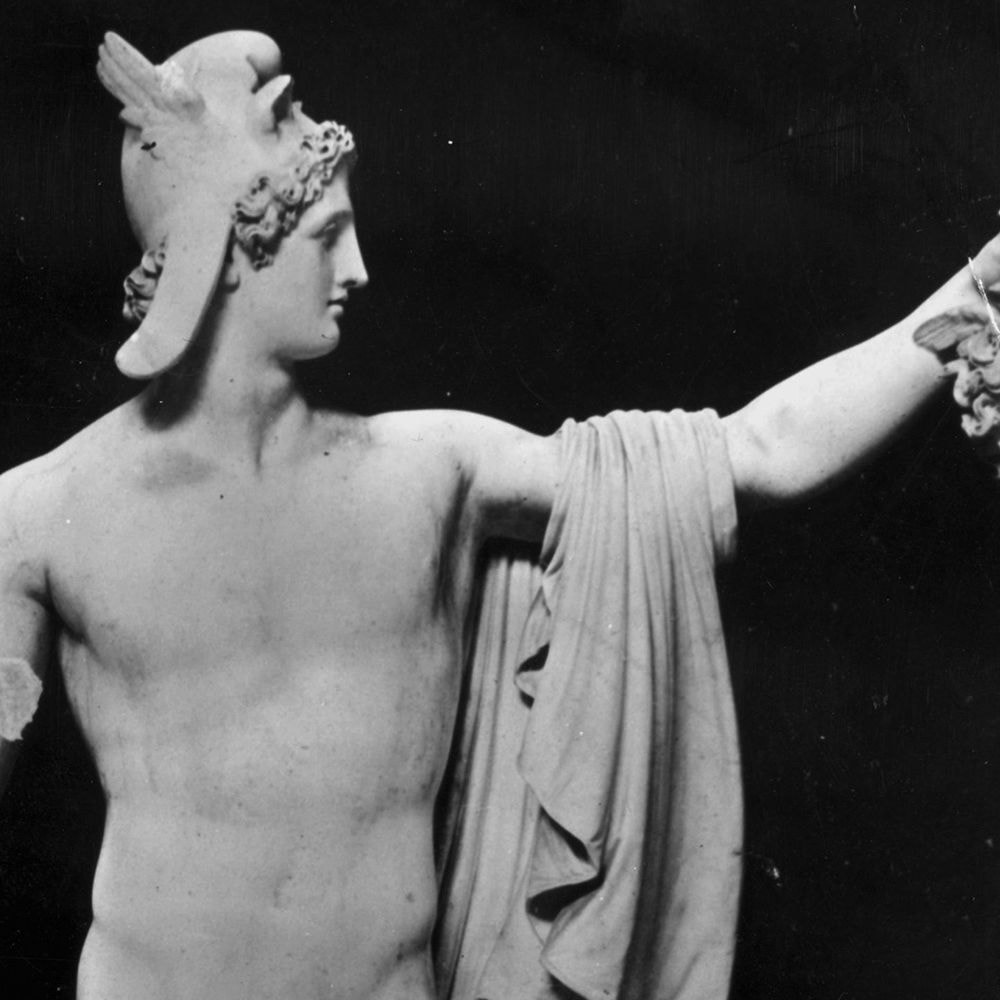
In Greek mythology, Perses is the son of the Titan Crius and Eurybia, and thus brother to Astraeus and Pallas. Ancient tradition records very little of Perses other than his marriage and offspring, his role largely being purely genealogical, existing merely to provide a parentage for other, more important figures.
Read More About Perses / Source
Perseus
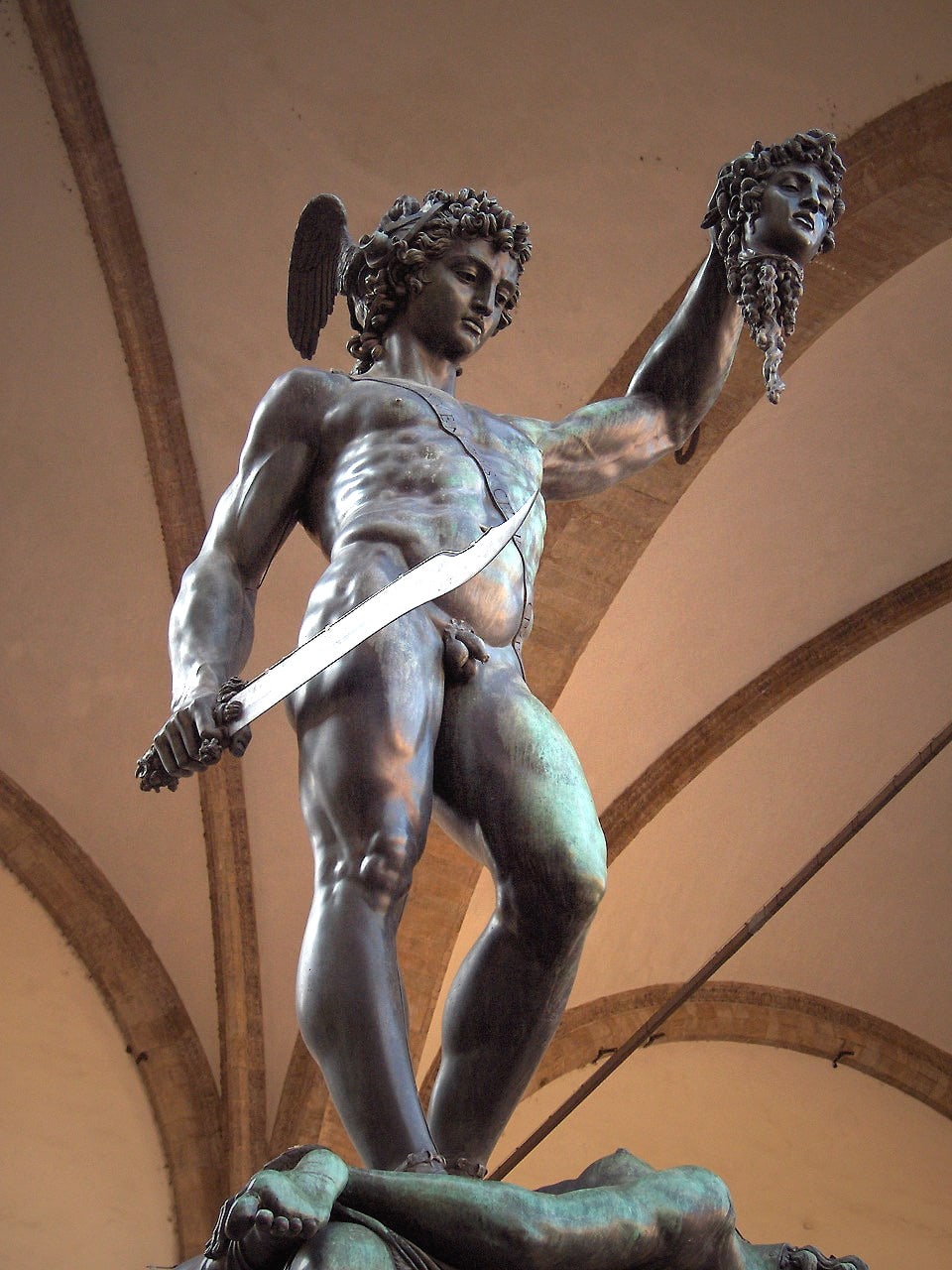
In Greek mythology, Perseus is the legendary founder of Mycenae and of the Perseid dynasty. He was, alongside Cadmus and Bellerophon, the greatest Greek hero and slayer of monsters before the days of Heracles. He beheaded the Gorgon Medusa for Polydectes and saved Andromeda from the sea monster Cetus. He was the son of Zeus and the mortal Danaë, as well as the half-brother and great-grandfather of Heracles (as they were both children of Zeus, and Heracles’ mother was descended from Perseus).
Read More About Perseus / Source
Pheme
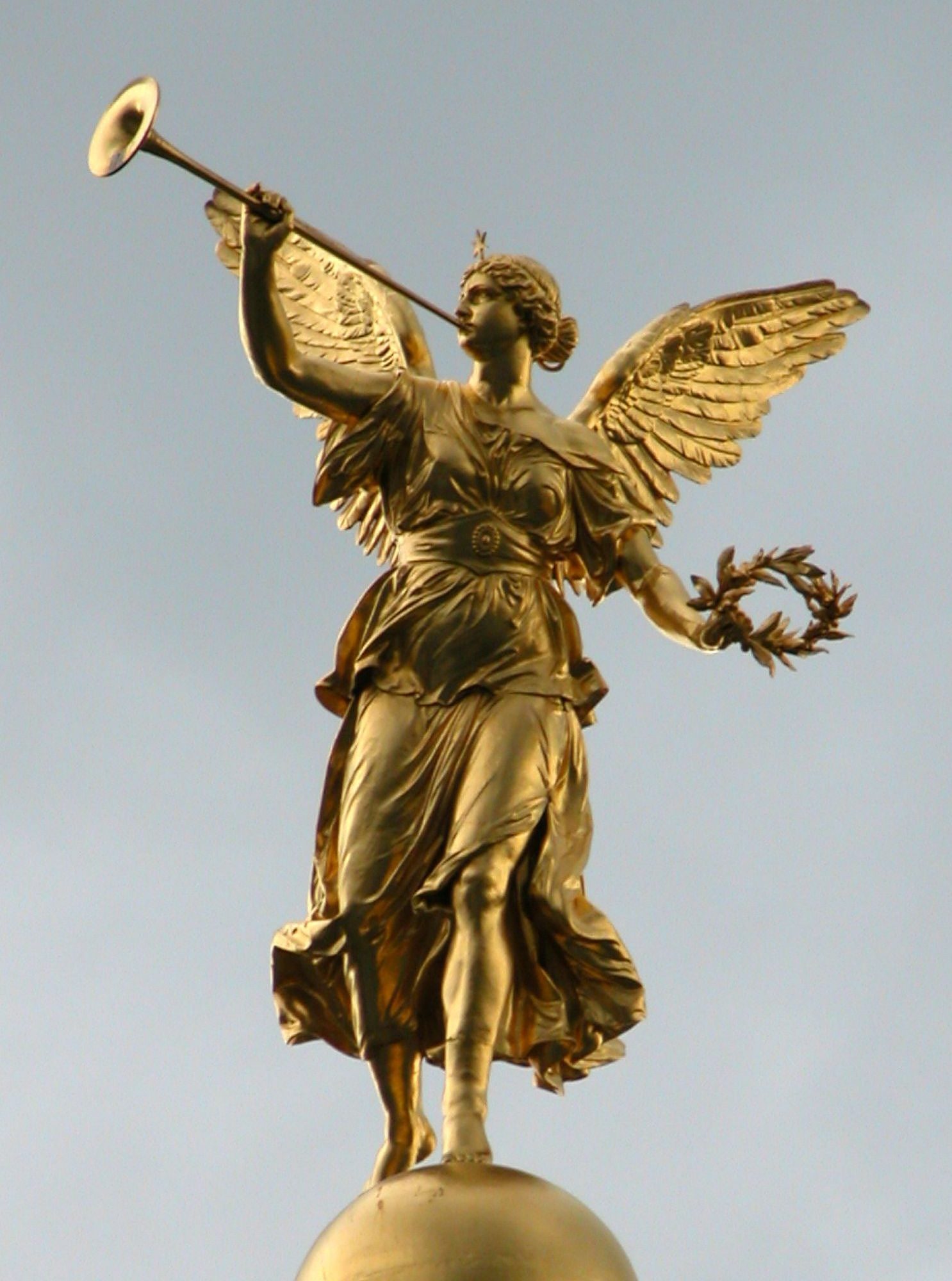
In Greek mythology, Pheme also known as Ossa in Homeric sources, was the personification of fame and renown, her favour being notability, her wrath being scandalous rumours. She was a daughter either of Gaia or of Elpis (Hope), was described as “she who initiates and furthers communication” and had an altar at Athens. A tremendous gossip, Pheme was said to have pried into the affairs of mortals and gods, then repeated what she learned, starting off at first with just a dull whisper, but repeating it louder each time, until everyone knew. In art, she was usually depicted with wings and a trumpet.
Read More About Pheme / Source
Phobos
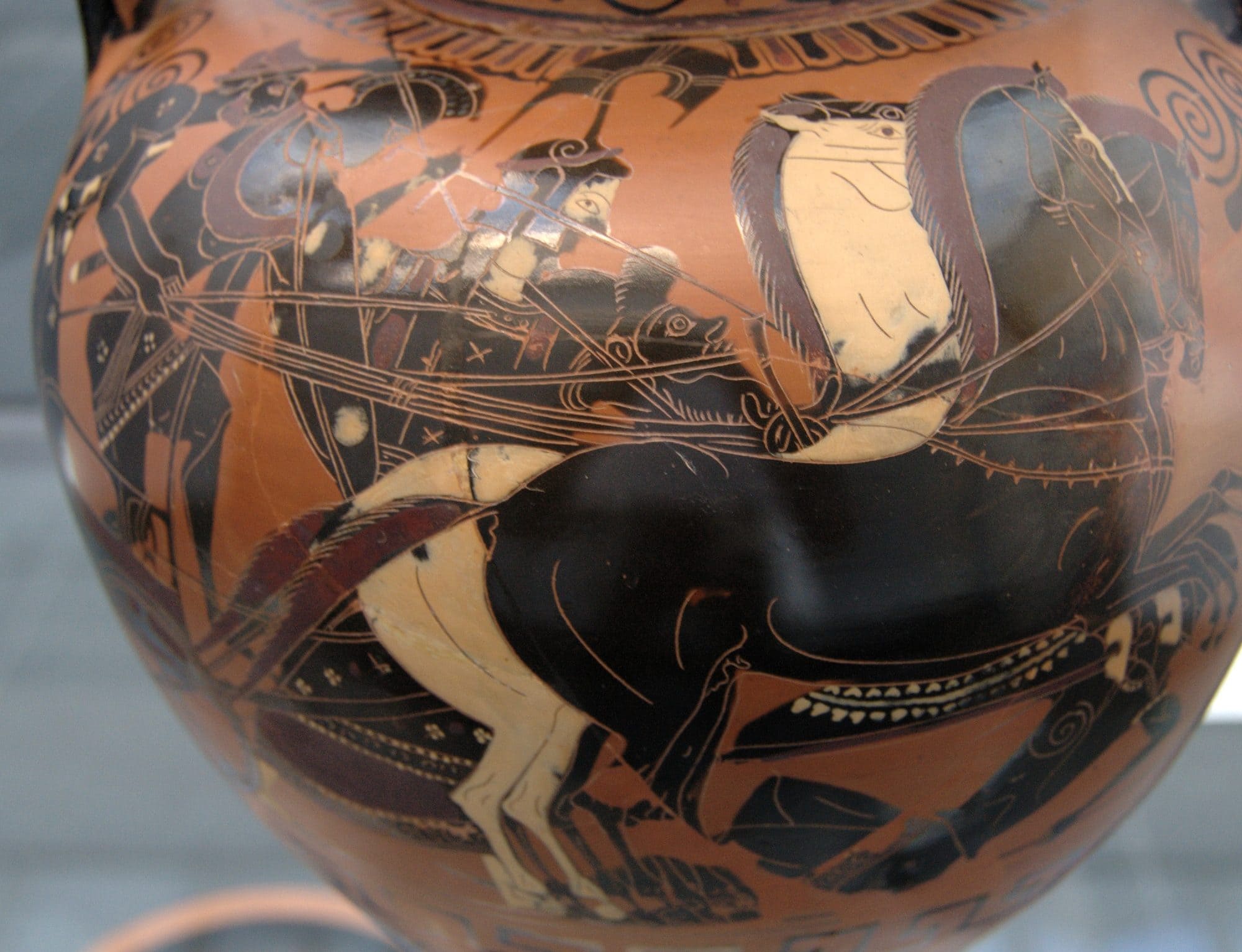
Phobos is the god and personification of fear and panic in Greek mythology. Phobos was the son of Ares and Aphrodite, and the brother of Deimos. He does not have a major role in mythology outside of being his father’s attendant.
Read More About Phobos / Source
Phoebe
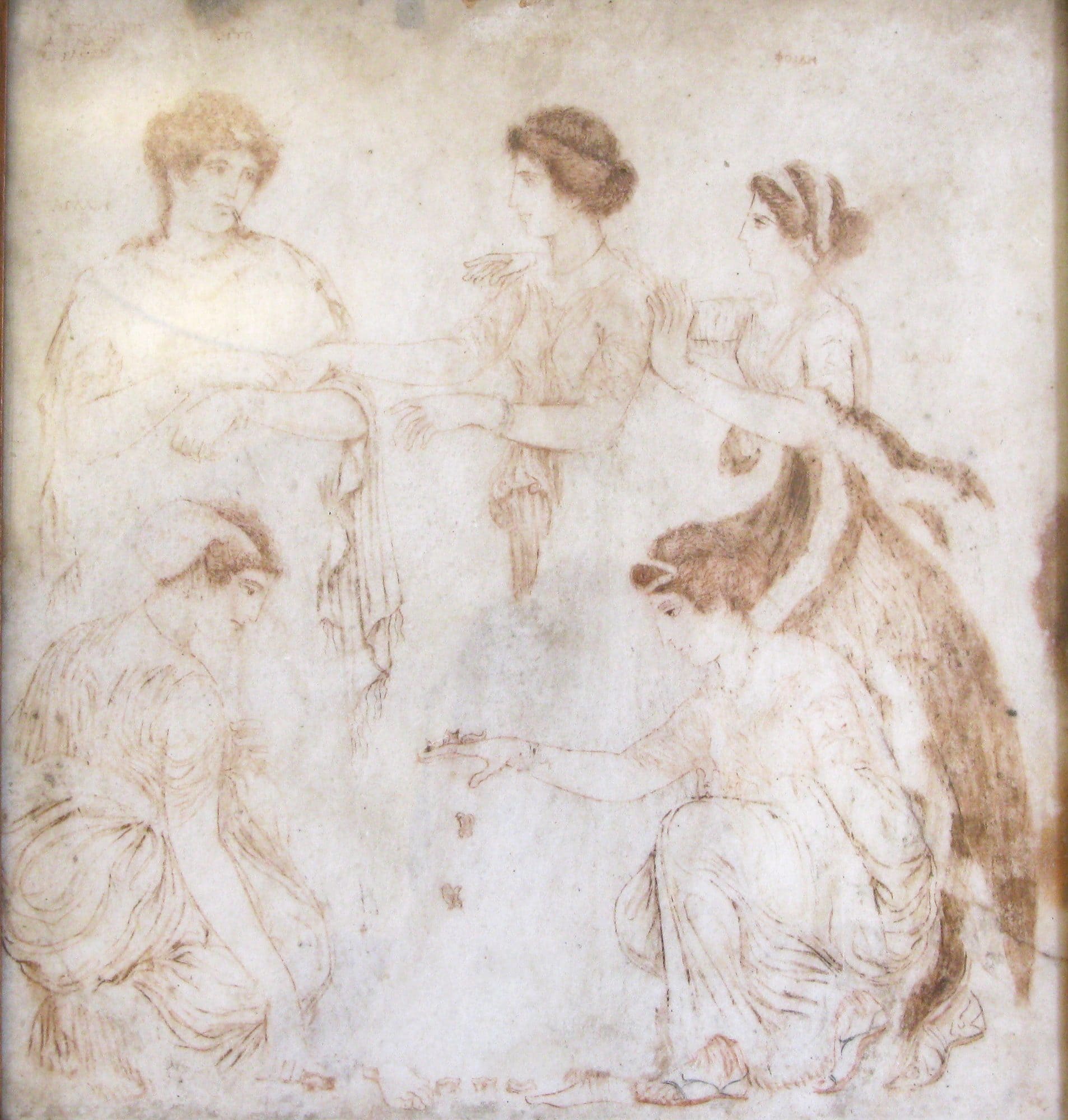
In ancient Greek religion and mythology, Phoebe was one of the first generation of Titans, who were one set of sons and daughters of Uranus and Gaia. She was the grandmother of the sun god Apollo, the moon goddess Artemis, and the witchcraft goddess Hecate. According to myth, she was the original owner of the Oracle of Delphi before gifting it to her grandson Apollo. Her name, meaning “bright”, was also given to a number of lunar goddesses like Artemis and later the Roman goddesses Luna and Diana, but Phoebe herself was not actively treated as a moon goddess on her own right in ancient mythology.
Read More About Phoebe / Source
Phosphorus
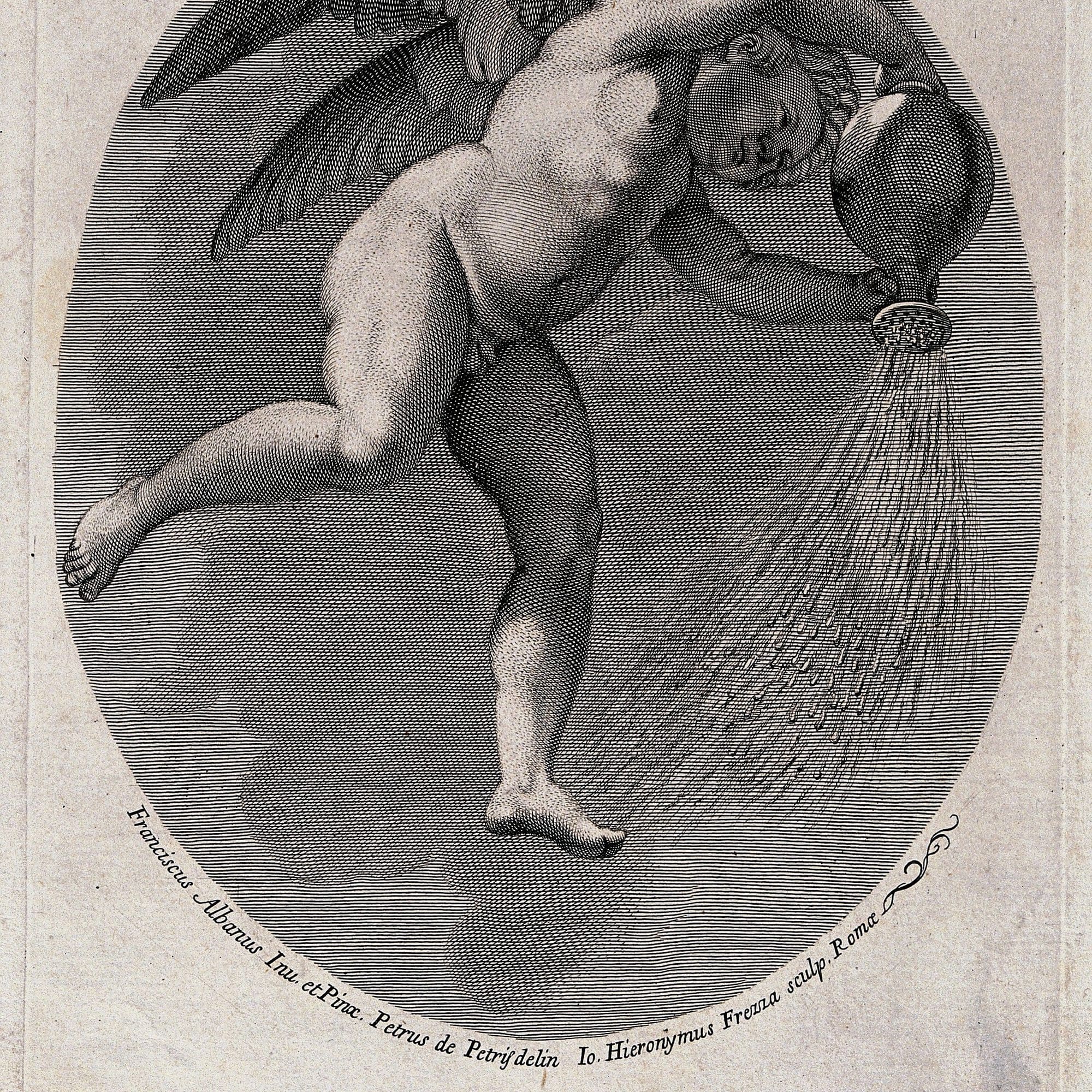
Phosphorus is one of the Astra Planeta, specifically the god of the planet Venus in its appearance as the Morning Star. Another Greek name for the Morning Star is “Eosphorus” (Ancient Greek: Ἑωσφόρος, romanized: Heōsphoros), which means “dawn-bringer”. The term “eosphorus” is sometimes met in English. As an adjective, the word “phosphorus” is applied in the sense of “light-bringing” (for instance, the dawn, the god Dionysus, pine torches and the day) and “torch-bearing” as an epithet of several gods and goddesses, especially of Hecate but also of Artemis/Diana and Hephaestus.Seasonally, Venus is the “light bringer” in the northern hemisphere, appearing most brightly in December (an optical illusion due to shorter days), signalling the “rebirth” of longer days as winter wanes.
Read More About Phosphorus / Source
Plutus
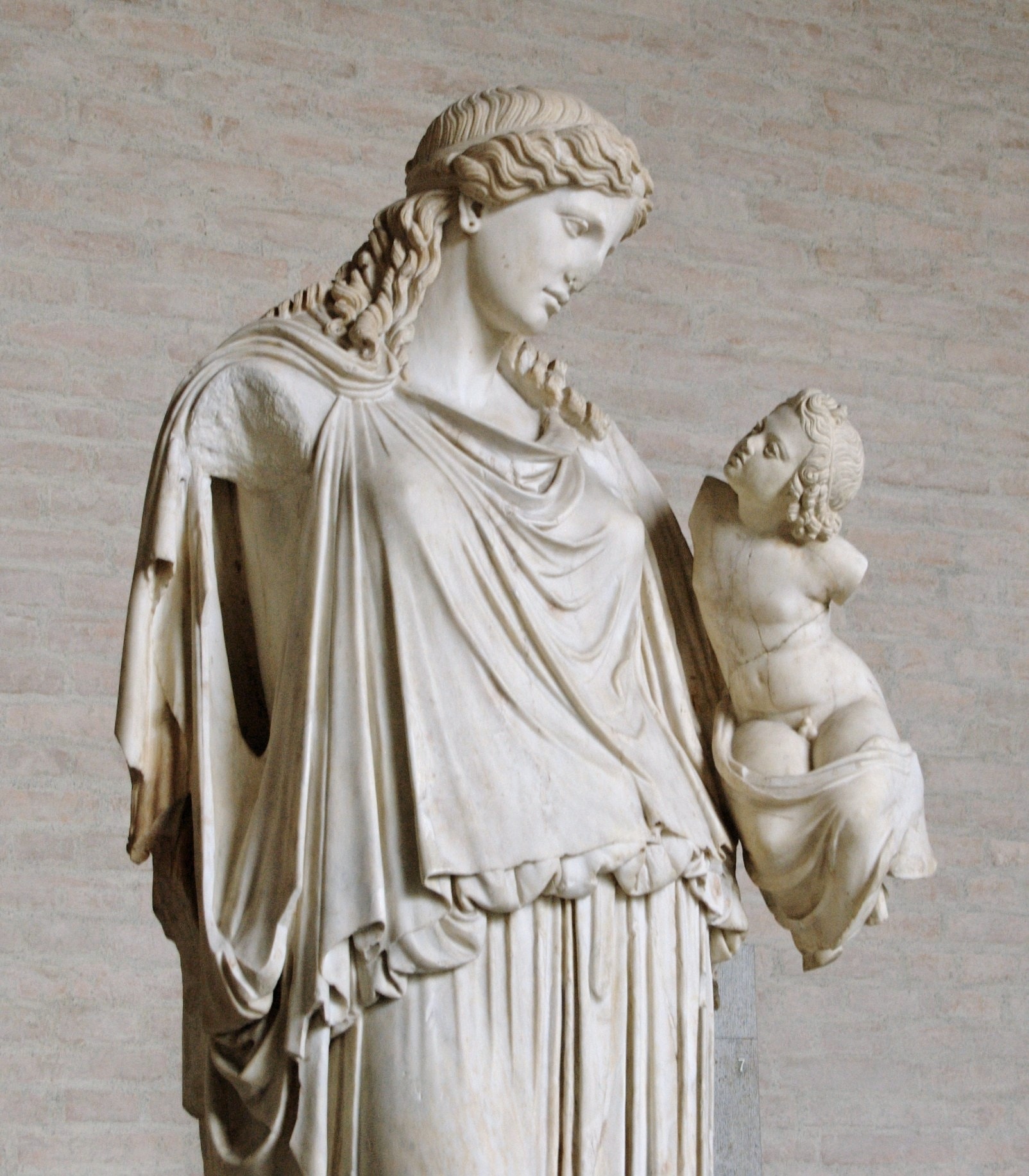
In ancient Greek religion and mythology, Plutus (/ˈpluːtəs/; Greek: Πλοῦτος, translit. Ploûtos, lit. “wealth”) is the god and the personification of wealth, and the son of the goddess of agriculture Demeter and the mortal Iasion.
Read More About Plutus / Source
Polyhymnia
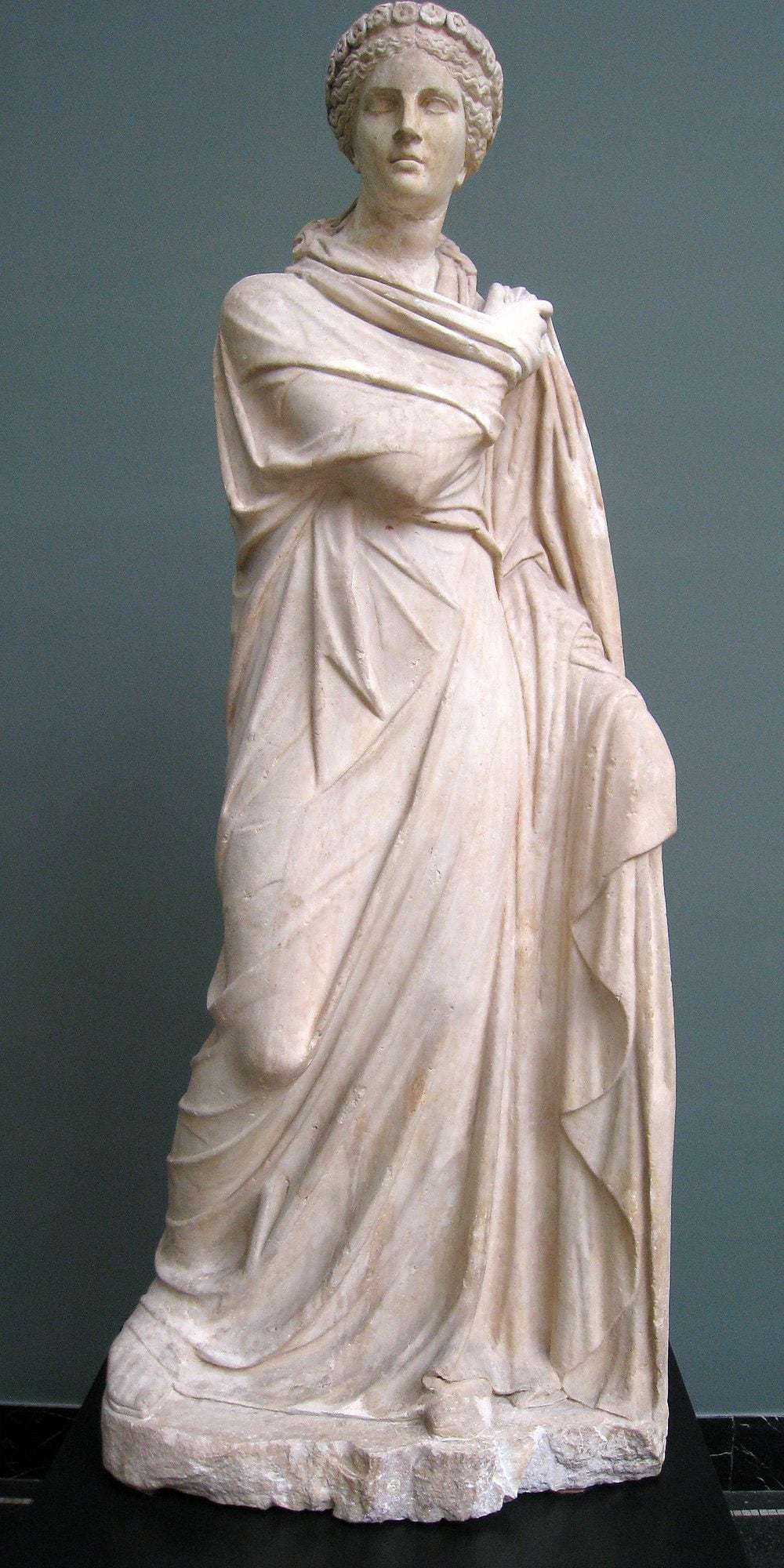
Polyhymnia (/pɒliˈhɪmniə/; Greek: Πολυύμνια, lit. ’the one of many hymns’), alternatively Polymnia (Πολύμνια), was, in Greek mythology, the Muse of sacred poetry, sacred hymn, dance and eloquence, as well as agriculture and pantomime.
Read More About Polyhymnia / Source
Priapus
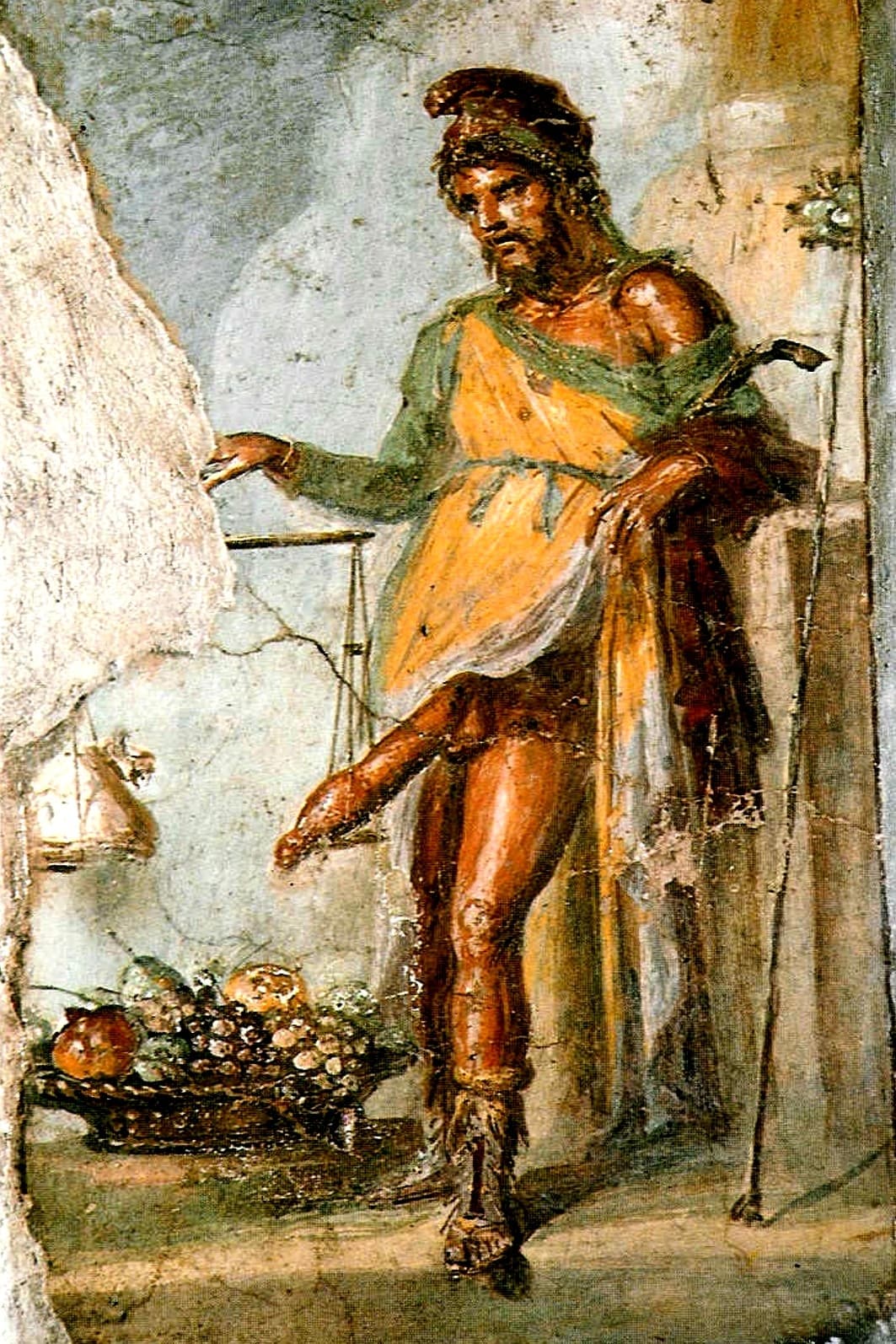
In Greek mythology, Priapus is a minor rustic fertility god, protector of livestock, fruit plants, gardens and male genitalia. Priapus is marked by his oversized, permanent erection, which gave rise to the medical term priapism. He became a popular figure in Roman erotic art and Latin literature, and is the subject of the often humorously obscene collection of verse called the Priapeia.
Read More About Priapus / Source
Pricus

In Greek mythology, Pricus was known as a ruler of time and a sea-goat. A sea-goat has a front half that is a goat. The lower or other half is the tail of a fish. Pricus was the first of the sea goats and he could live forever. This eventually made his life difficult, though. However, the Gods liked Pricus and the sea-goats. In fact, Pricus was created by CRONOS, the God of Time.
Read More About Pricus / Source
Prometheus
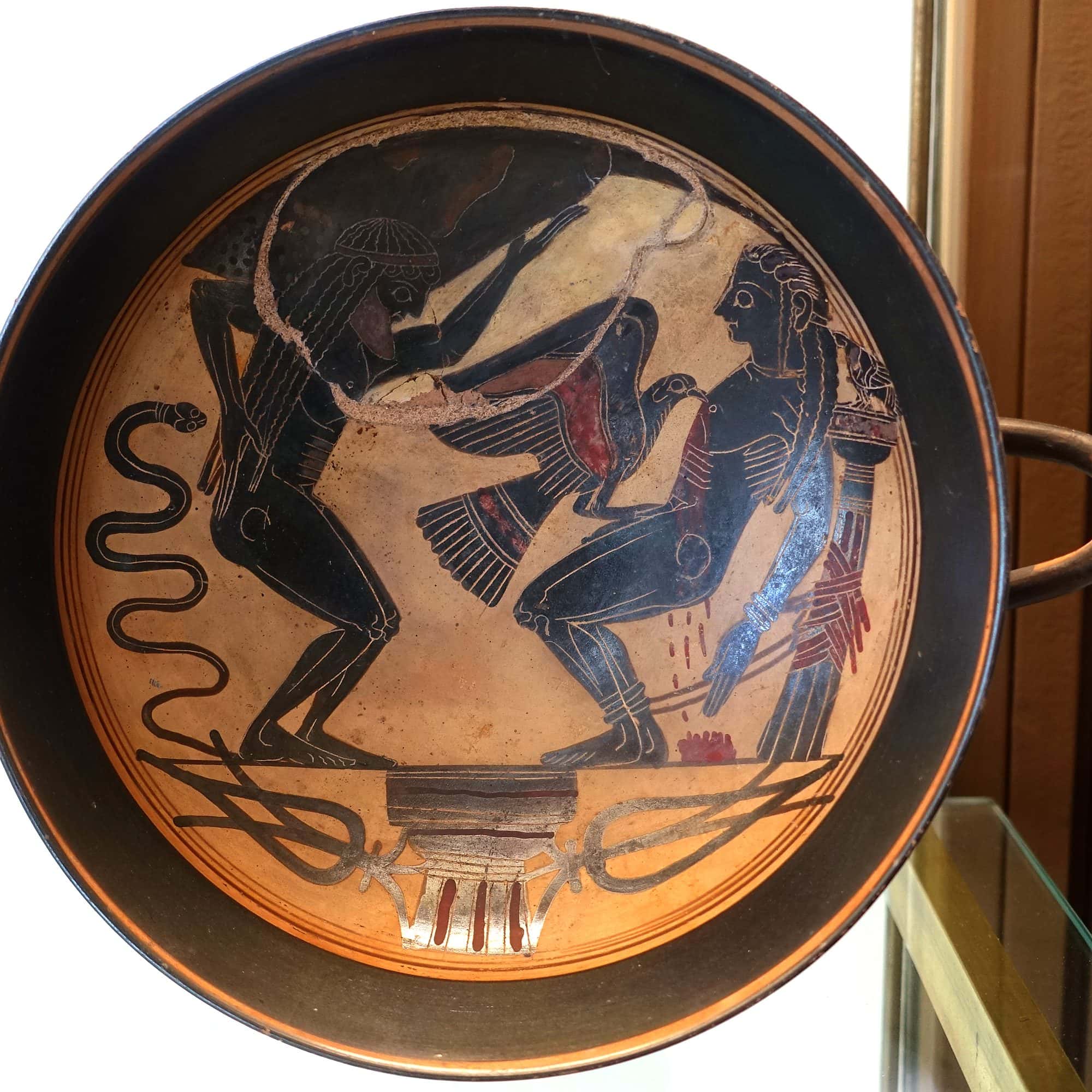
In Greek mythology, Prometheus (/prəˈmiːθiəs/; Ancient Greek: Προμηθεύς, [promɛːtʰéu̯s], possibly meaning “forethought”) is a Titan god of fire.Prometheus is best known for defying the gods by stealing fire from them and giving it to humanity in the form of technology, knowledge, and more generally, civilization.
Read More About Prometheus / Source
Selene
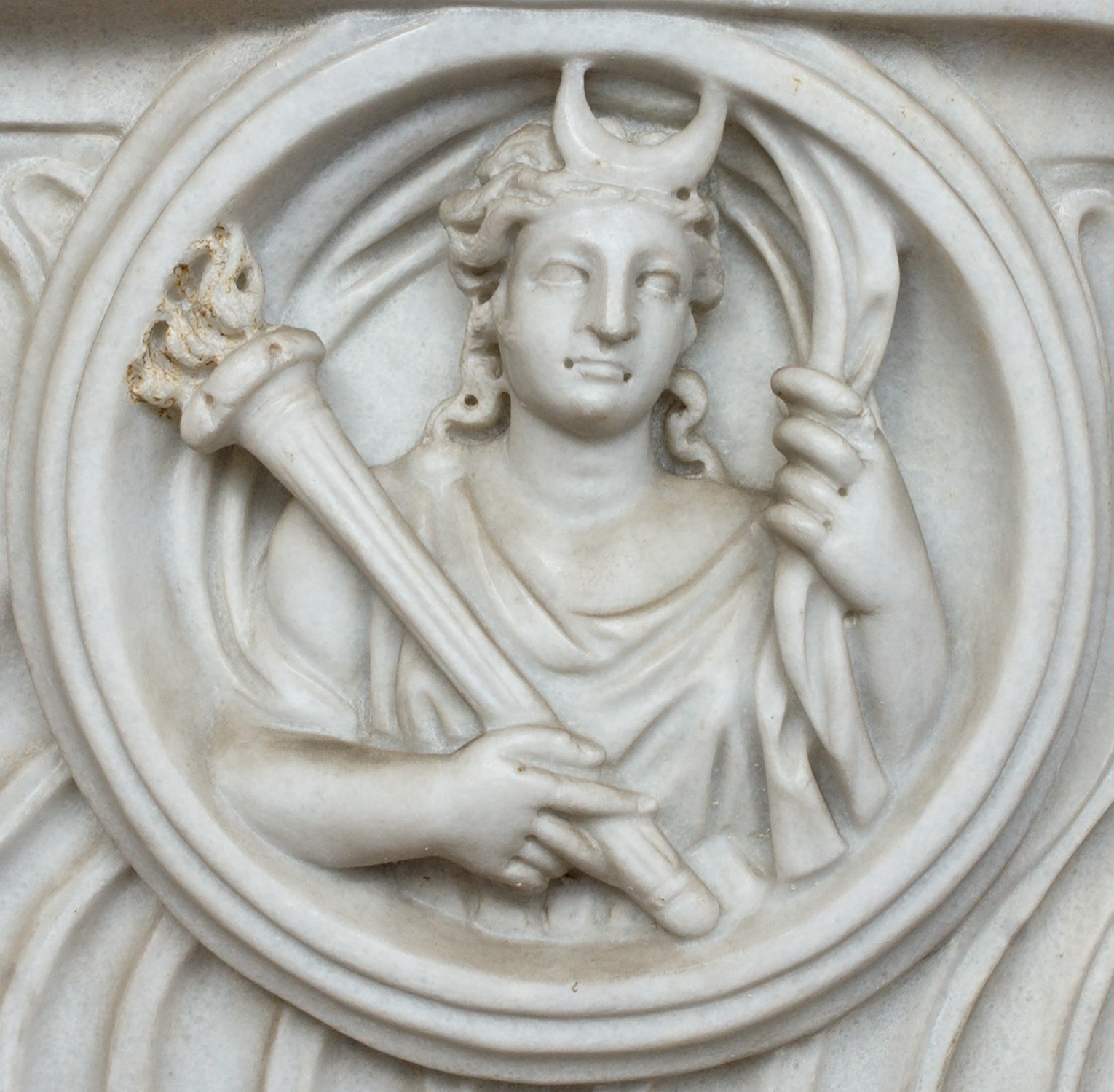
In ancient Greek mythology and religion, Selene is the goddess and the personification of the Moon. Also known as Mene, she is traditionally the daughter of the Titans Hyperion and Theia, and sister of the sun god Helios and the dawn goddess Eos. She drives her moon chariot across the heavens. Several lovers are attributed to her in various myths, including Zeus, Pan, and the mortal Endymion. In post-classical times, Selene was often identified with Artemis, much as her brother, Helios, was identified with Apollo. Selene and Artemis were also associated with Hecate and all three were regarded as moon and lunar goddesses, but only Selene was regarded as the personification of the Moon itself. Her Roman equivalent is Luna.
Read More About Selene / Source
Styx
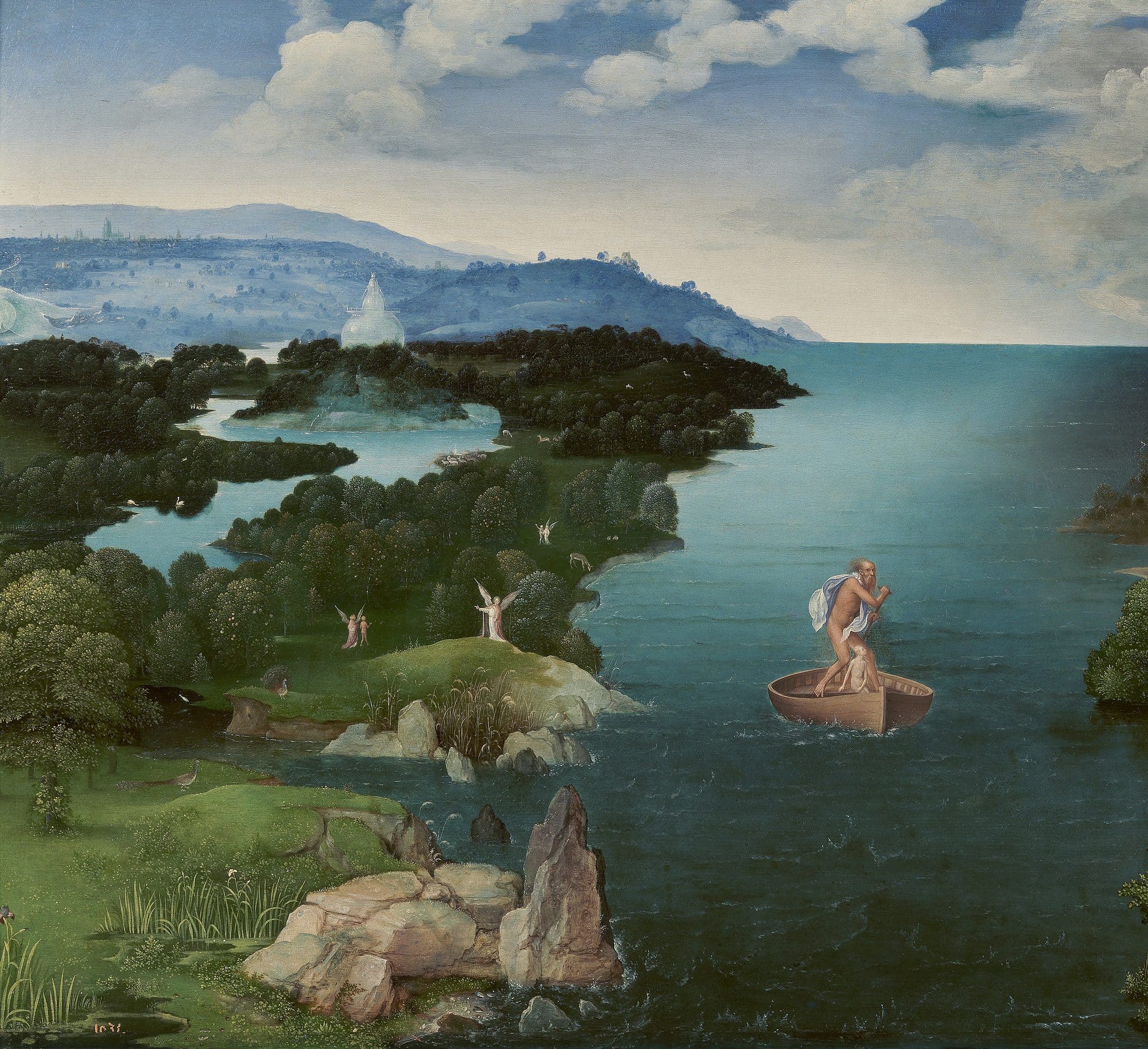
In Greek mythology, Styx is a river that forms the boundary between Earth (Gaia) and the Underworld. The rivers Acheron, Cocytus, Lethe, Phlegethon, and Styx all converge at the centre of the underworld on a great marsh, which sometimes is also called the Styx. According to Herodotus, the river Styx originates near Pheneus.Styx is also known as the goddess of the river, the source of its miraculous powers.
Taygete
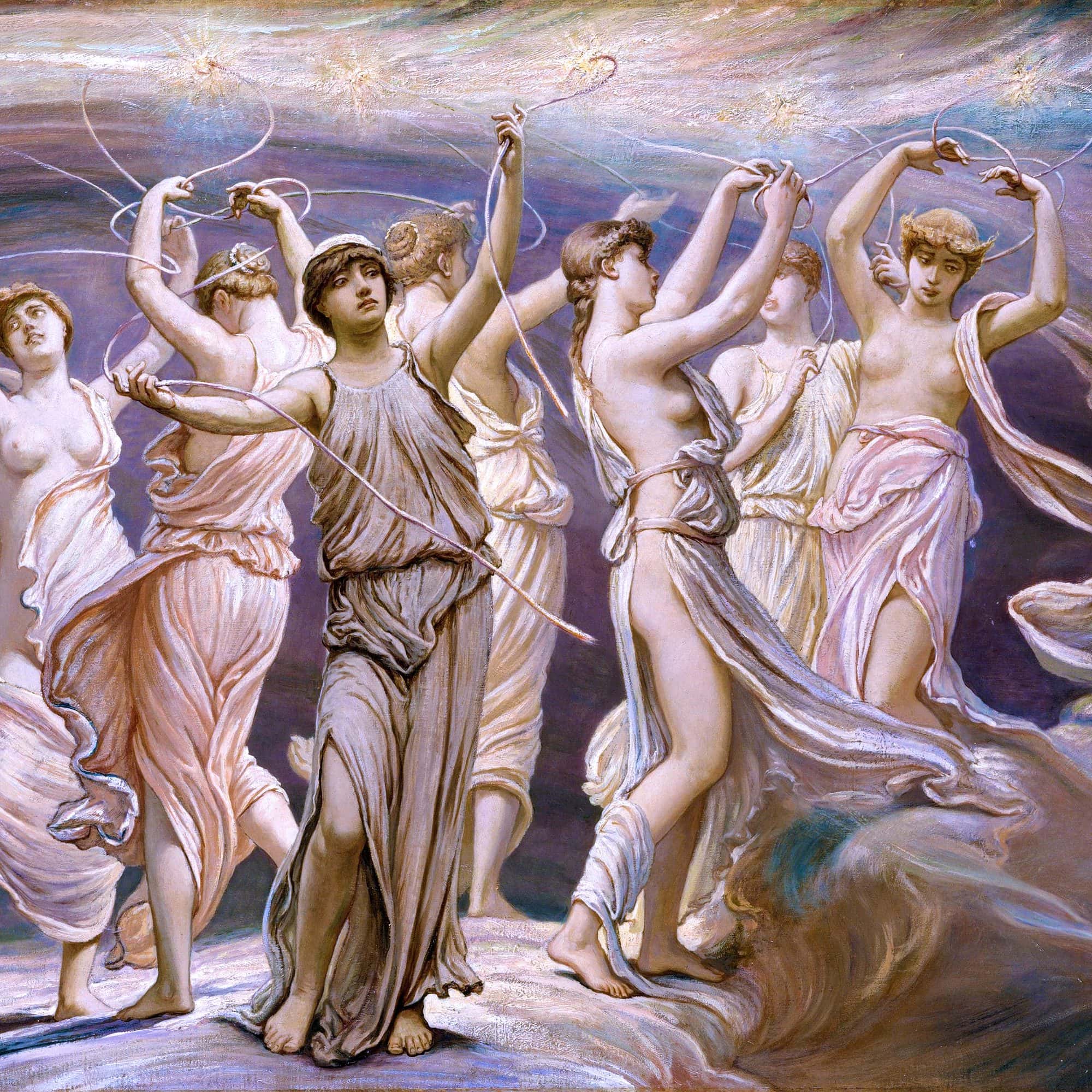
In Classical Greek mythology, Taygete (/teɪˈɪdʒətiː/; Greek: Ταϋγέτη, Ancient Greek: [taːyɡétɛː], Modern Greek: [taiˈʝeti]) was a nymph, one of the Pleiades according to the Bibliotheca (3.10.1) and a companion of Artemis, in her archaic role as potnia theron, “Mistress of the animals”, with its likely roots in prehistory. Mount Taygetos in Laconia, dedicated to the goddess, was her haunt.
Read More About Taygete / Source
Terpsichore
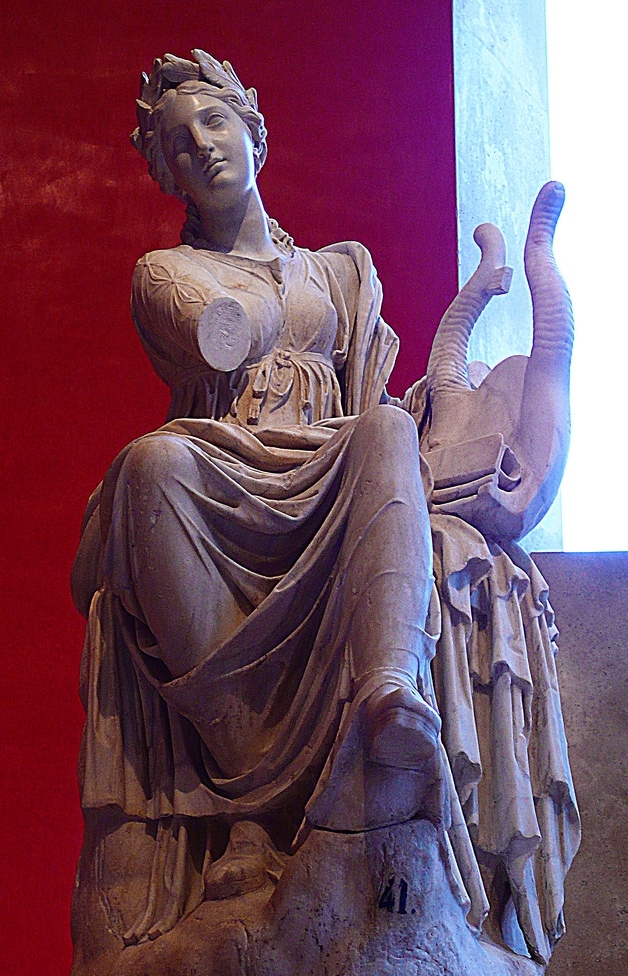
In Greek mythology, Terpsichore (/tərpˈsɪkəriː/; Τερψιχόρη, “delight in dancing”) is one of the nine Muses and goddess of dance and chorus. She lends her name to the word “terpsichorean” which means “of or relating to dance”.
Read More About Terpsichore / Source
Tethys
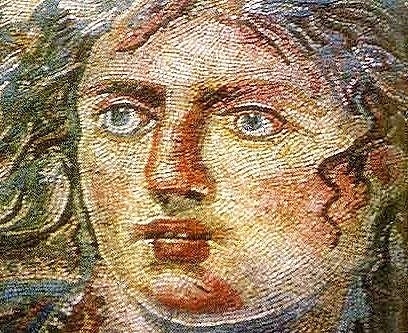
In Greek mythology, Tethys was a Titan daughter of Uranus and Gaia, a sister and wife of the Titan Oceanus, and the mother of the river gods and the Oceanids. Although Tethys had no active role in Greek mythology and no established cults, she was depicted in mosaics decorating baths, pools, and triclinia in the Greek East, particularly in Antioch and its suburbs, either alone or with Oceanus.
Read More About Tethys / Source
Thalassa
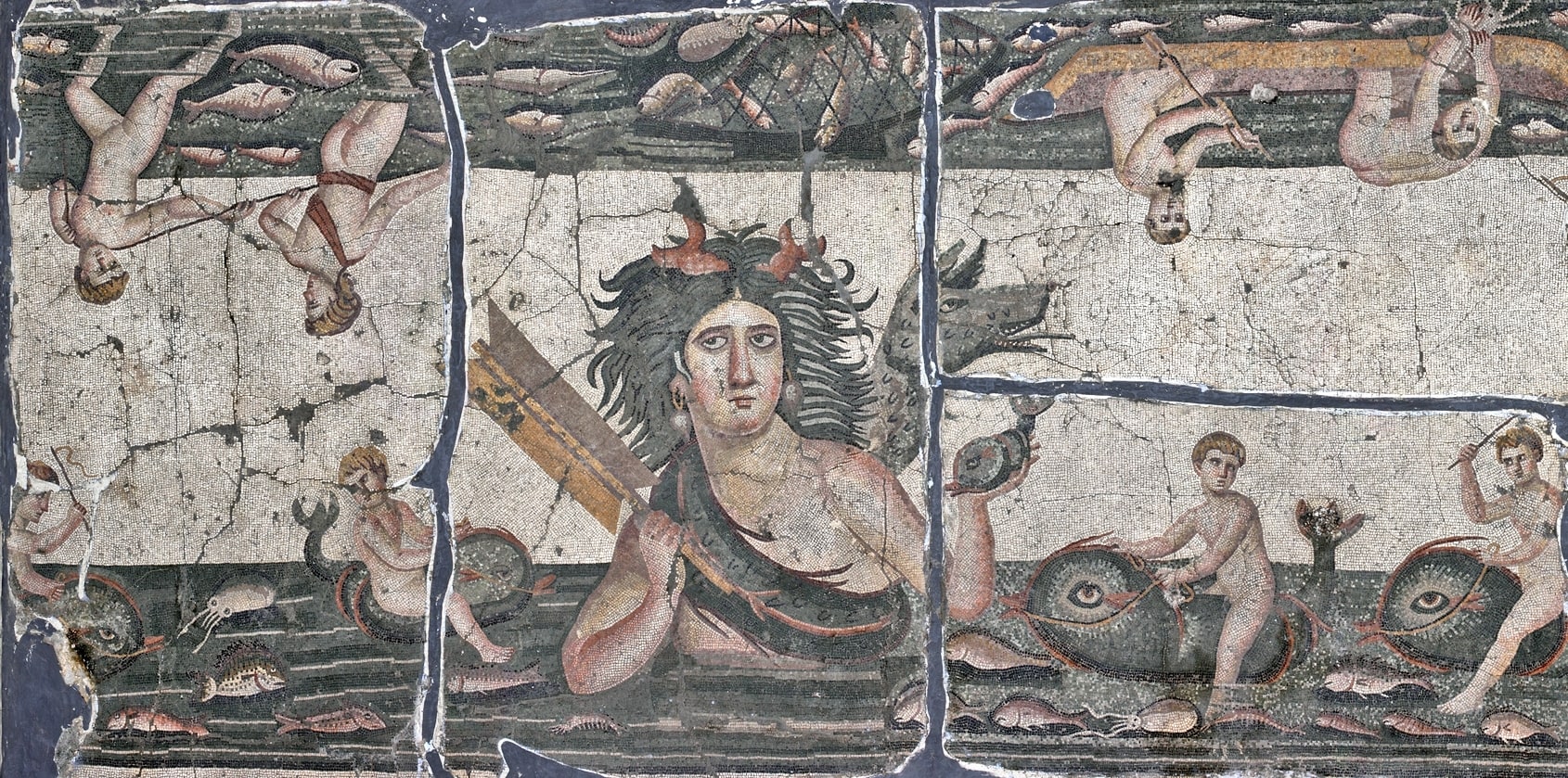
Thalassa (/θəˈlæsə/; Greek: Θάλασσα, translit. Thálassa, lit. “sea”;Attic Greek: Θάλαττα, Thálatta) was the general word for ‘sea’ and for its divine female personification in Greek mythology.The word may have been of Pre-Greek origin.
Read More About Thalassa / Source
Thalia
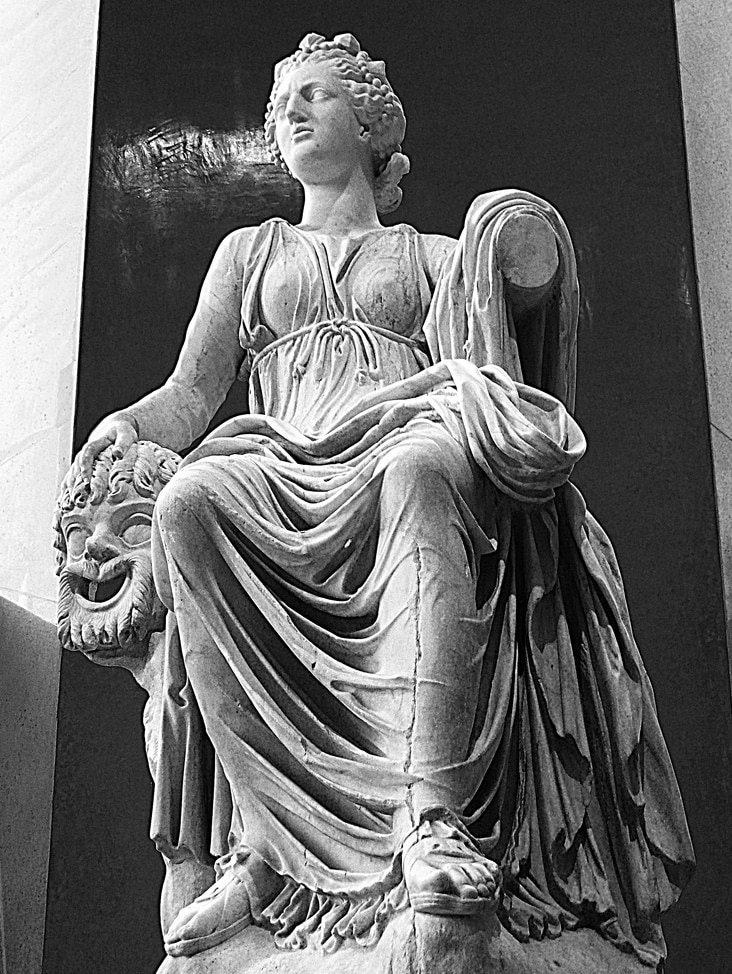
In Greek mythology, Thalia (/θəˈlaɪə/or /ˈθeɪliə/;Ancient Greek: Θάλεια; “the joyous, the flourishing”, from Ancient Greek: θάλλειν, thállein; “to flourish, to be verdant”), also spelled Thaleia, was one of the Muses, the goddess who presided over comedy and idyllic poetry. In this context her name means “flourishing”, because the praises in her songs flourish through time.
Read More About Thalia / Source
Thaumas
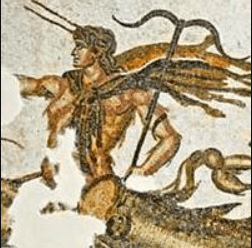
In Greek mythology, Thaumas (/ˈθɔːməs/; Ancient Greek: Θαύμας; gen.: Θαύμαντος) was a sea god, son of Pontus and Gaia, and the full brother of Nereus, Phorcys, Ceto and Eurybia.
Read More About Thaumas / Source
Theia
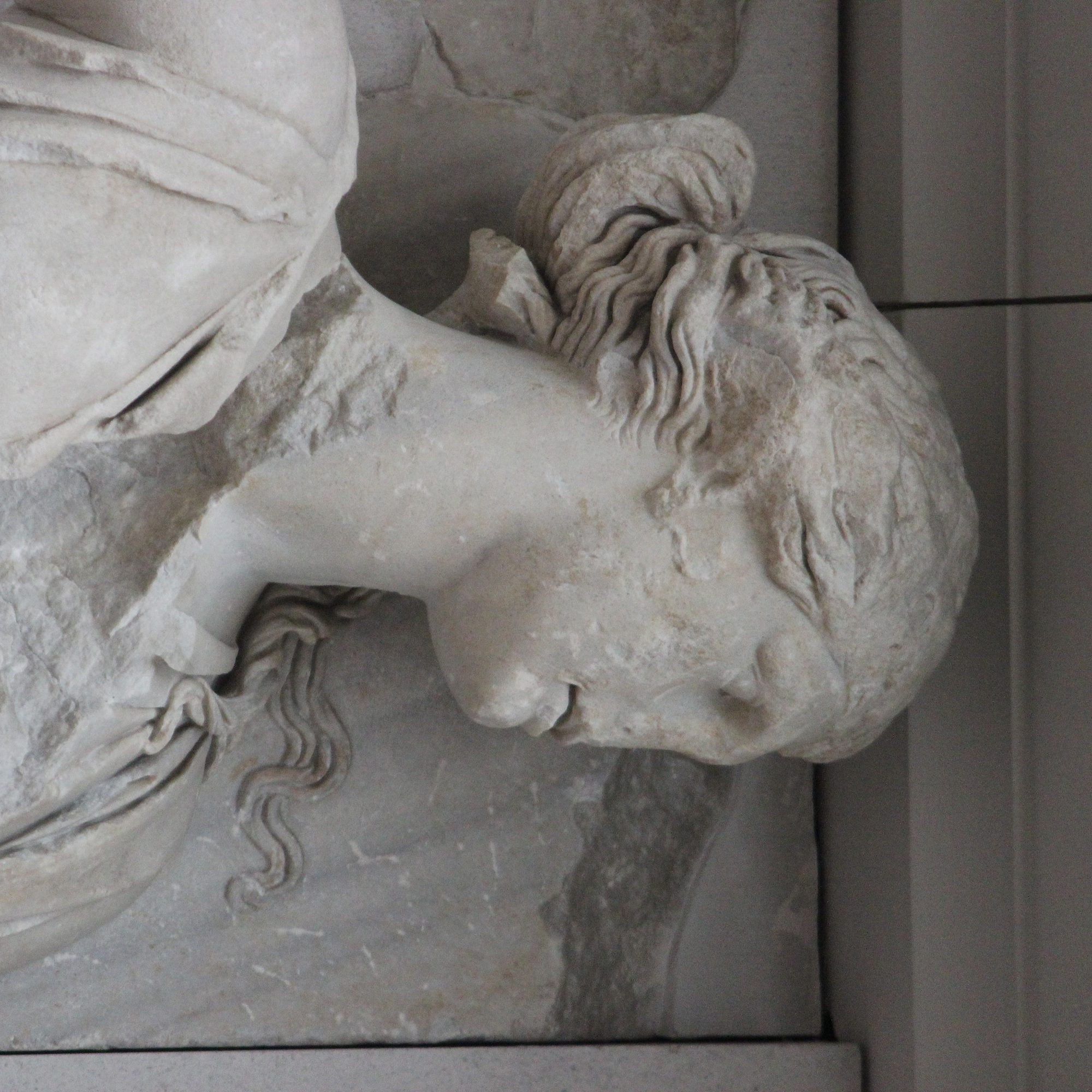
In Greek mythology, Theia (/ˈθiːə/; Ancient Greek: Θεία, romanized: Theía, lit. ’divine’, also rendered Thea or Thia), also called Euryphaessa (Ancient Greek: Εὐρυφάεσσα) “wide-shining”, is one of the twelve Titans, the children of the earth goddess Gaia and the sky god Uranus. She is the Greek goddess of sight and vision, and by extension the goddess who endowed gold, silver and gems with their brilliance and intrinsic value.Her brother-consort is Hyperion, a Titan and god of the sun, and together they are the parents of Helios (the Sun), Selene (the Moon), and Eos (the Dawn). She seems to be the same with Aethra, the consort of Hyperion and mother of his children in some accounts. Like her husband, Theia features scarcely in myth, being mostly important for the children she bore, though she appears in some texts and rare traditions.
Read More About Theia / Source
Themis
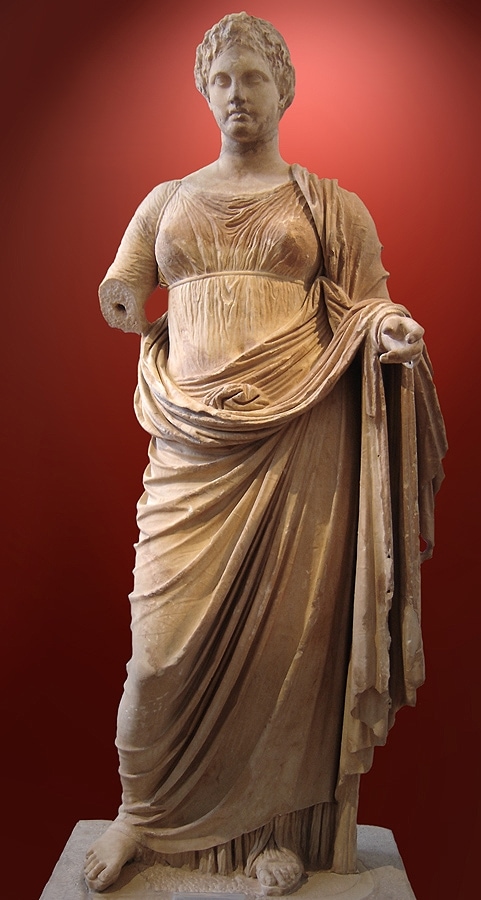
In Greek mythology and religion, Themis (/ˈθiːmɪs/; Ancient Greek: Θέμις, romanized: Themis, lit. ’justice, law, custom’) is one of the twelve Titan children of Gaia and Uranus, and the second wife of Zeus. She is the goddess and personification of justice, divine order, fairness, law, and custom, and her symbols include the Scales of Justice. She is also associated with oracles and prophecies, including the Oracle of Delphi.
Read More About Themis / Source
Thetis
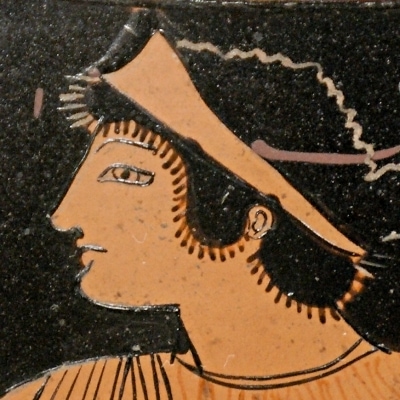
Thetis (/ˈθiːtɪs/; Greek: Θέτις [tʰétis]), is a figure from Greek mythology with varying mythological roles. She mainly appears as a sea nymph, a goddess of water, or one of the 50 Nereids, daughters of the ancient sea god Nereus.
Read More About Thetis / Source
Tisiphone
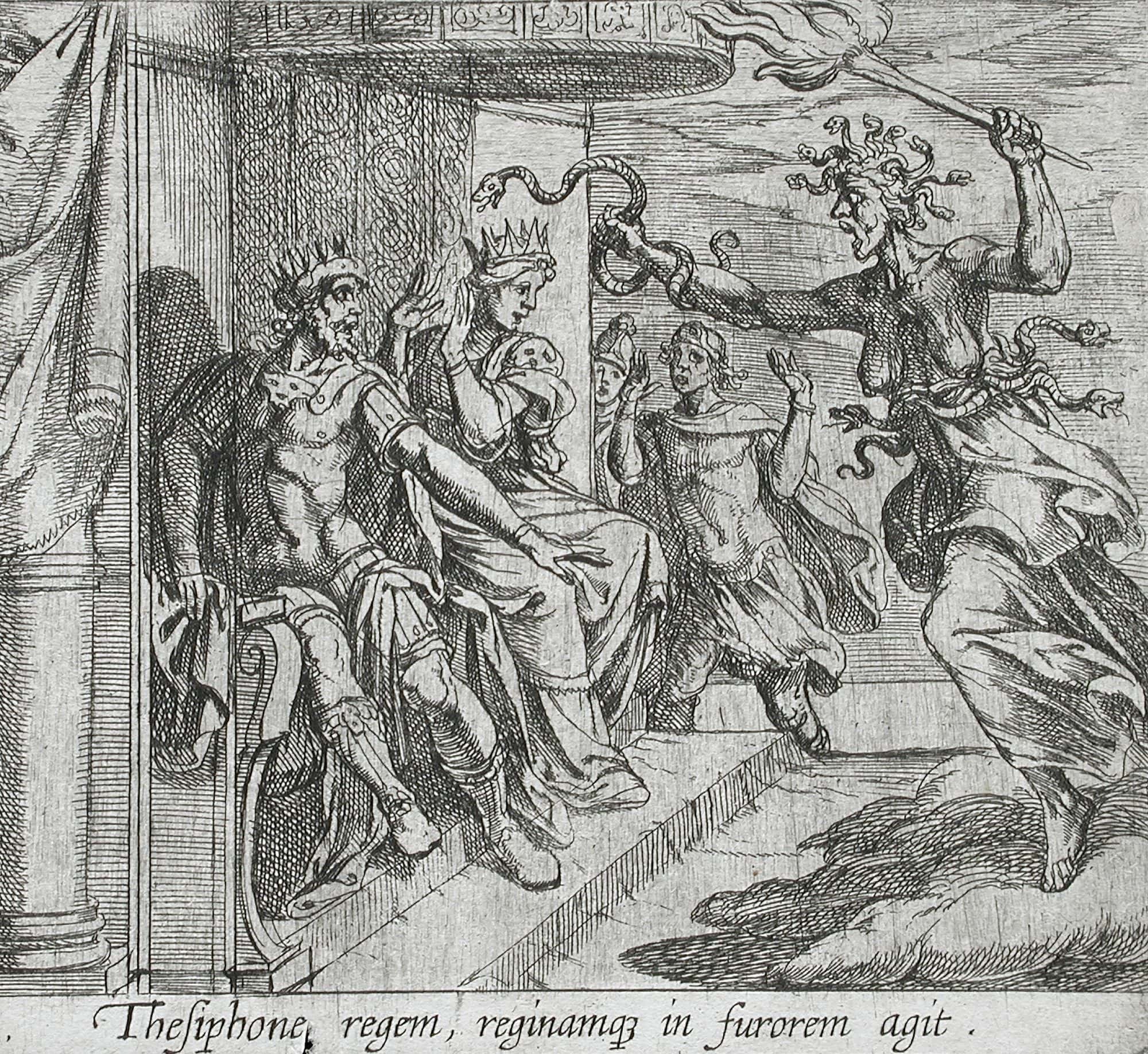
Tisiphone (/tɪˈsɪfəni/ tiss-IF-ə-nee; Ancient Greek: Τισιφόνη, romanized: Tisiphónē), or Tilphousia, was one of the three Erinyes or Furies. Her sisters were Alecto and Megaera. She and her sisters punished crimes of murder: parricide, fratricide and homicide.
Read More About Tisiphone / Source
Triton
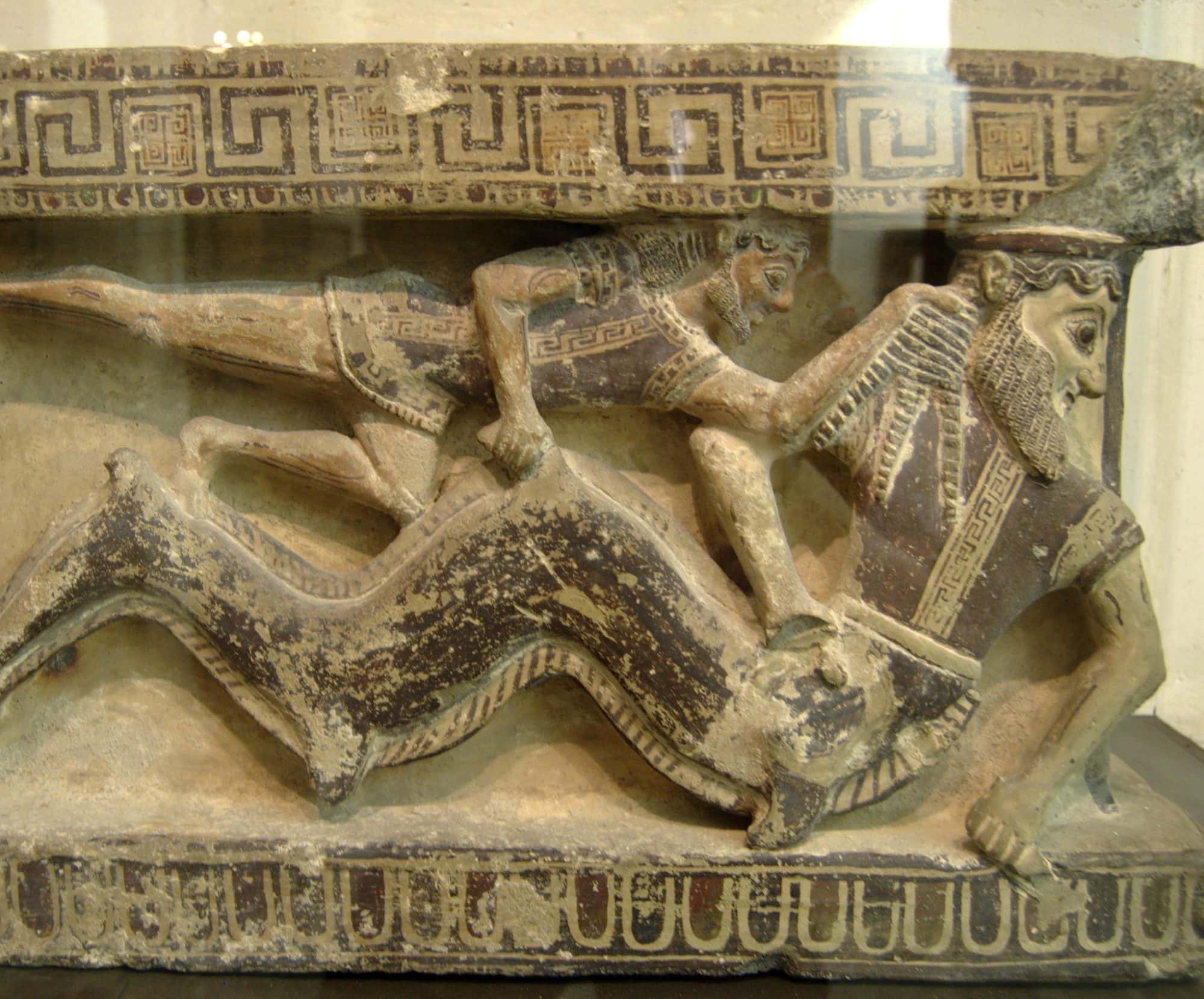
Triton (/ˈtraɪtɒn/; Greek: Τρίτων, translit. Trítōn) is a Greek god of the sea, the son of Poseidon and Amphitrite, god and goddess of the sea respectively. Triton lived with his parents in a golden palace on the bottom of the sea. Later he is often depicted as having a conch shell he would blow like a trumpet.
Read More About Triton / Source
Tyche
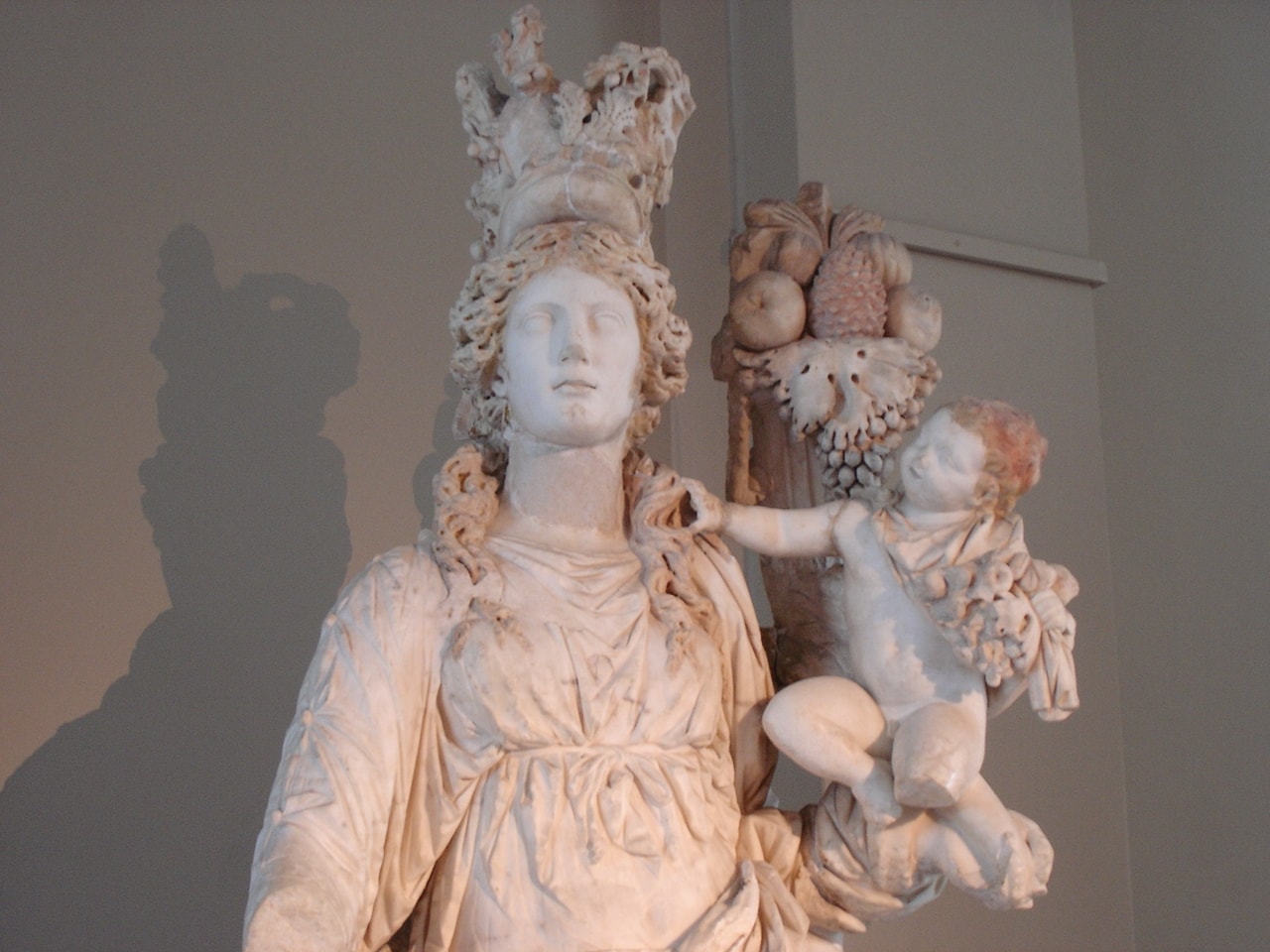
Tyche was the presiding tutelary deity who governed the fortune and prosperity of a city, its destiny. In Classical Greek mythology, she is the daughter of Aphrodite and Zeus or Hermes, and at this time served to bring positive messages to people, relating to external events outside their control.
Read More About Tyche / Source
Typhon
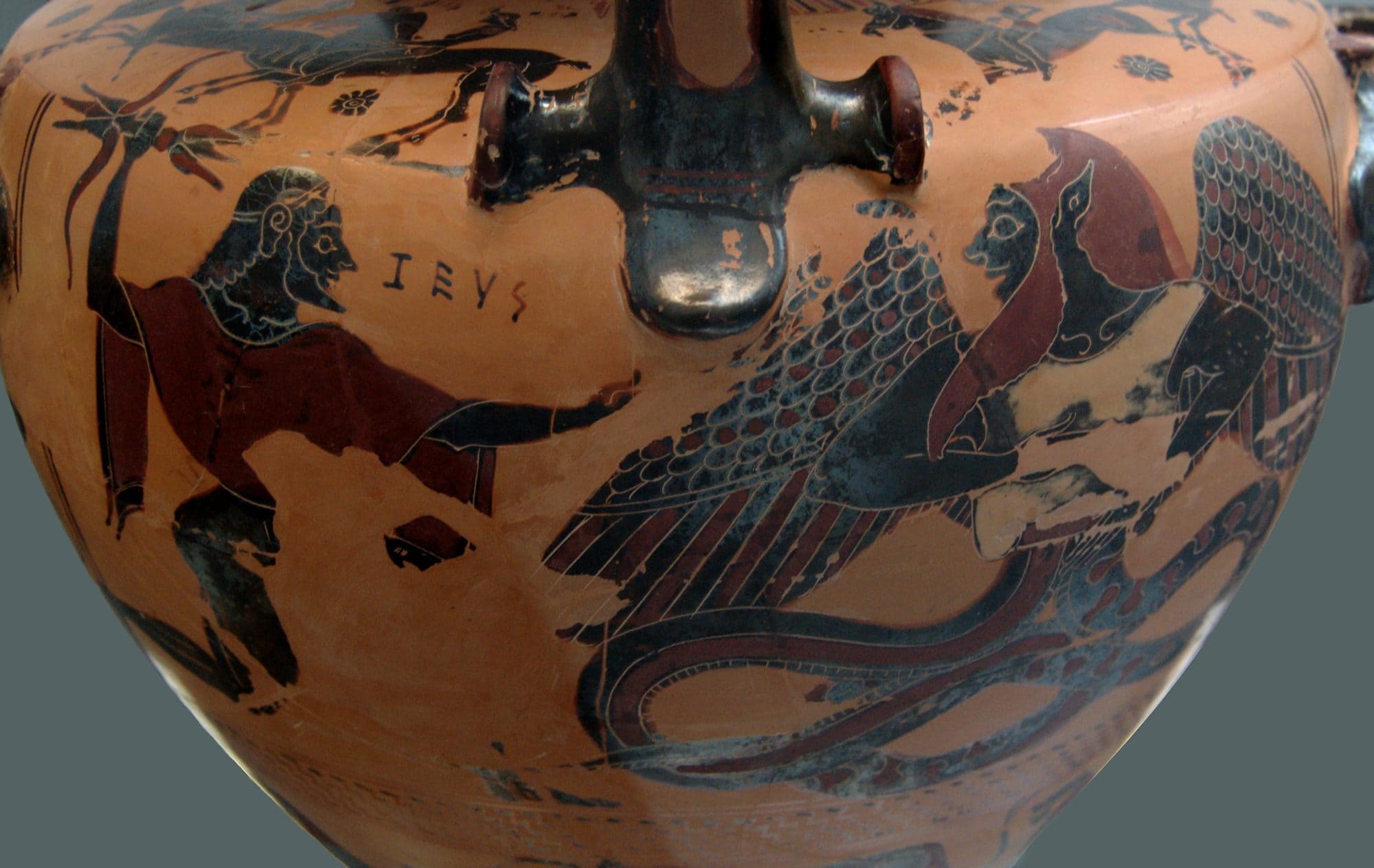
Typhon was a monstrous serpentine giant and one of the deadliest creatures in Greek mythology. According to Hesiod, Typhon was the son of Gaia and Tartarus. However, one source has Typhon as the son of Hera alone, while another makes Typhon the offspring of Cronus. Typhon and his mate Echidna were the progenitors of many famous monsters.
Read More About Typhon / Source
Urania
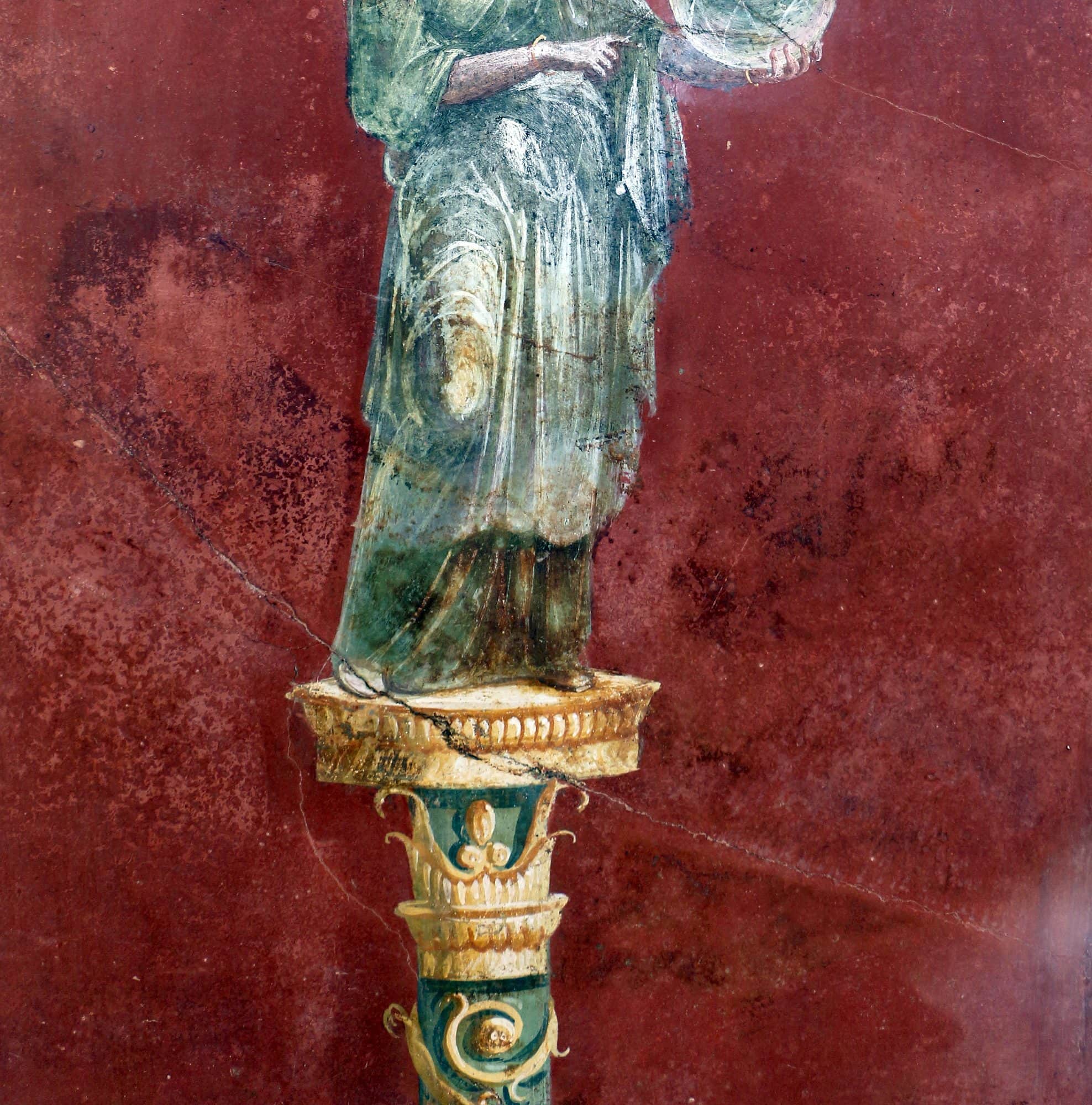
Urania (/jʊəˈreɪniə/ yoor-AY-nee-ə; Ancient Greek: Οὐρανία, romanized: Ouranía; modern Greek shortened name Ράνια Ránia; meaning “heavenly” or “of heaven”) was, in Greek mythology, the muse of astronomy, and in later times, of Christian poetry. Urania is the goddess of astronomy and stars, her attributes being the globe and compass.
Read More About Urania / Source
Zagreus
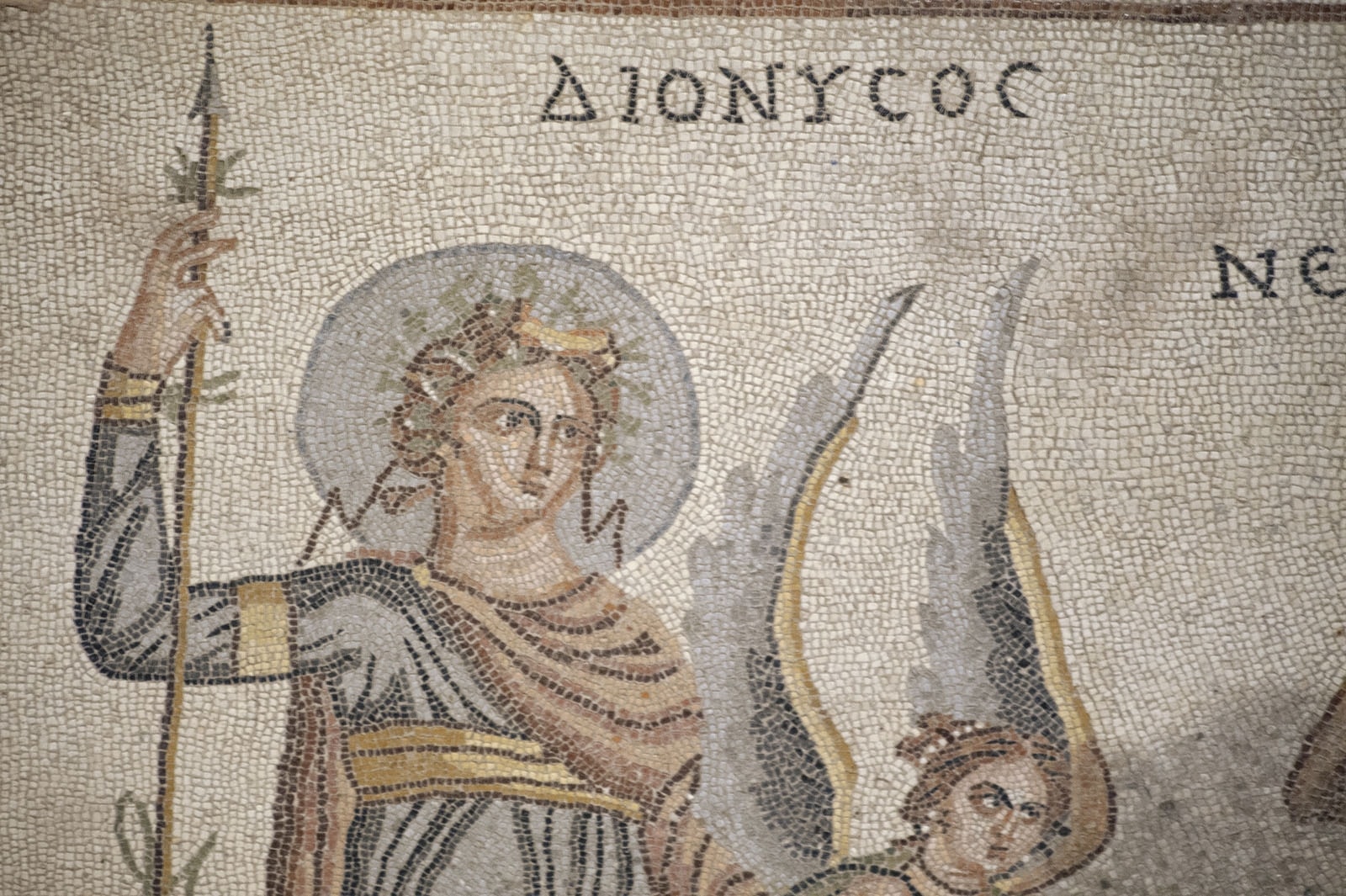
In ancient Greek religion and mythology, Zagreus (Greek: Ζαγρεύς) was sometimes identified with a god worshipped by the followers of Orphism, the “first Dionysus”, a son of Zeus and Persephone, who was dismembered by the Titans and reborn. In the earliest mention of Zagreus, he is paired with Gaia and called the “highest” god, though perhaps only in reference to the gods of the underworld. Aeschylus, however, links Zagreus with Hades, possibly as Hades’ son, or as Hades himself. Noting “Hades’ identity as Zeus’ katachthonios alter ego”, Timothy Gantz thought it “likely” that Zagreus, perhaps originally the son of Hades and Persephone, later merged with the Orphic Dionysus, the son of Zeus and Persephone.
Read More About Zagreus / Source
Zelus
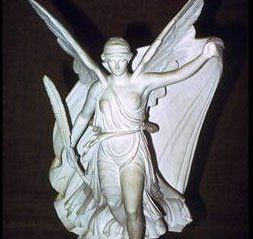
In Greek mythology, Zelus or Zelos (/ˈziːləs/; Ancient Greek: Ζῆλος Zēlos, literally ‘zeal’) was the daimon that personifies dedication, emulation, eager rivalry, envy, jealousy, and zeal. The English word “zeal” is derived from his name.His Roman equivalent was Invidia.
Read More About Zelus / Source


